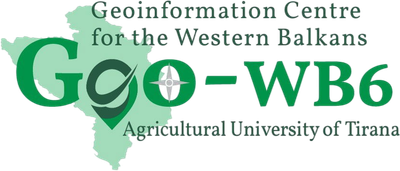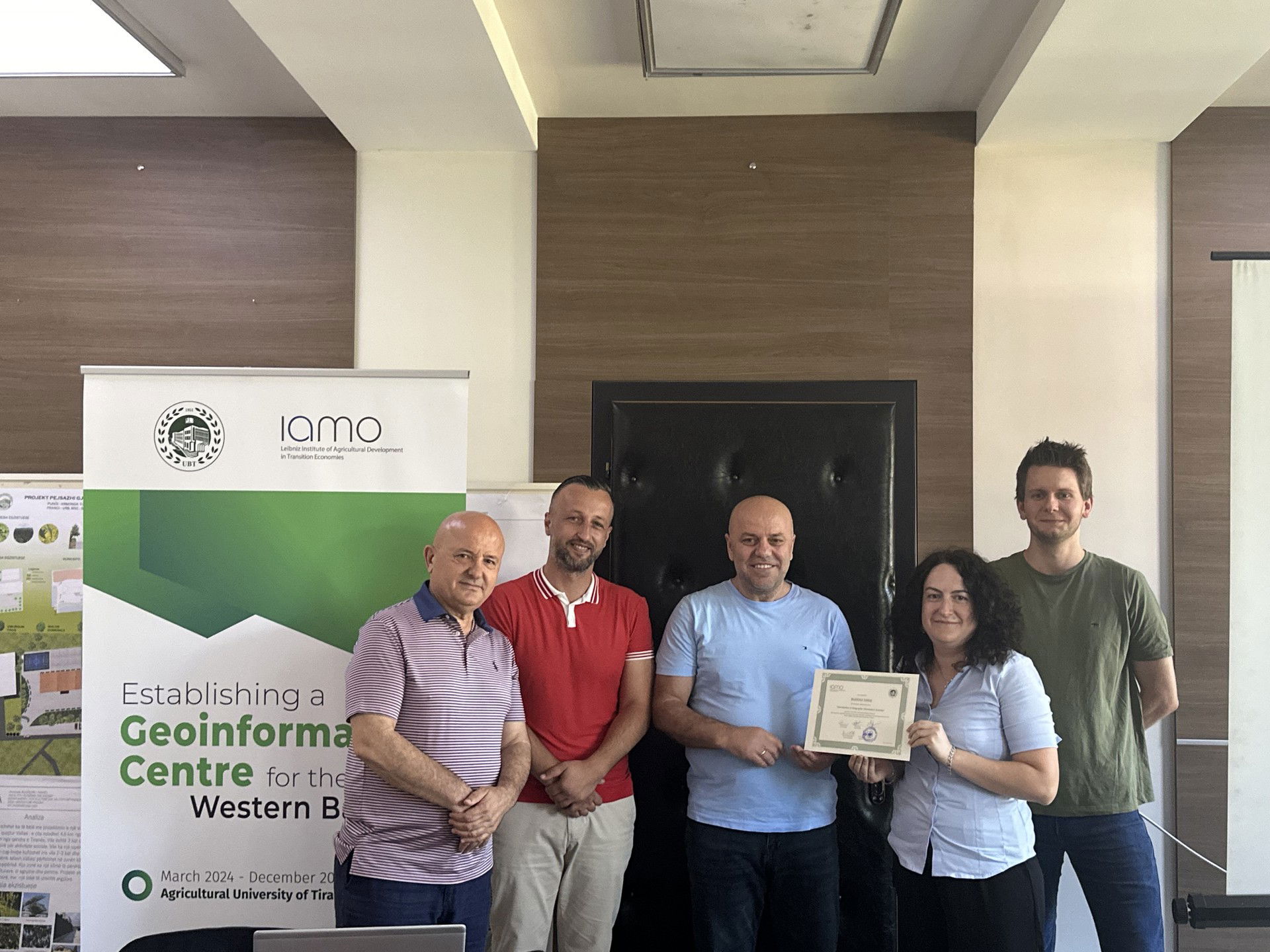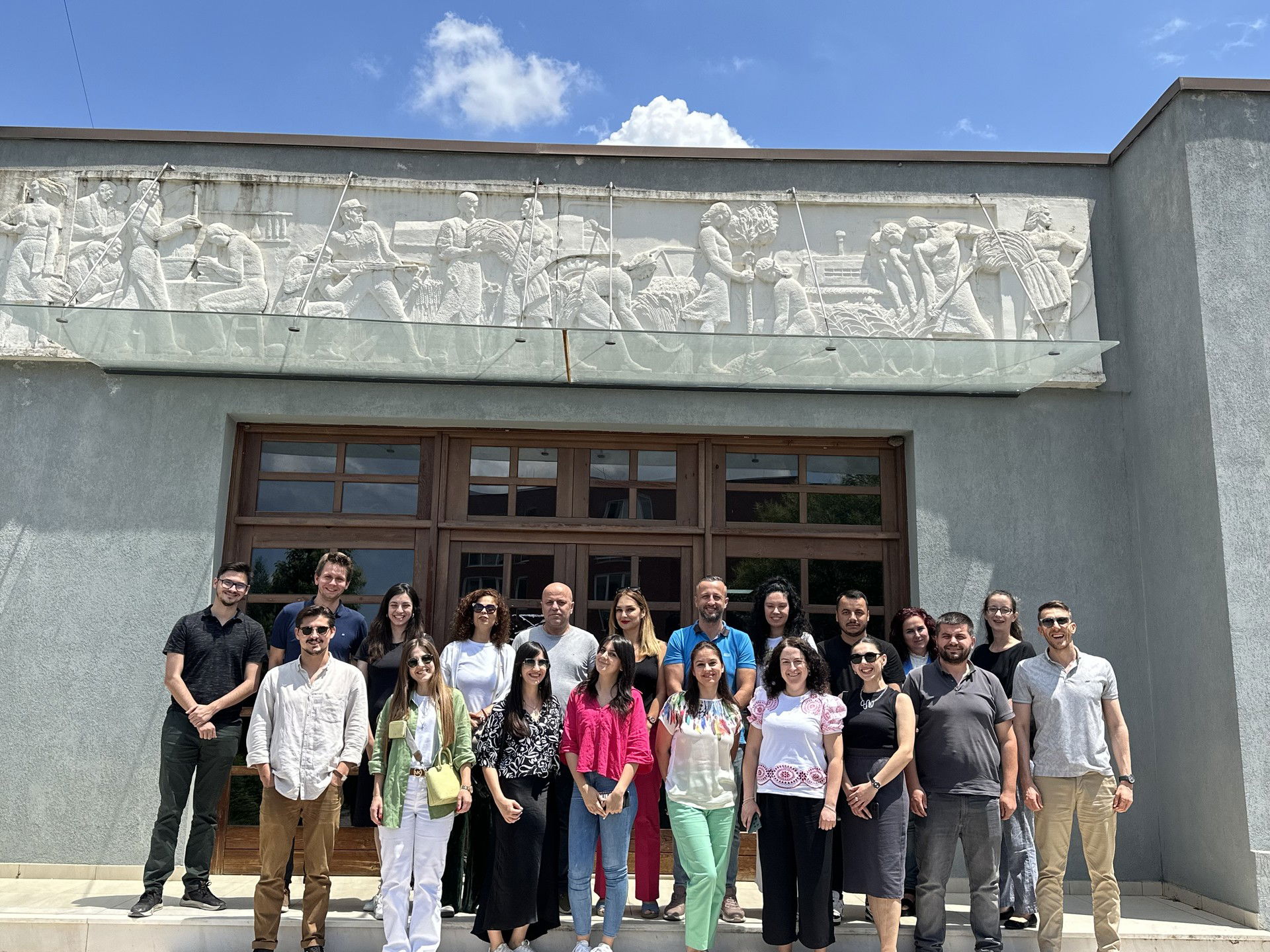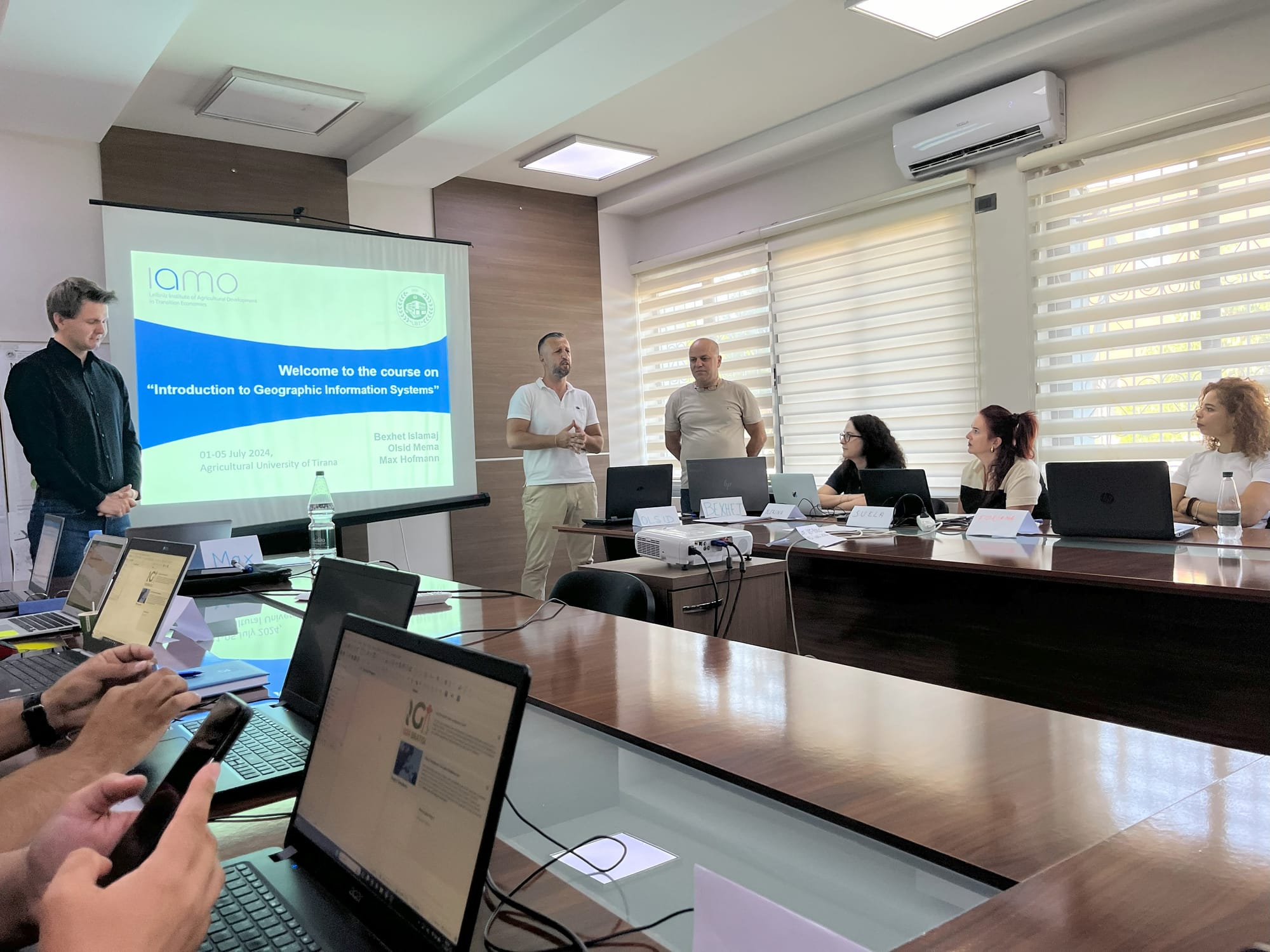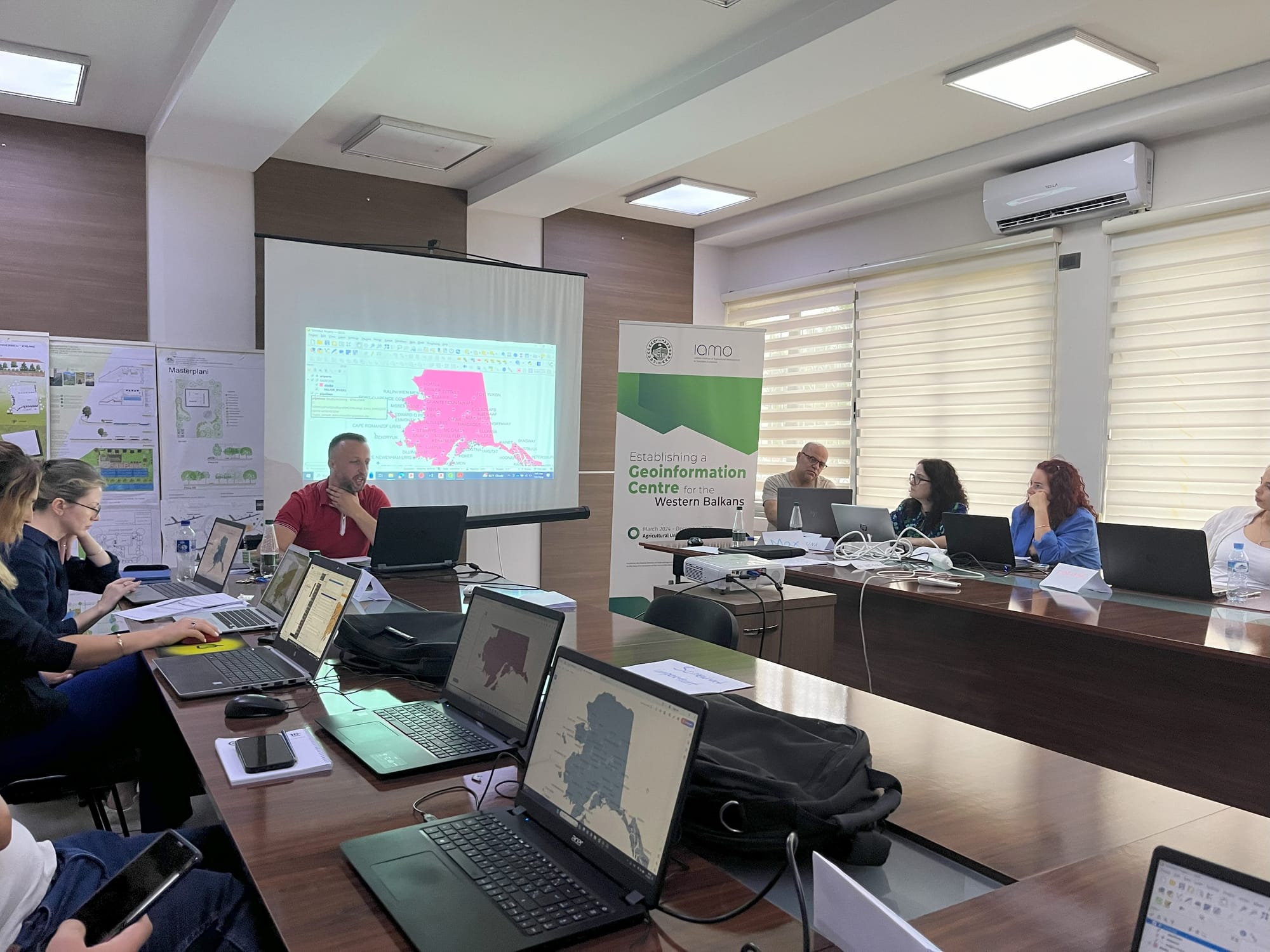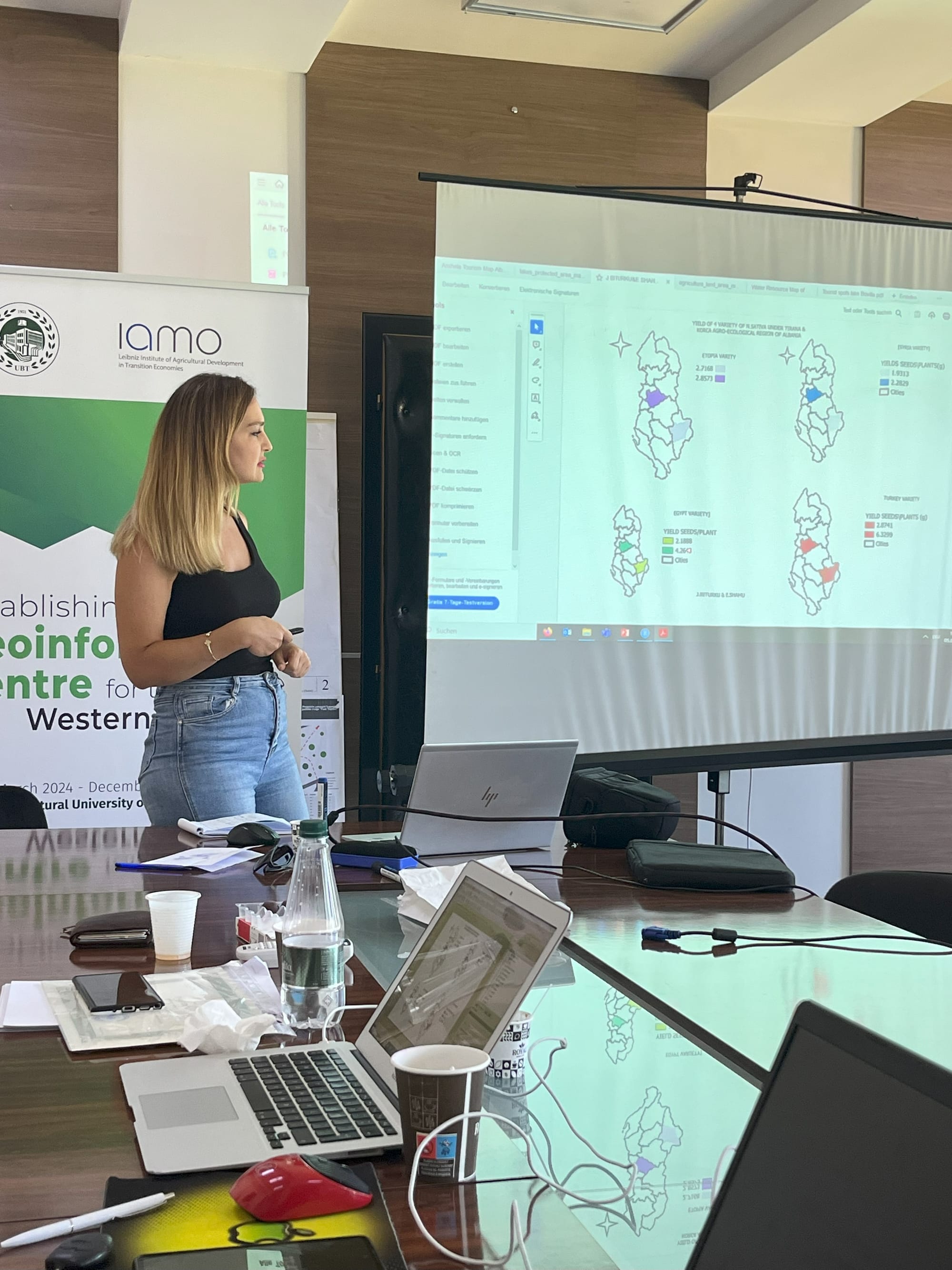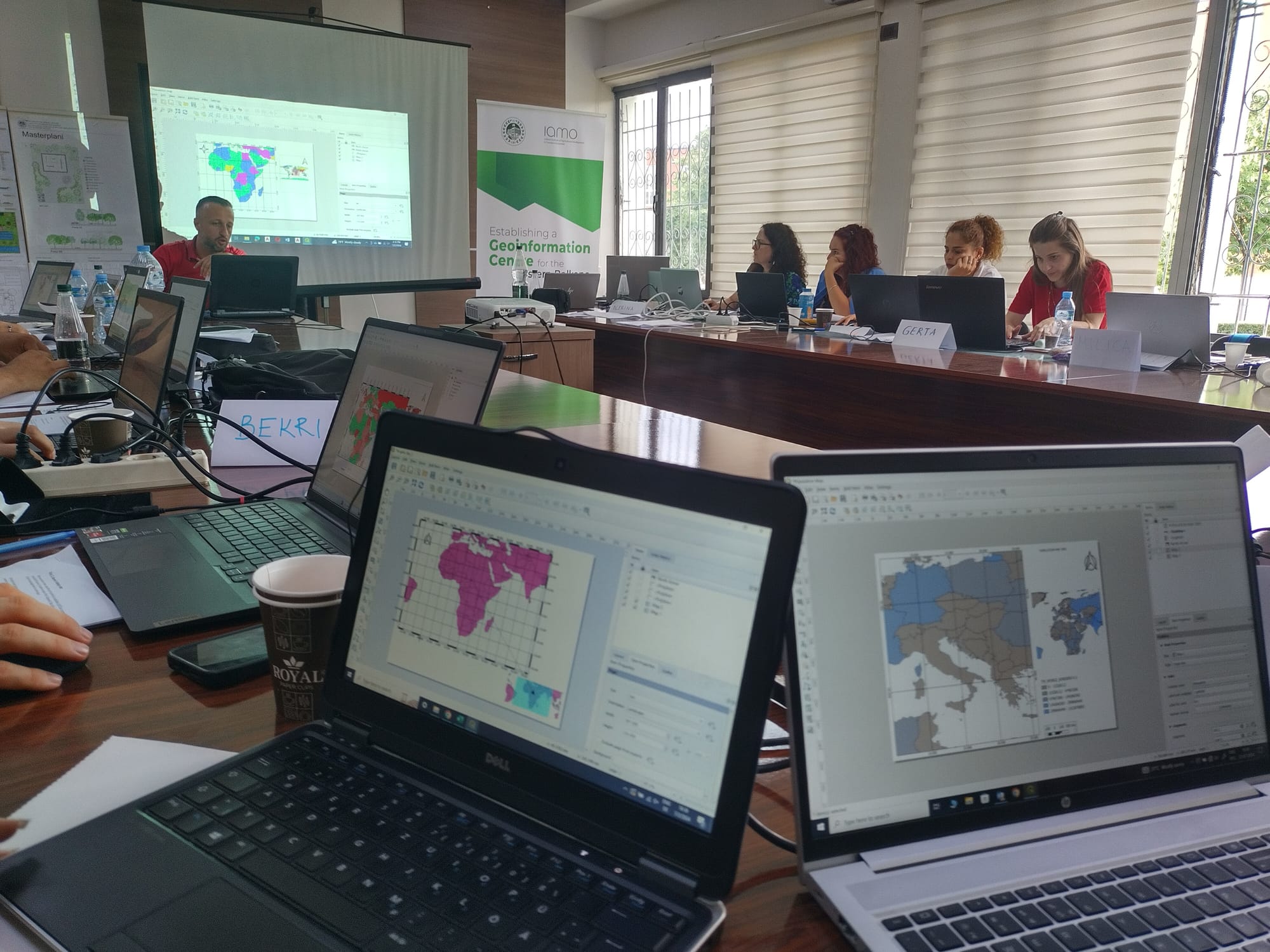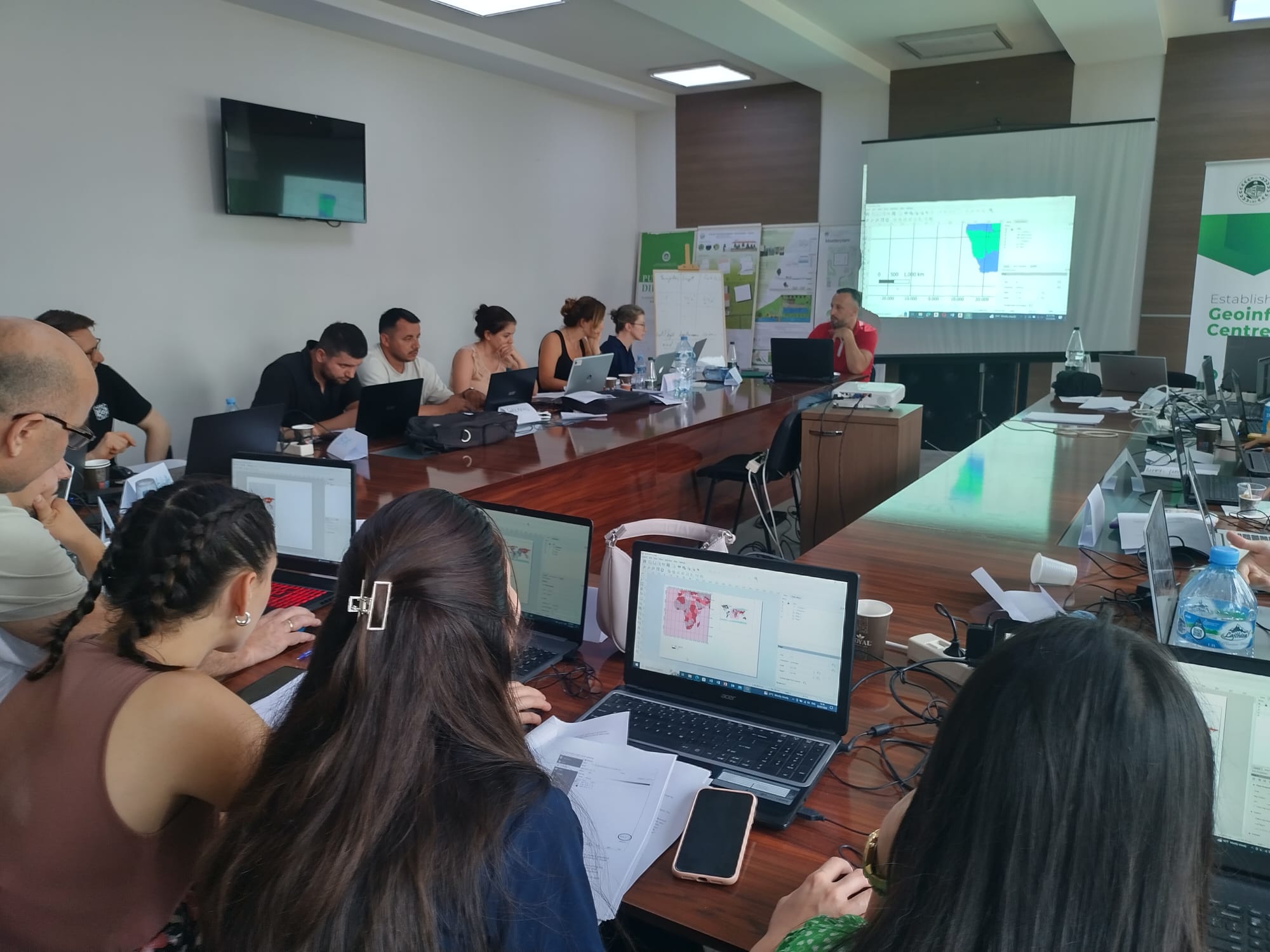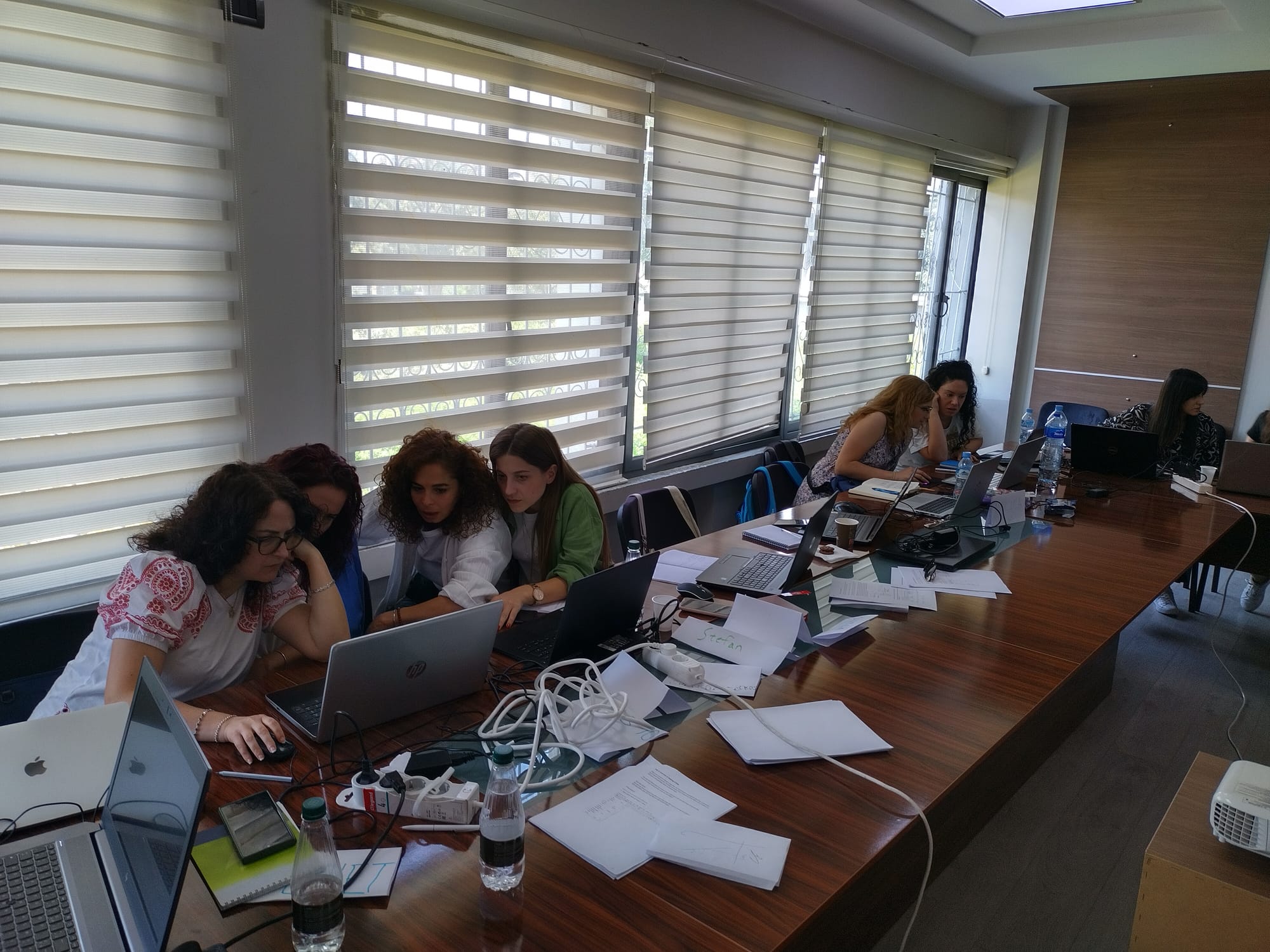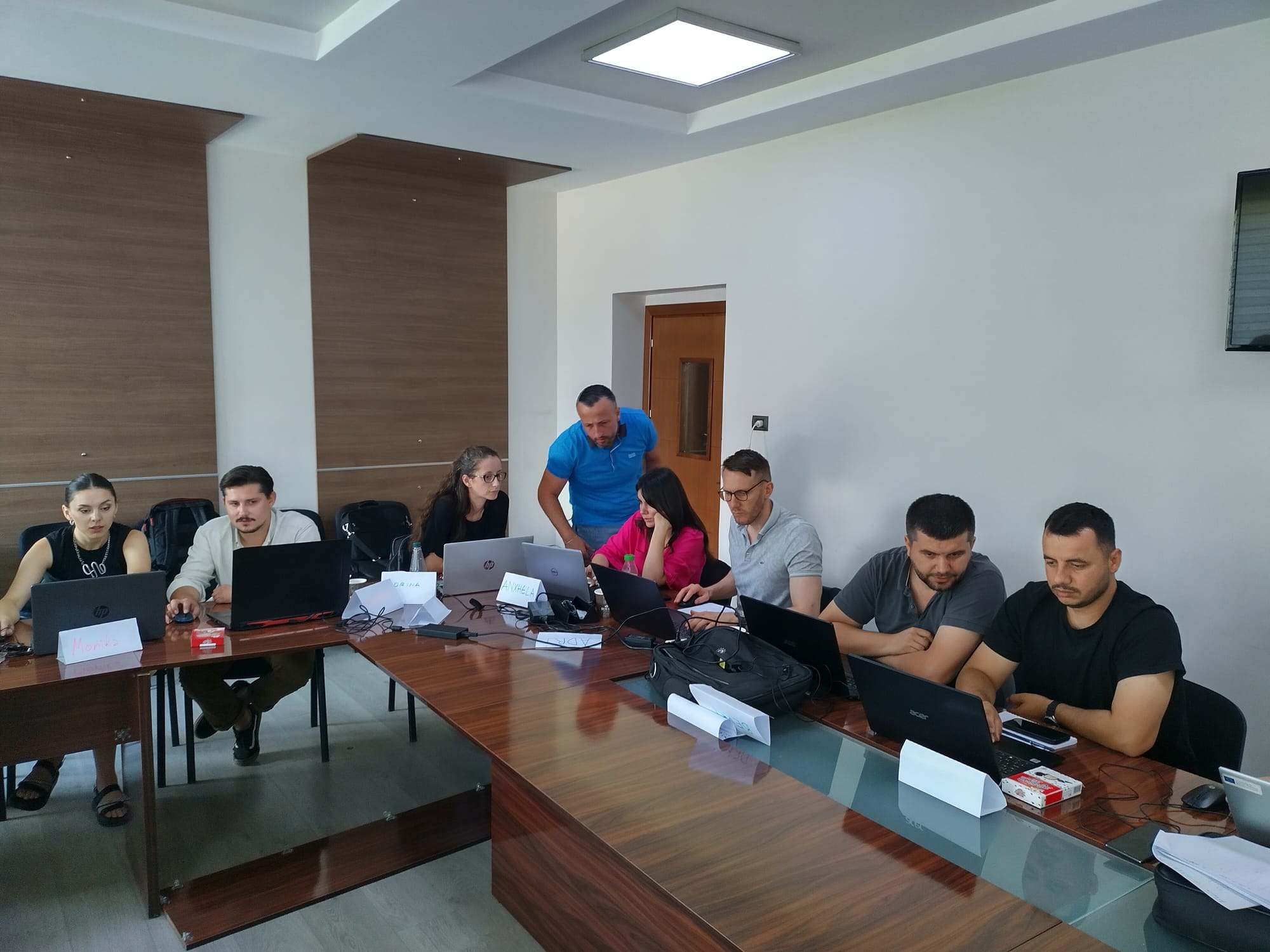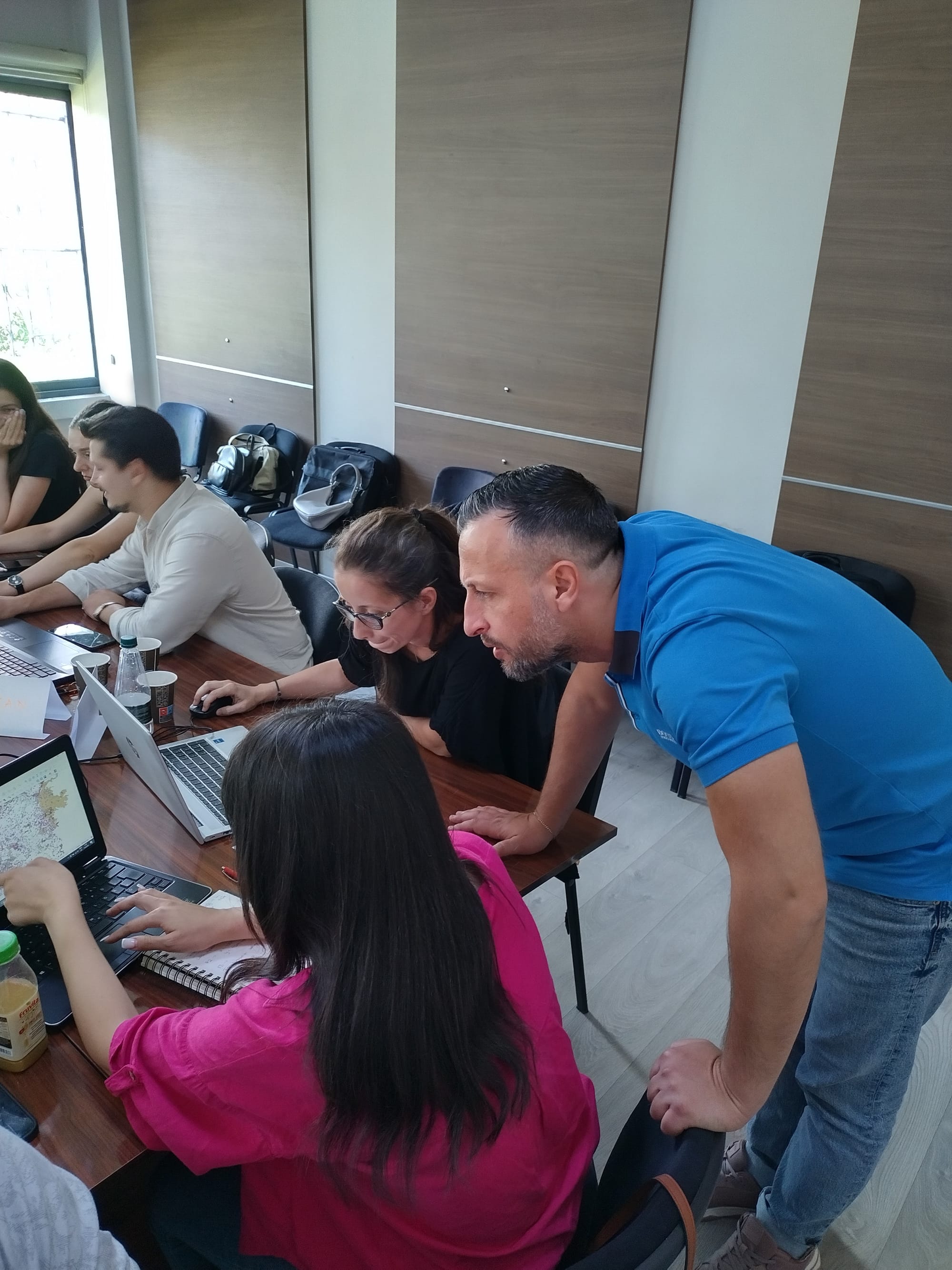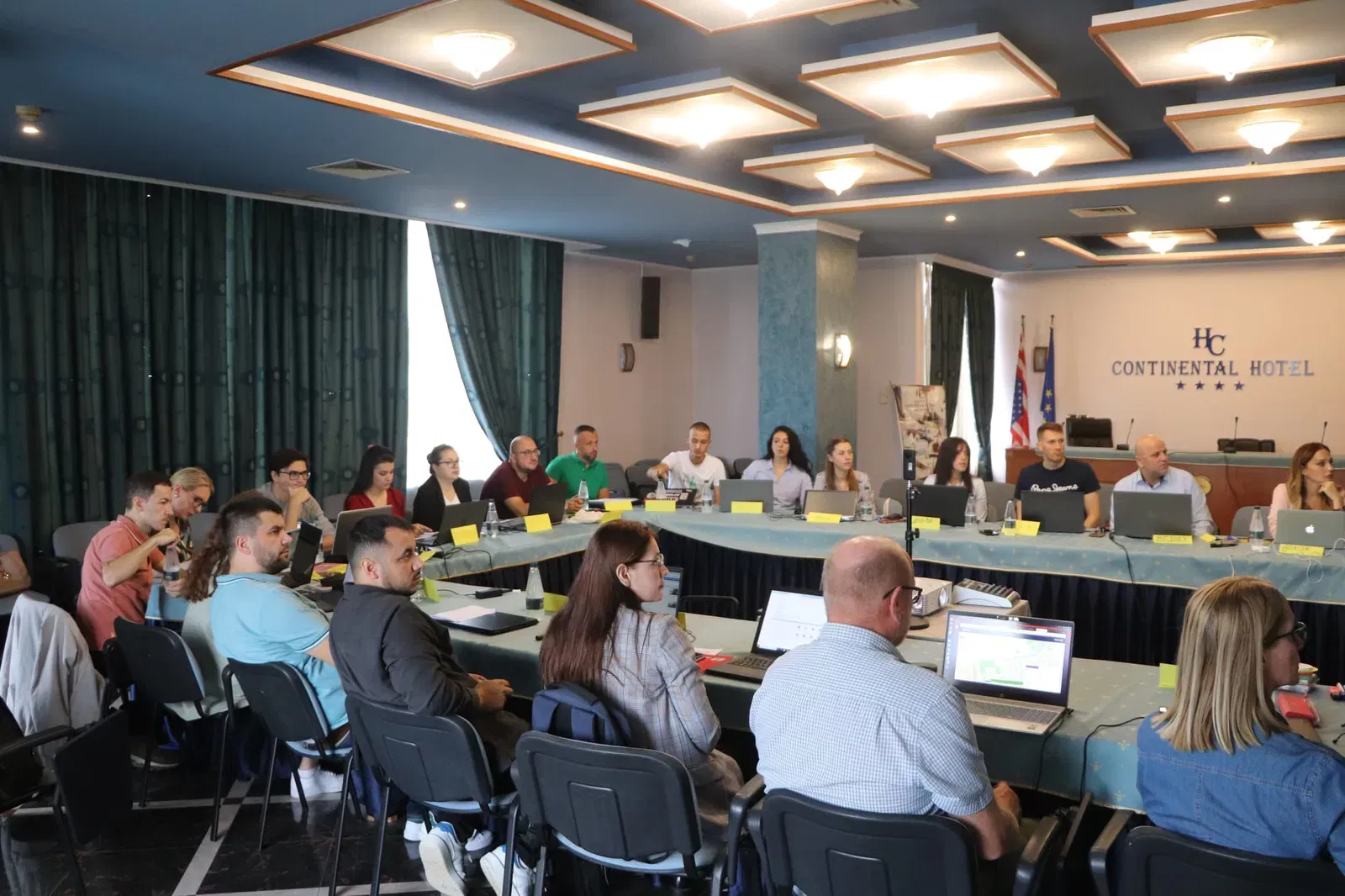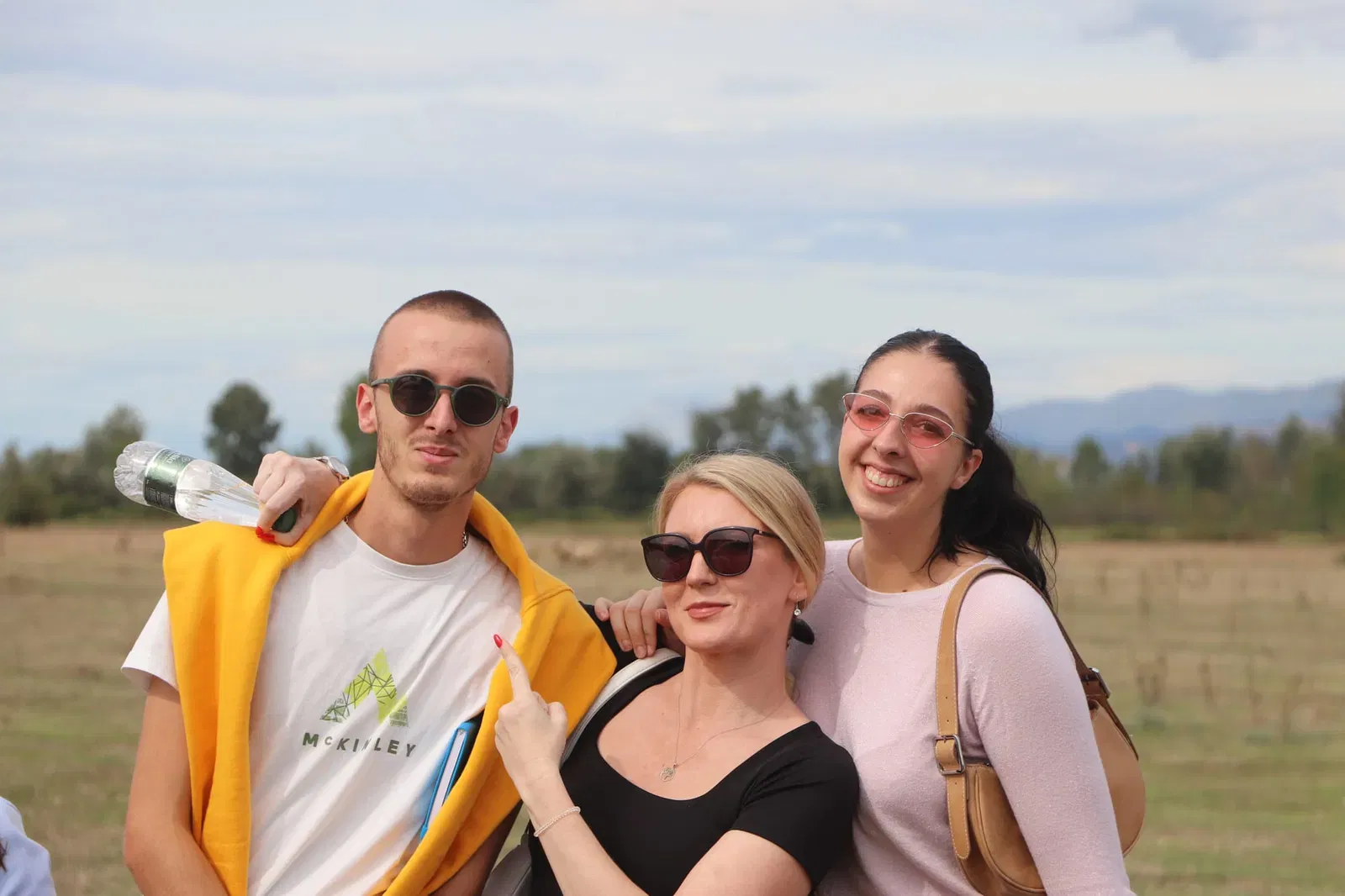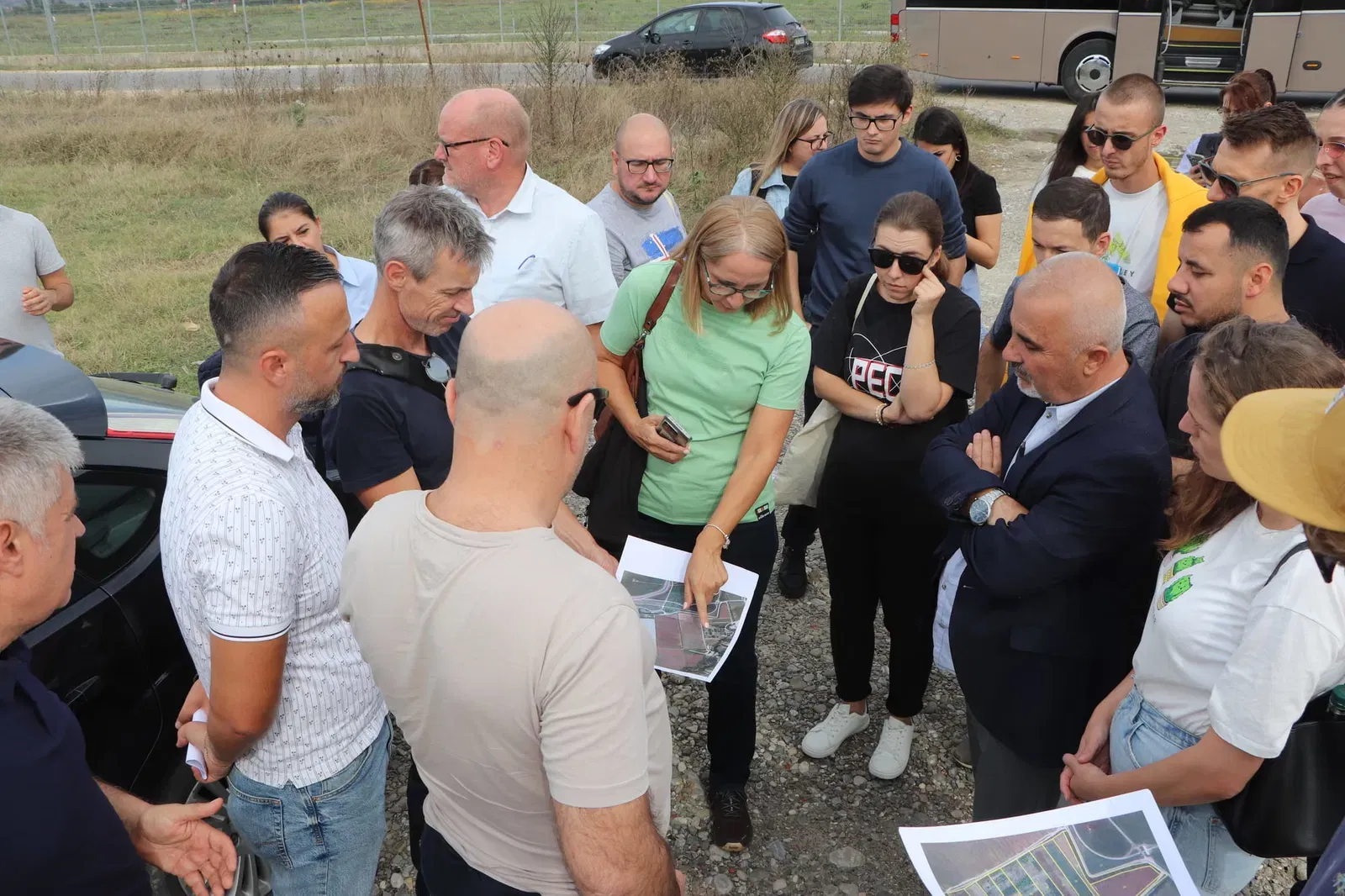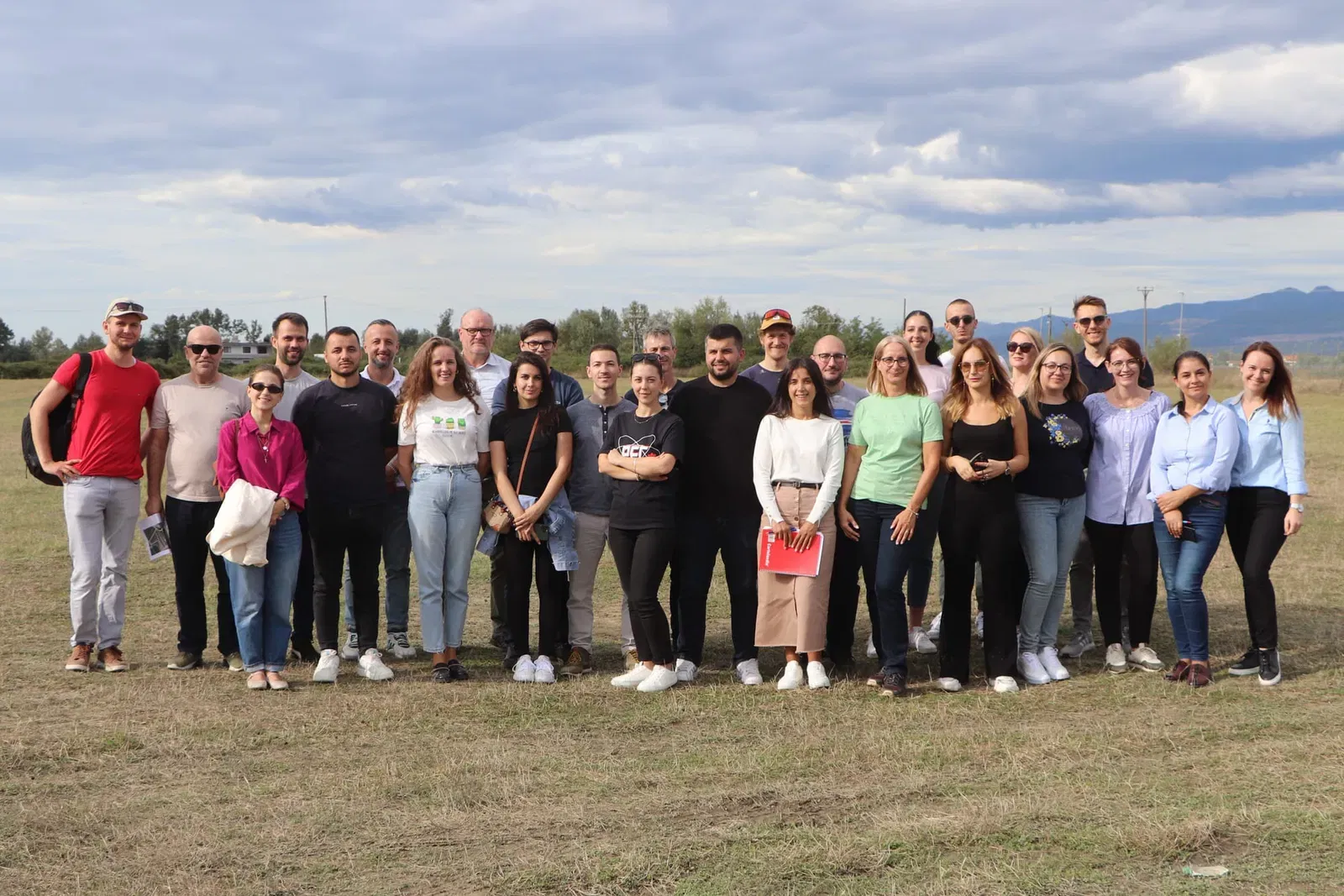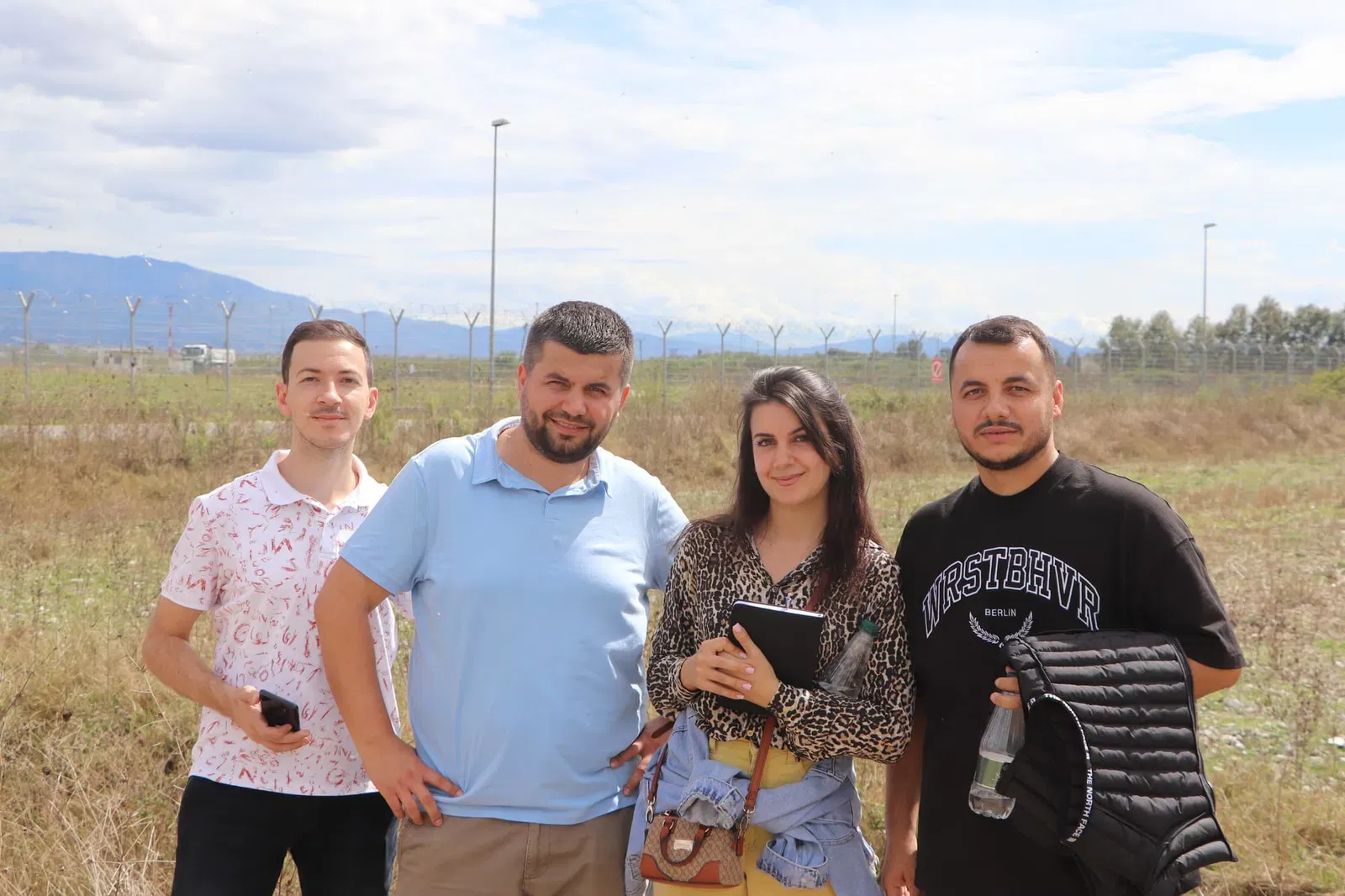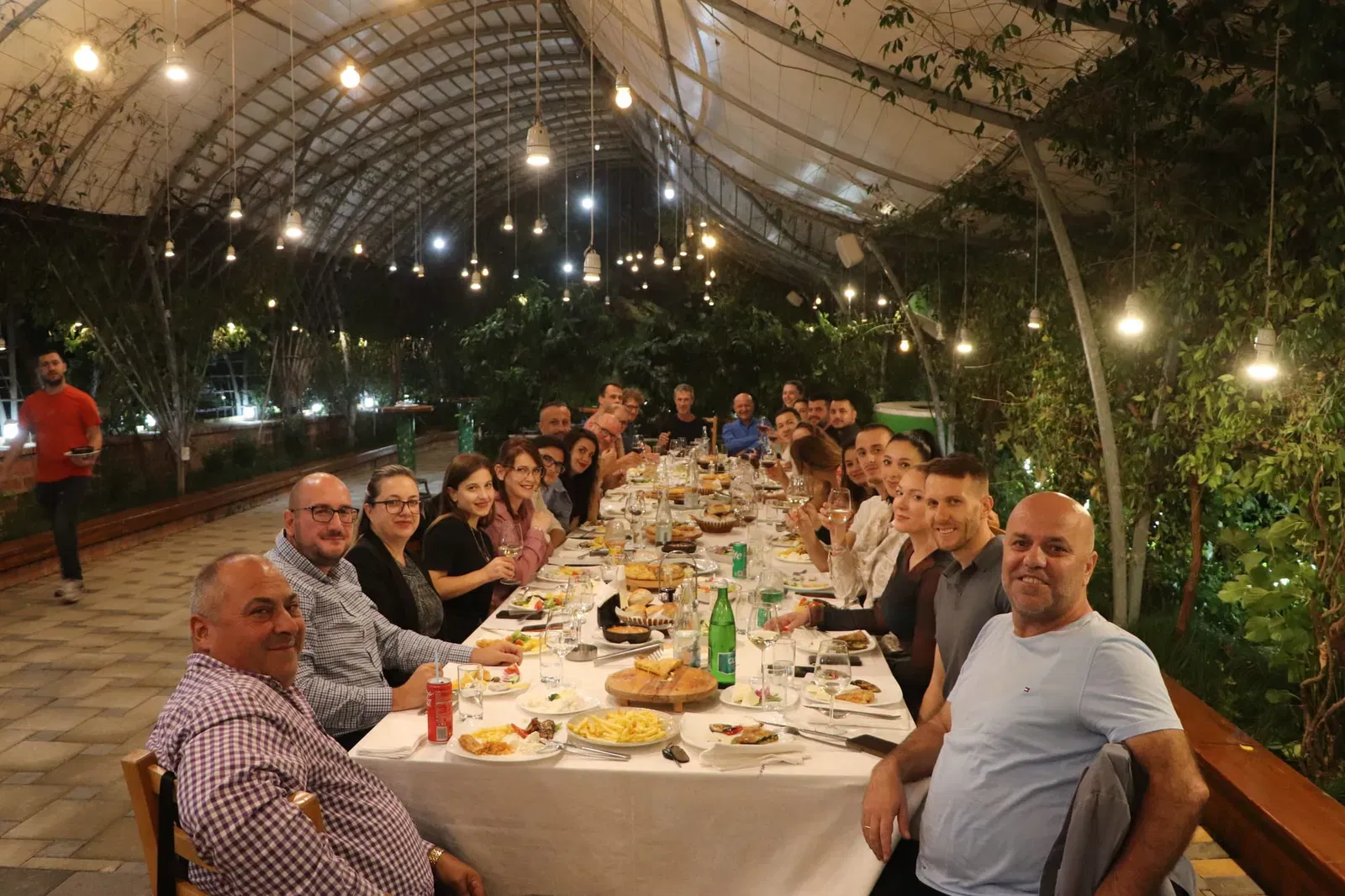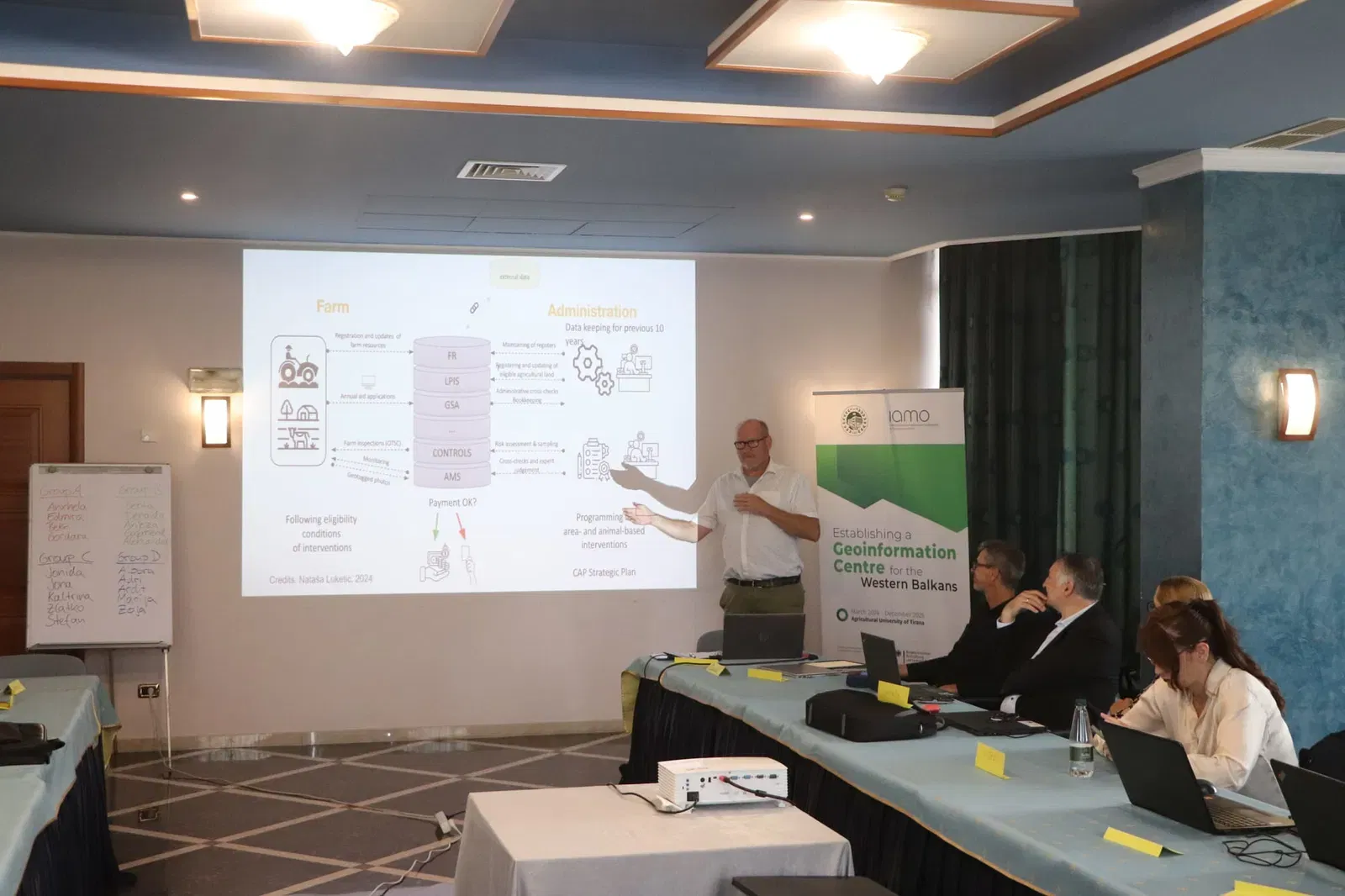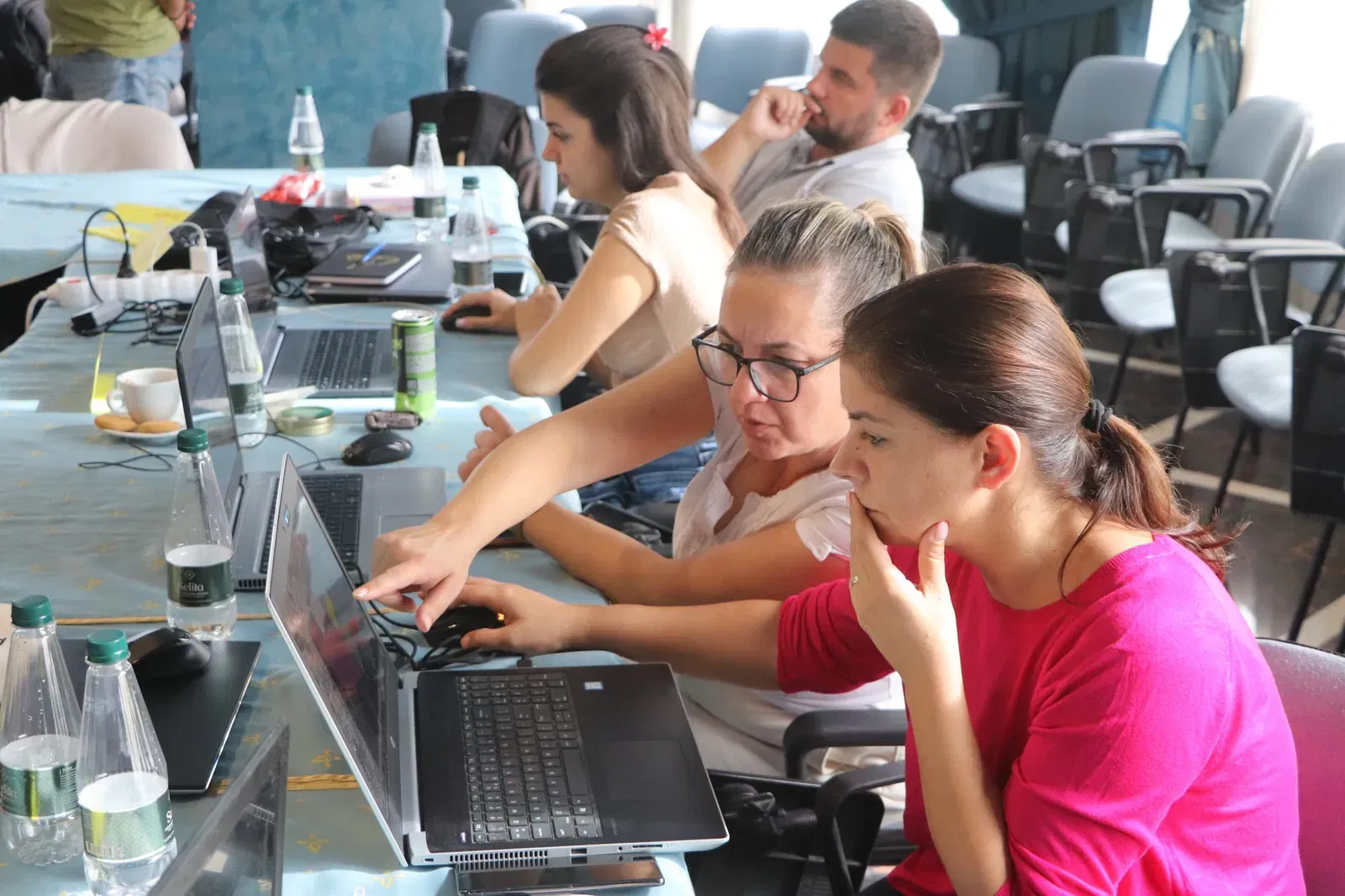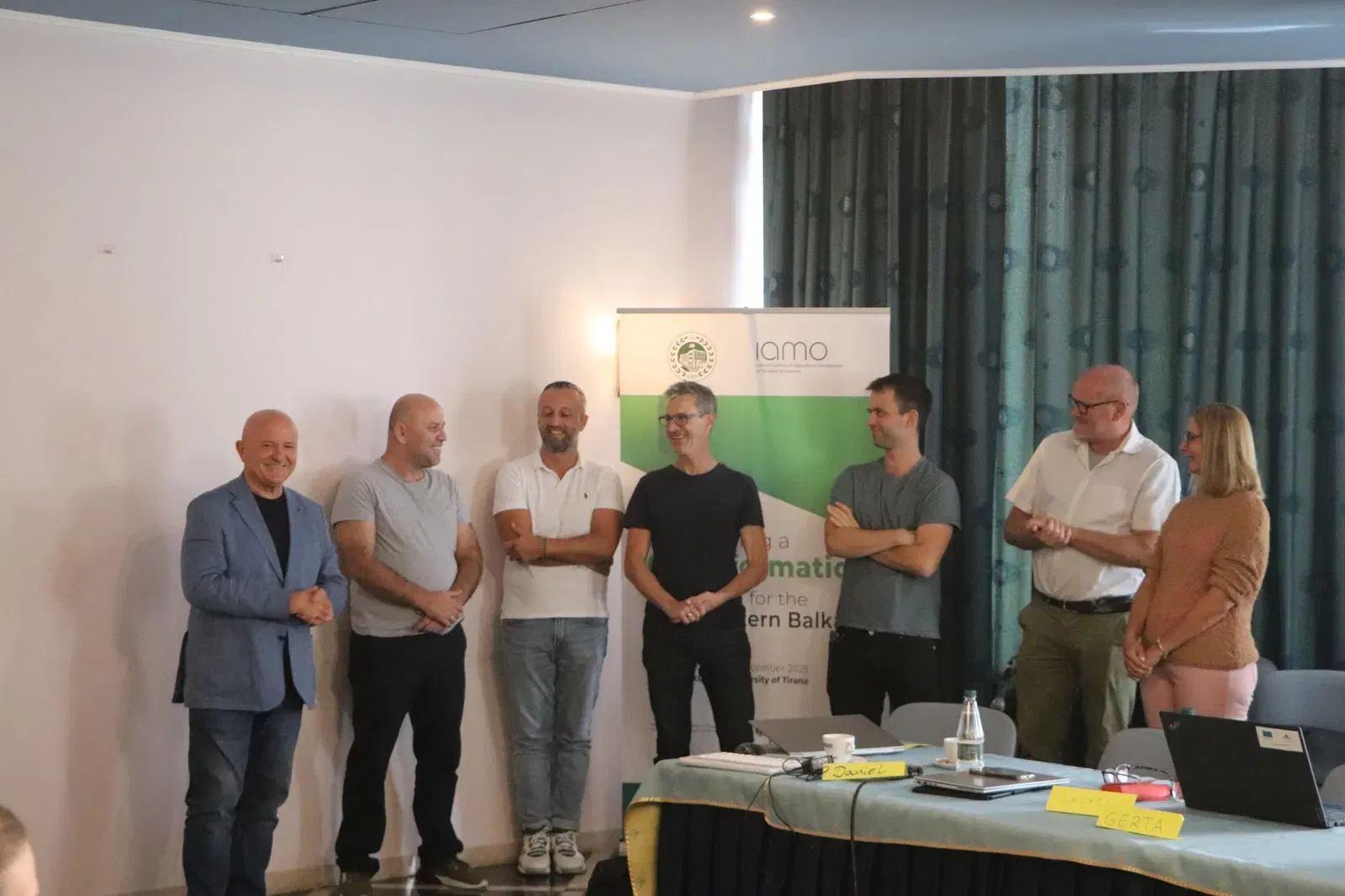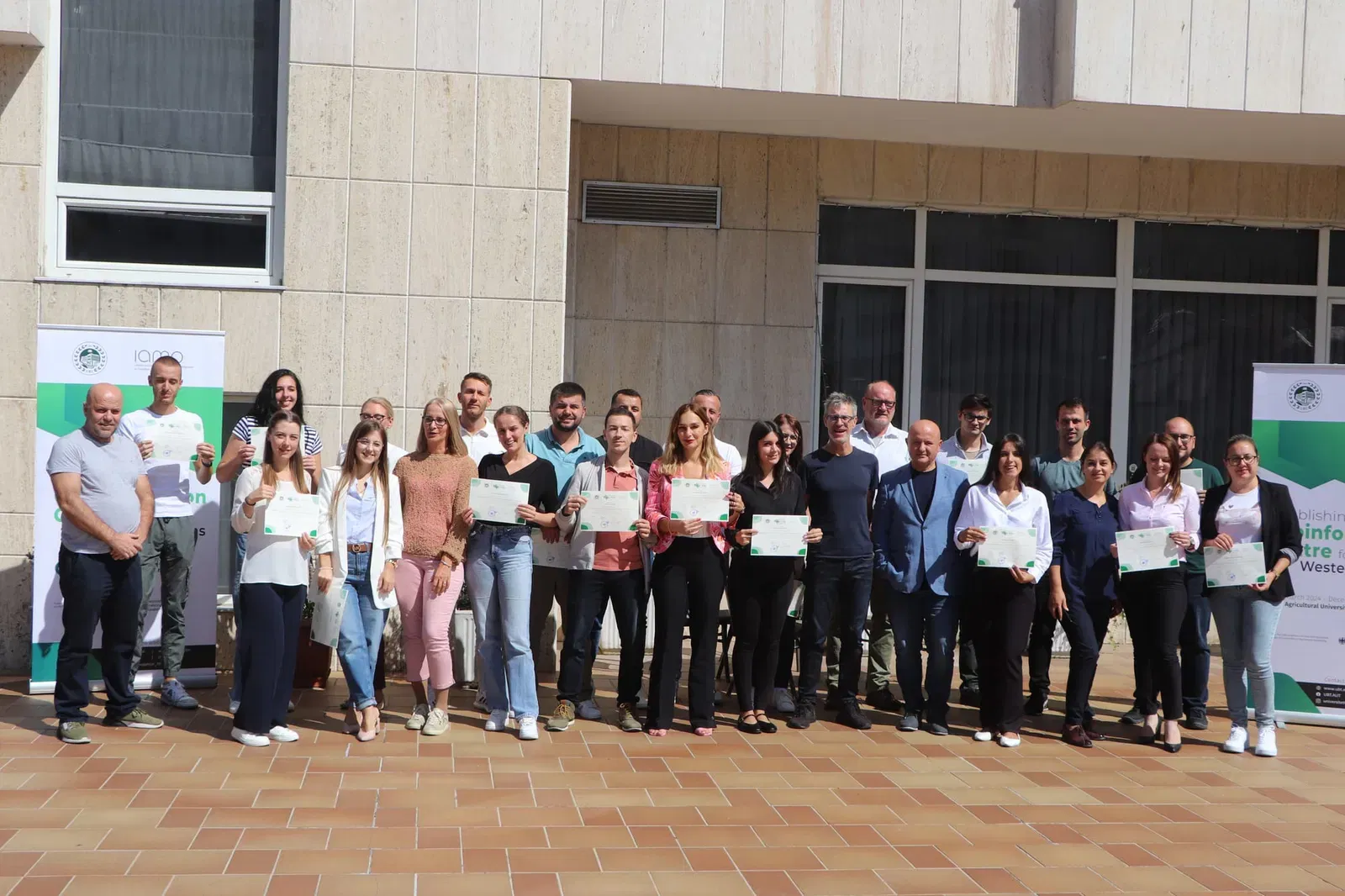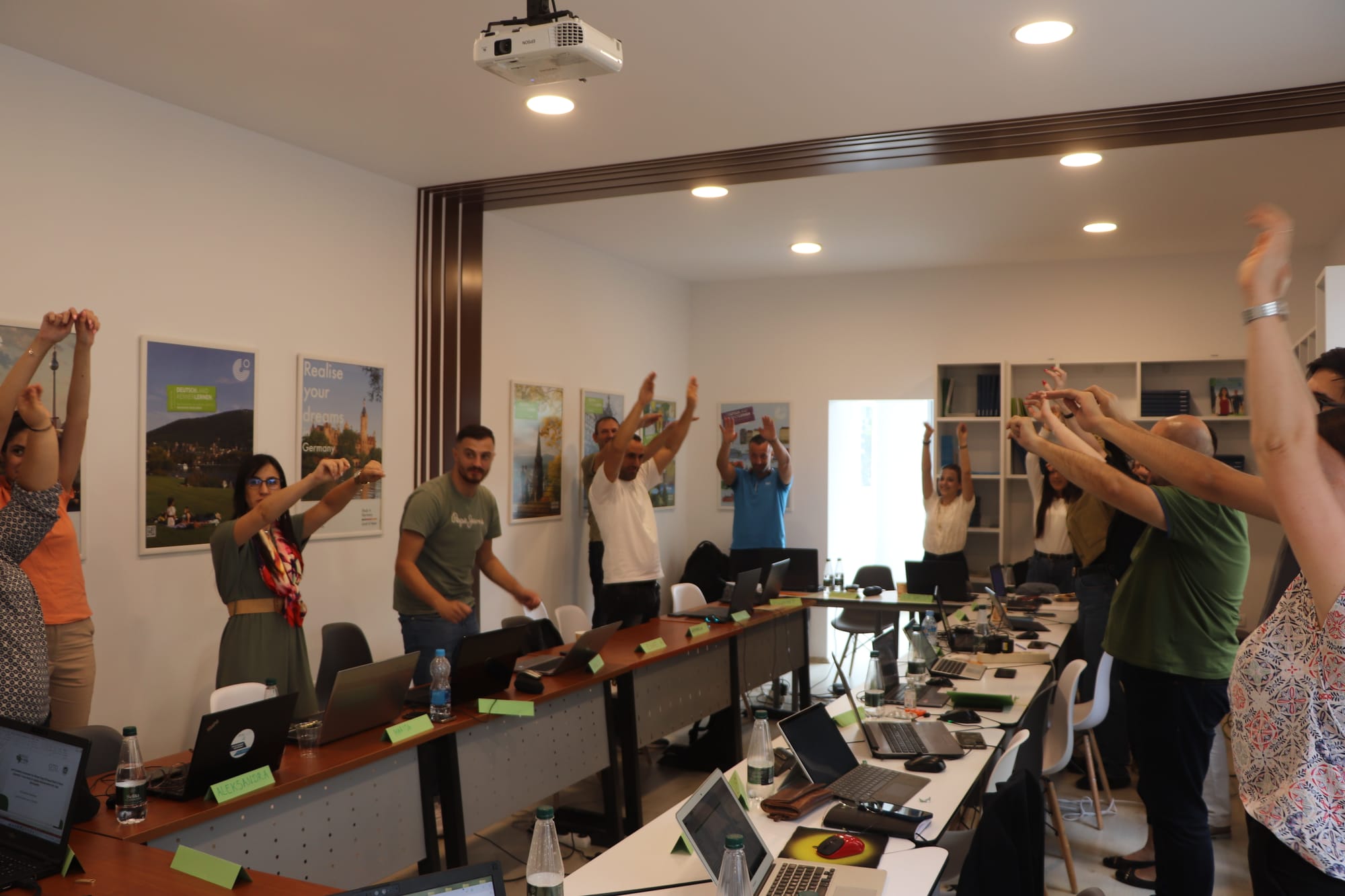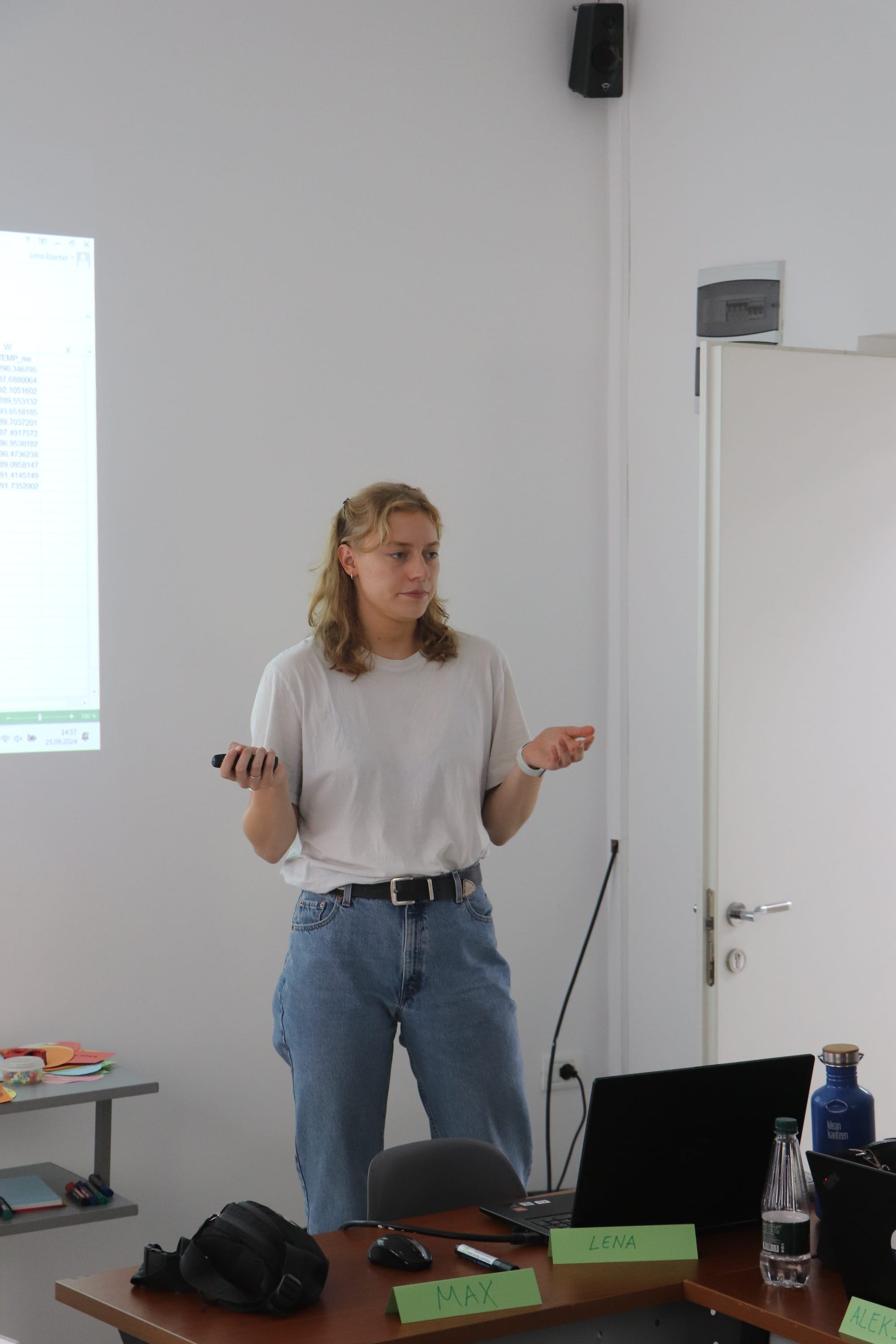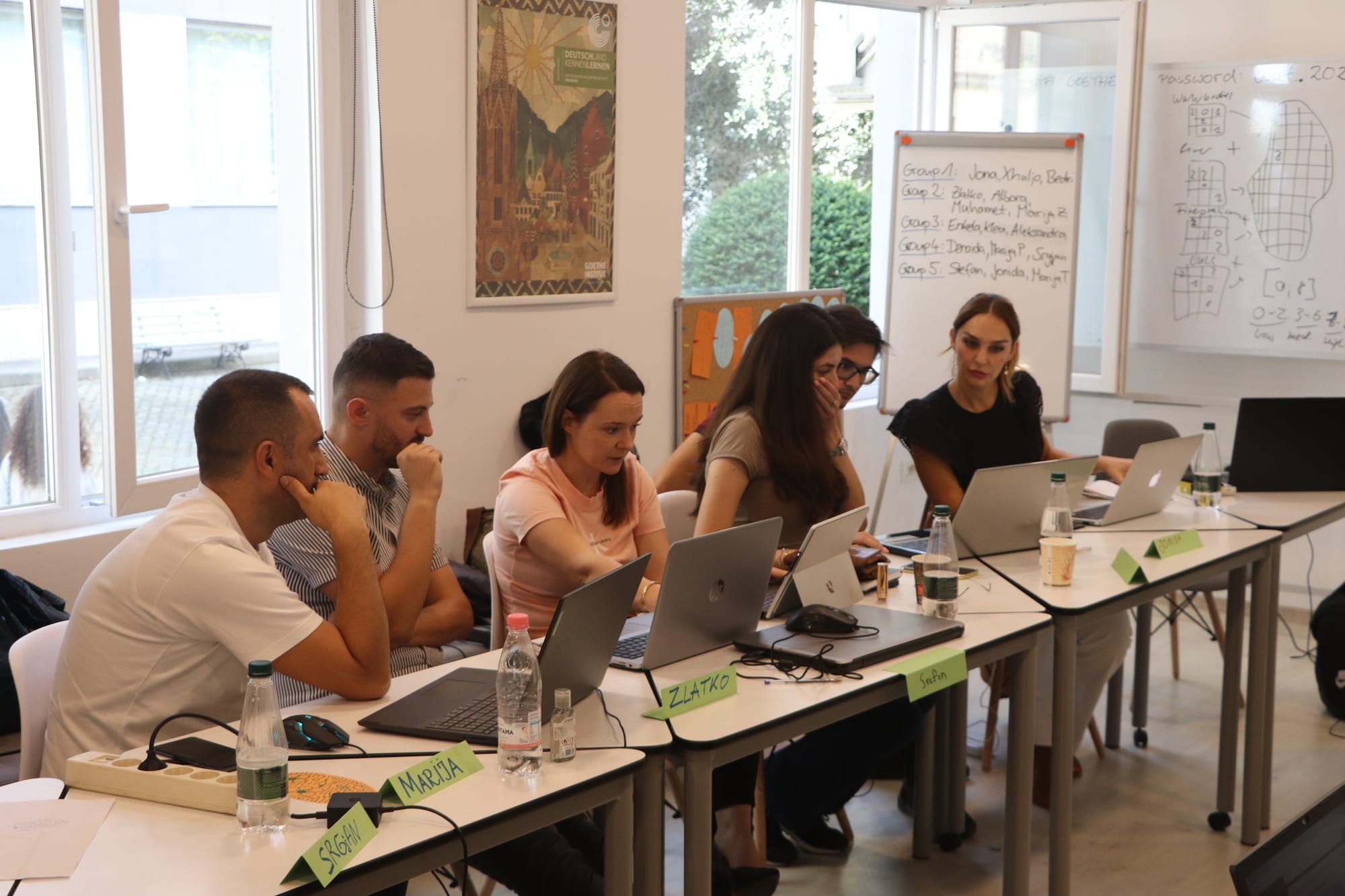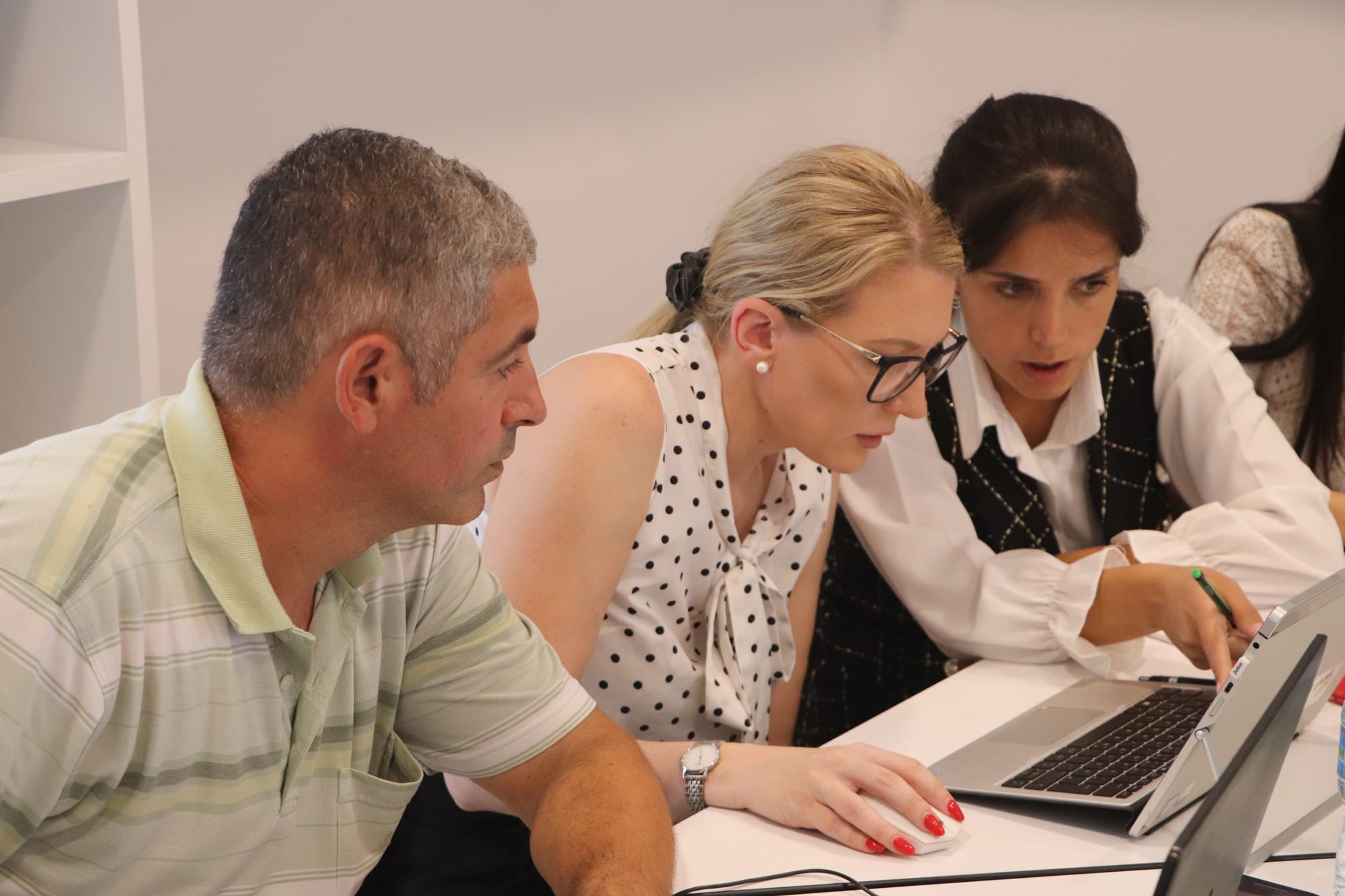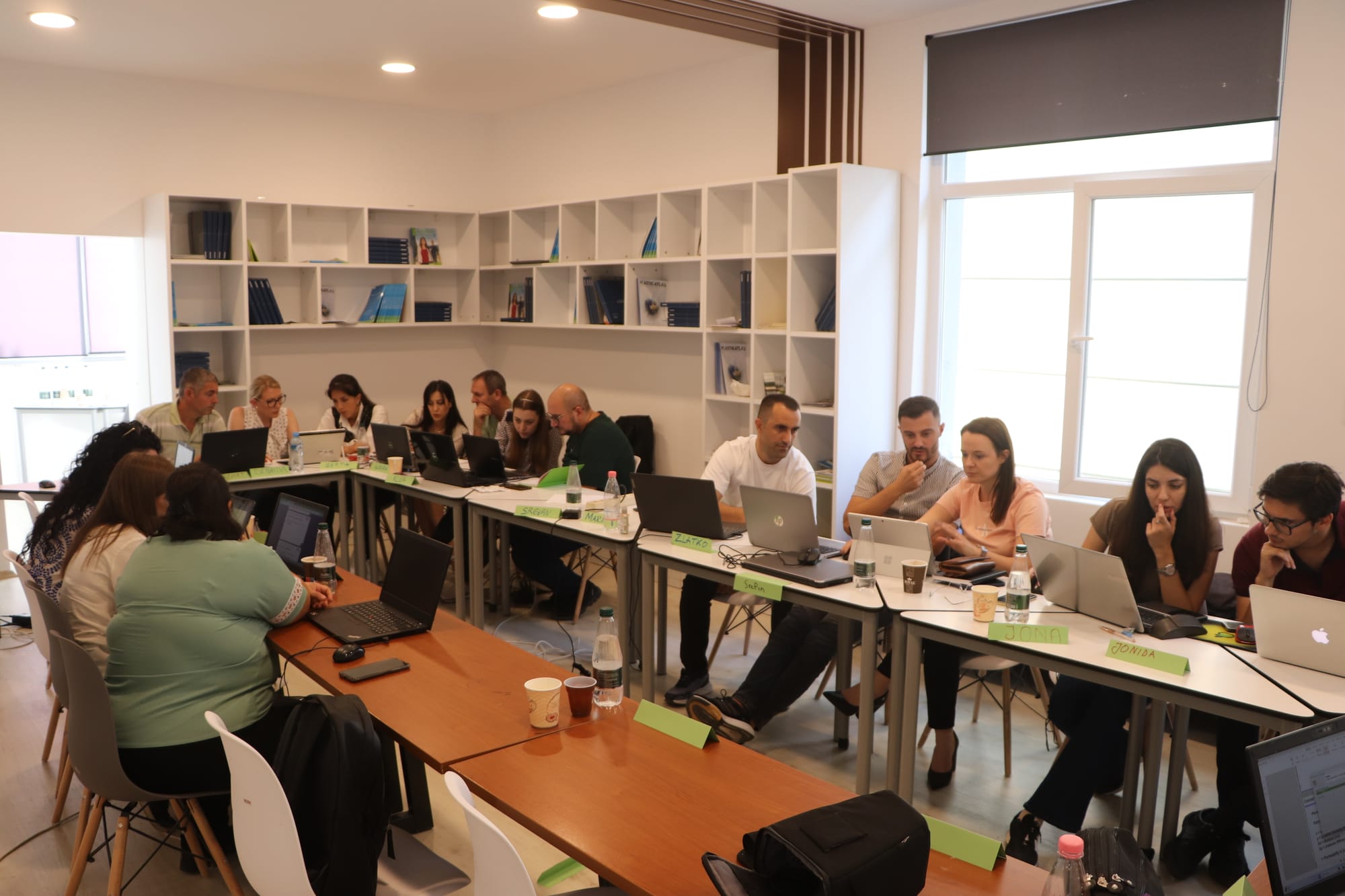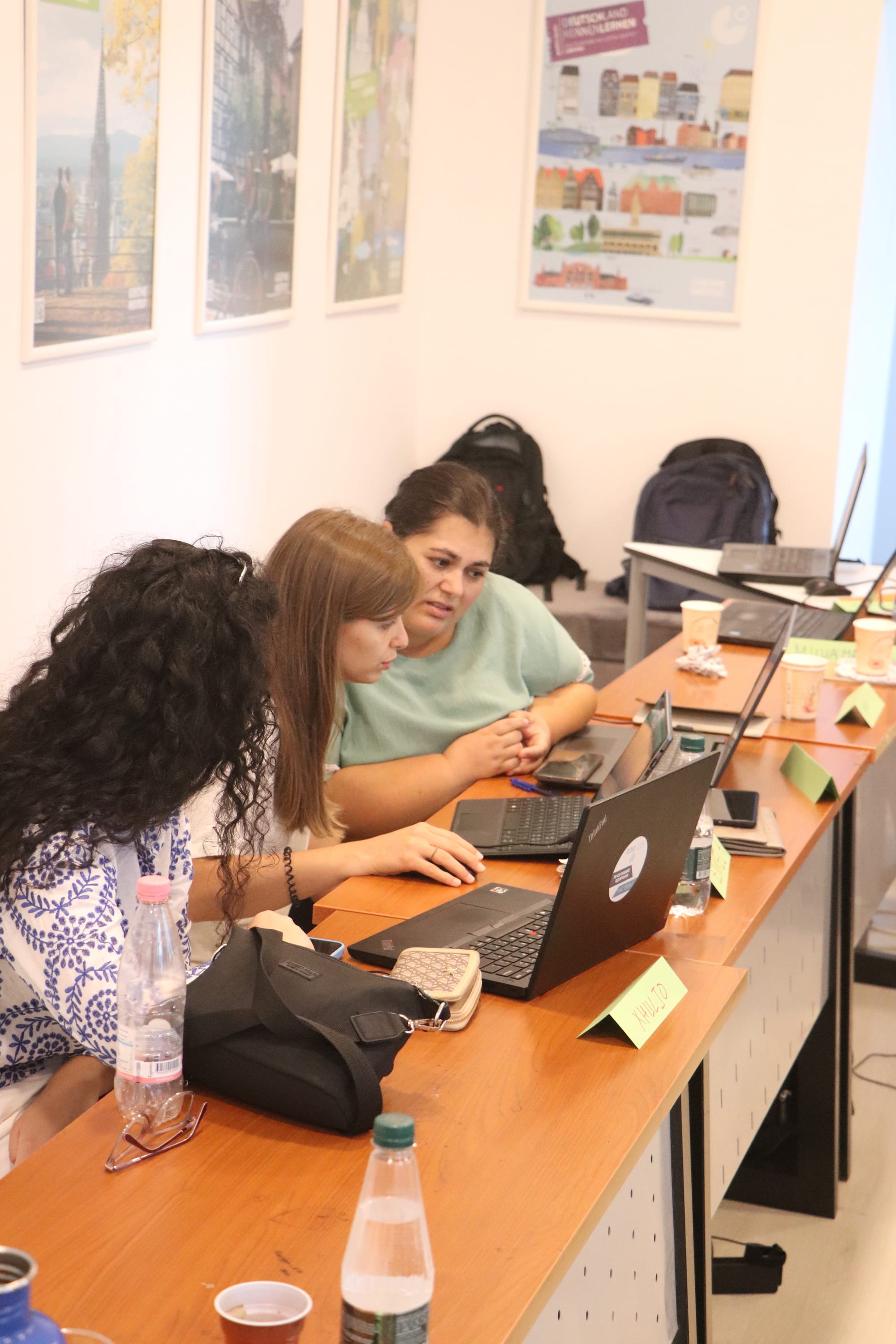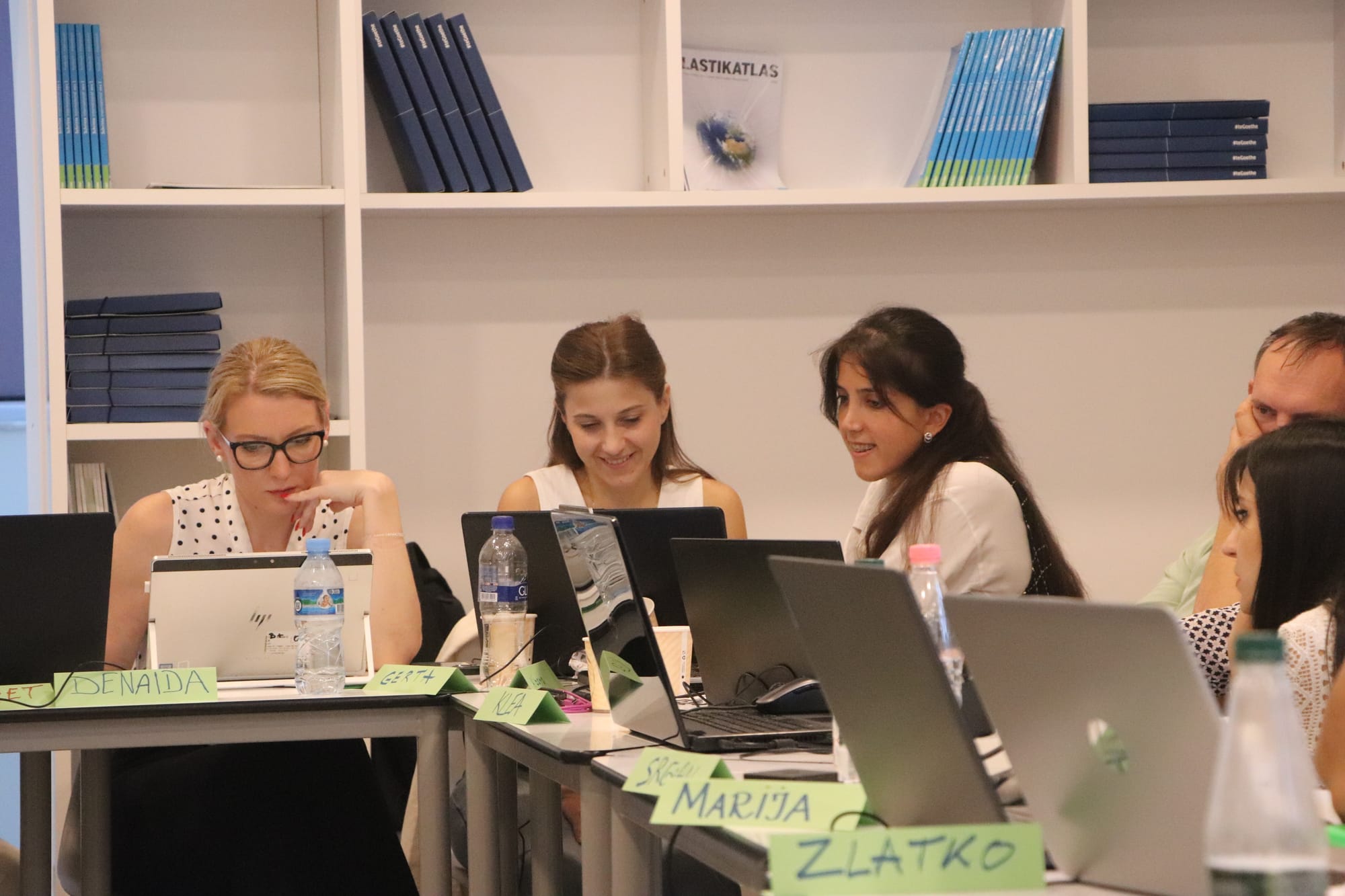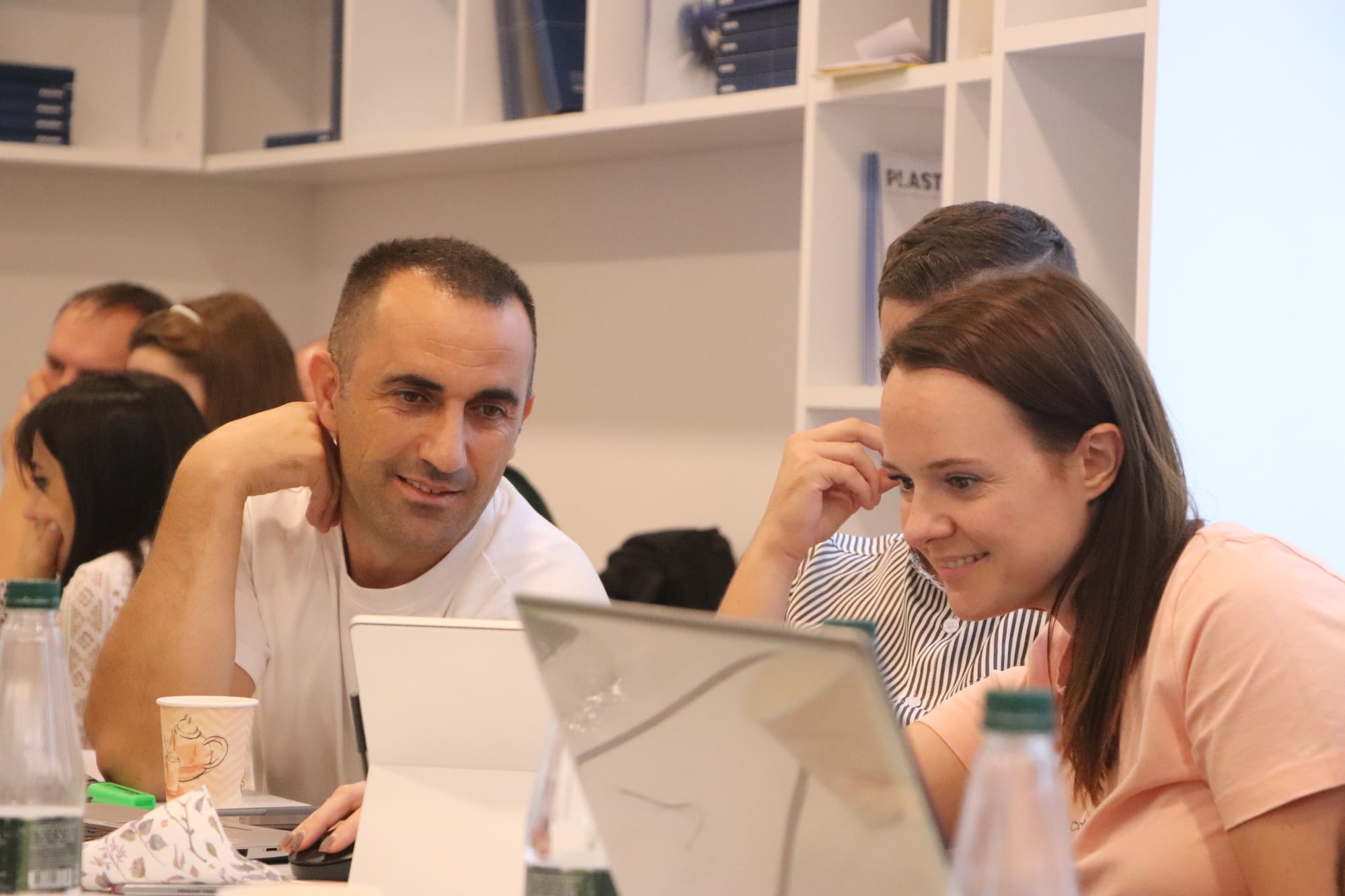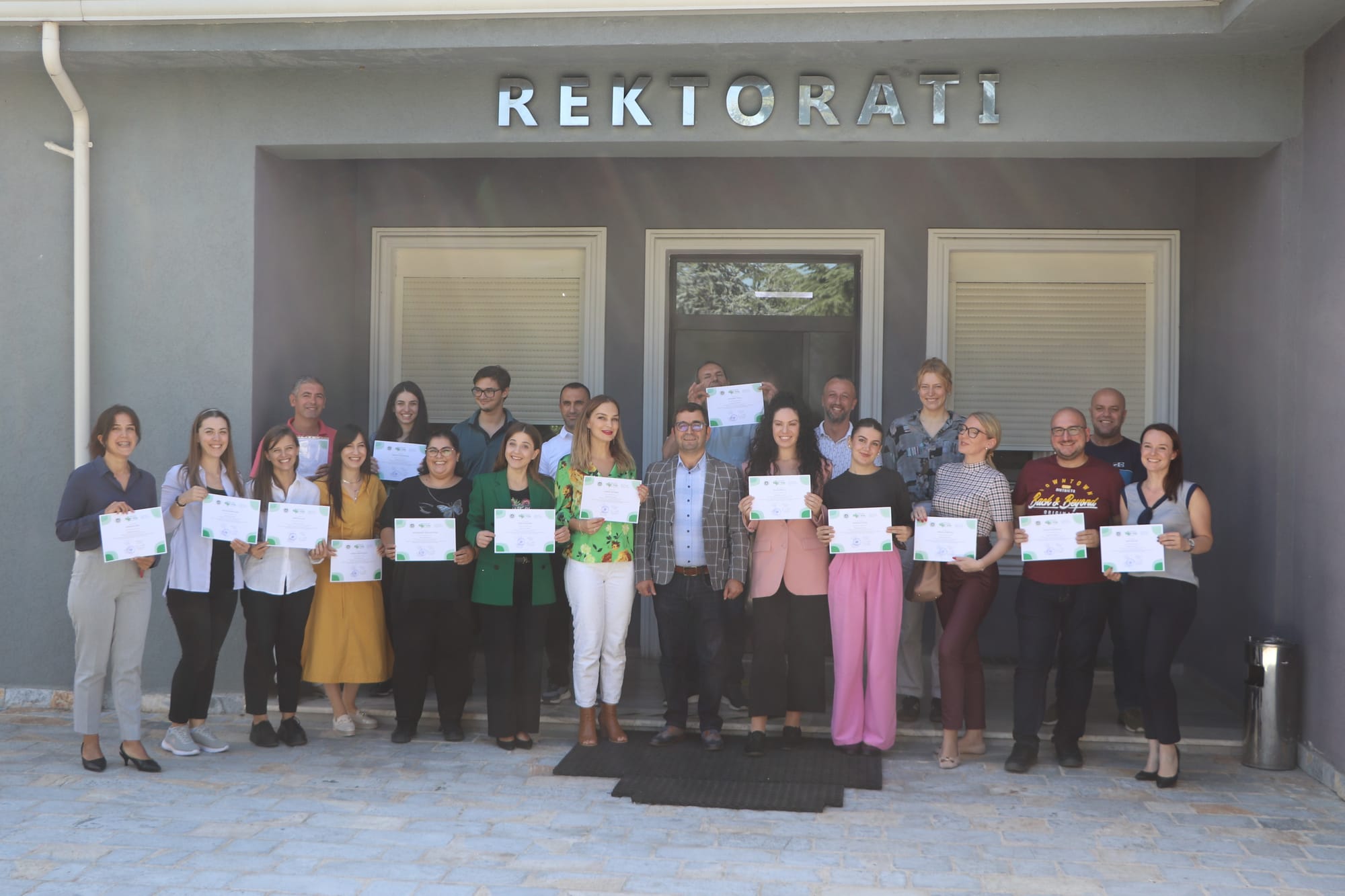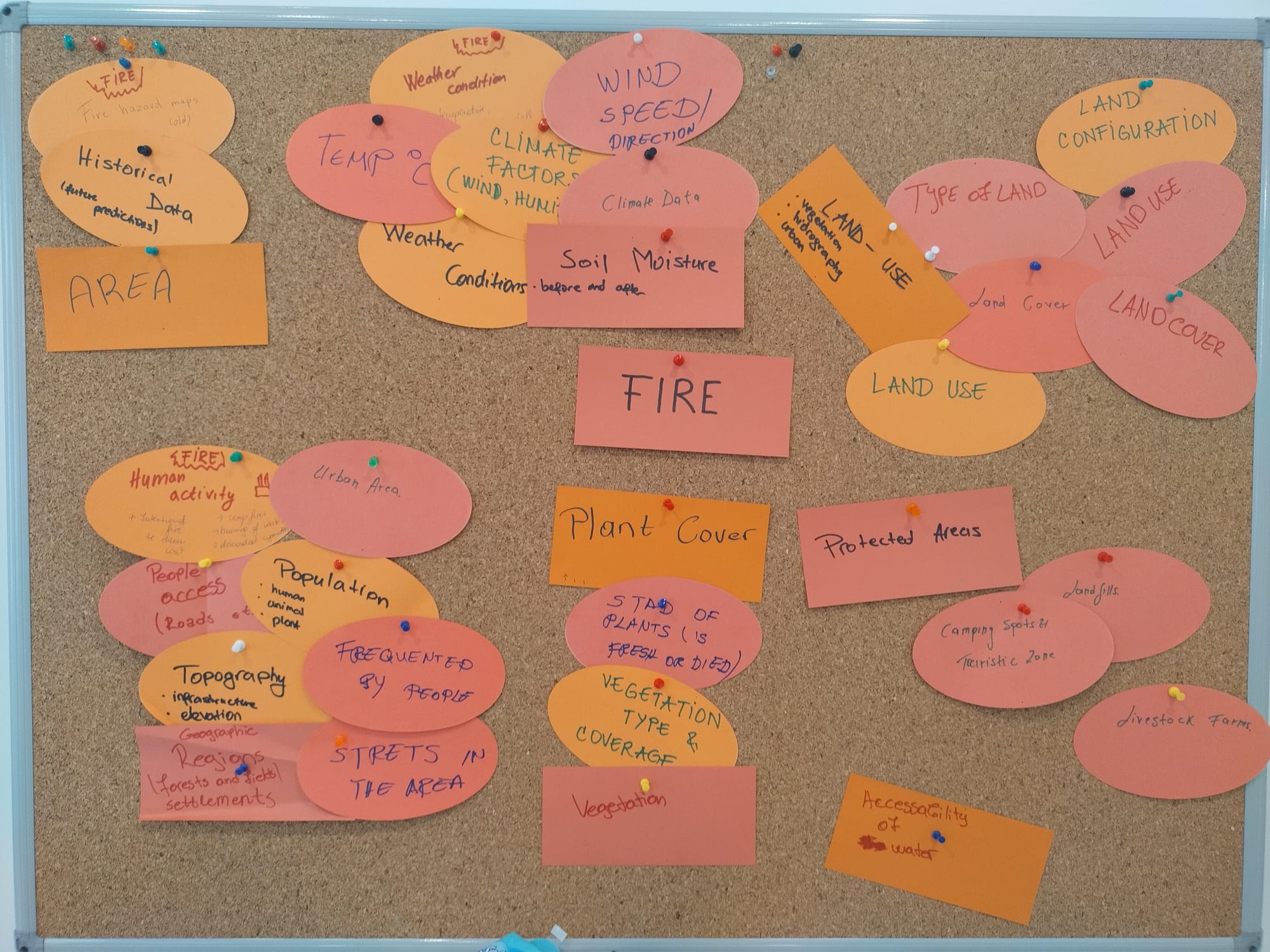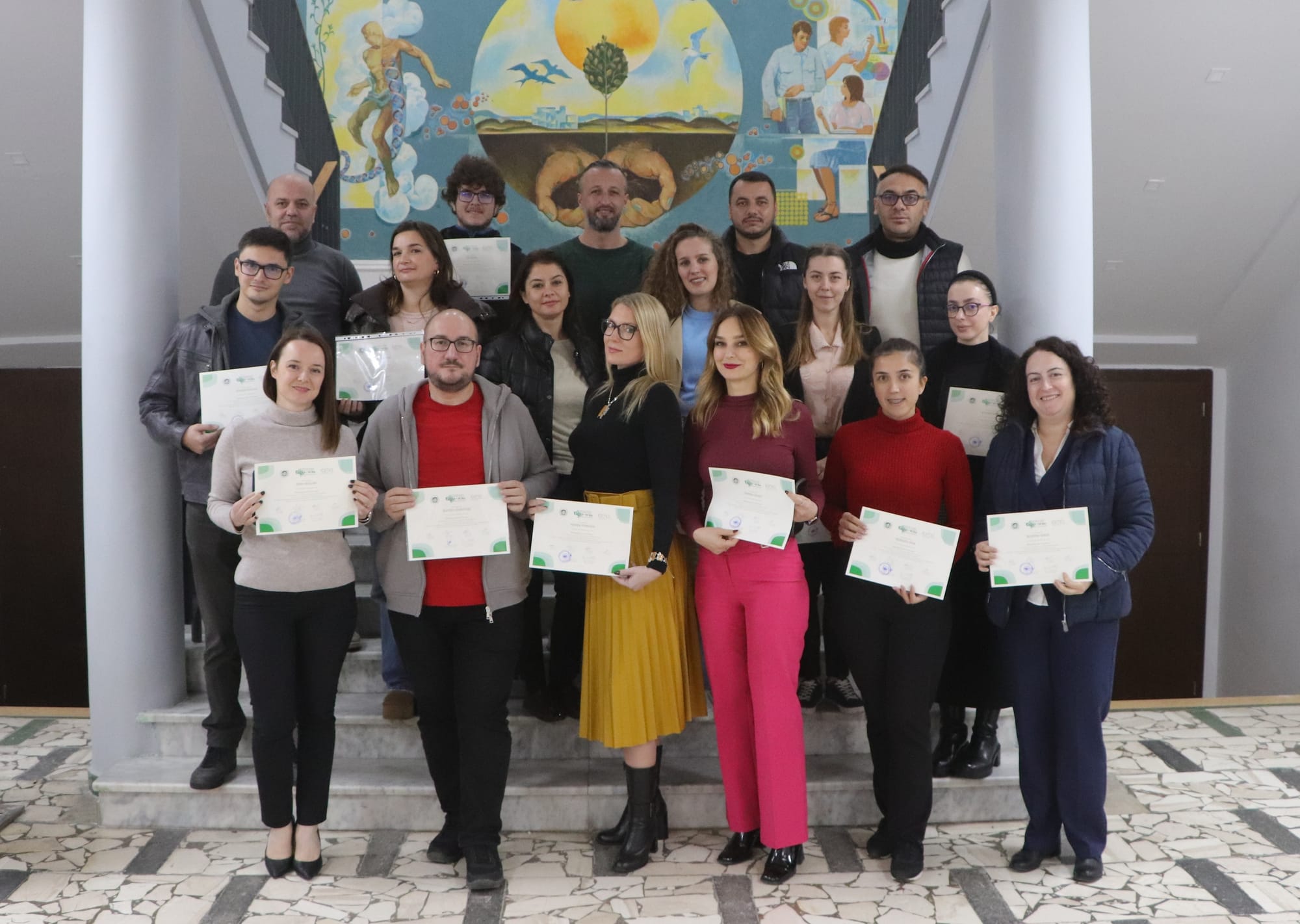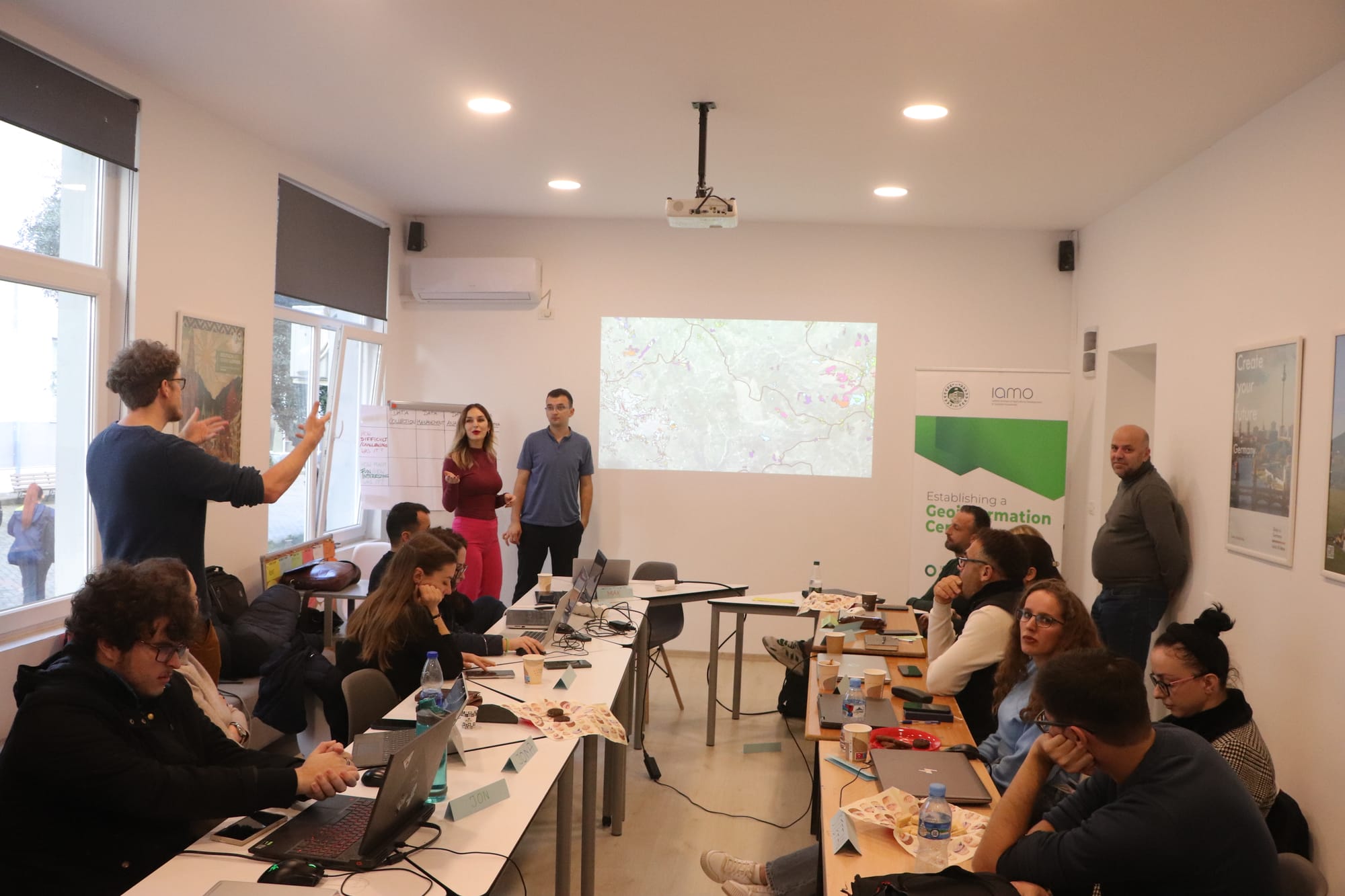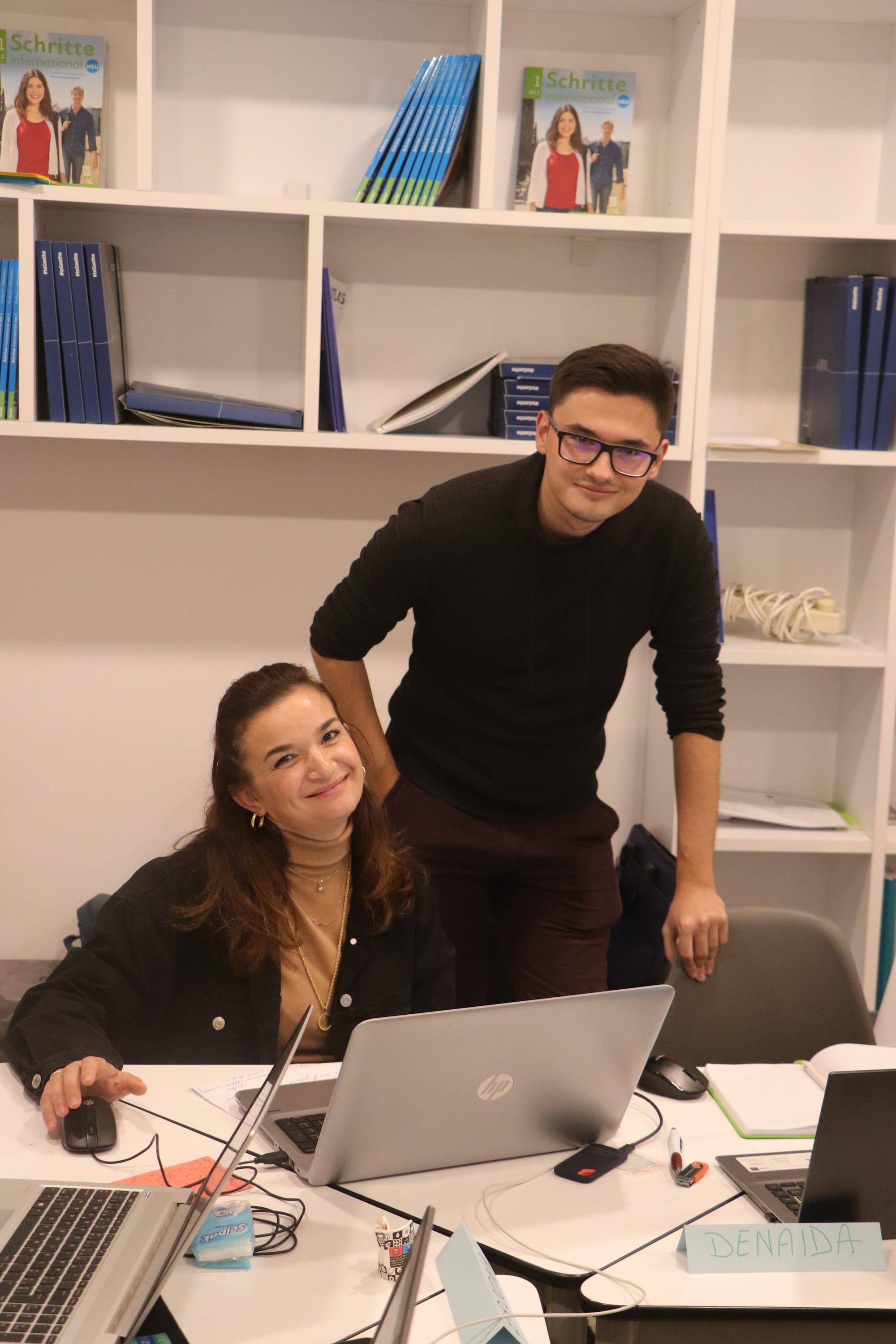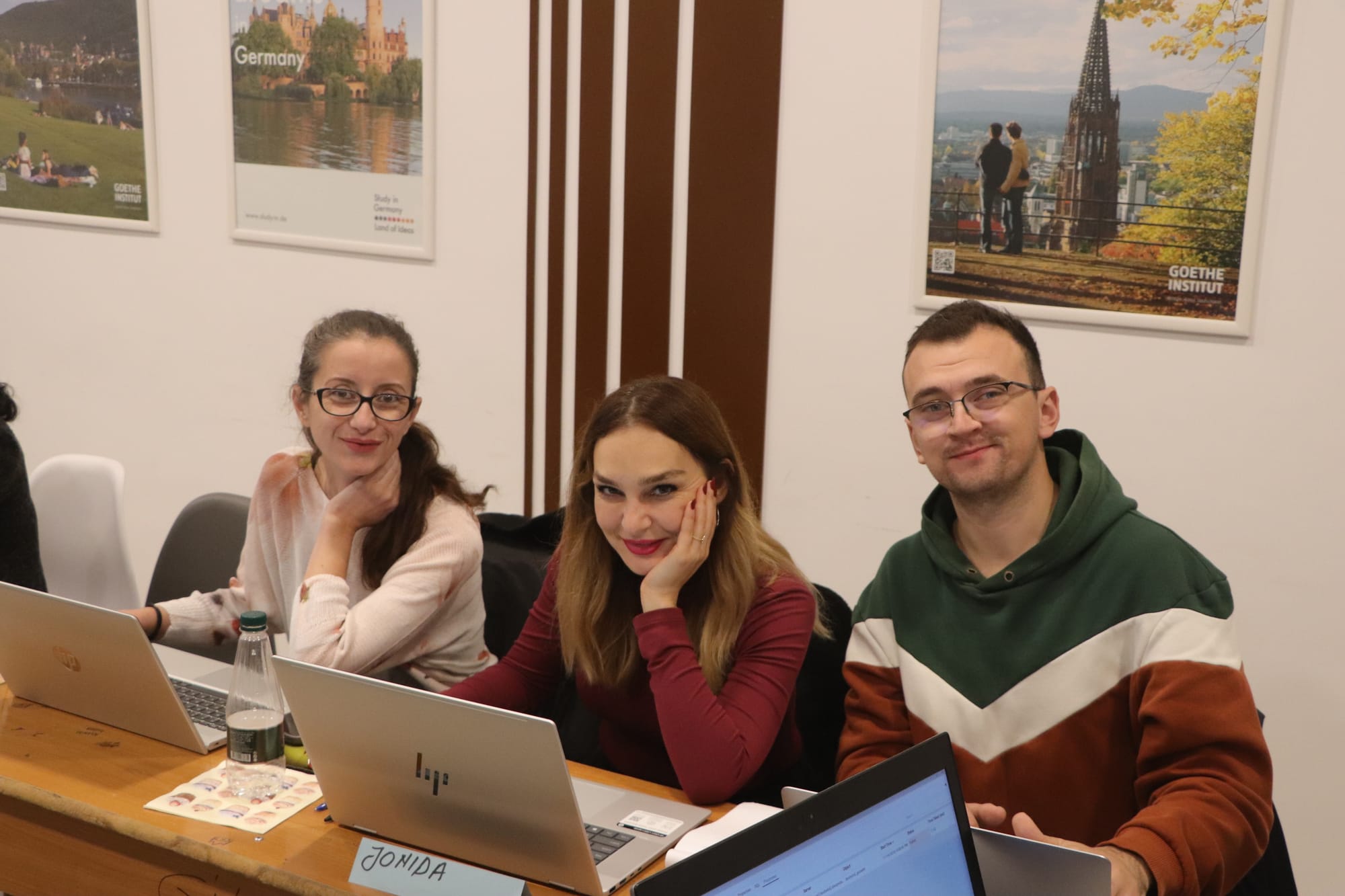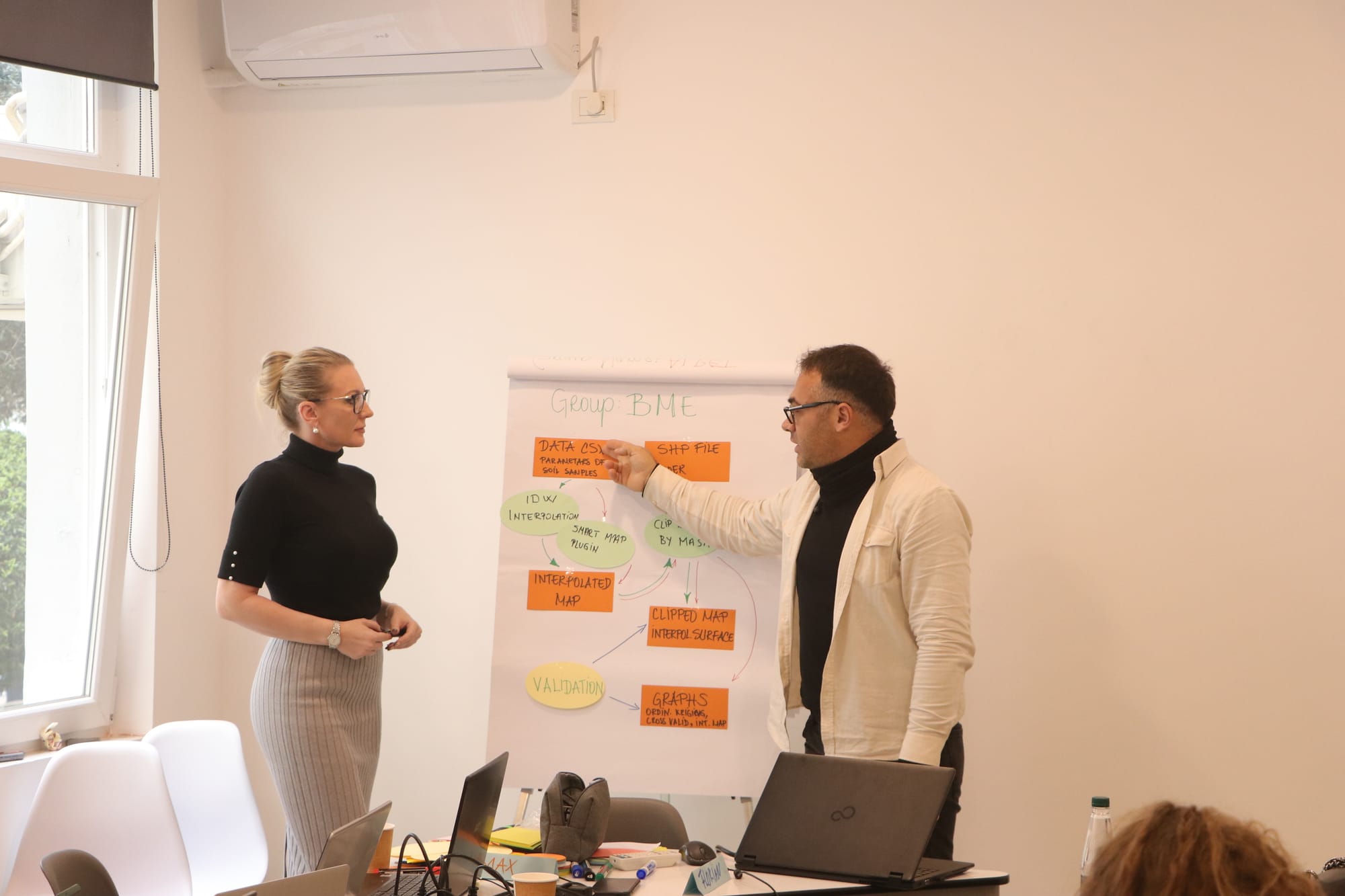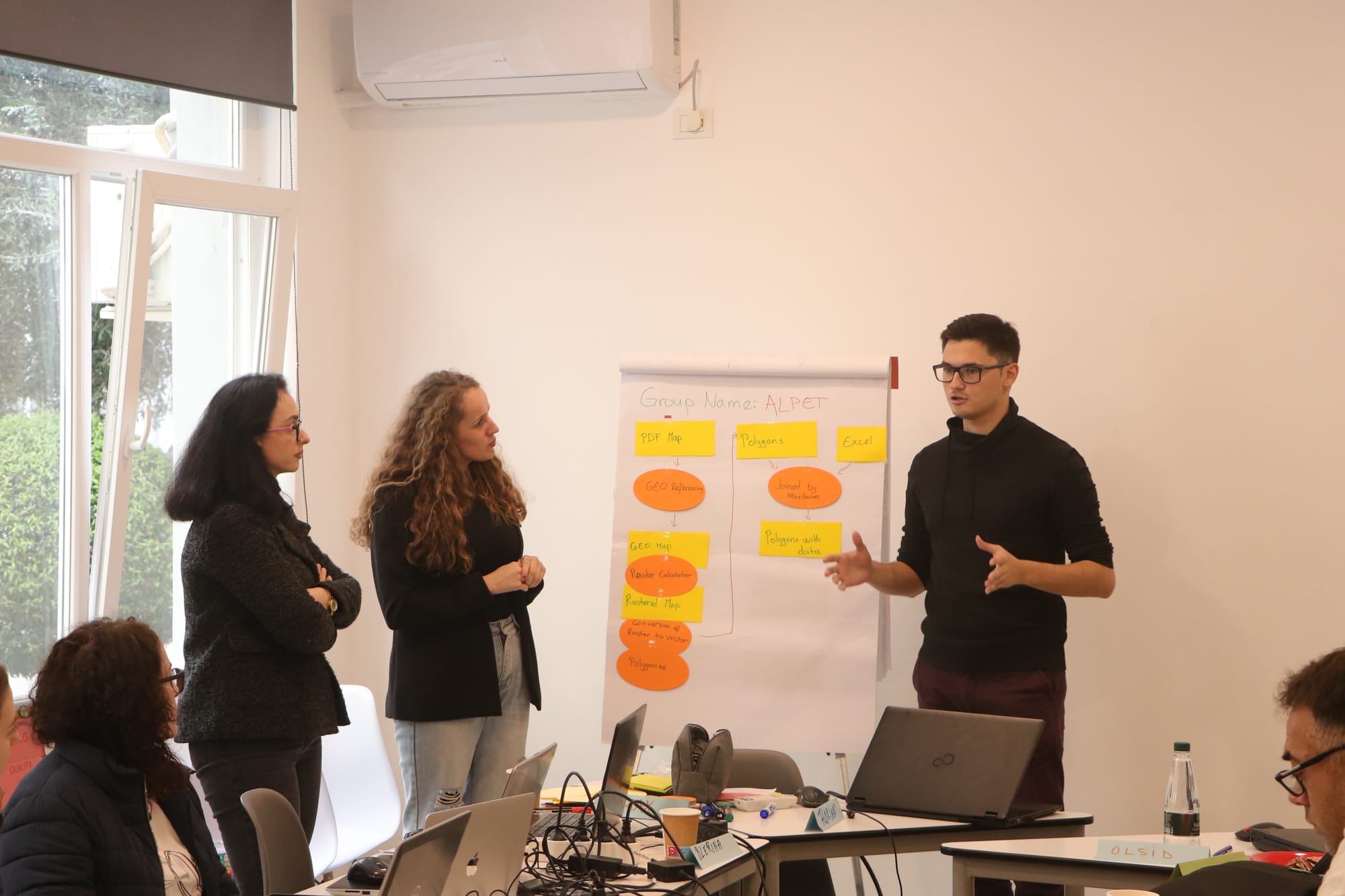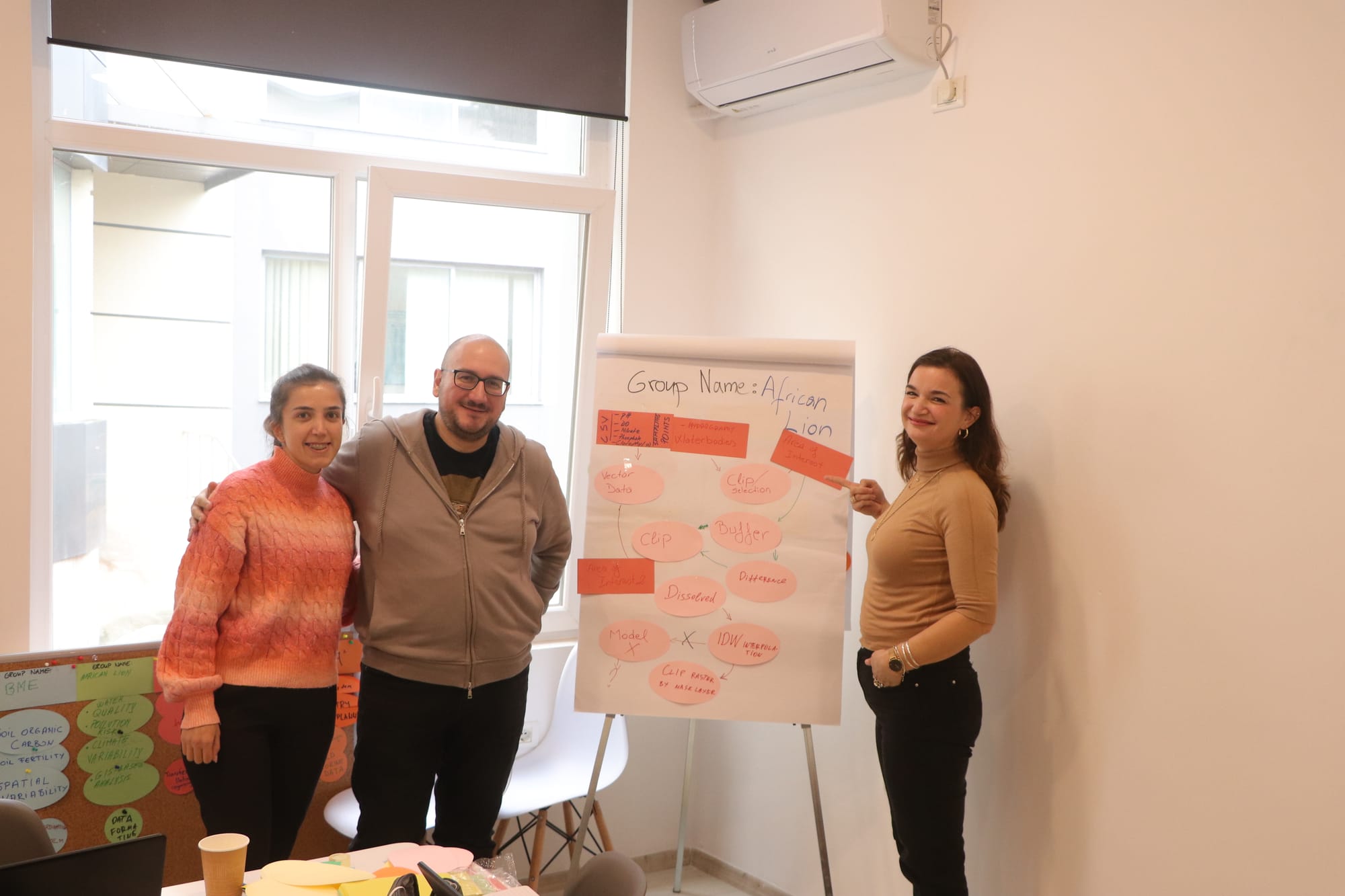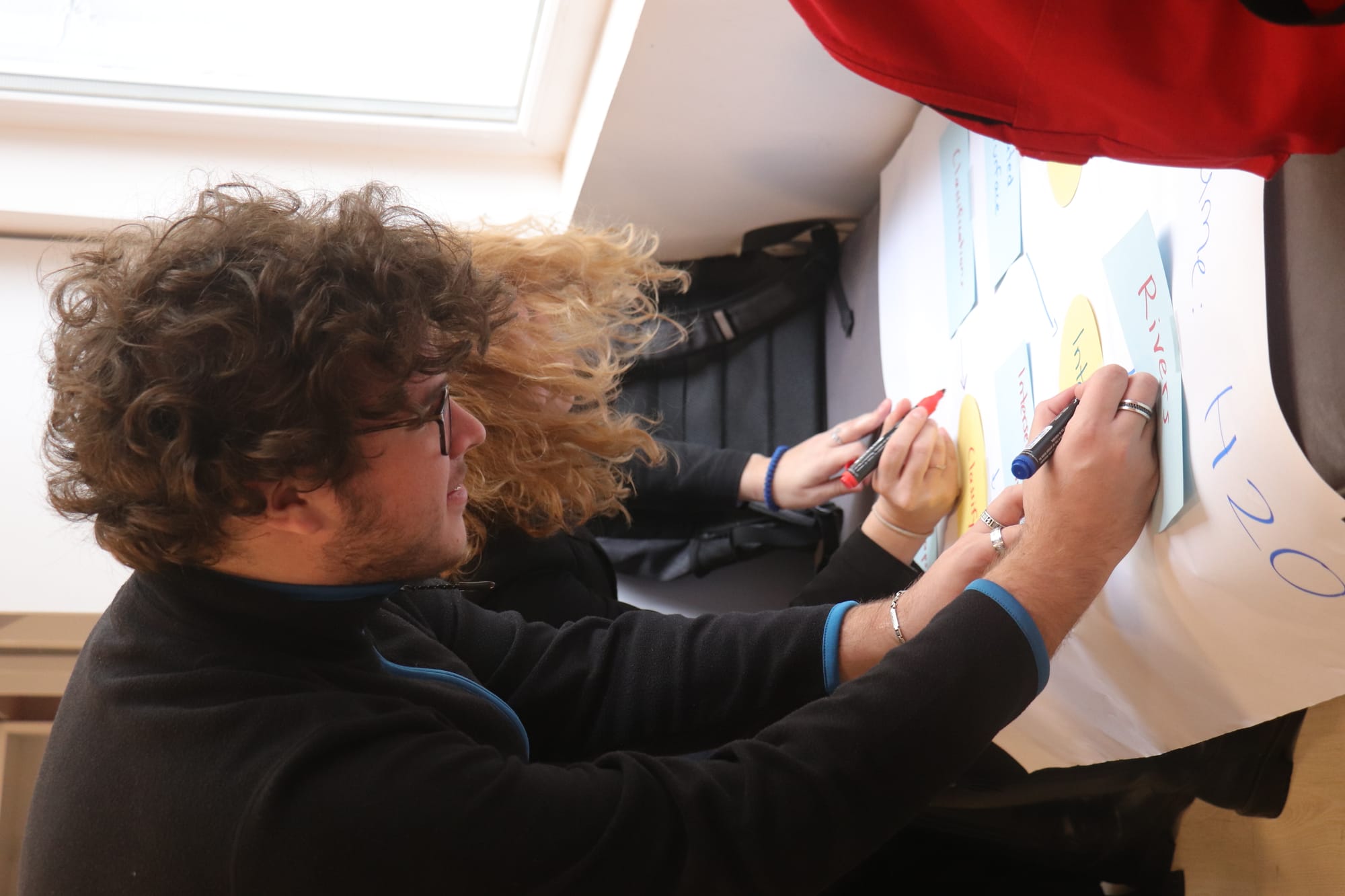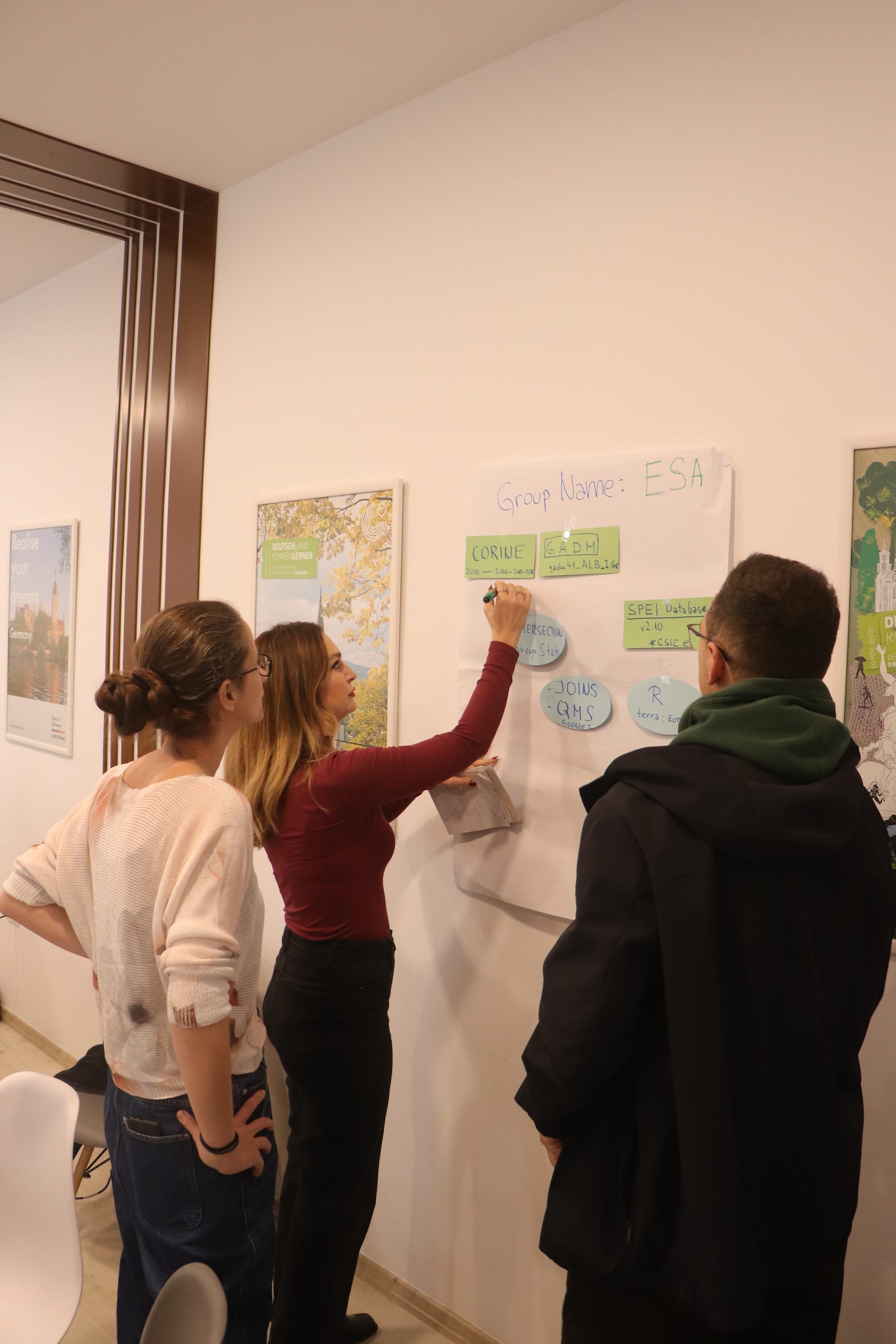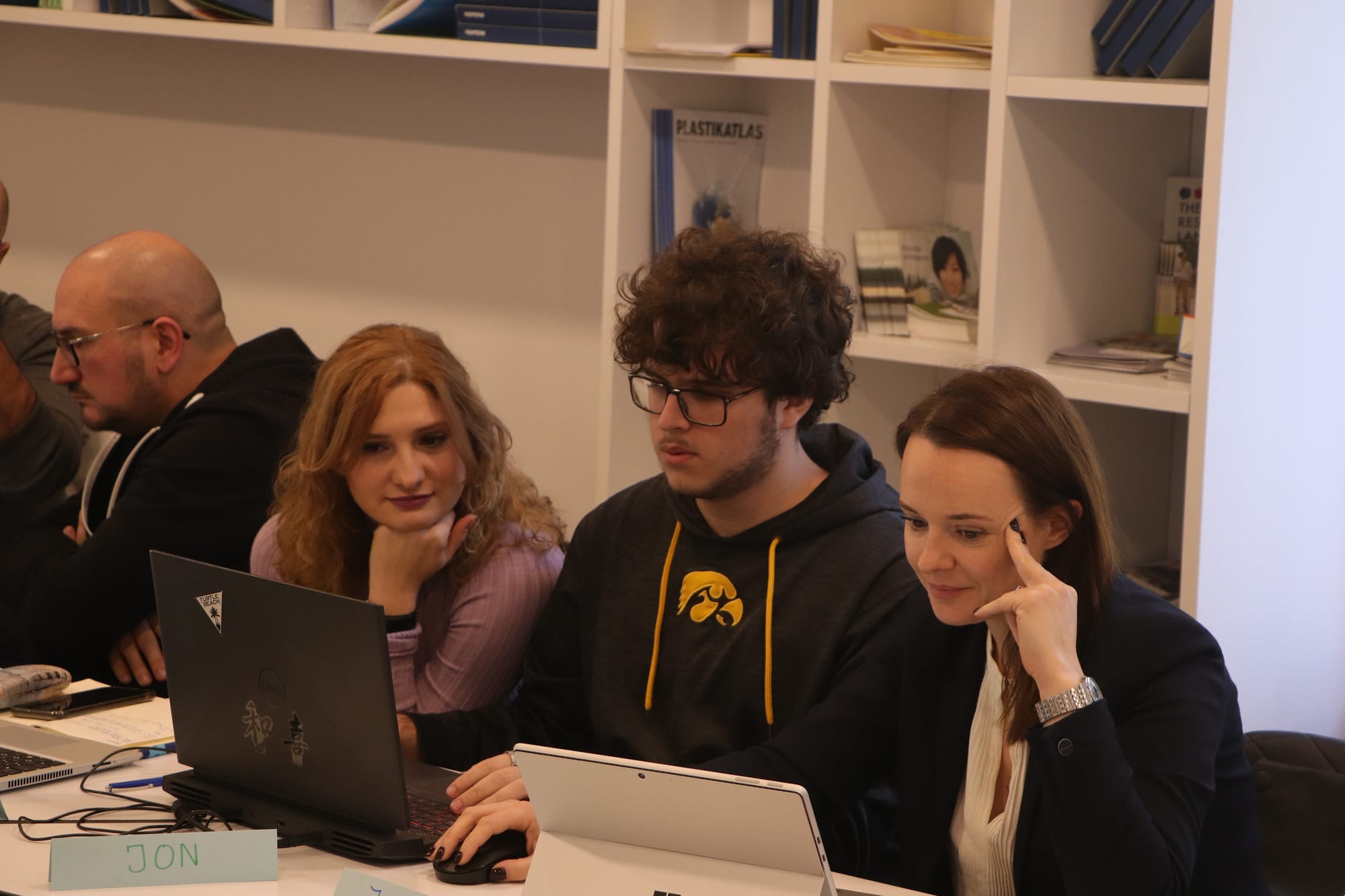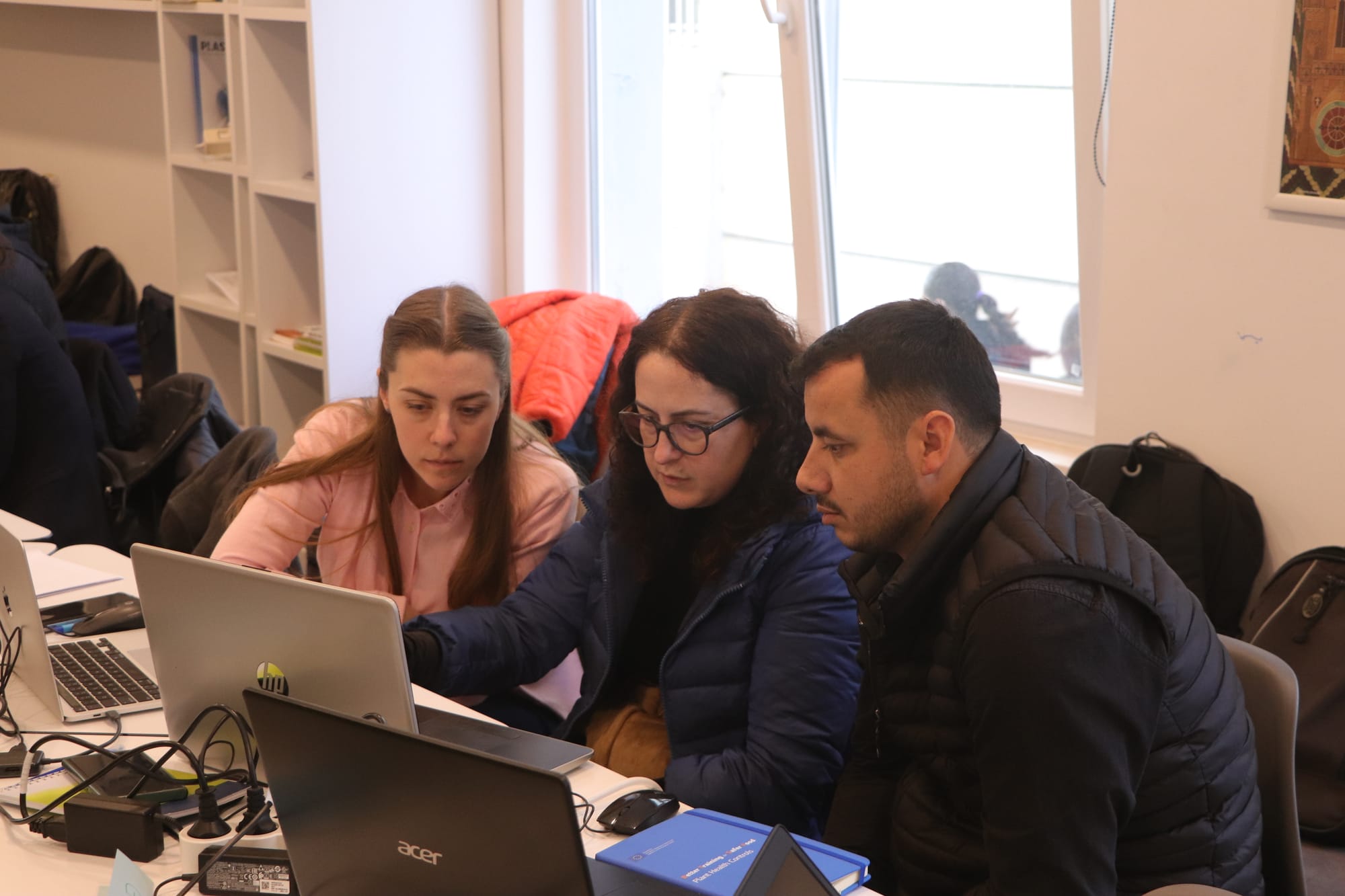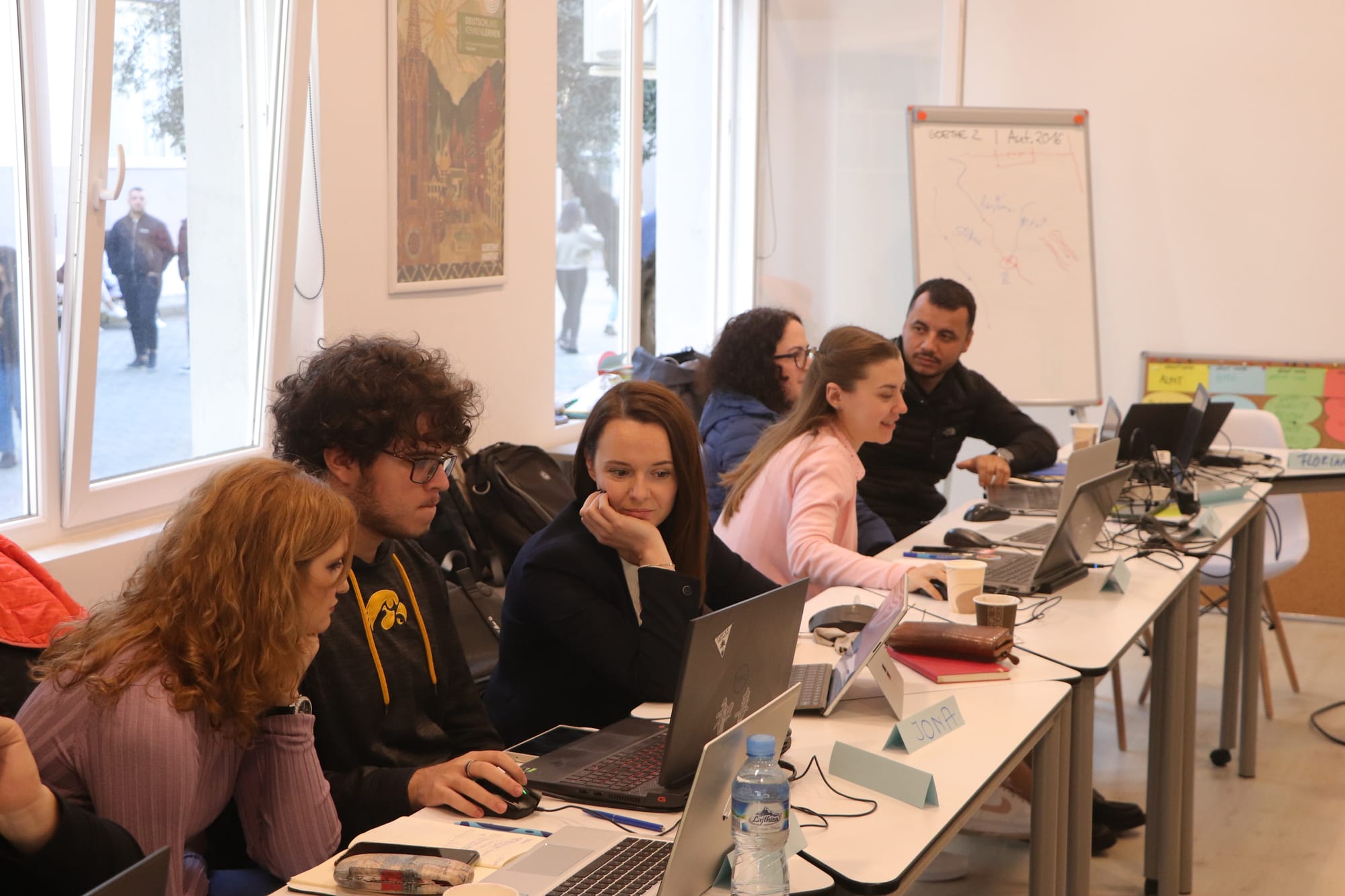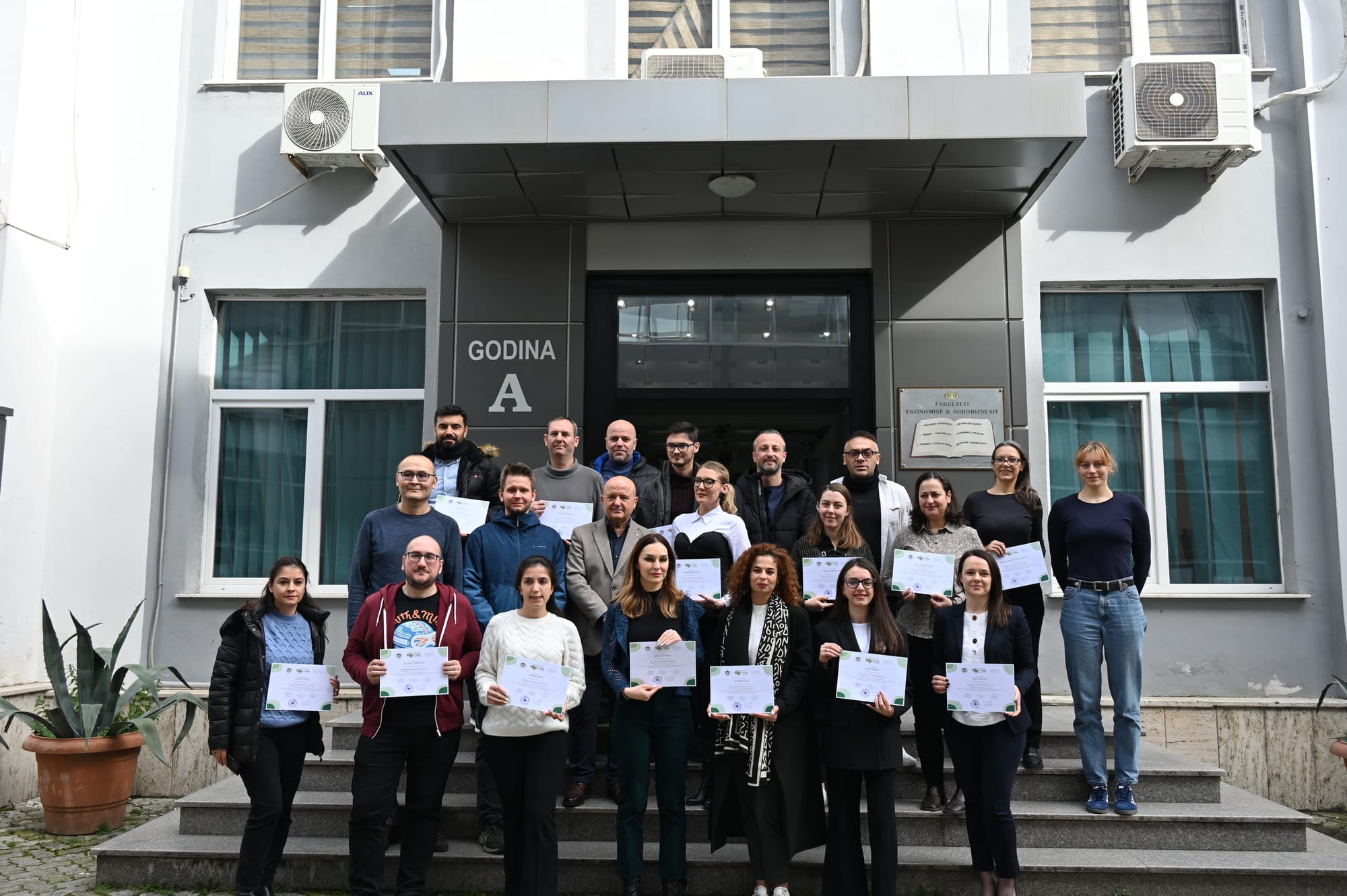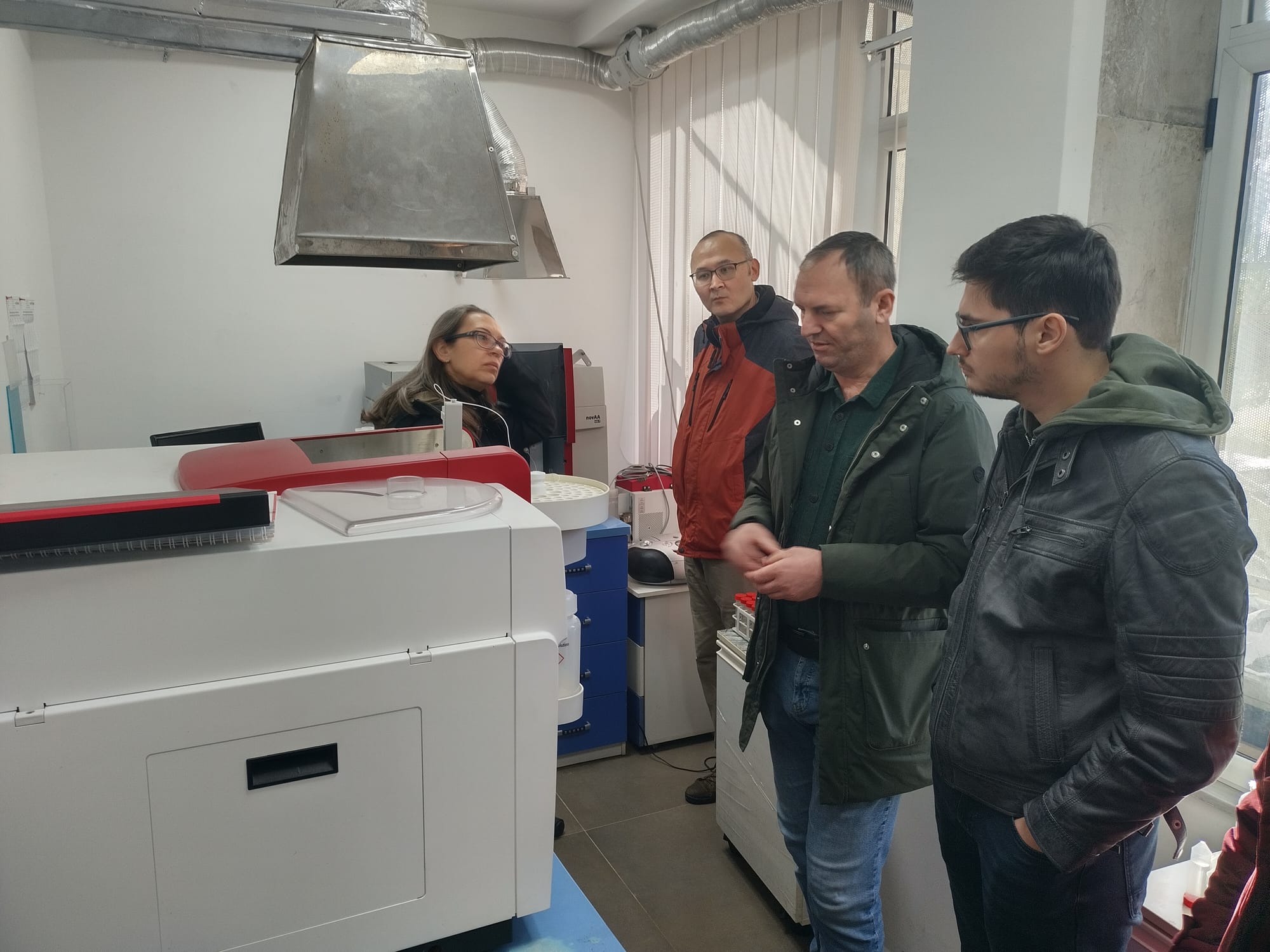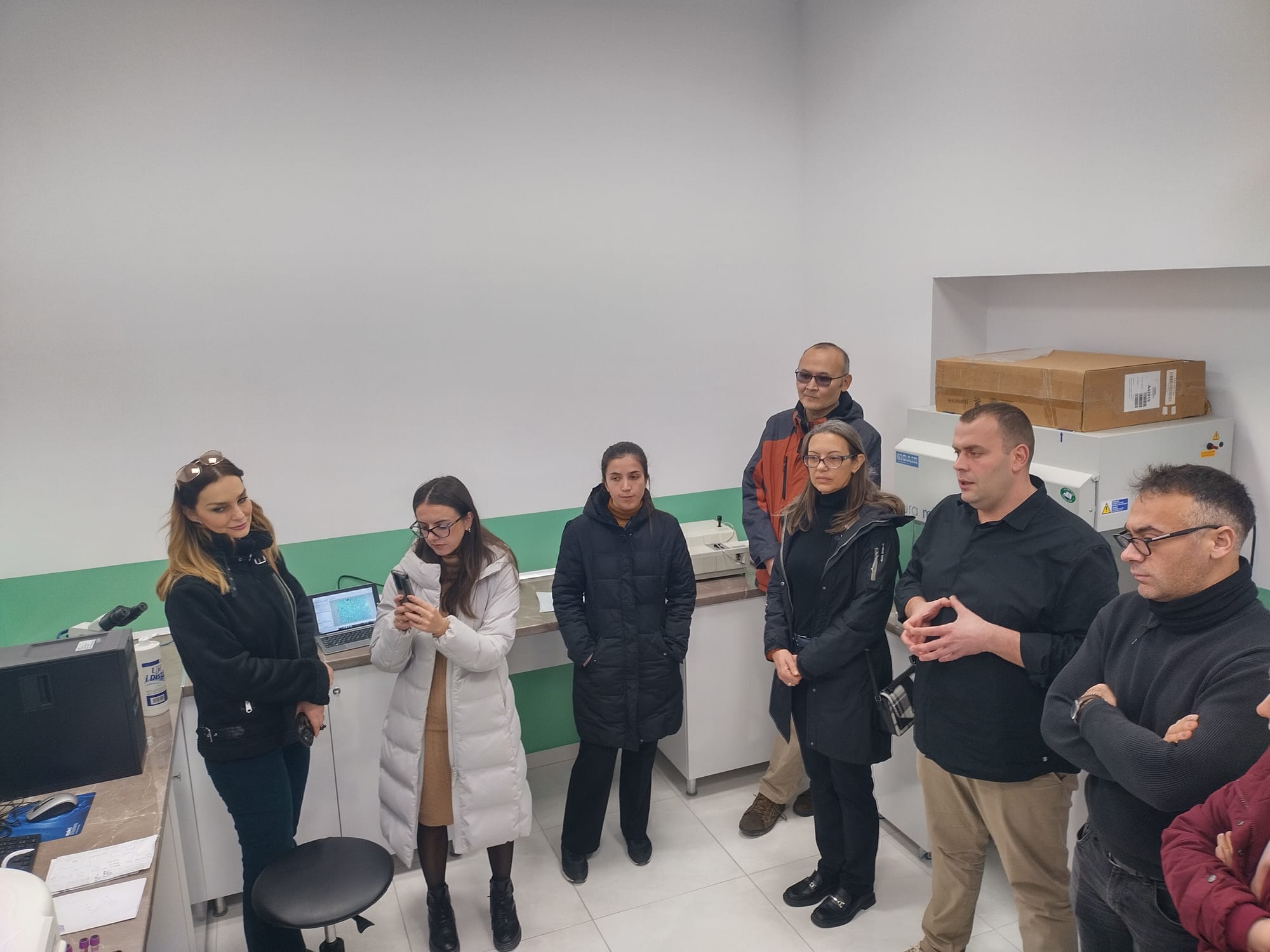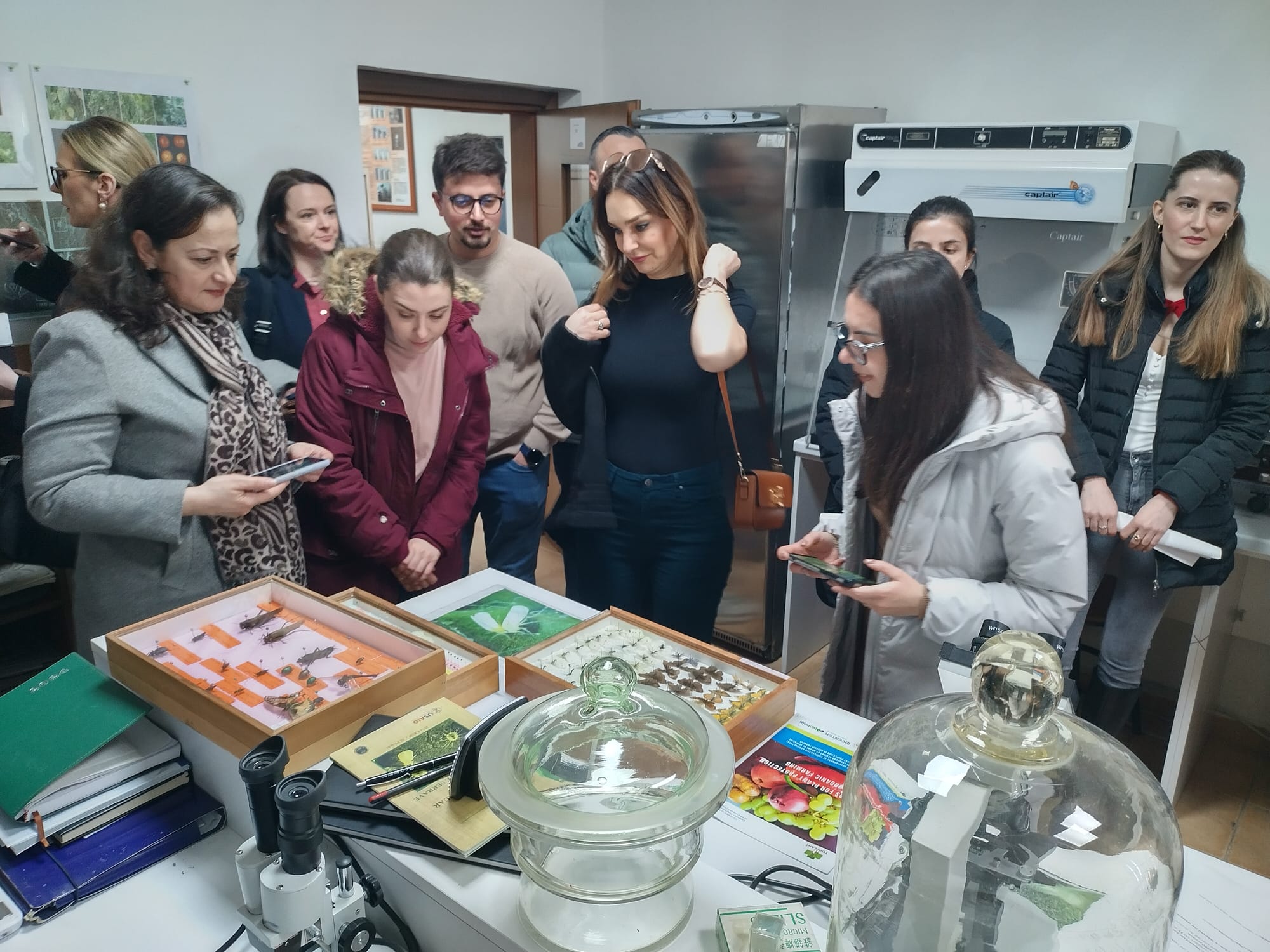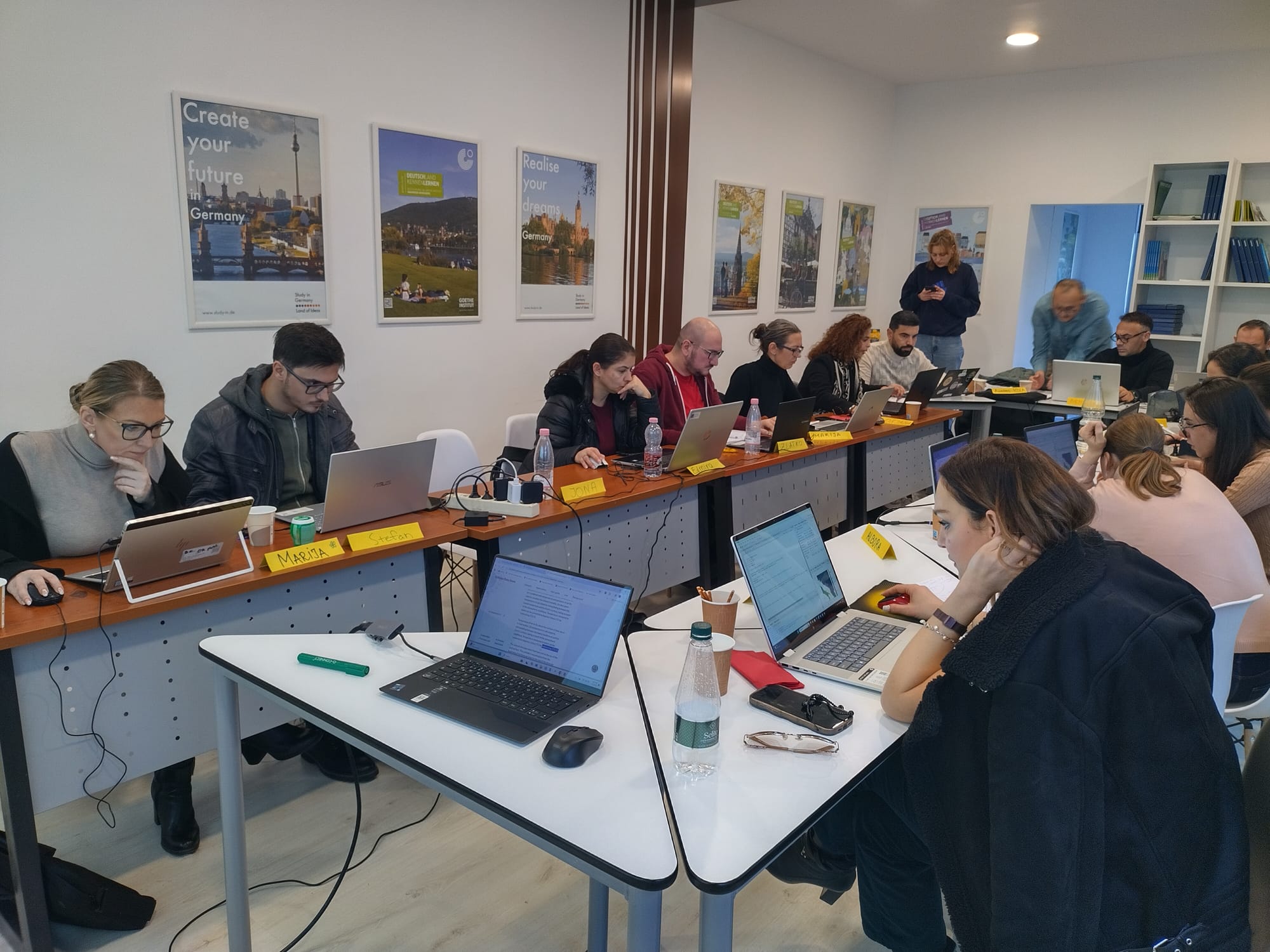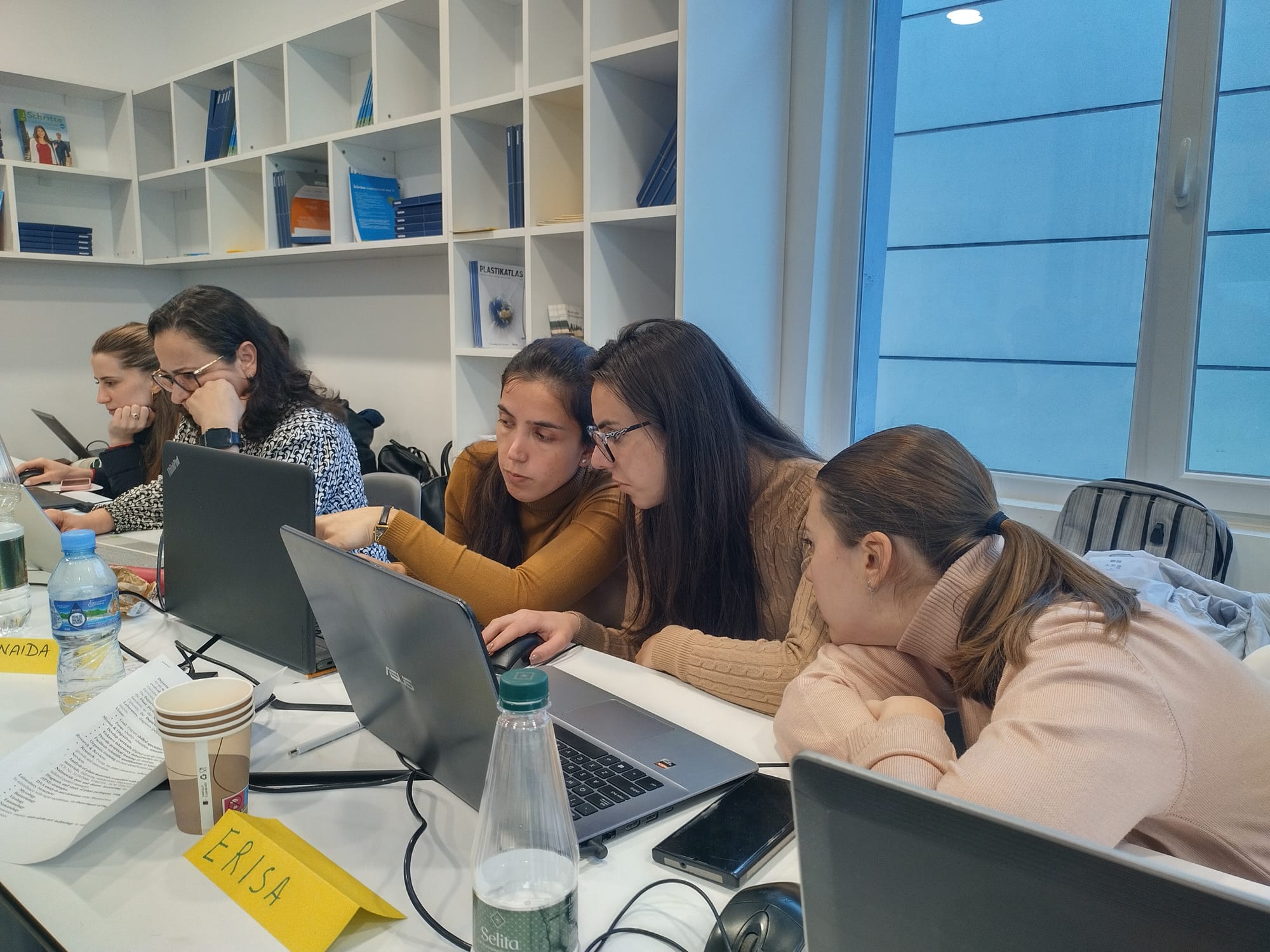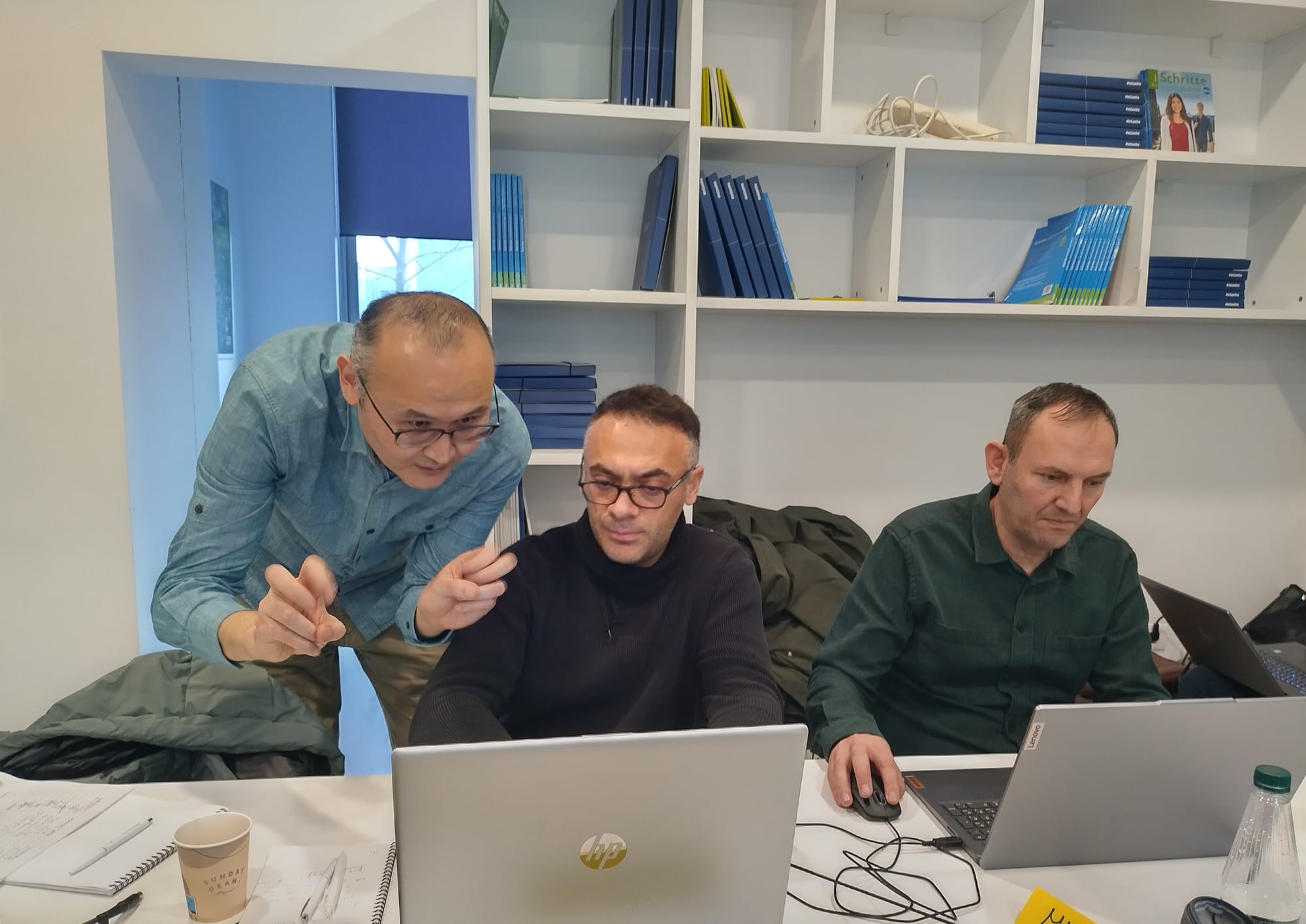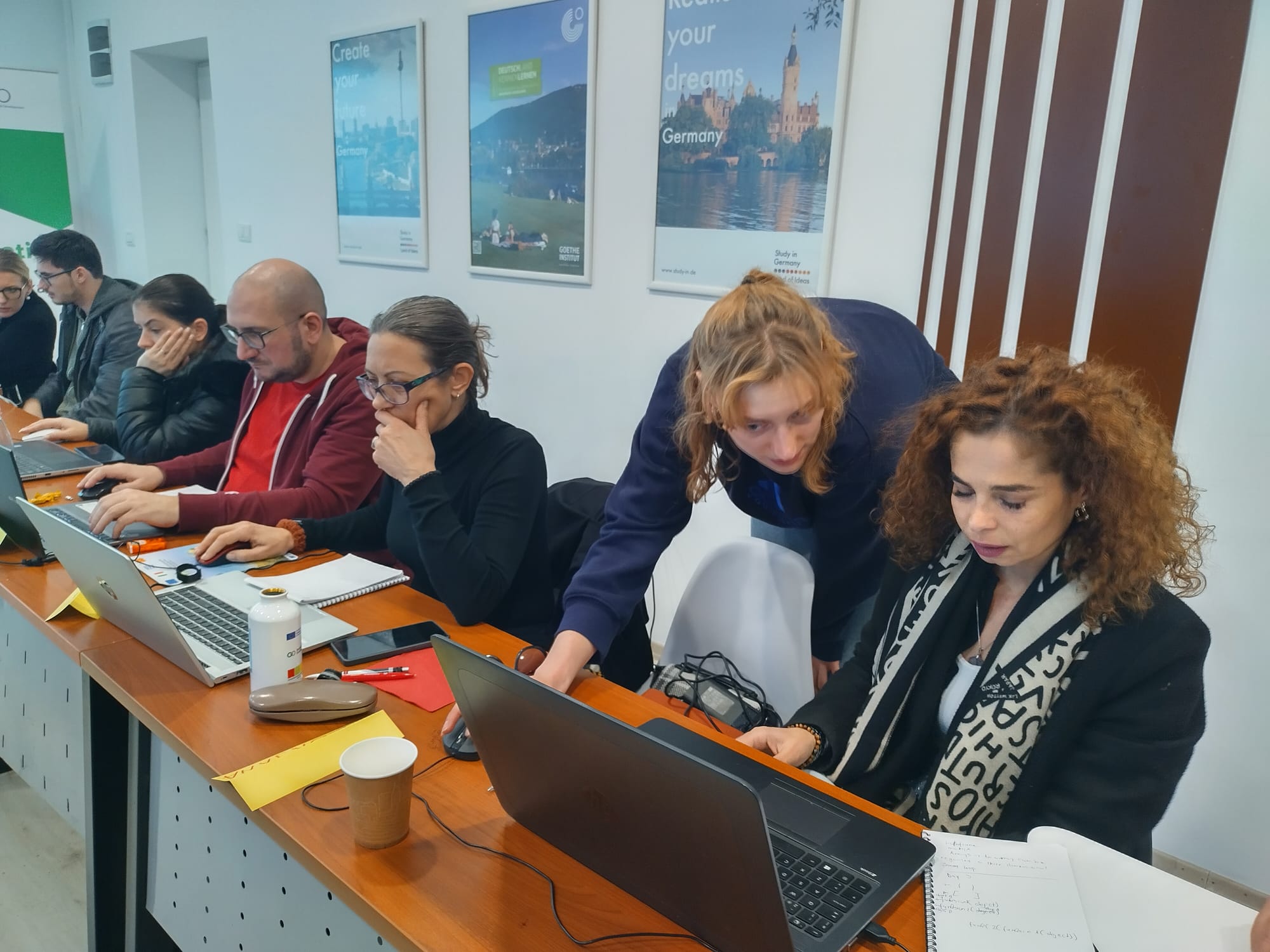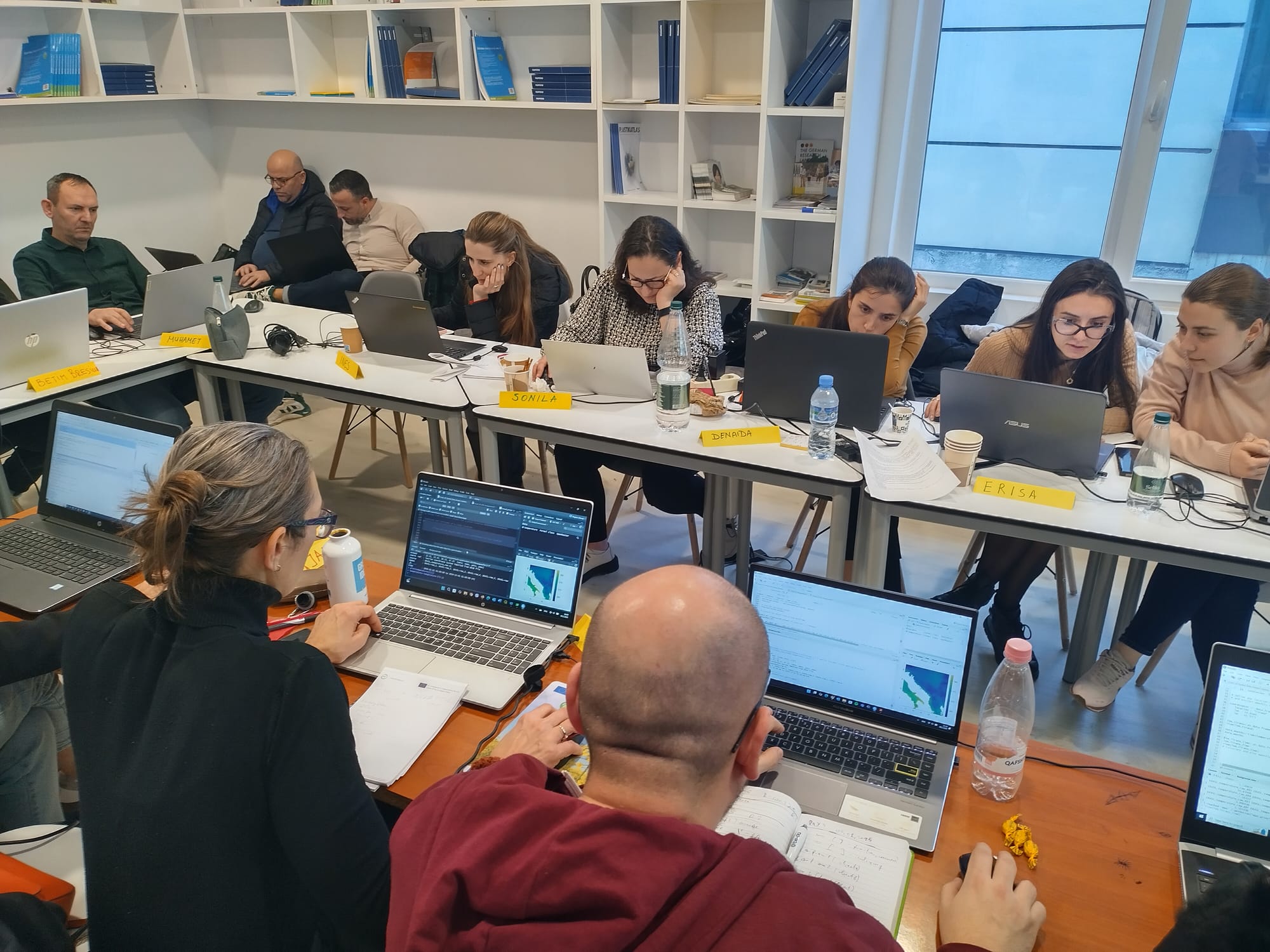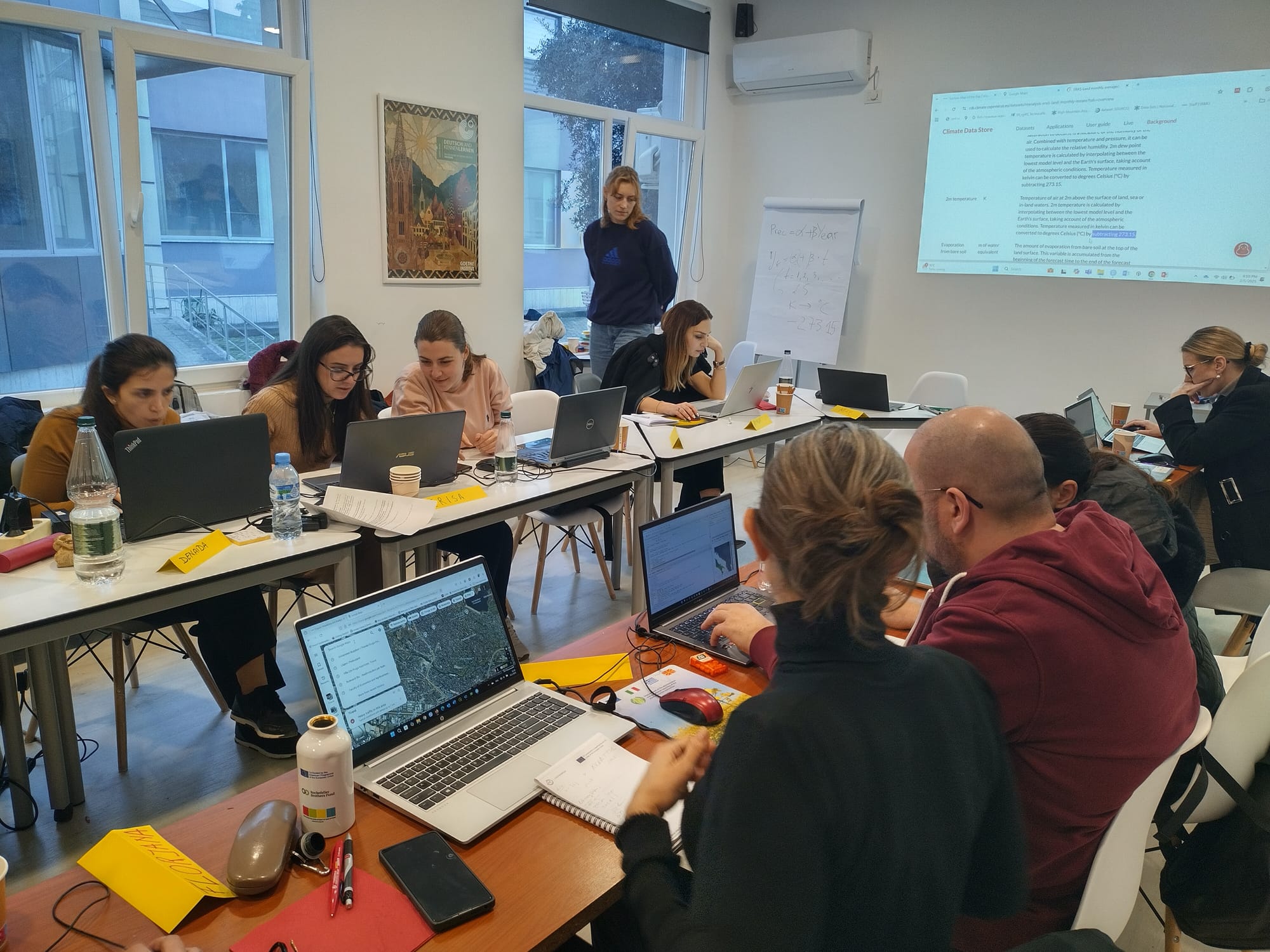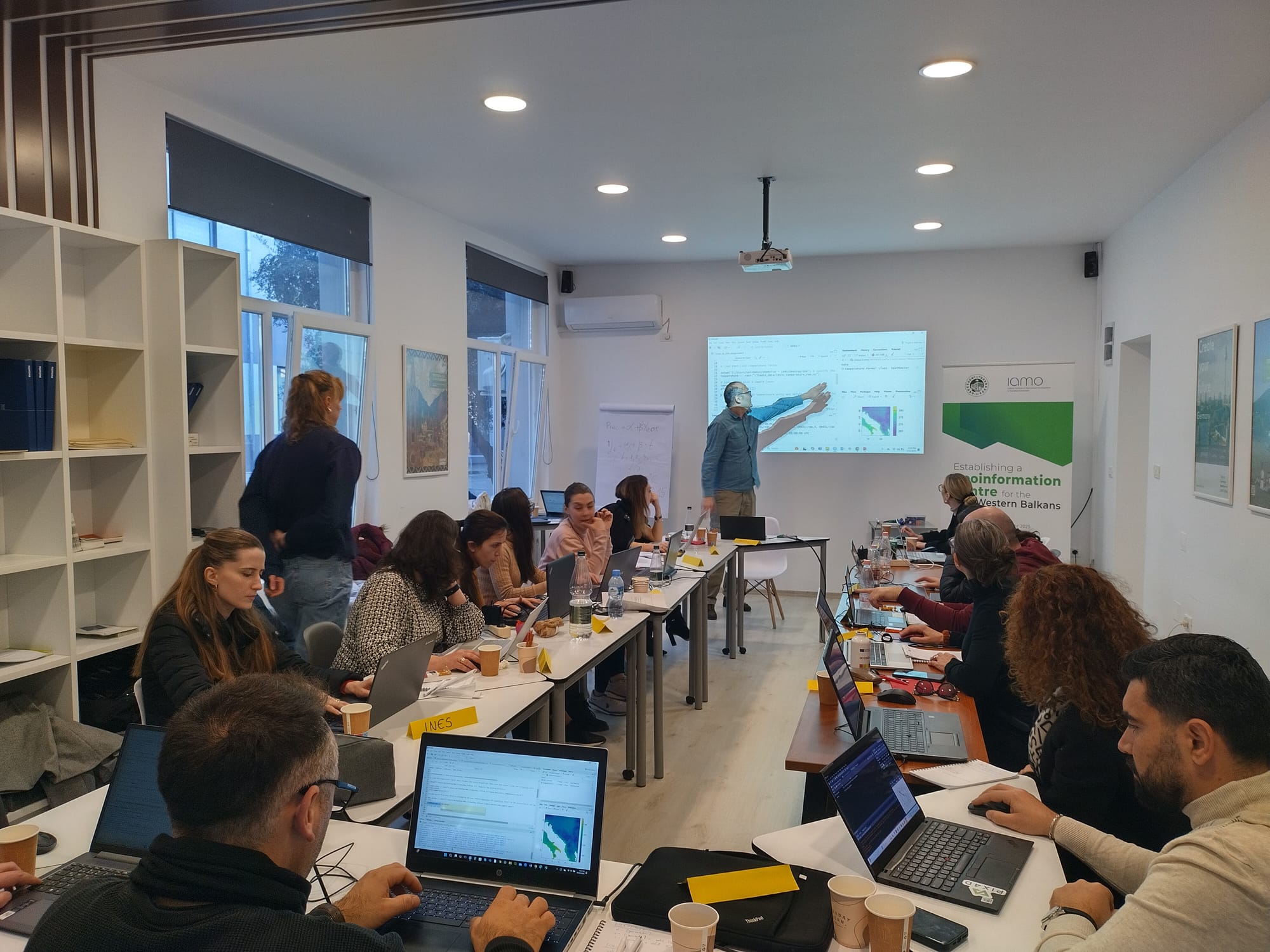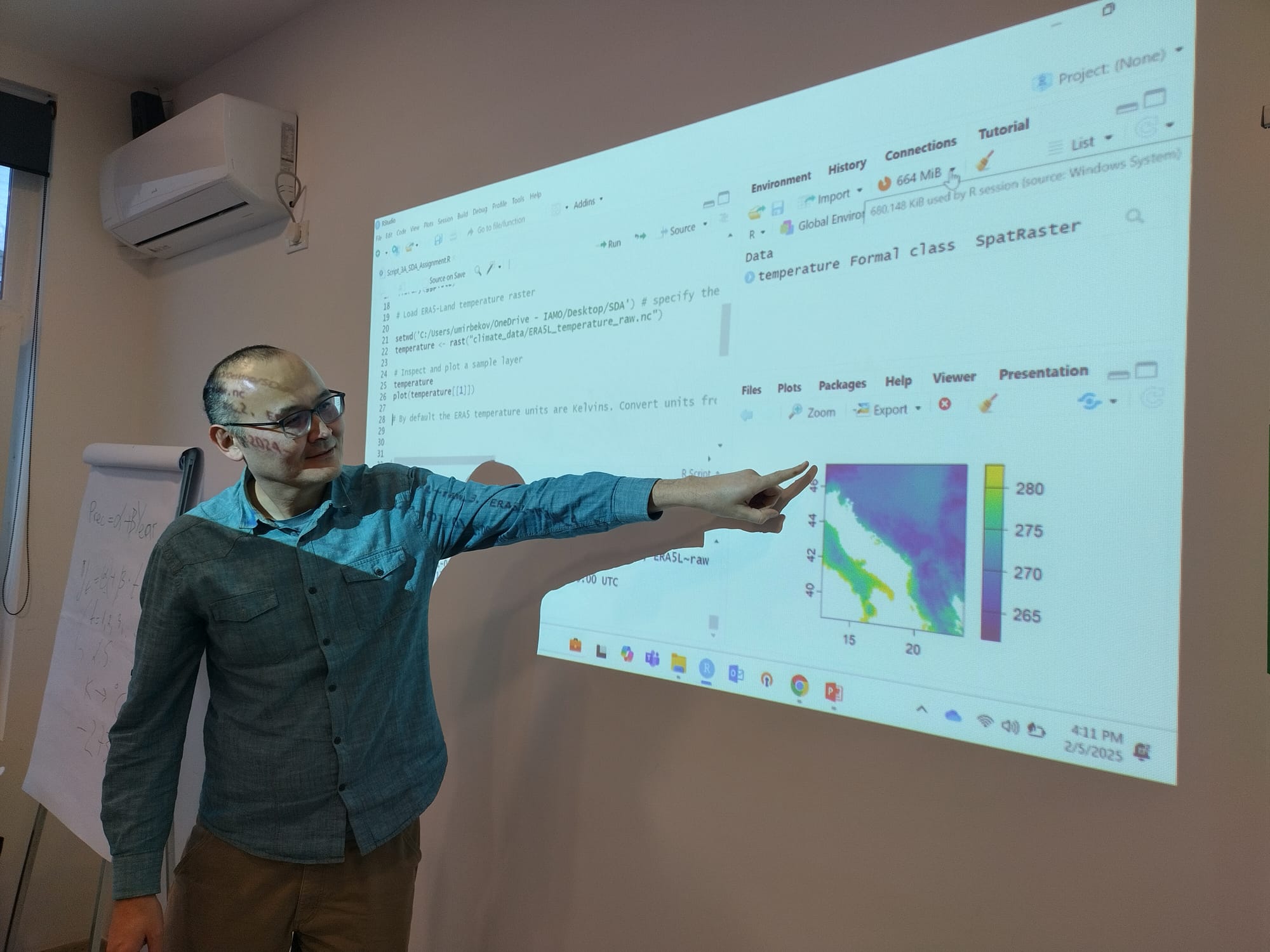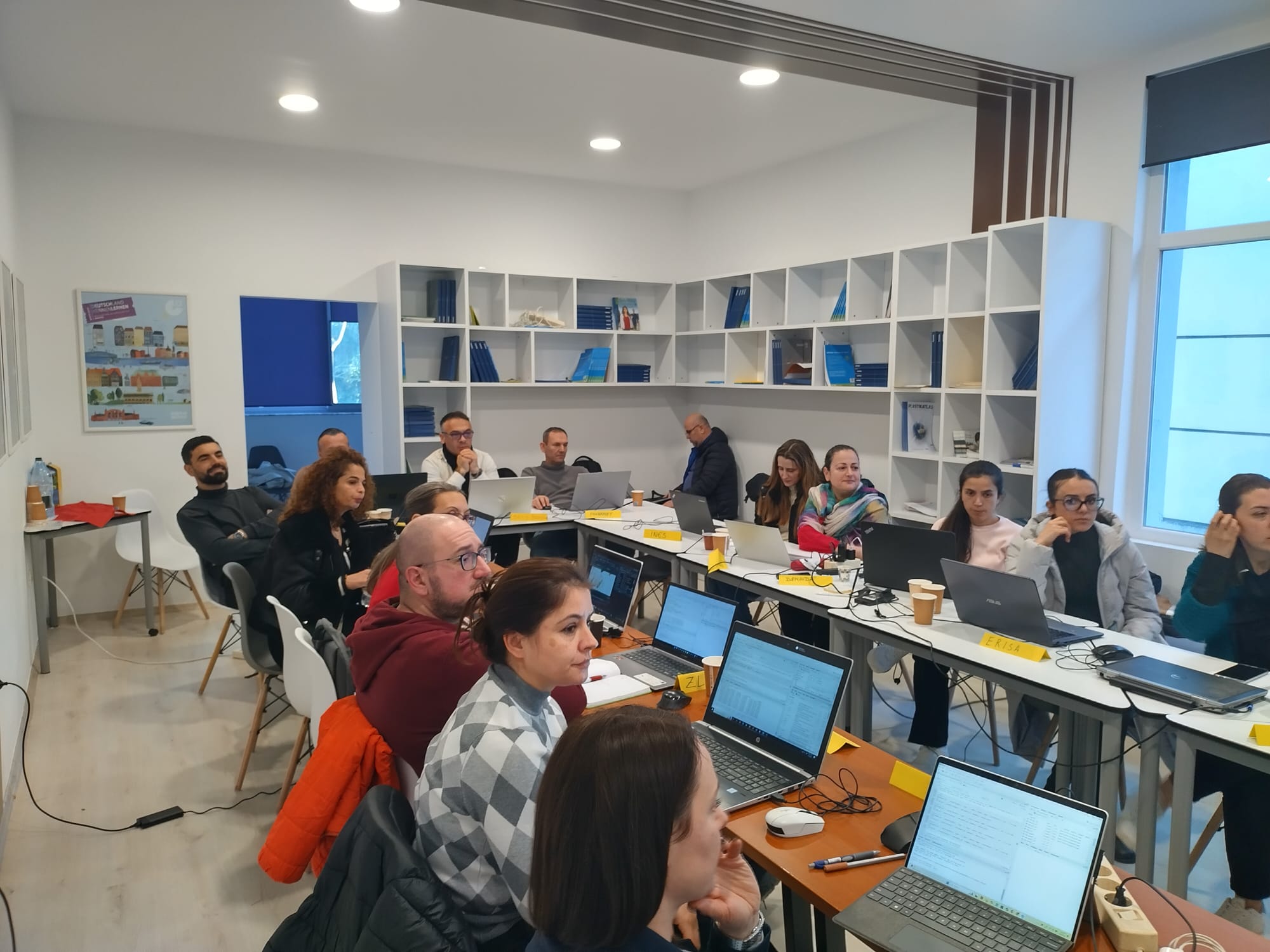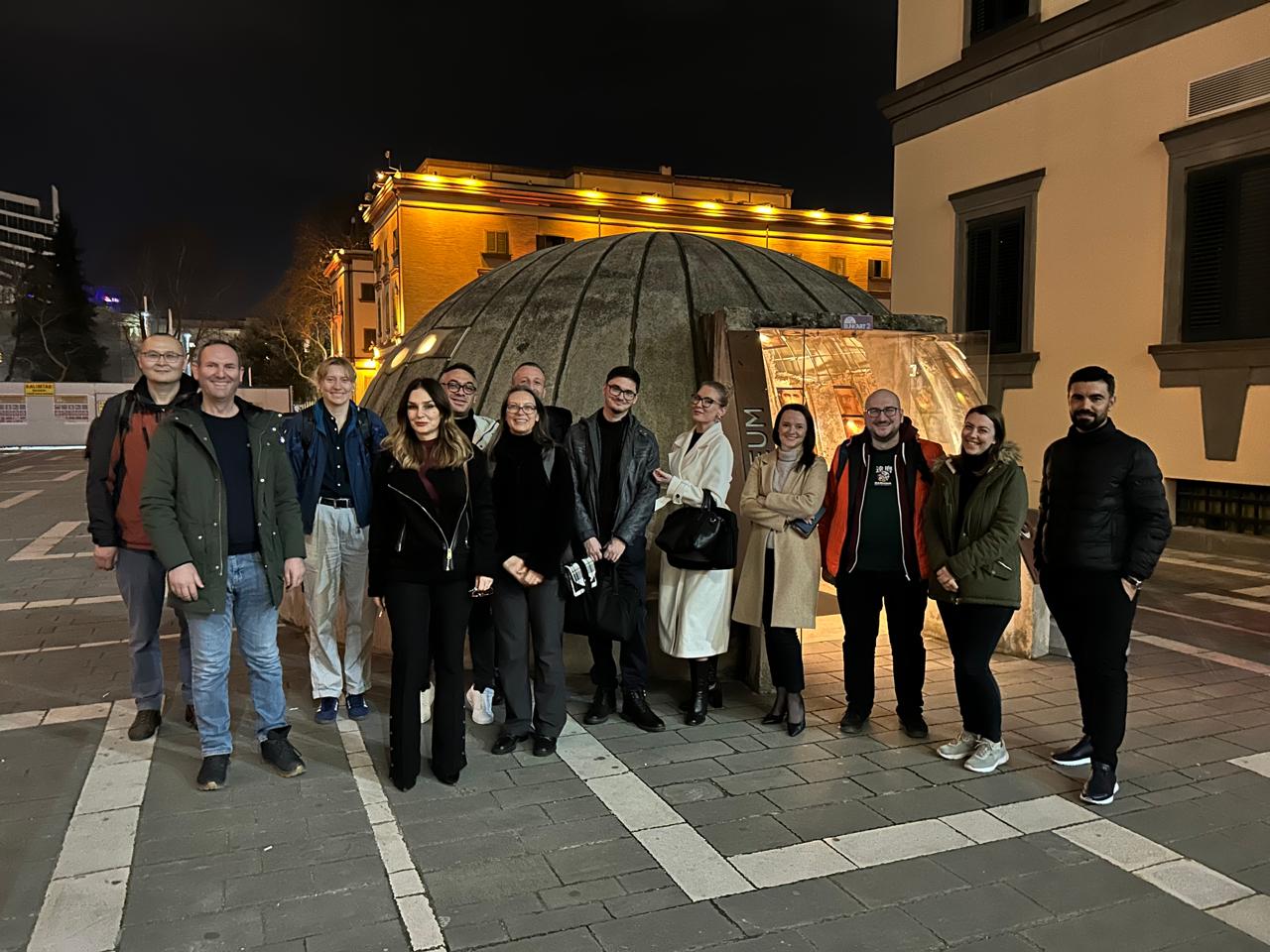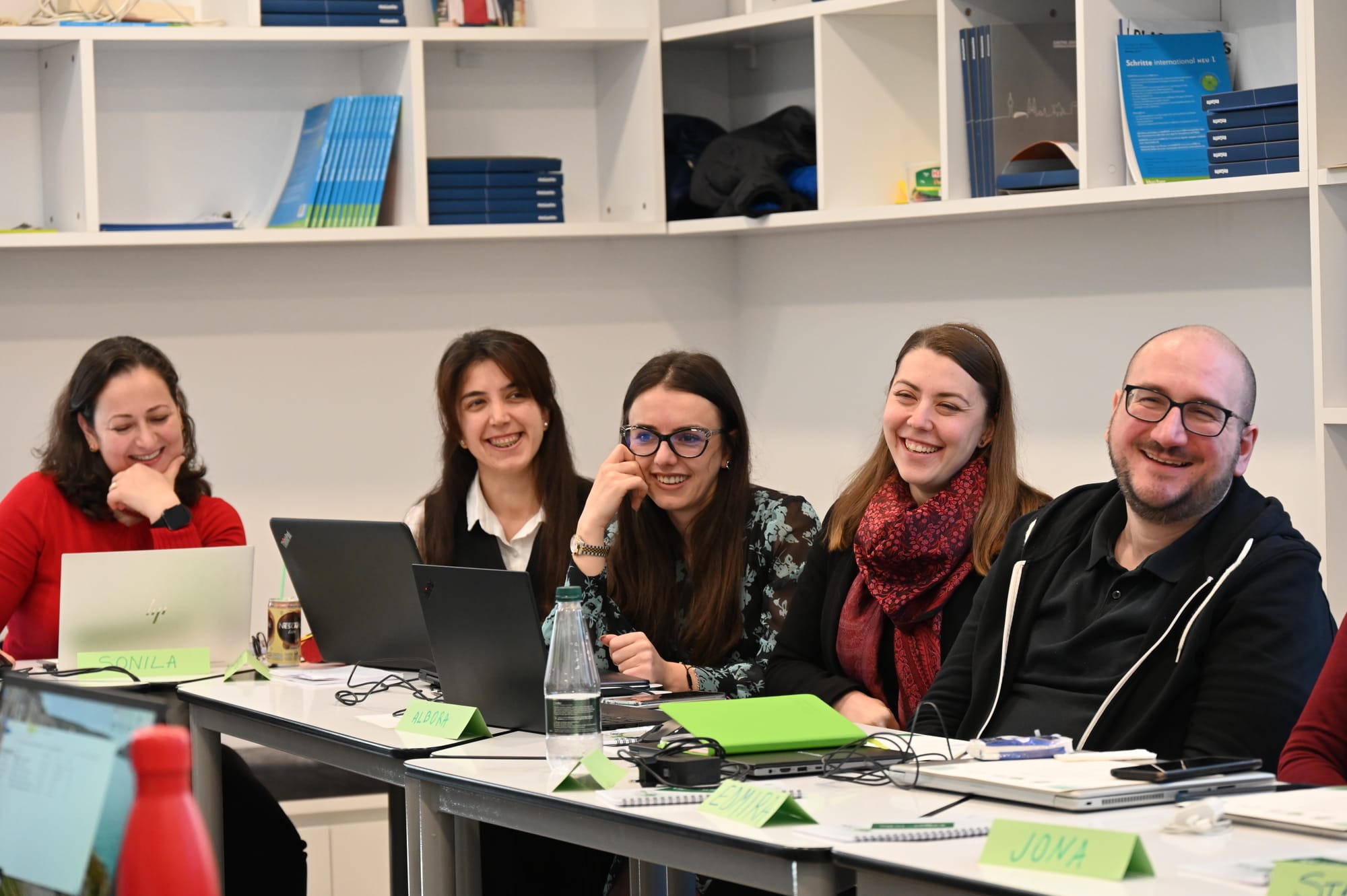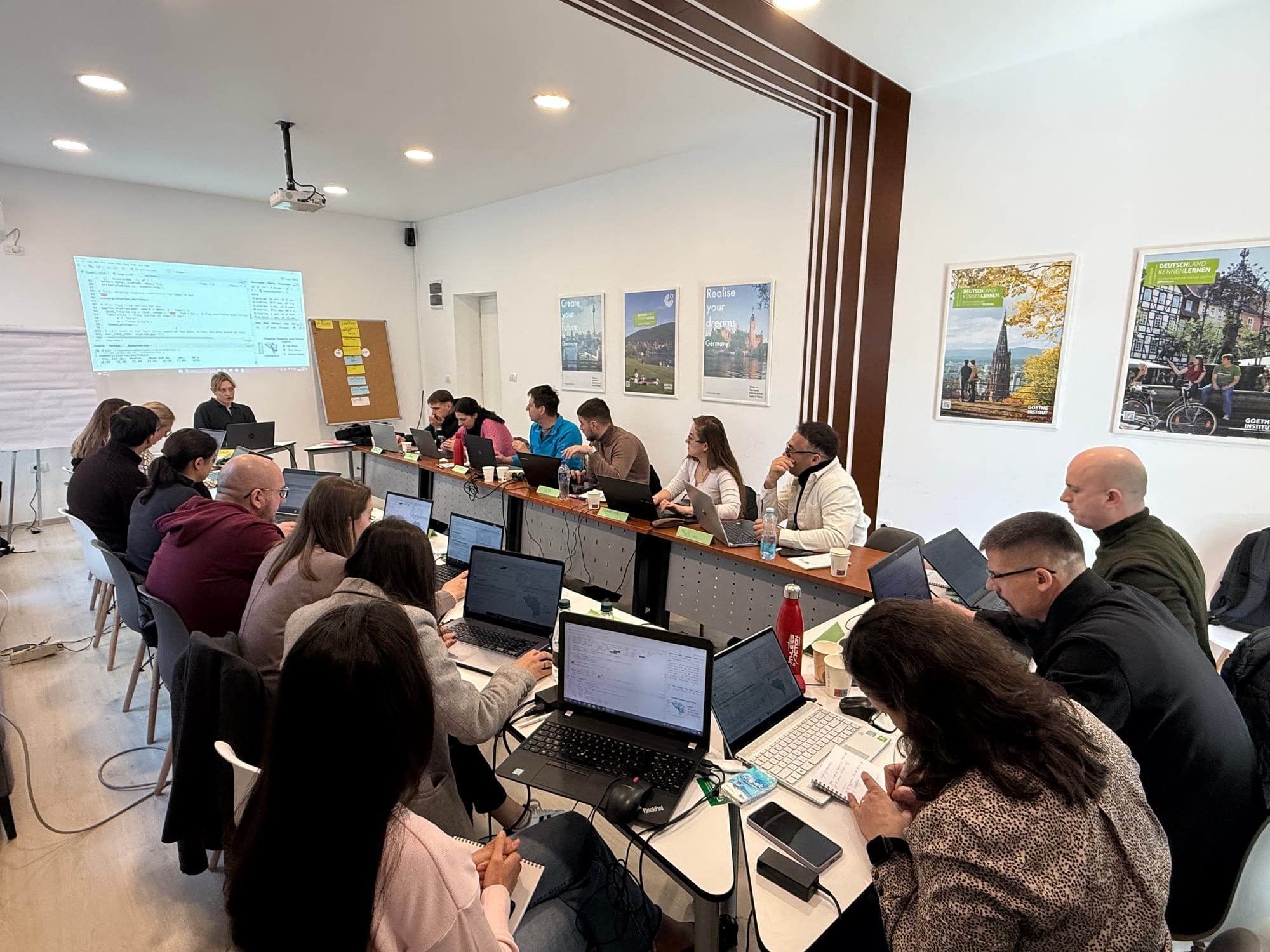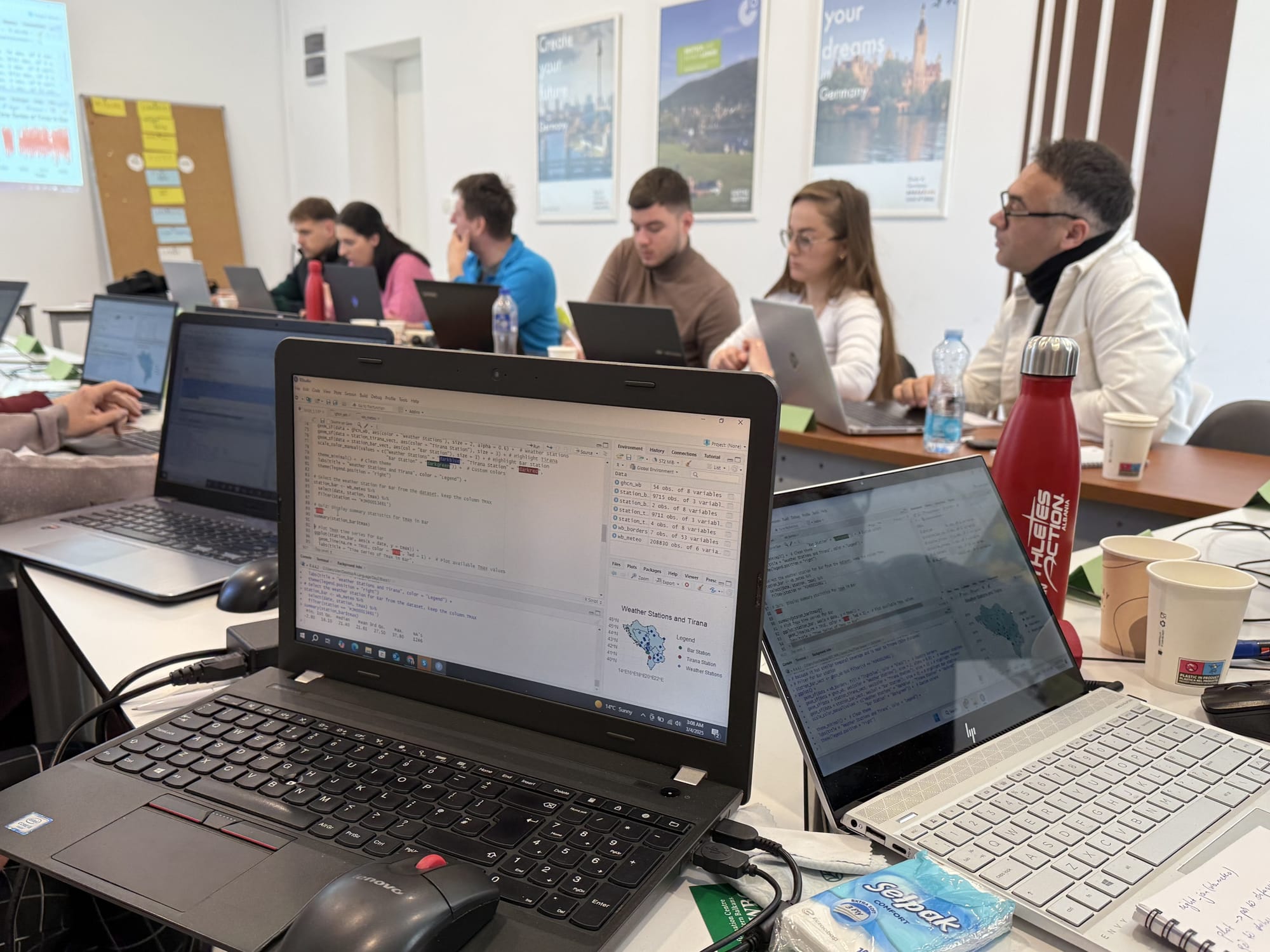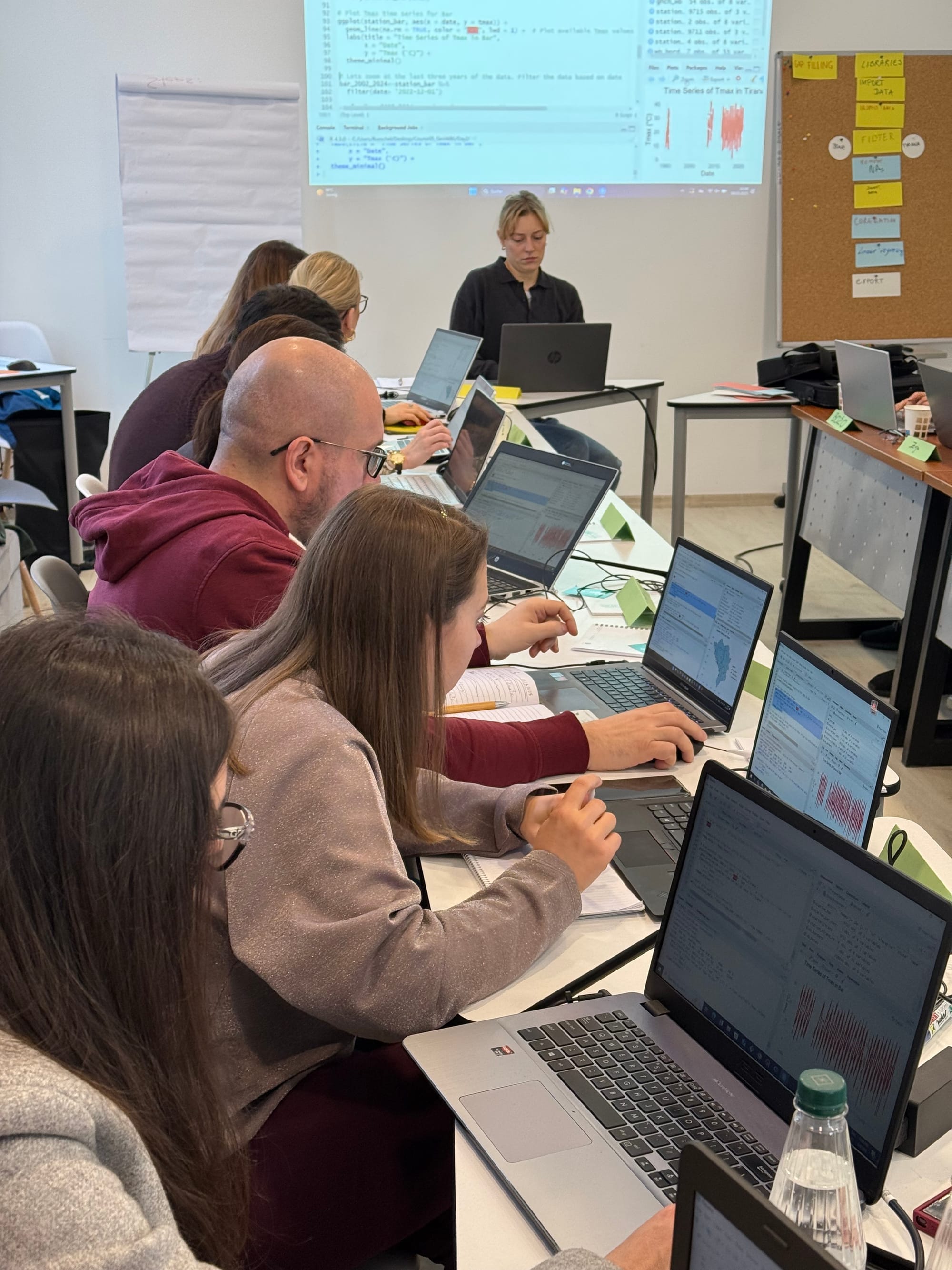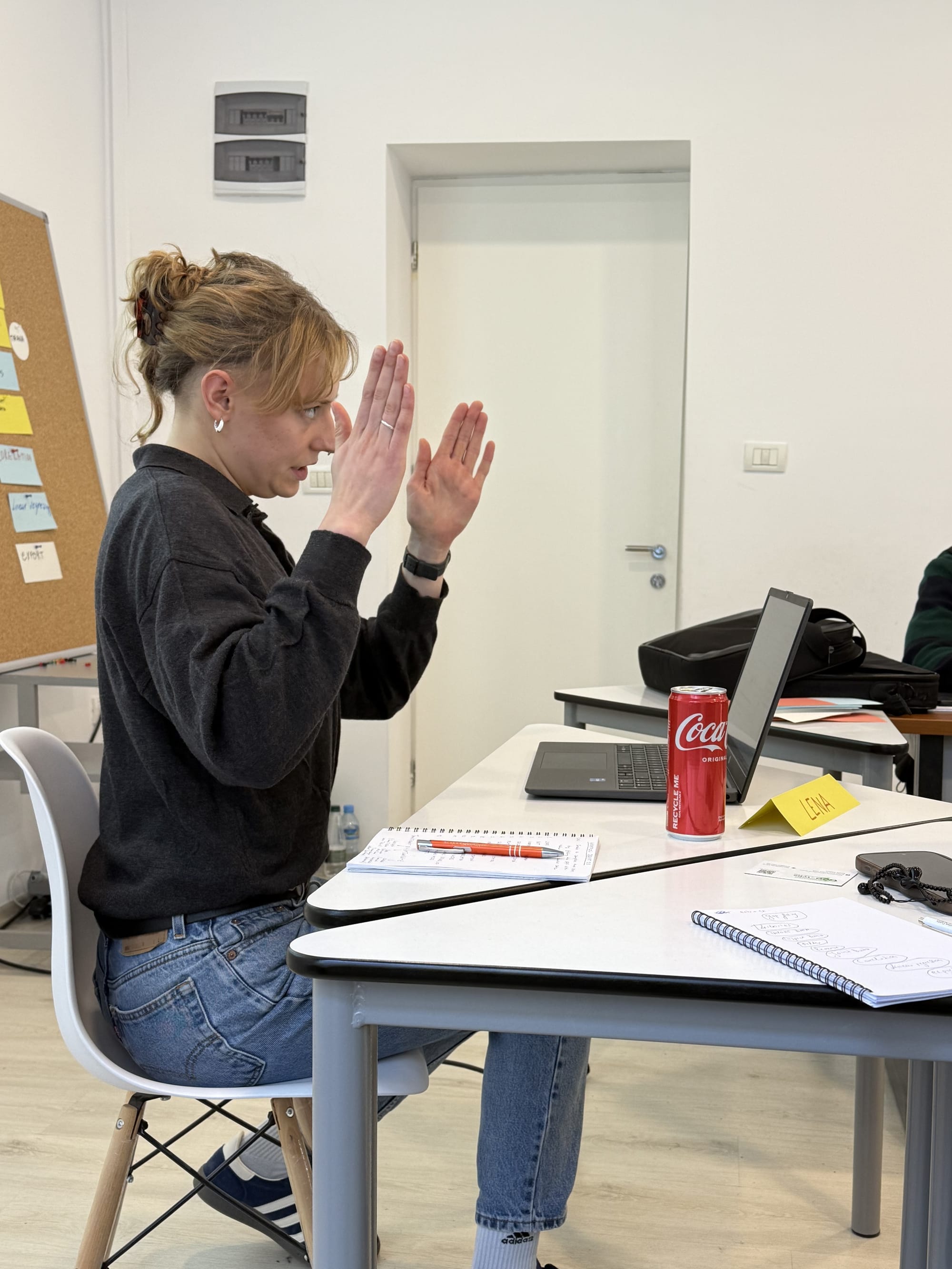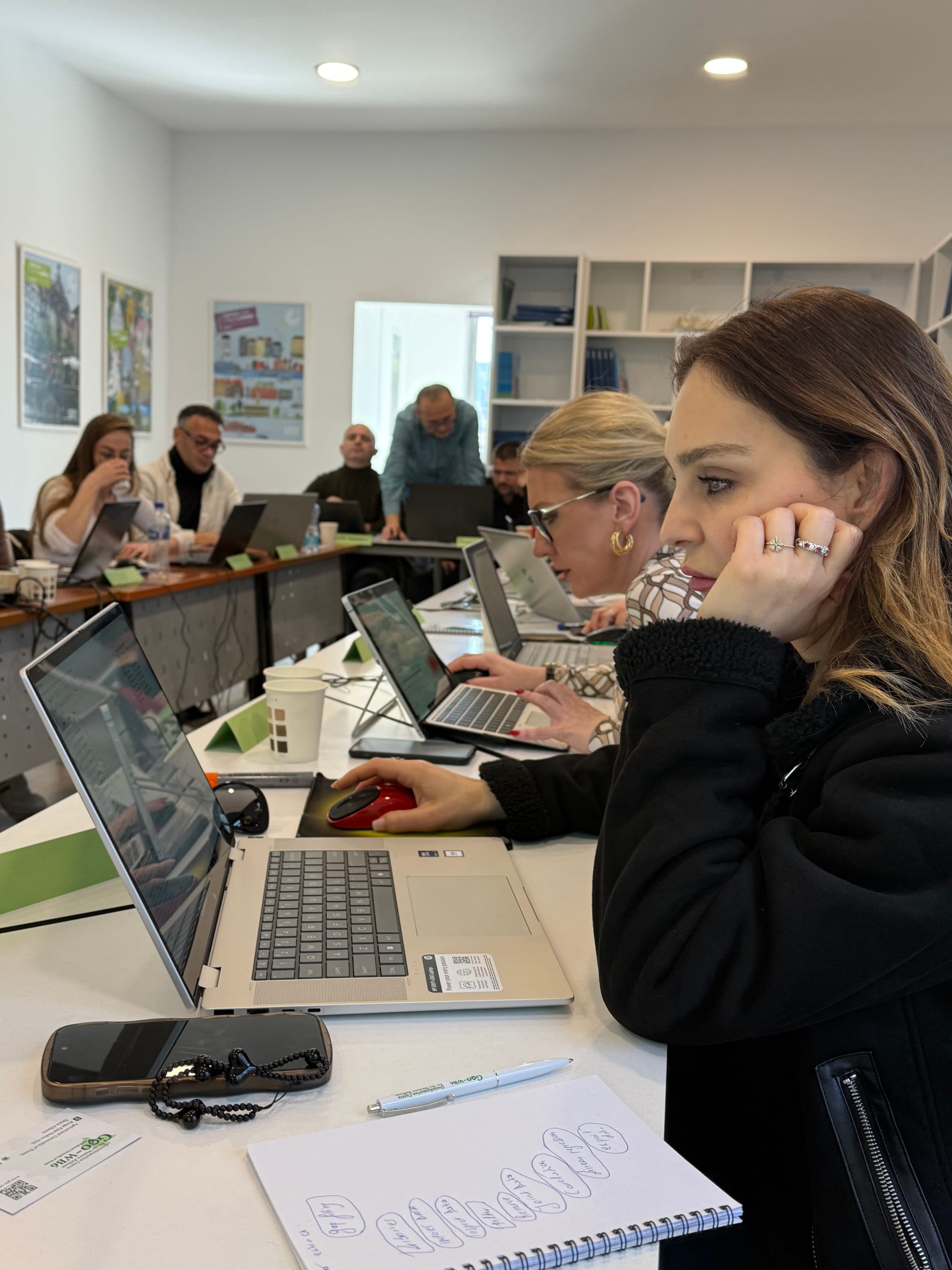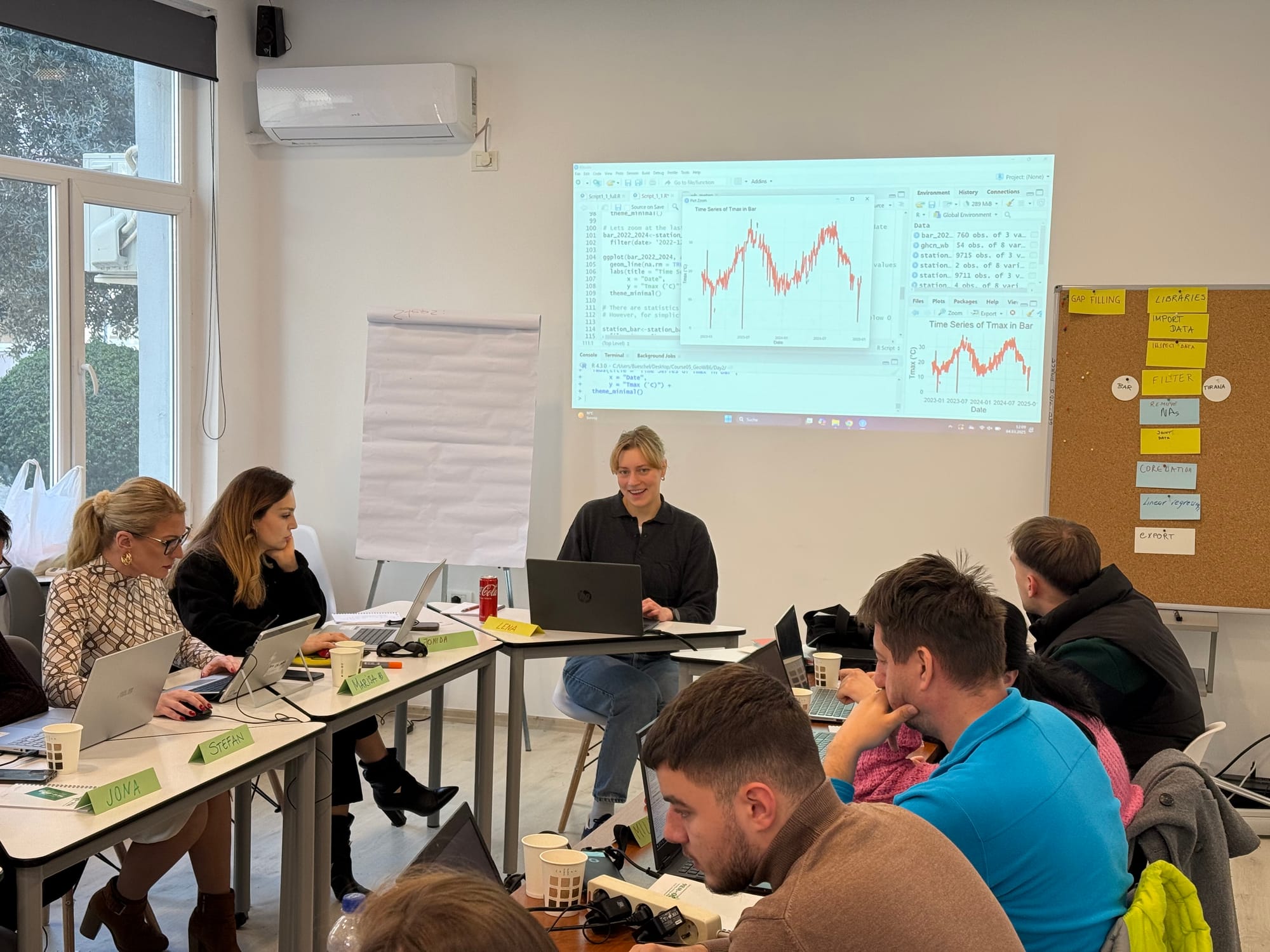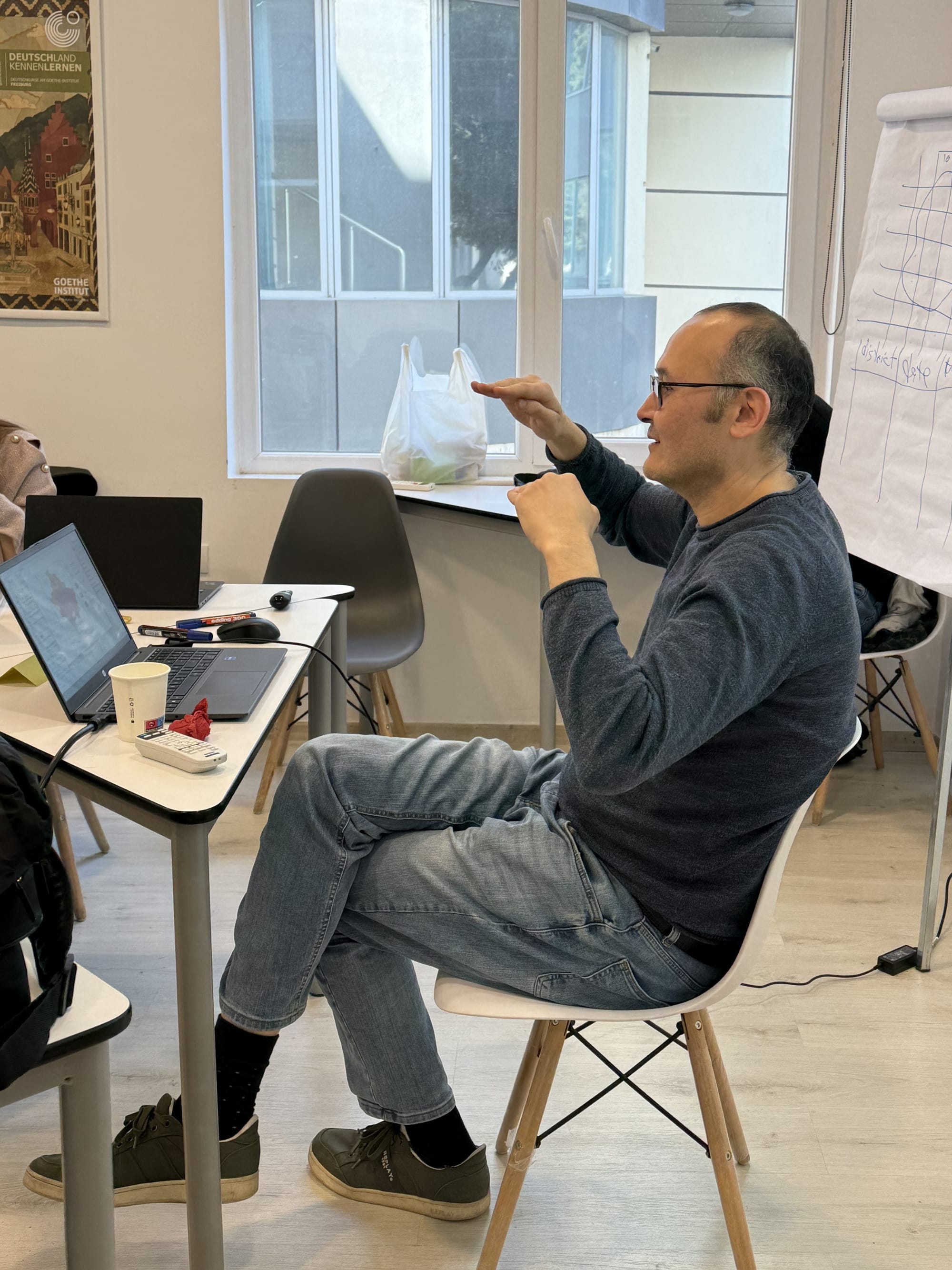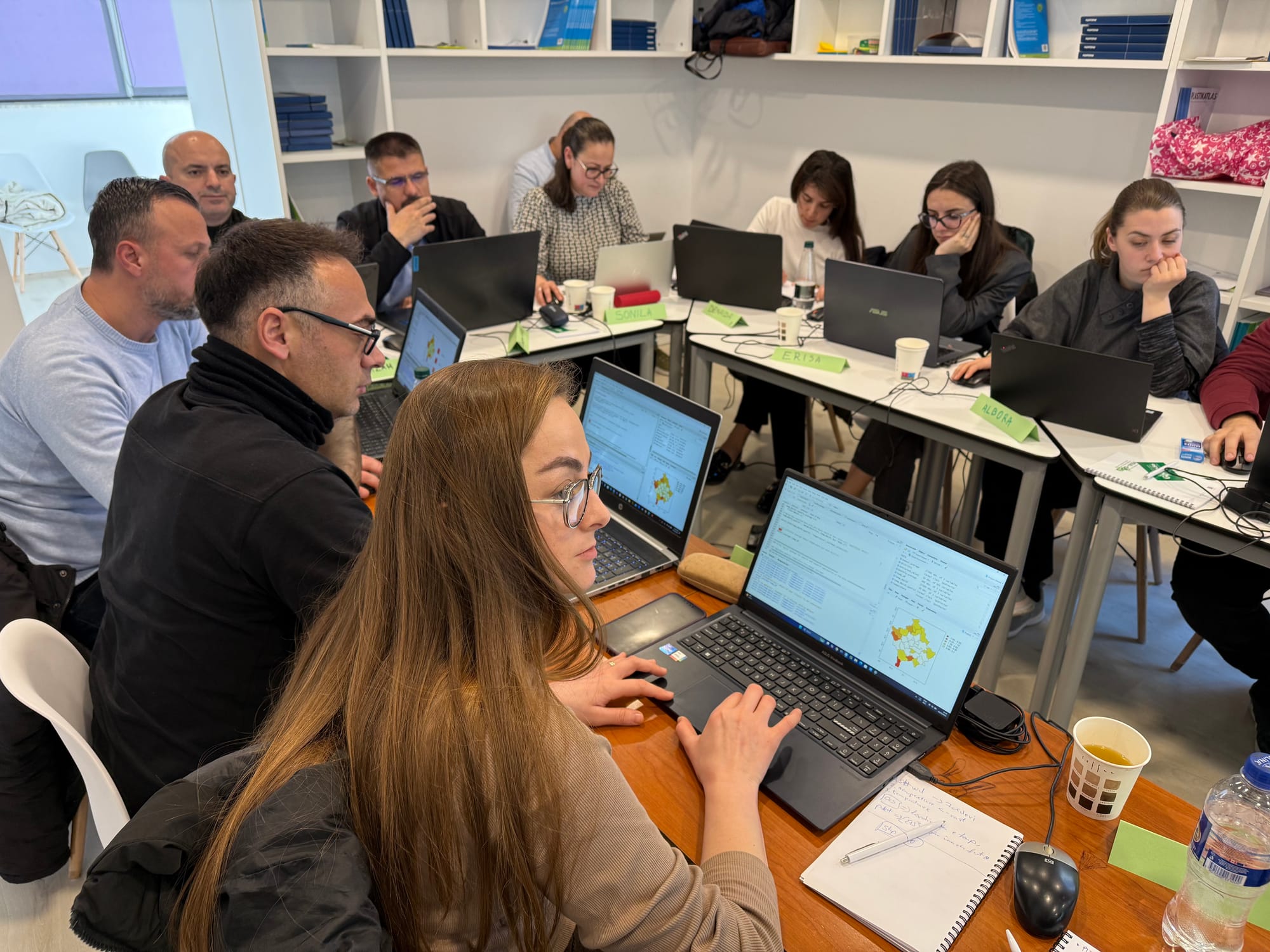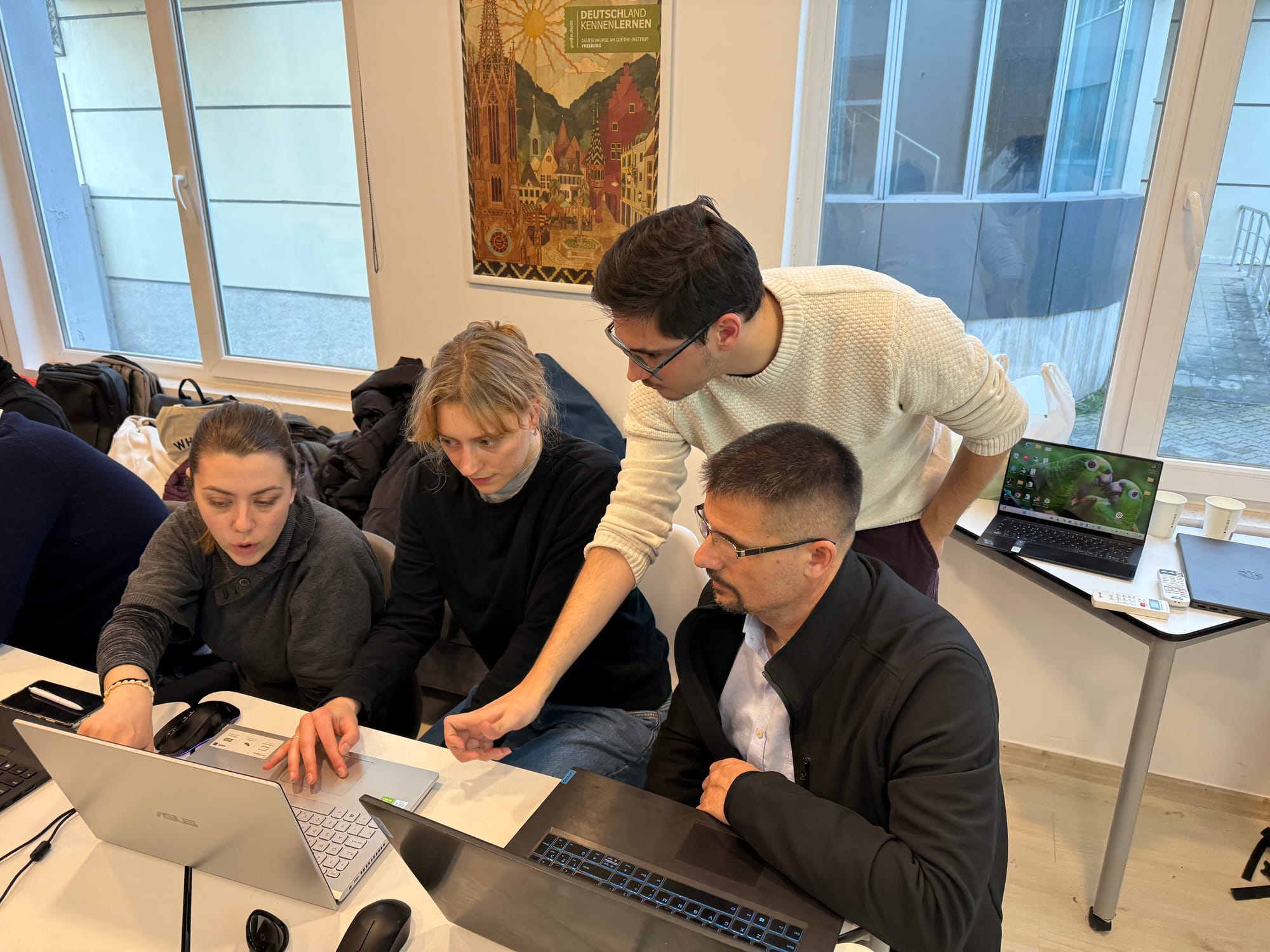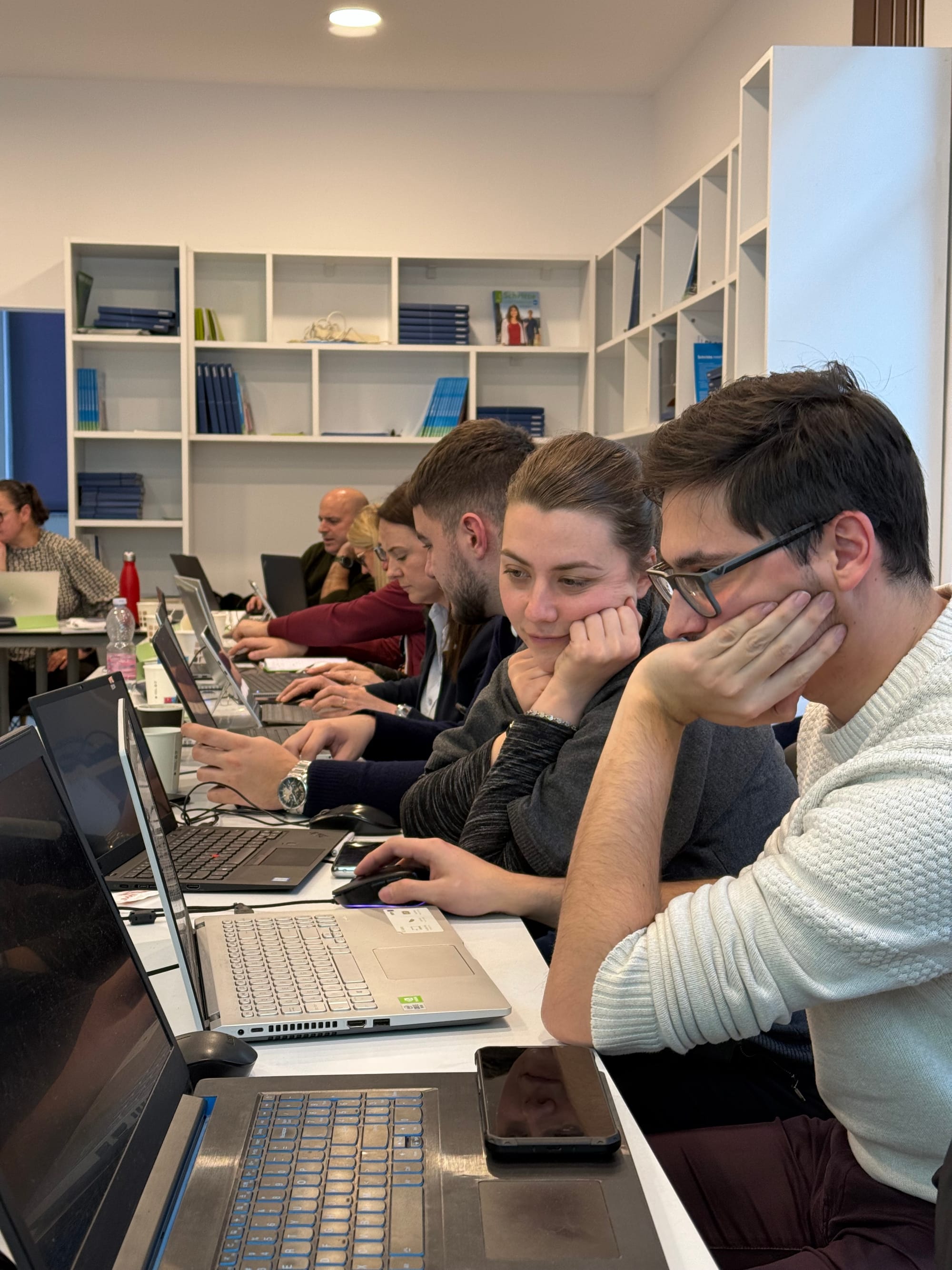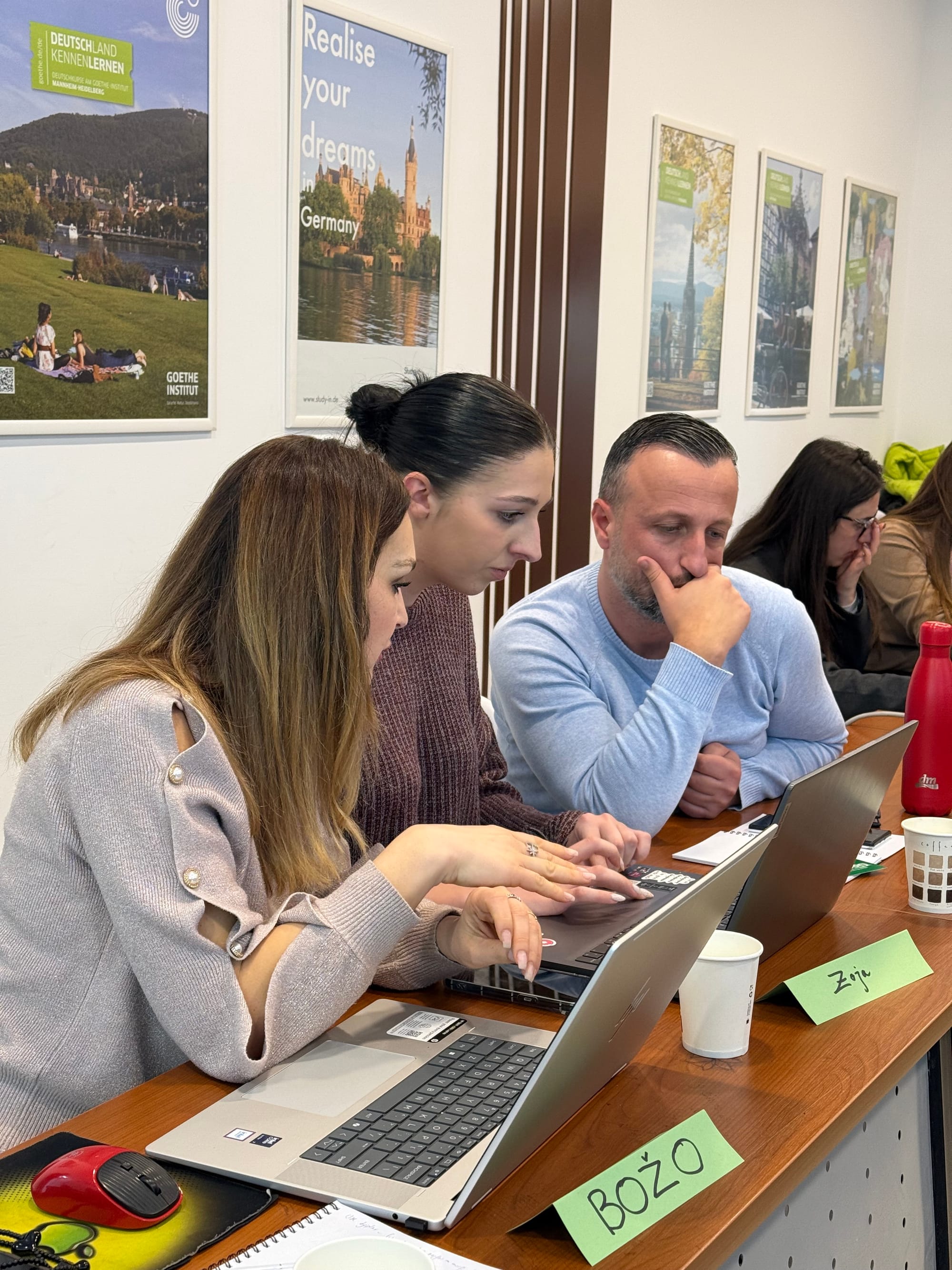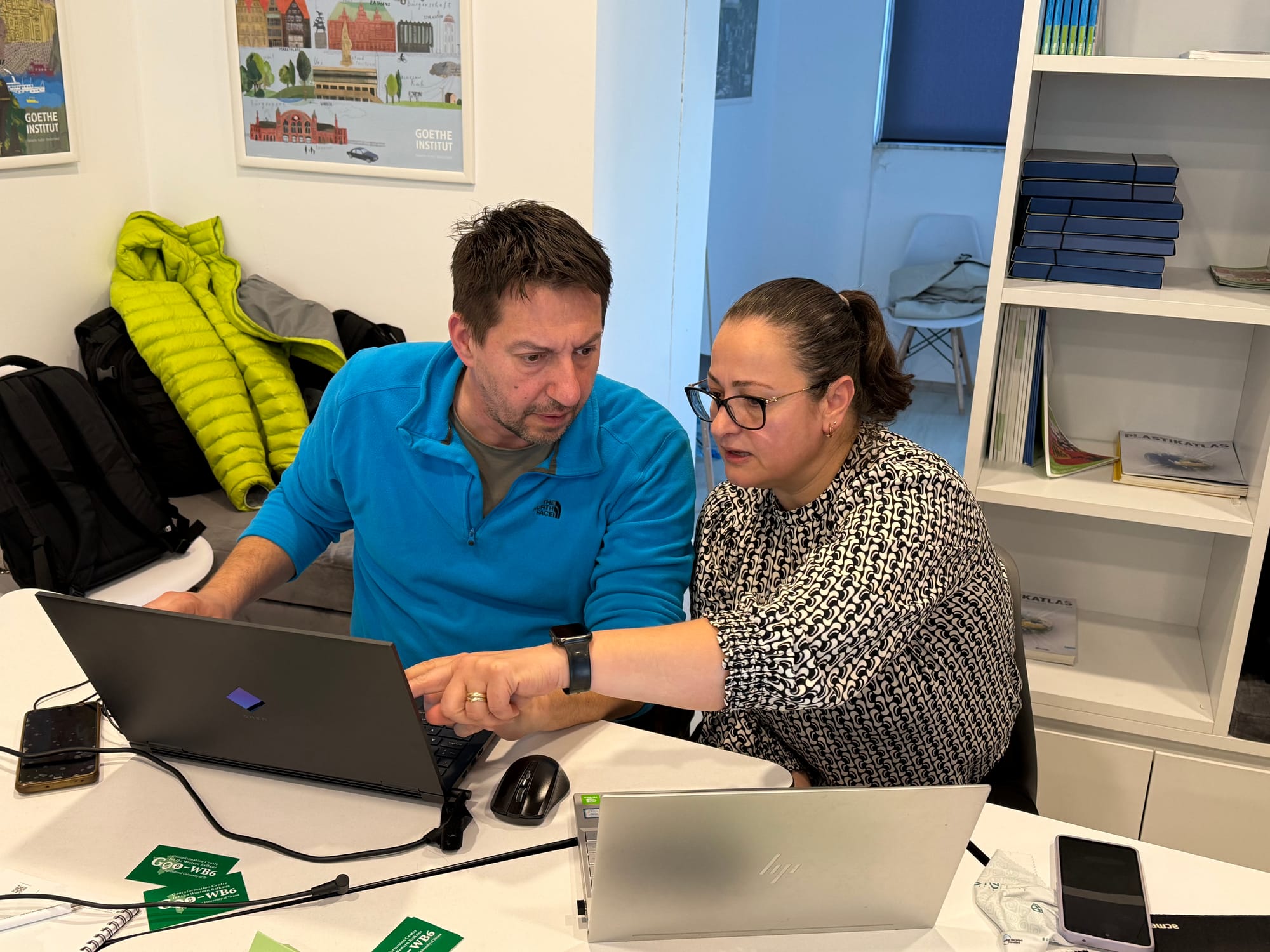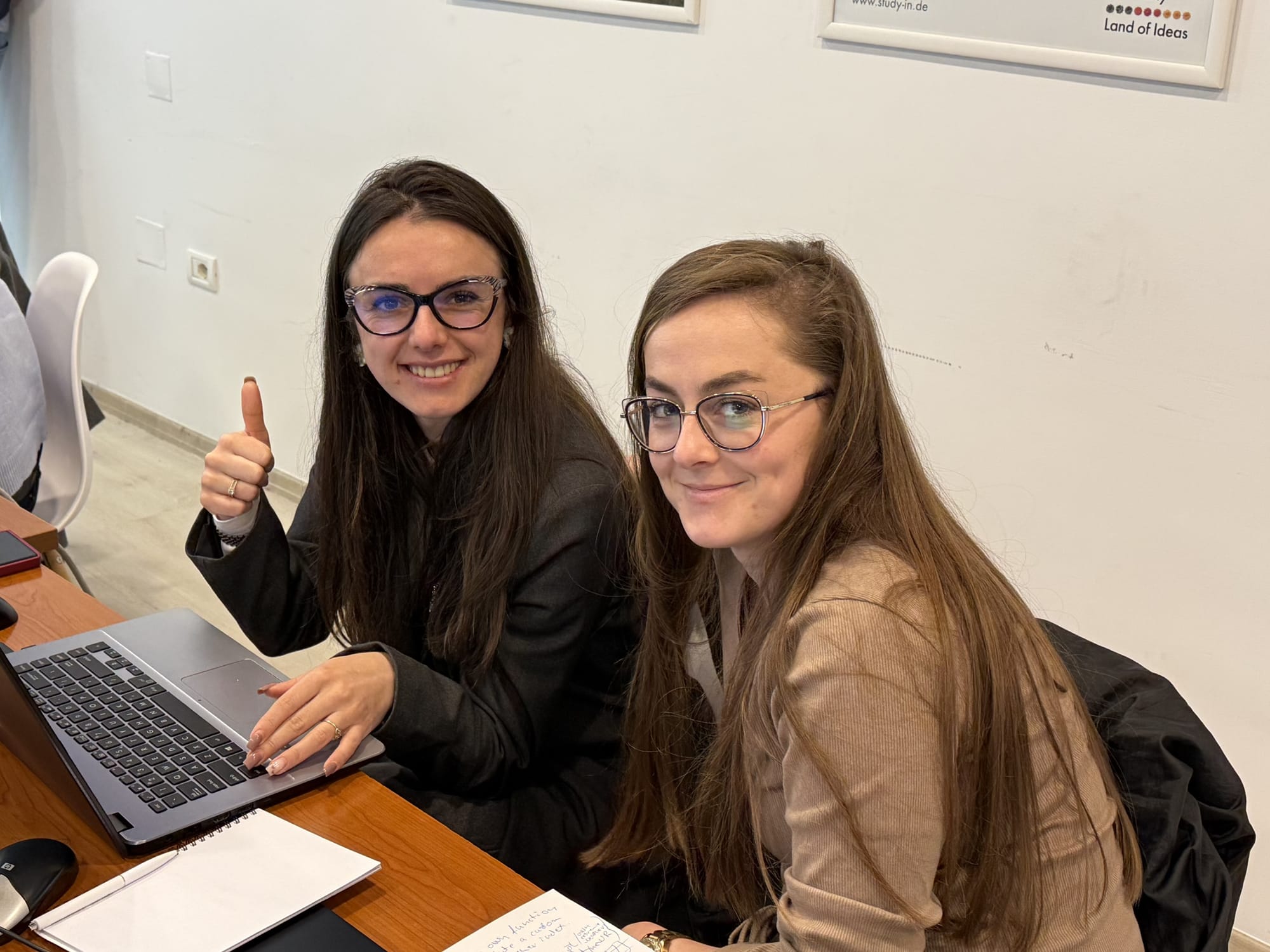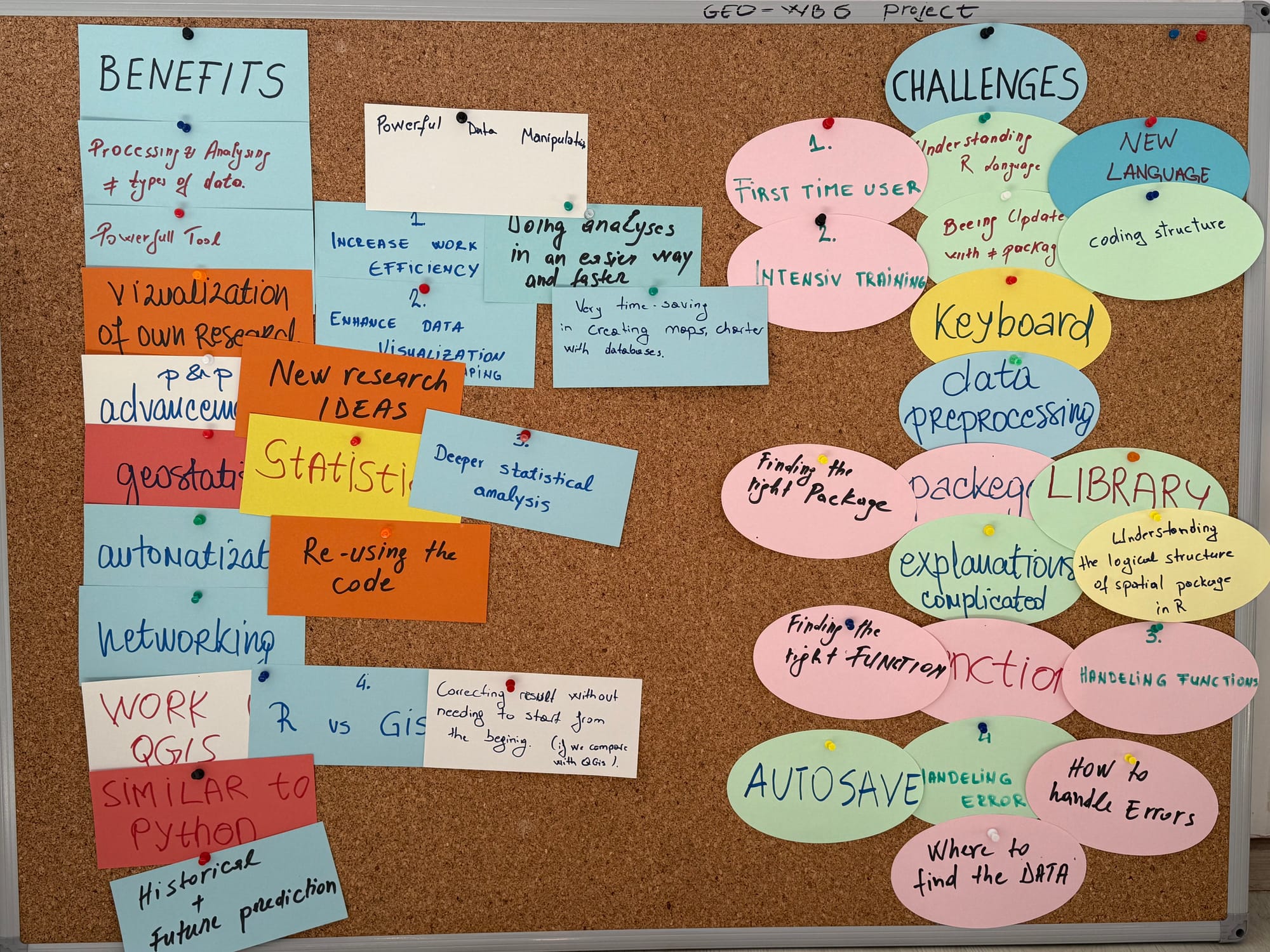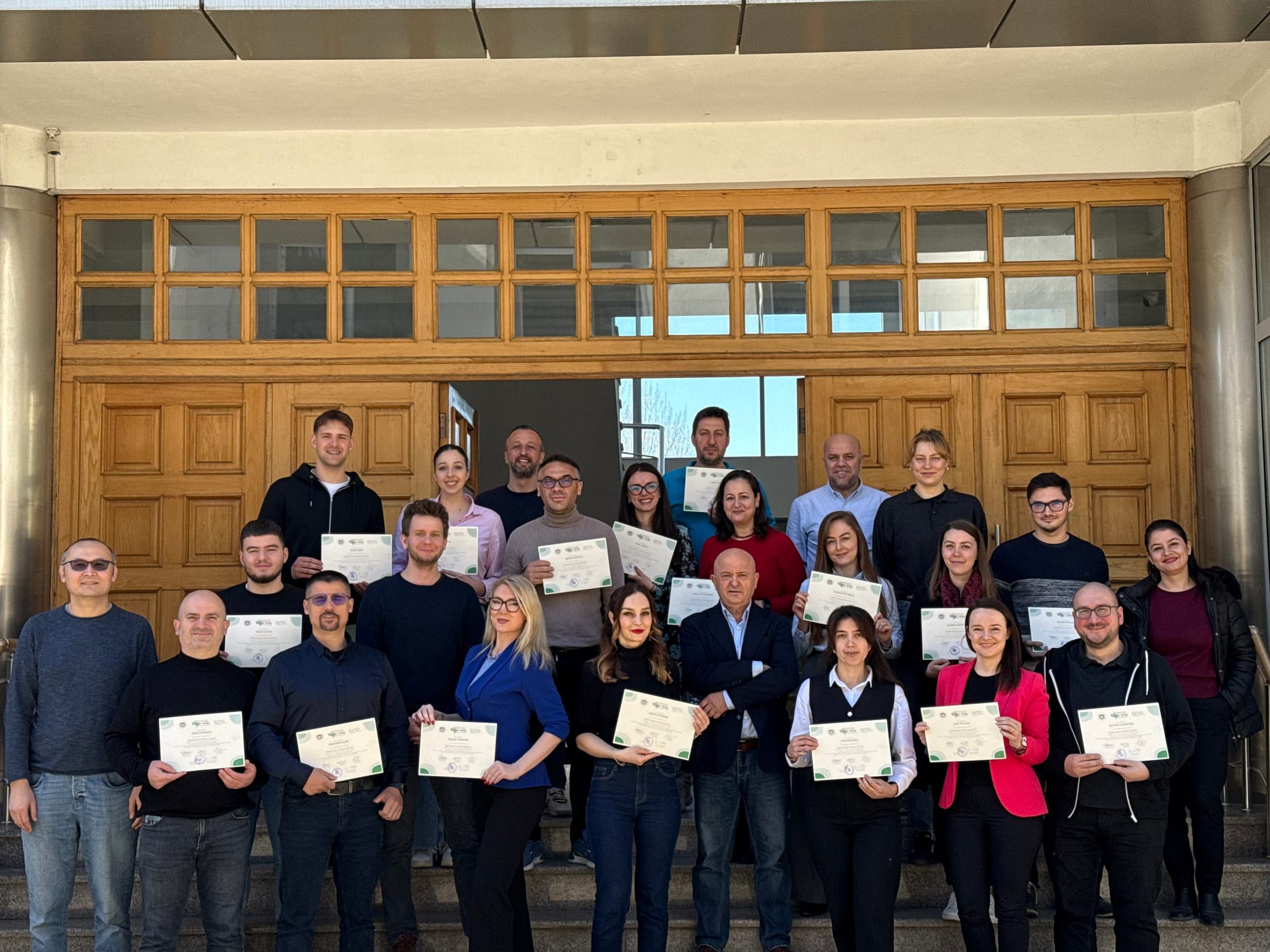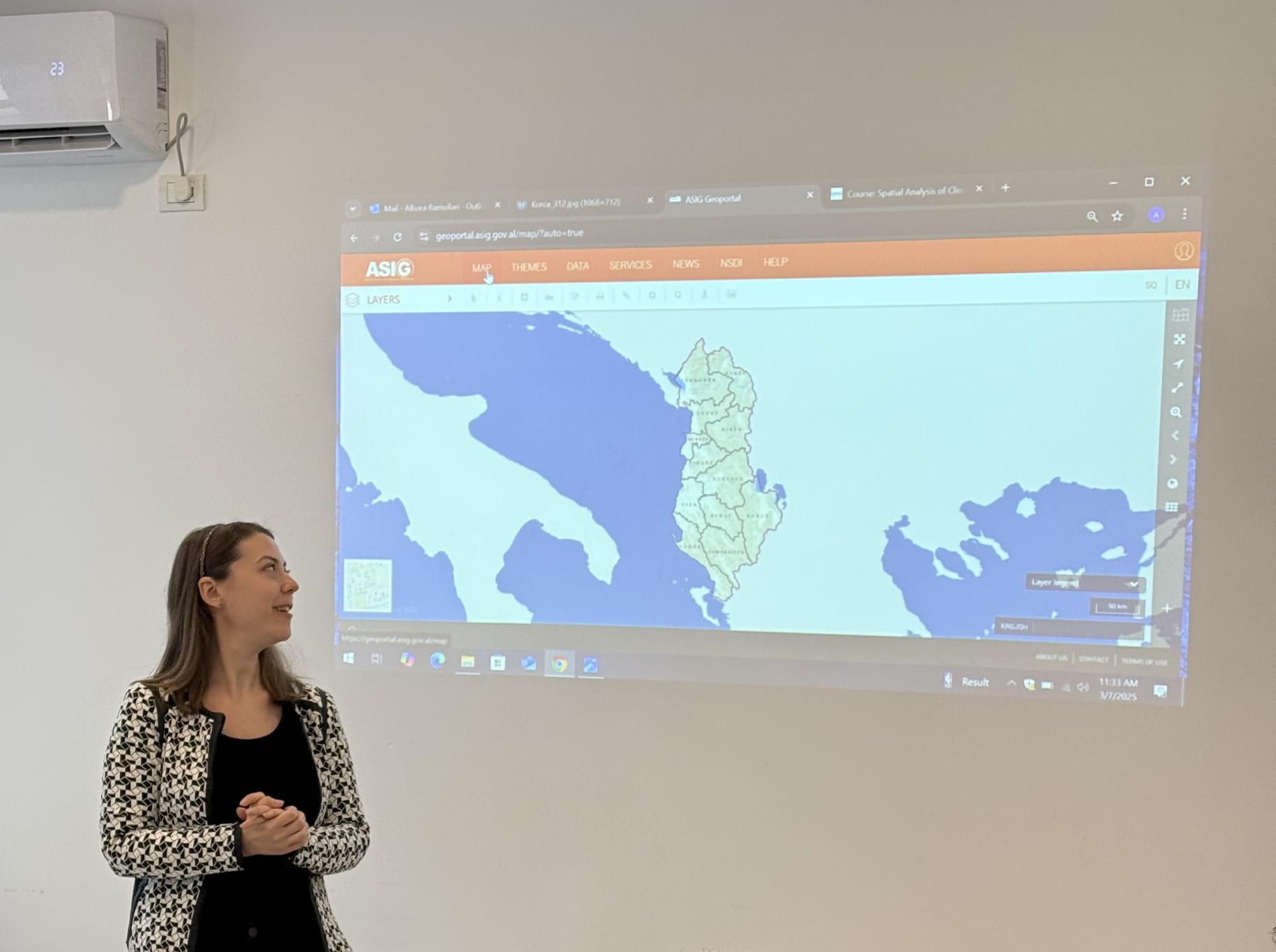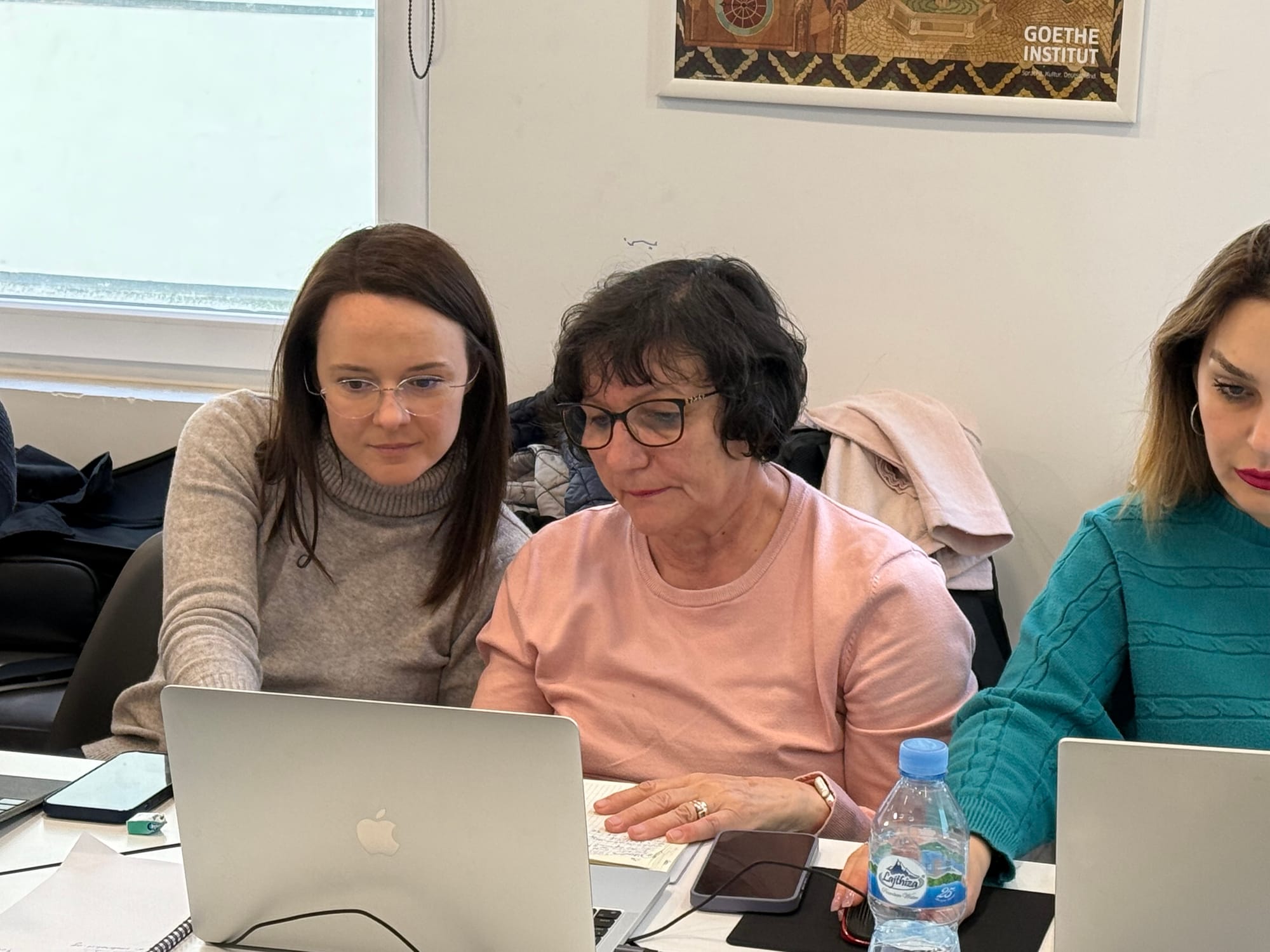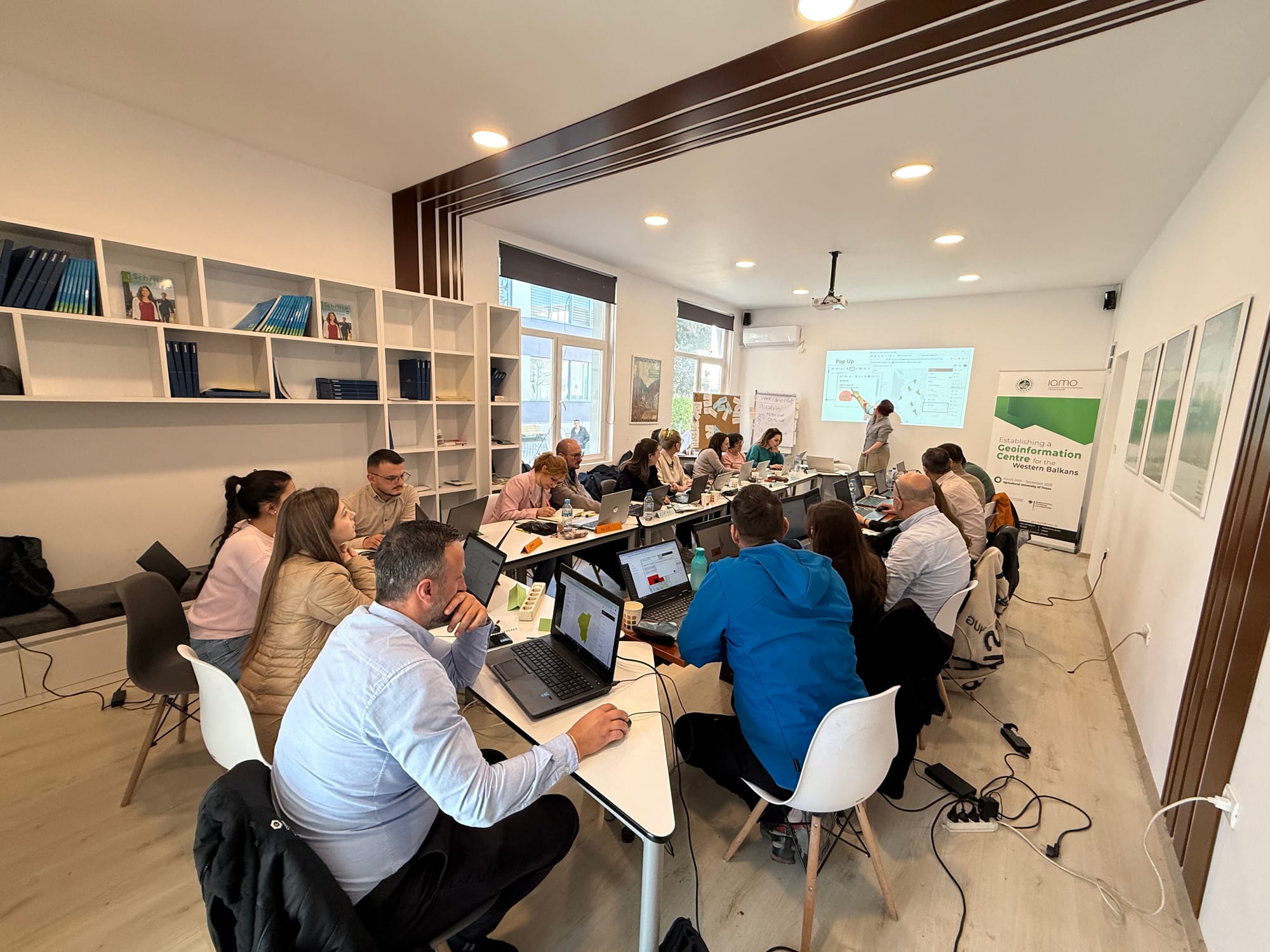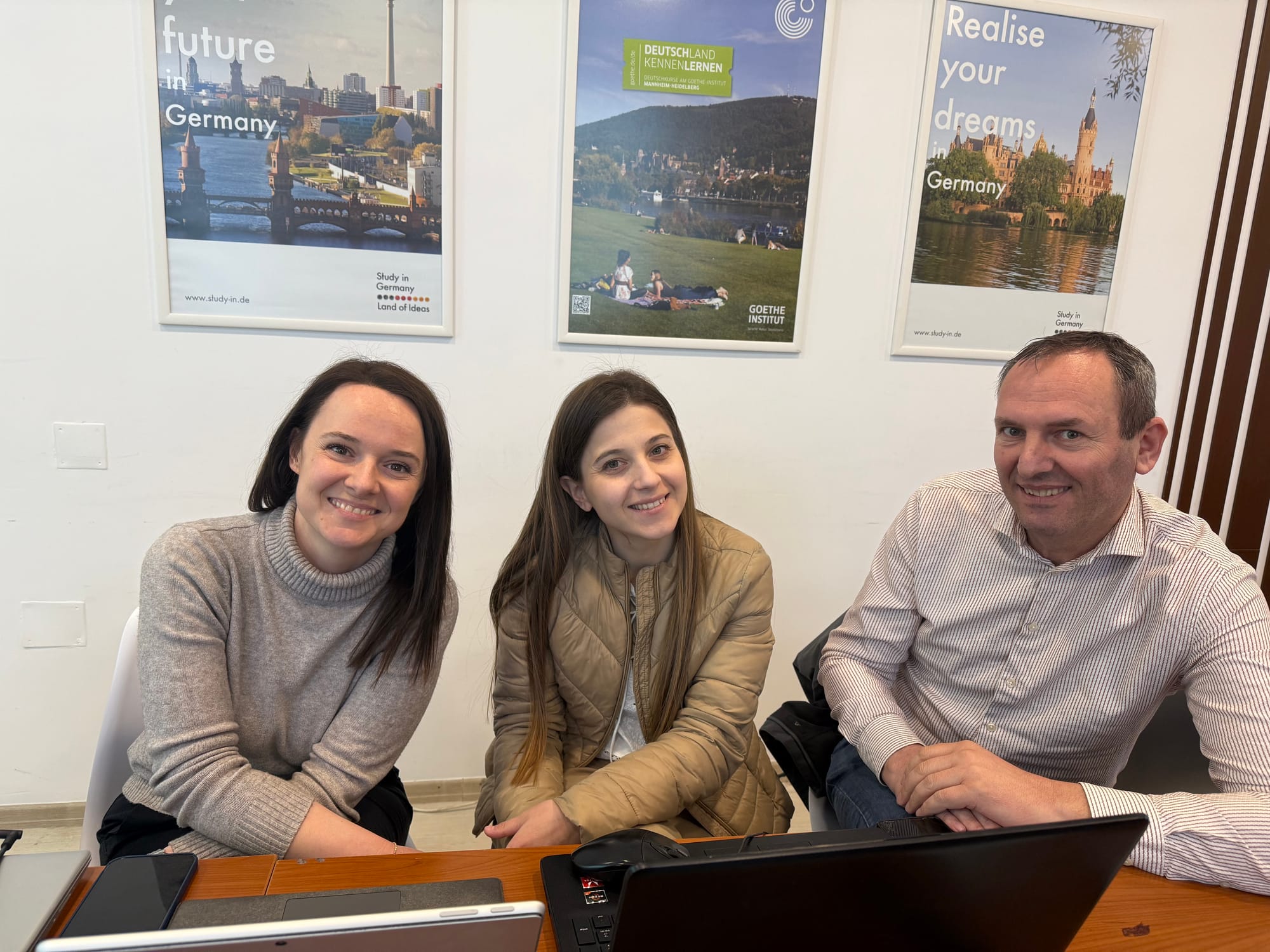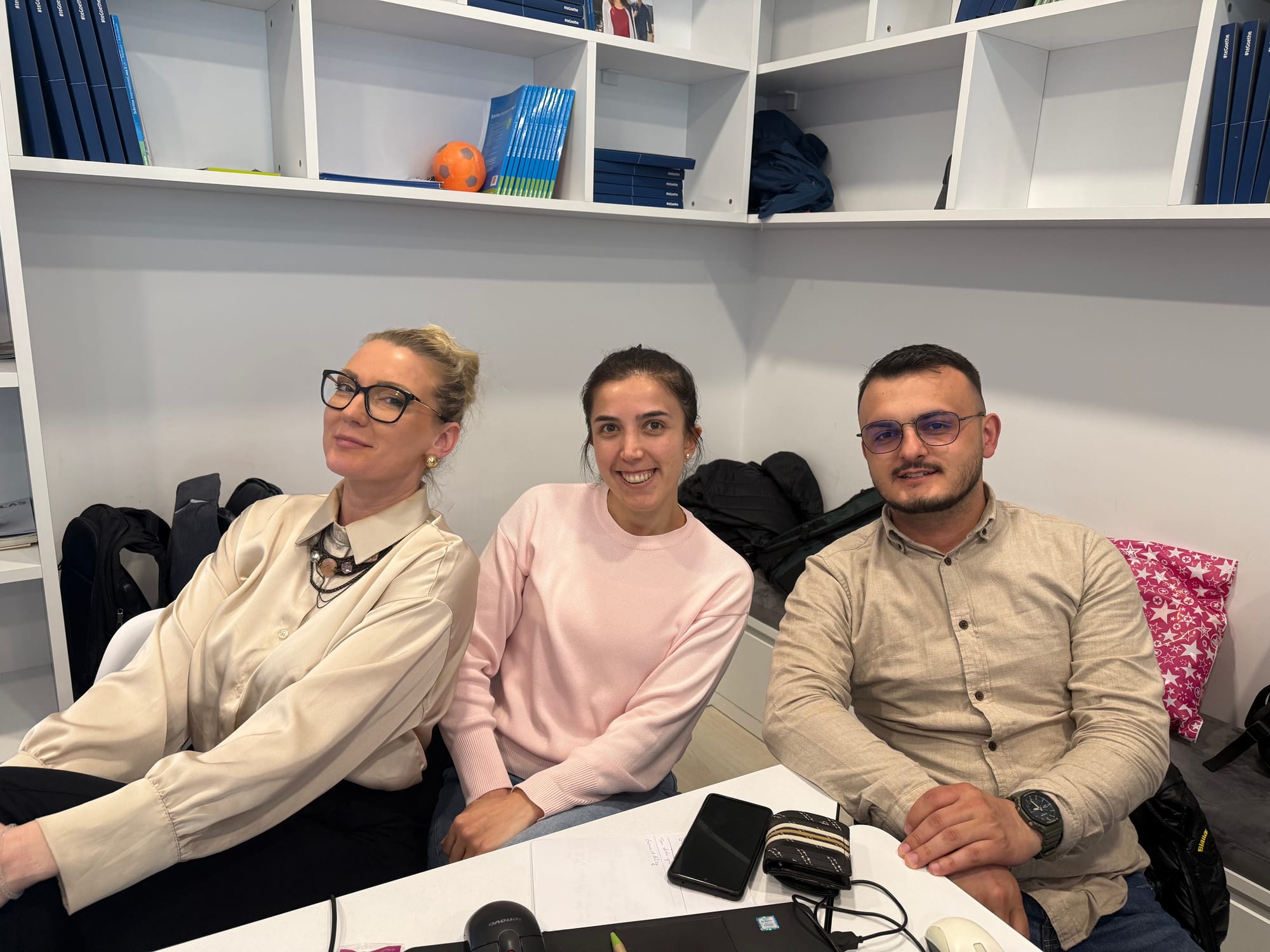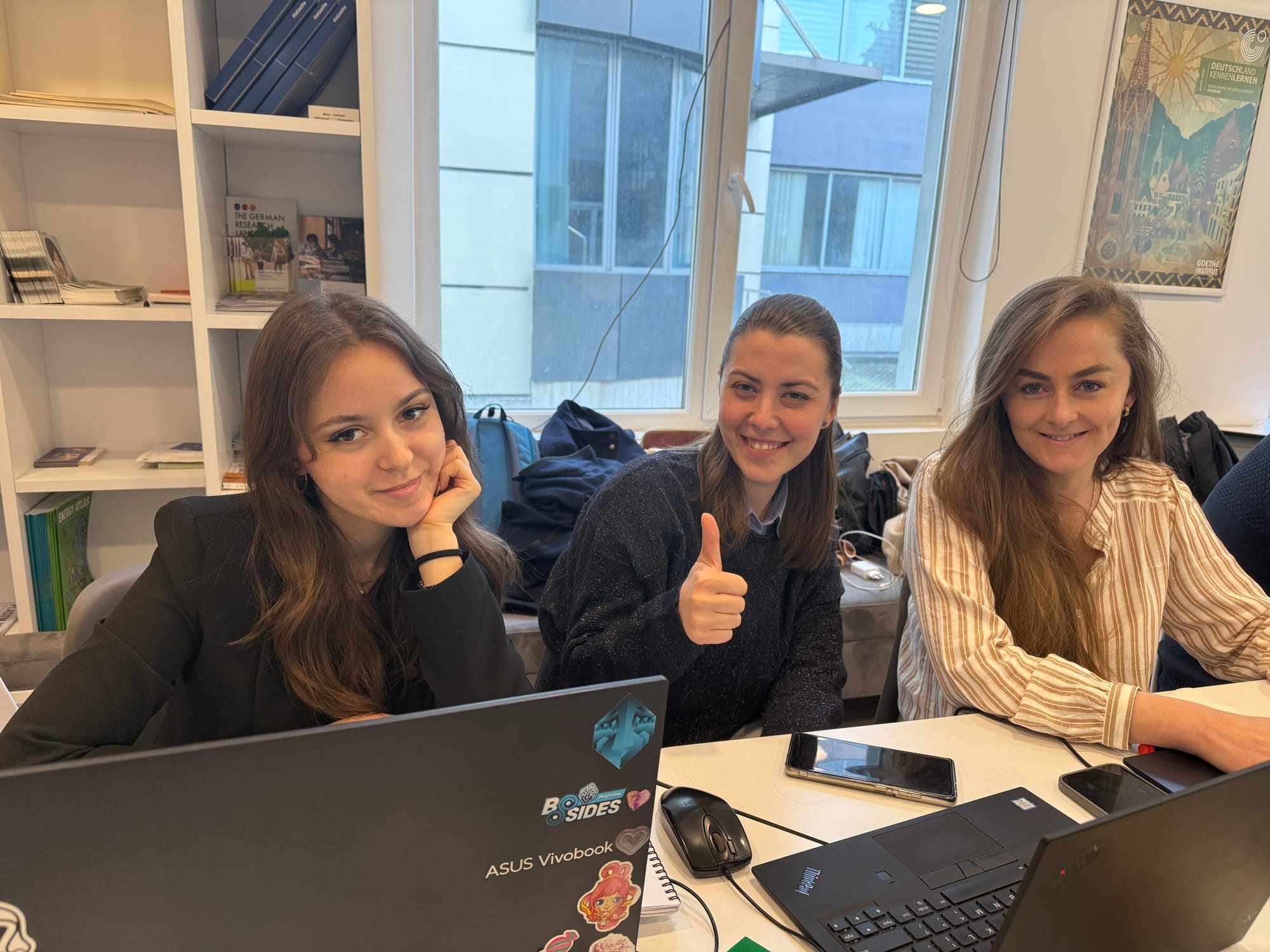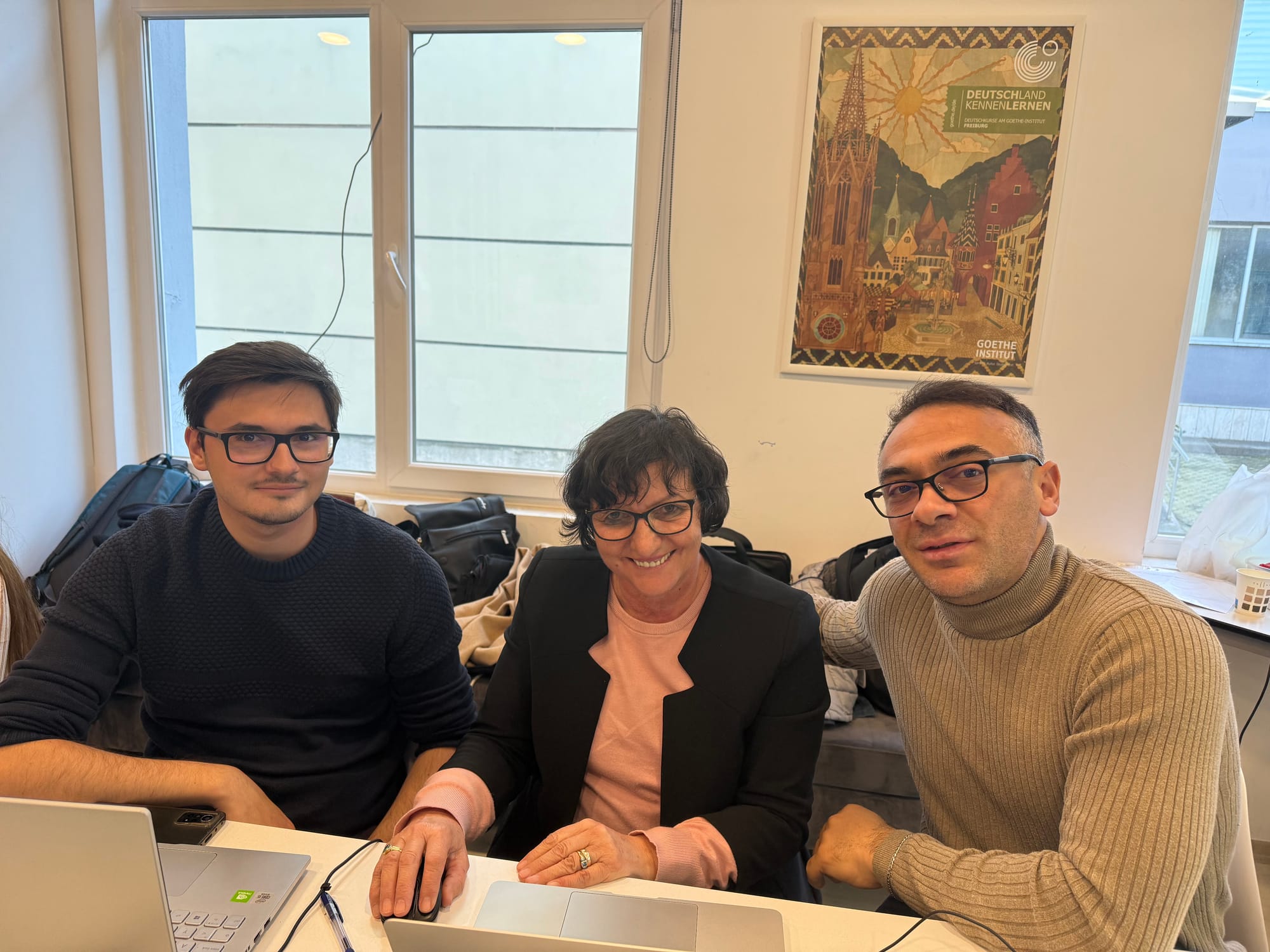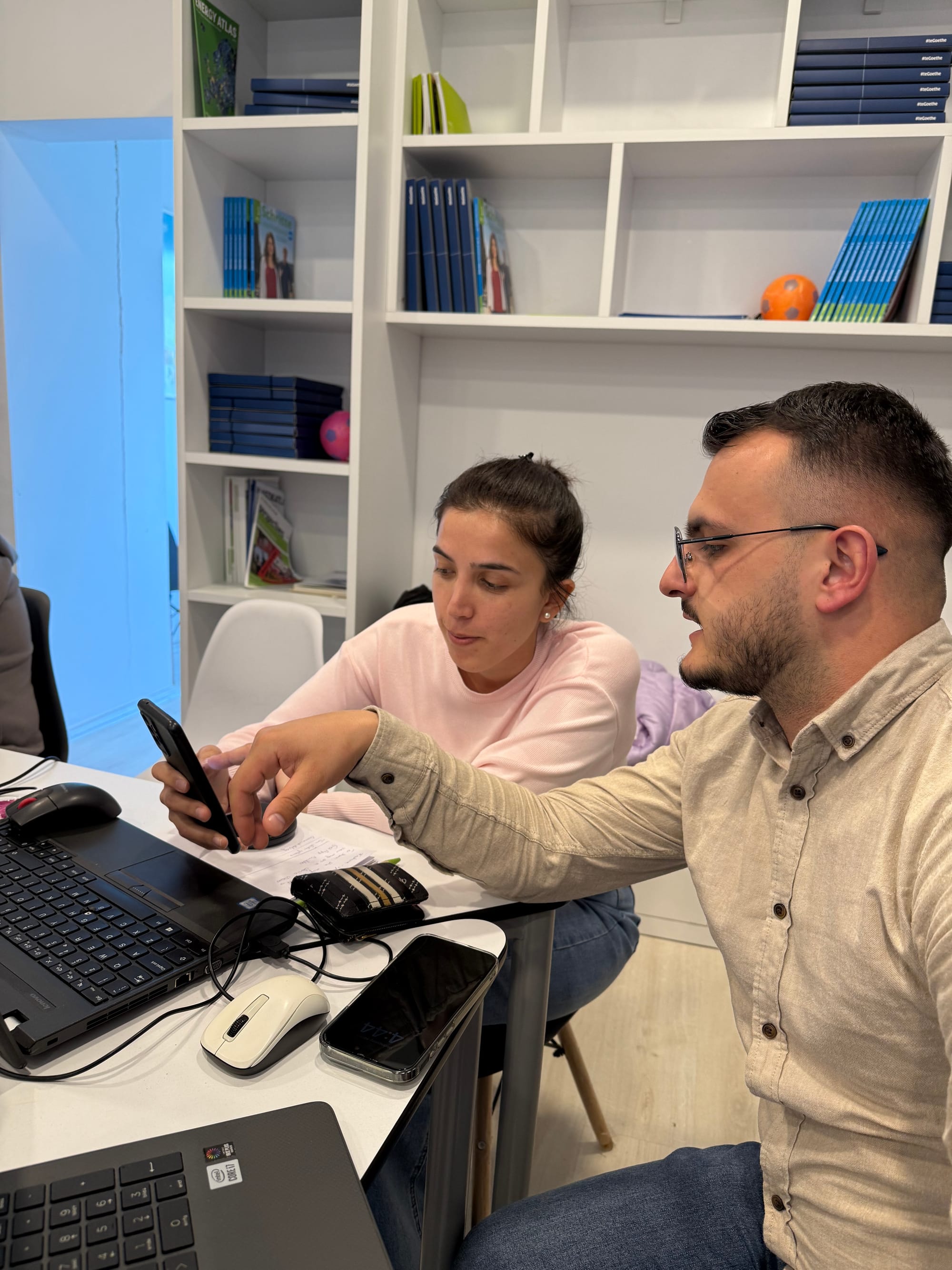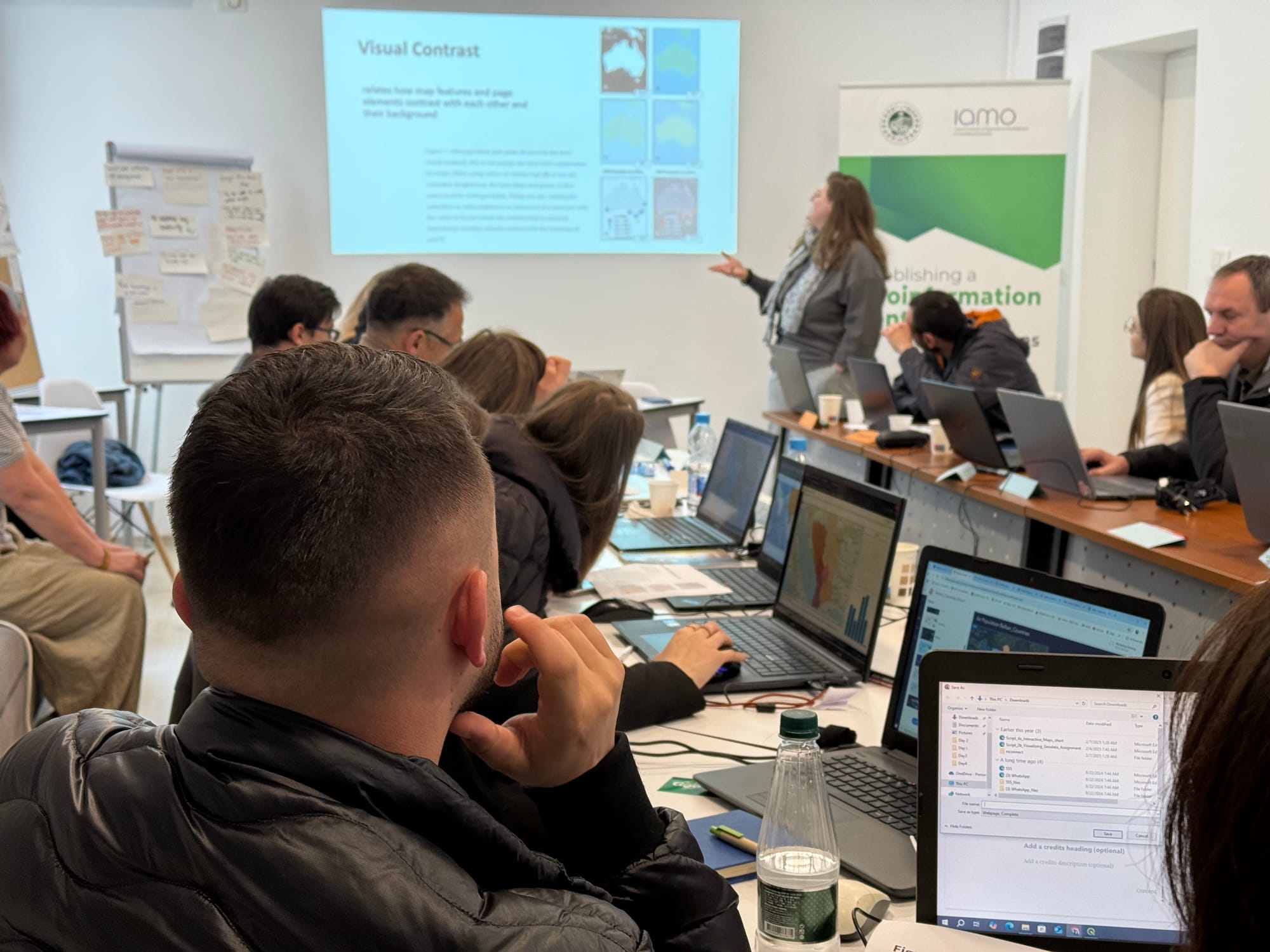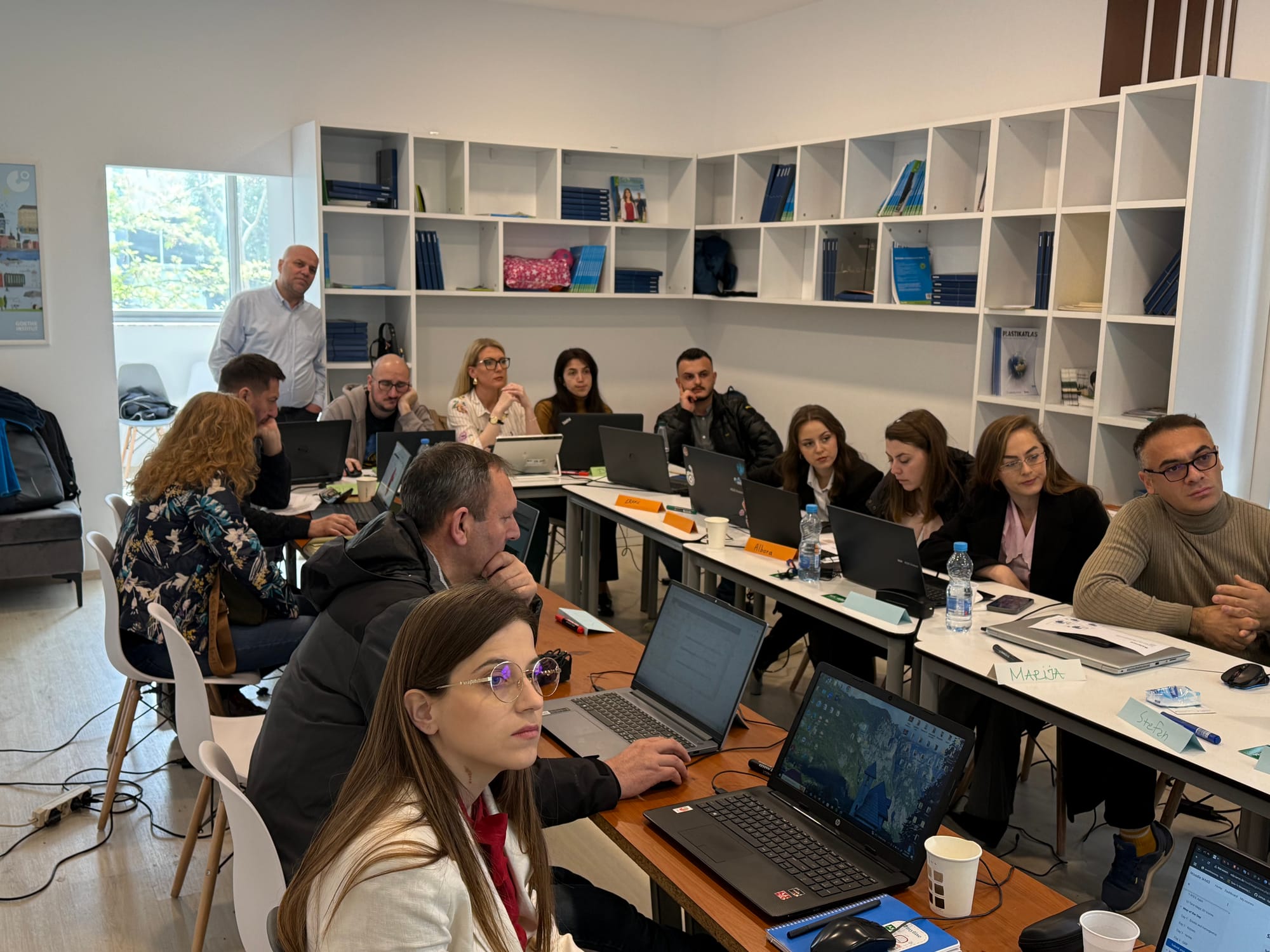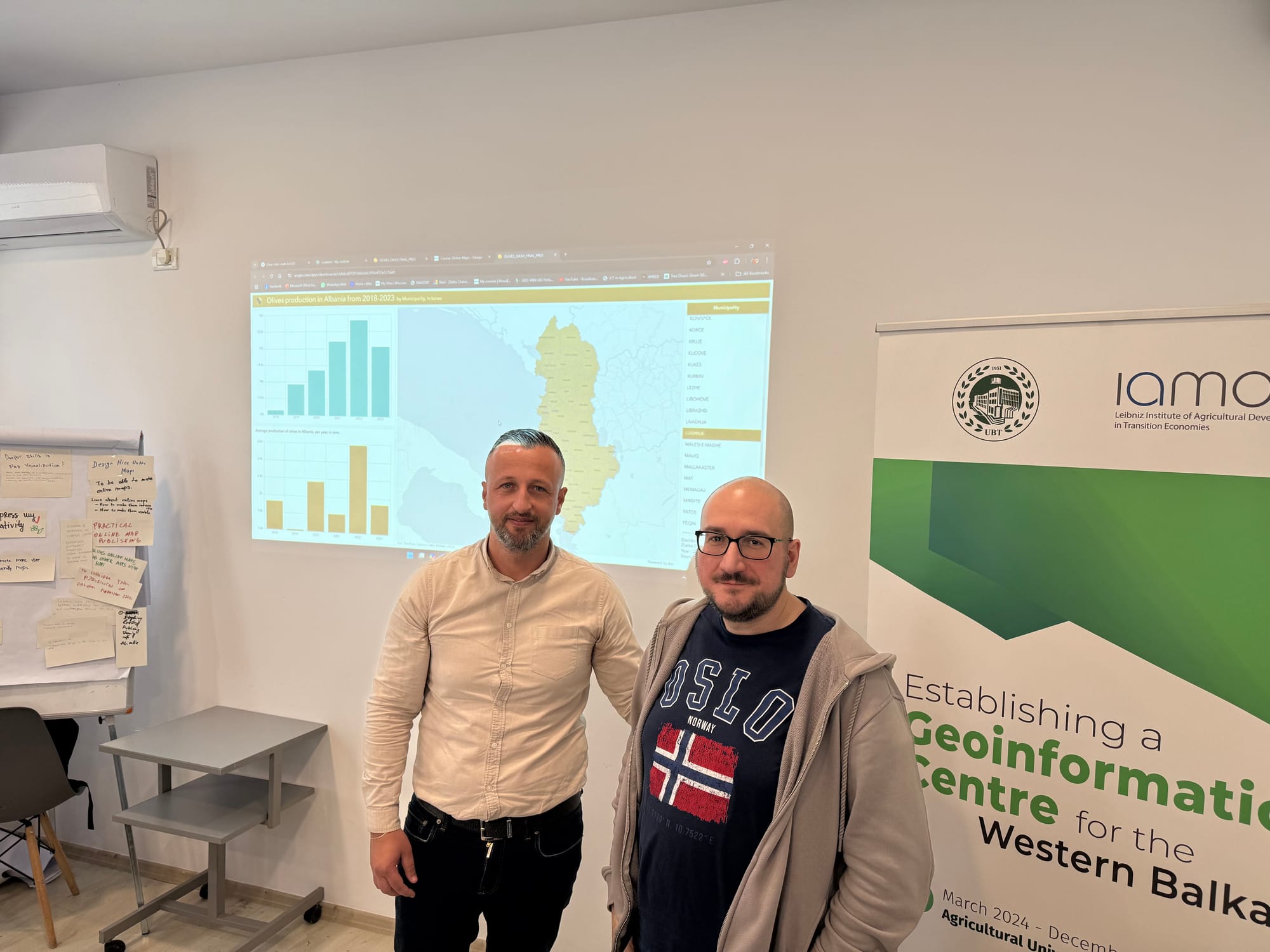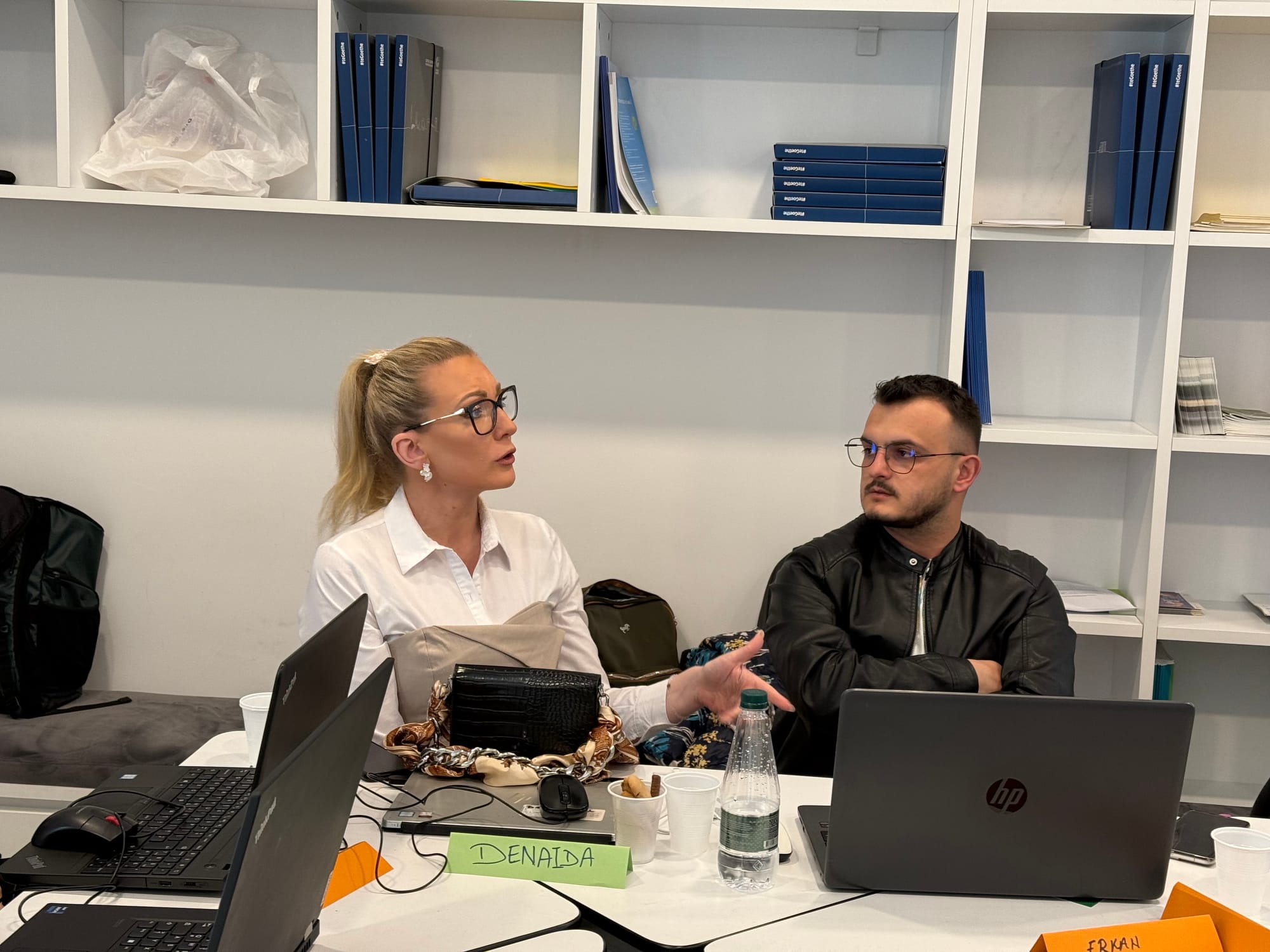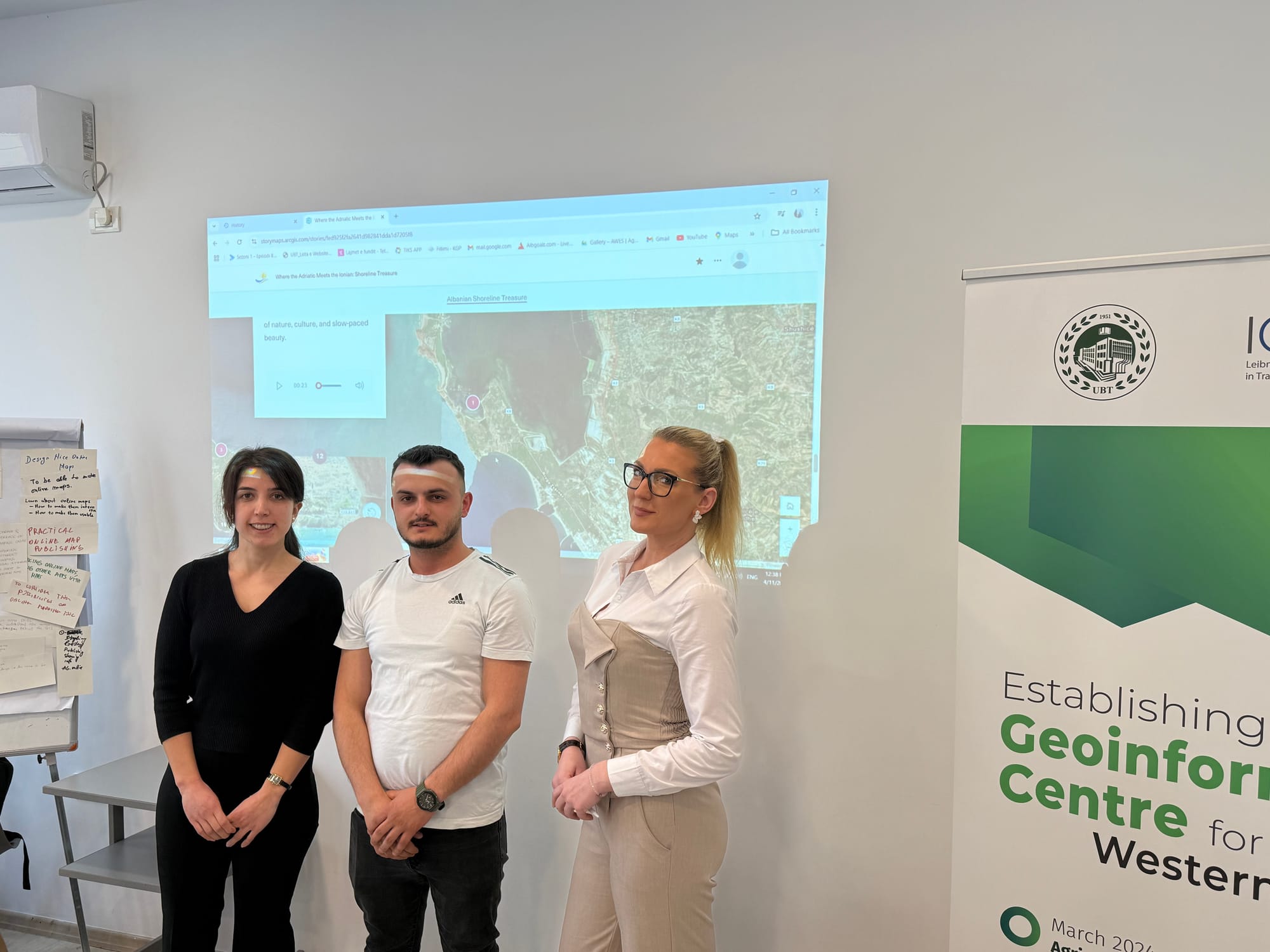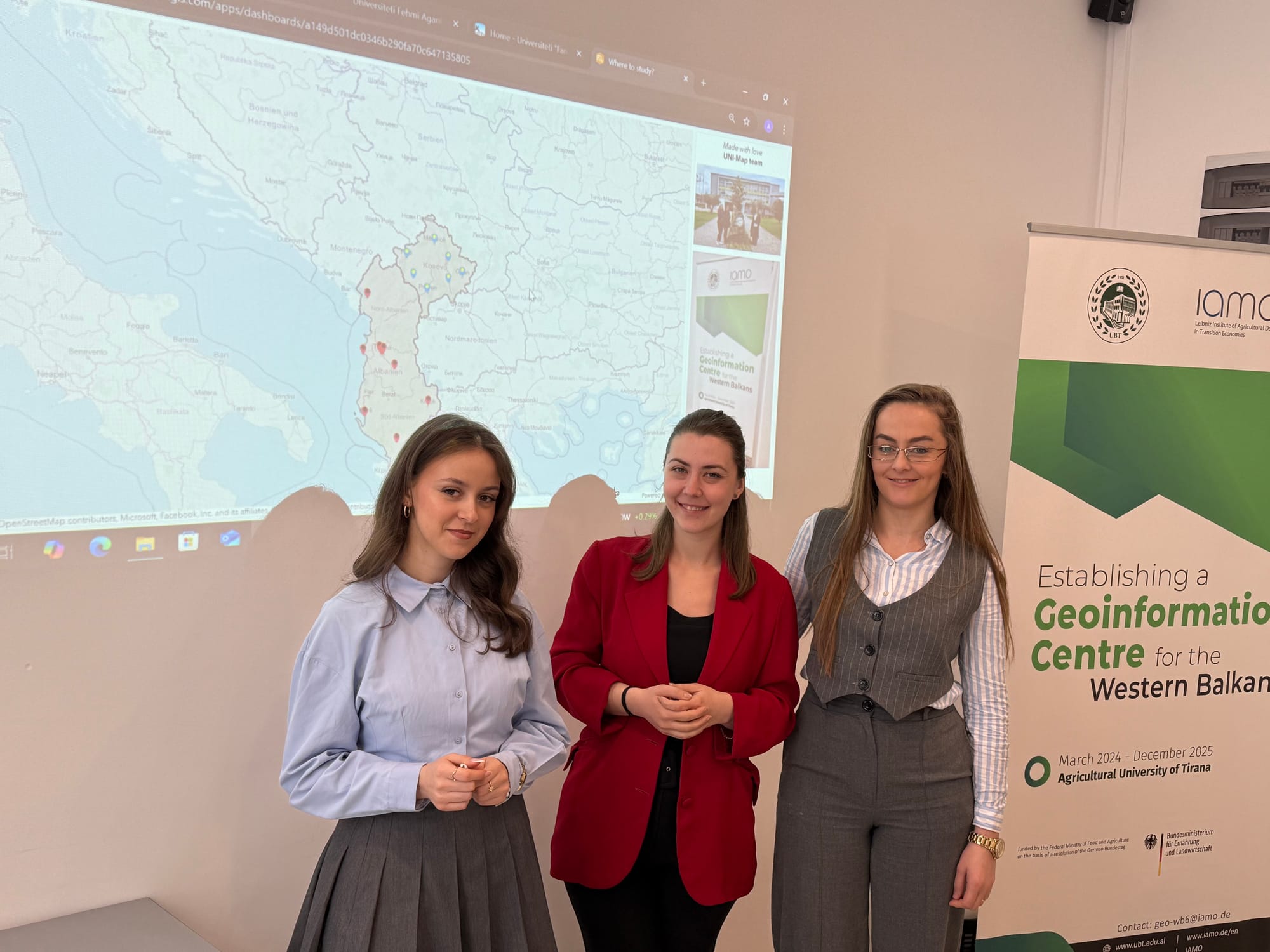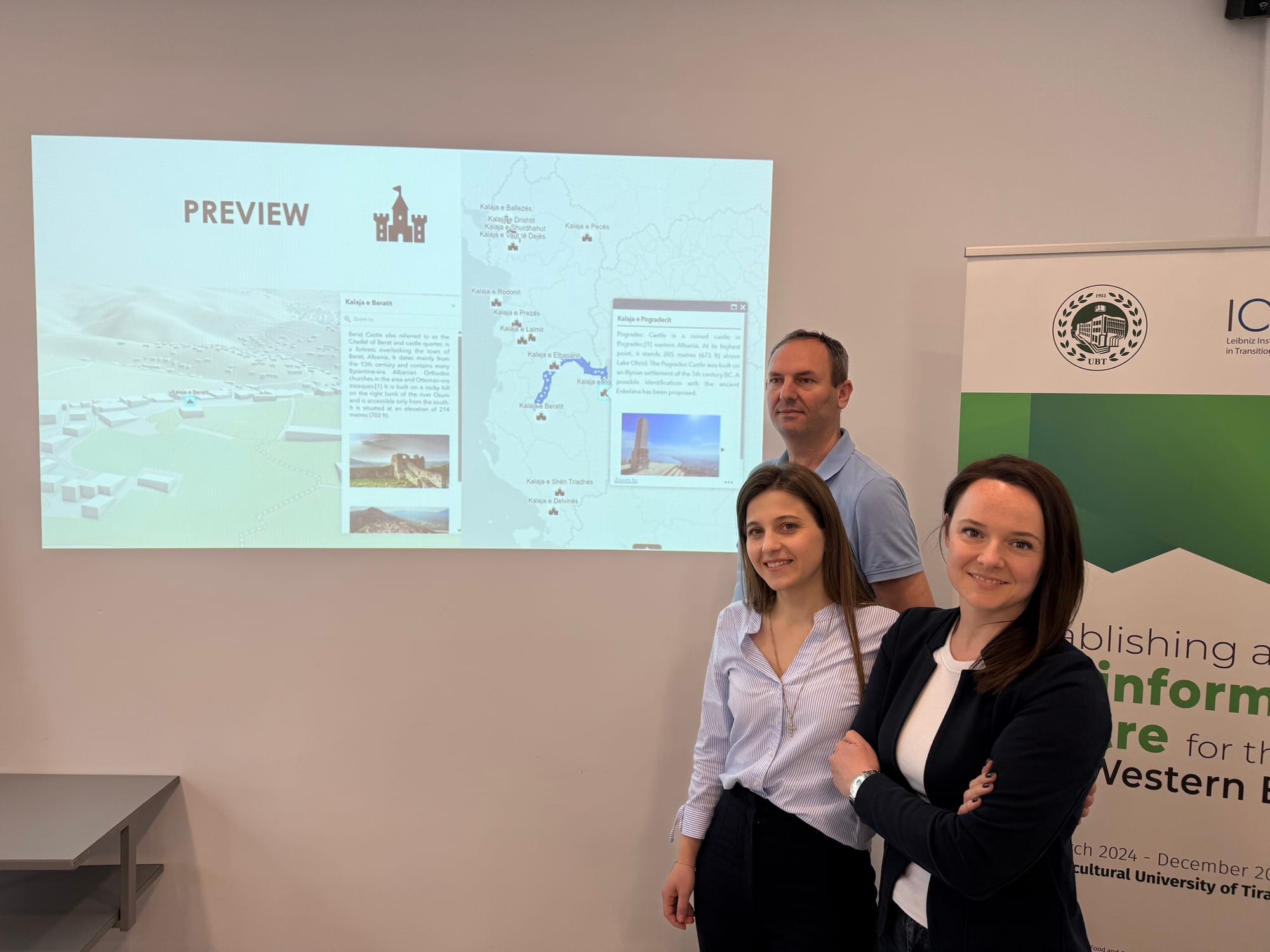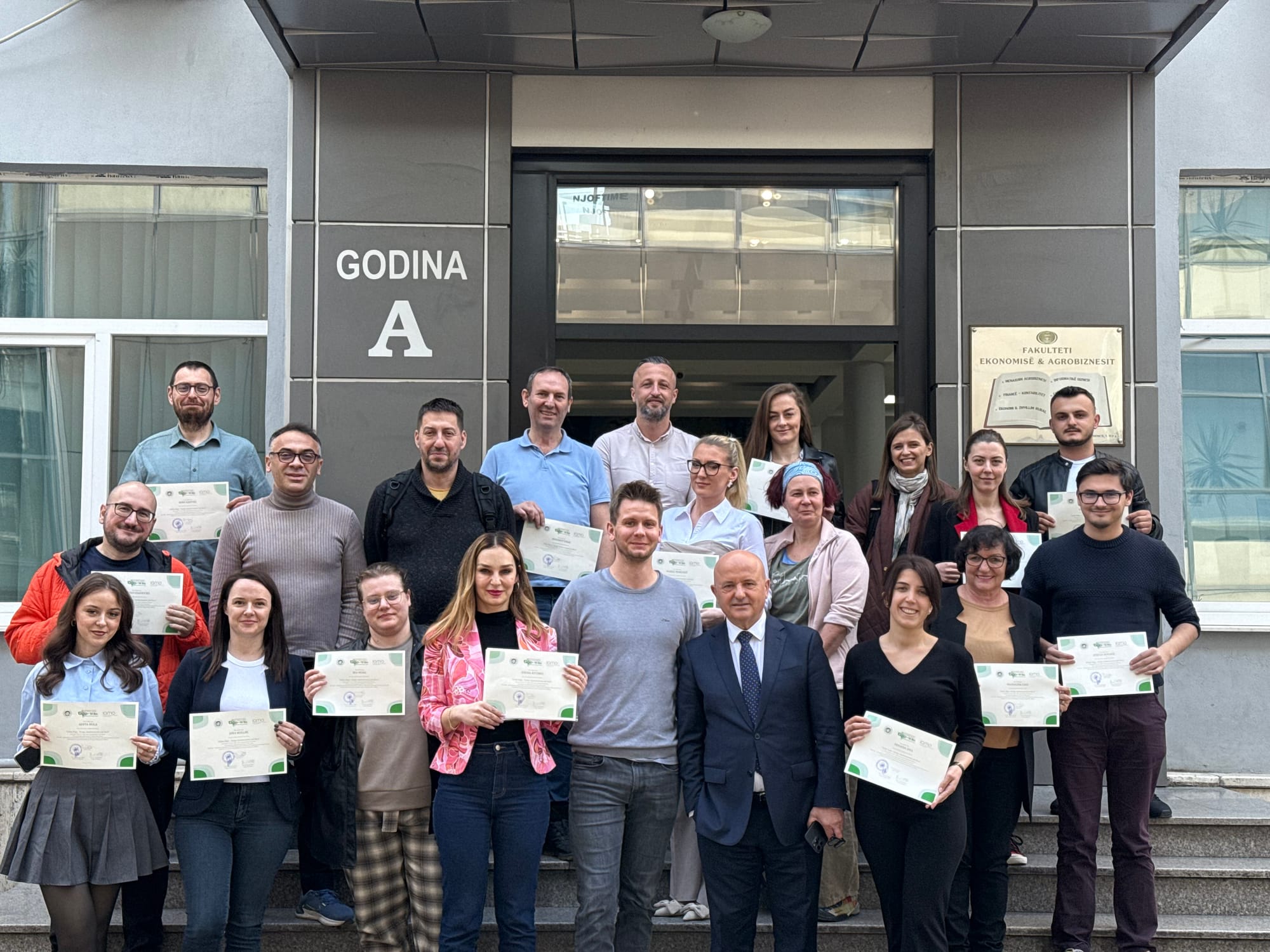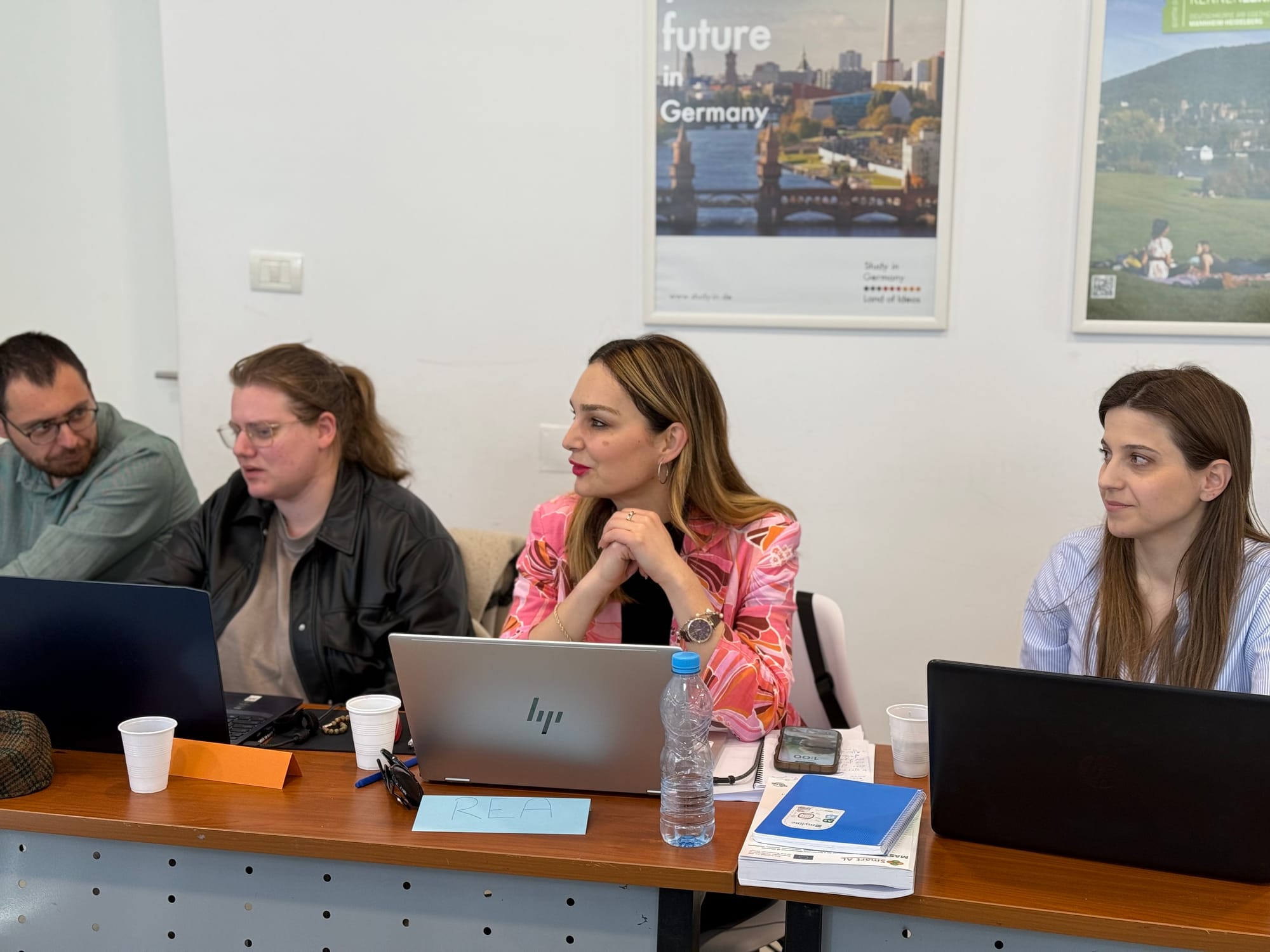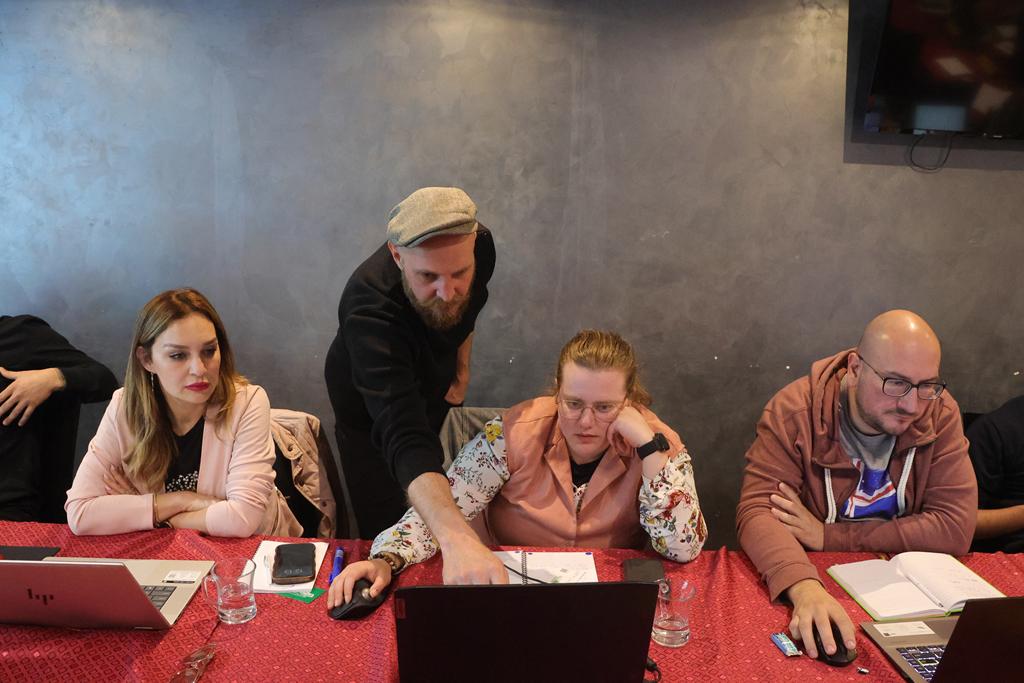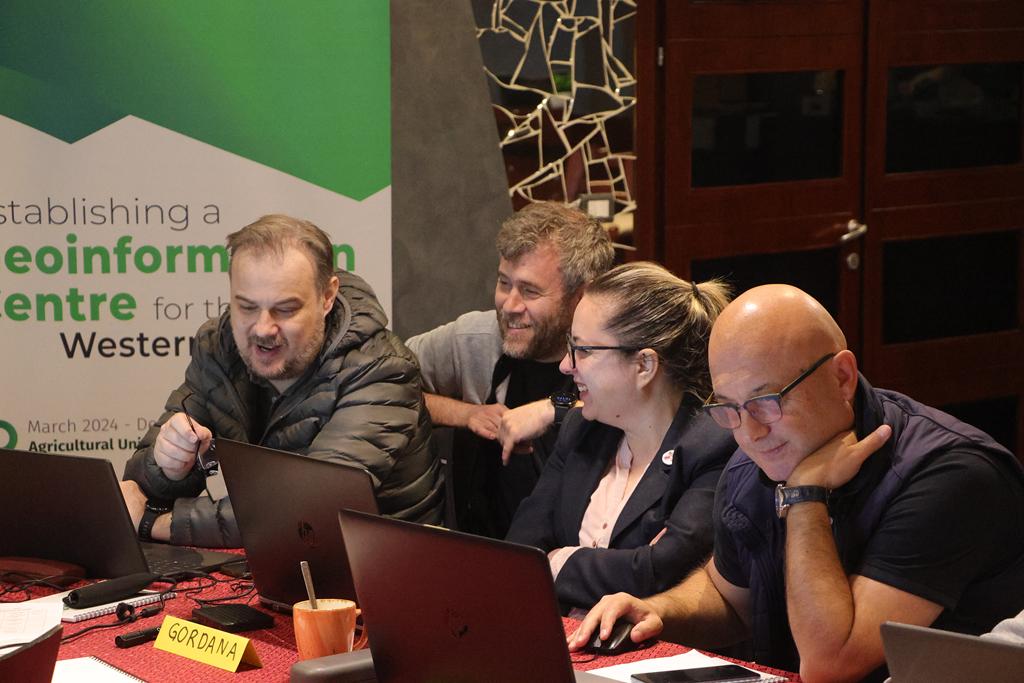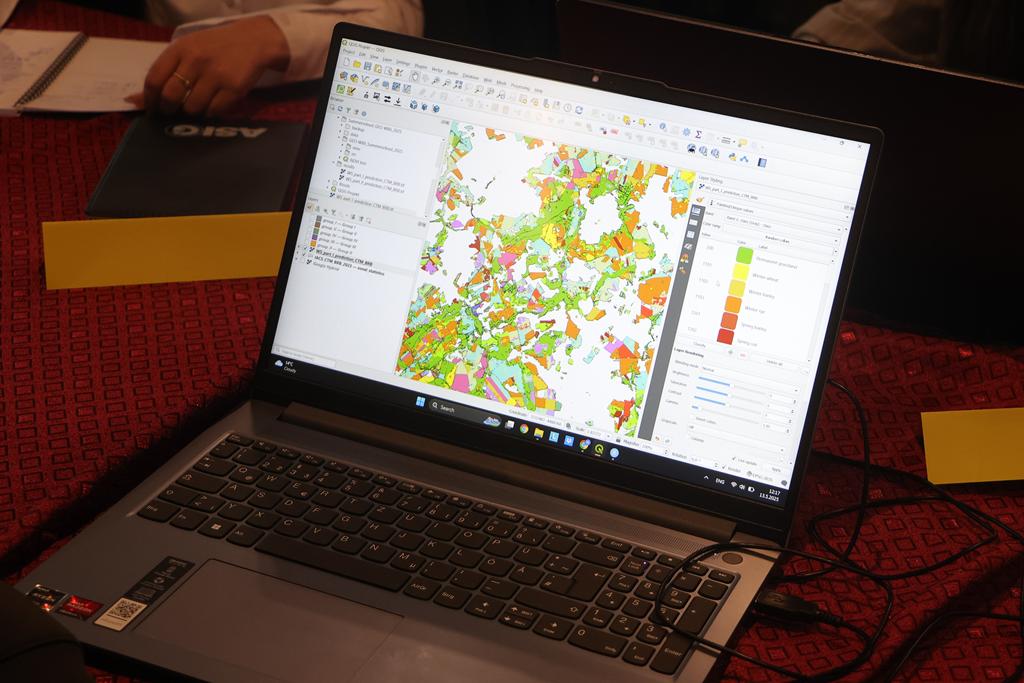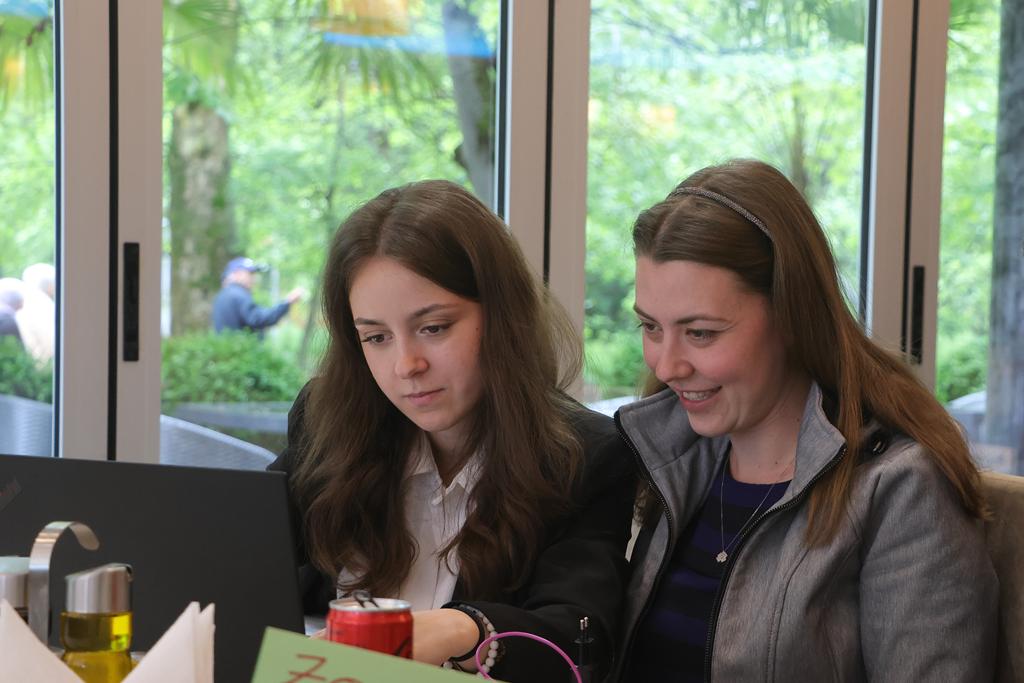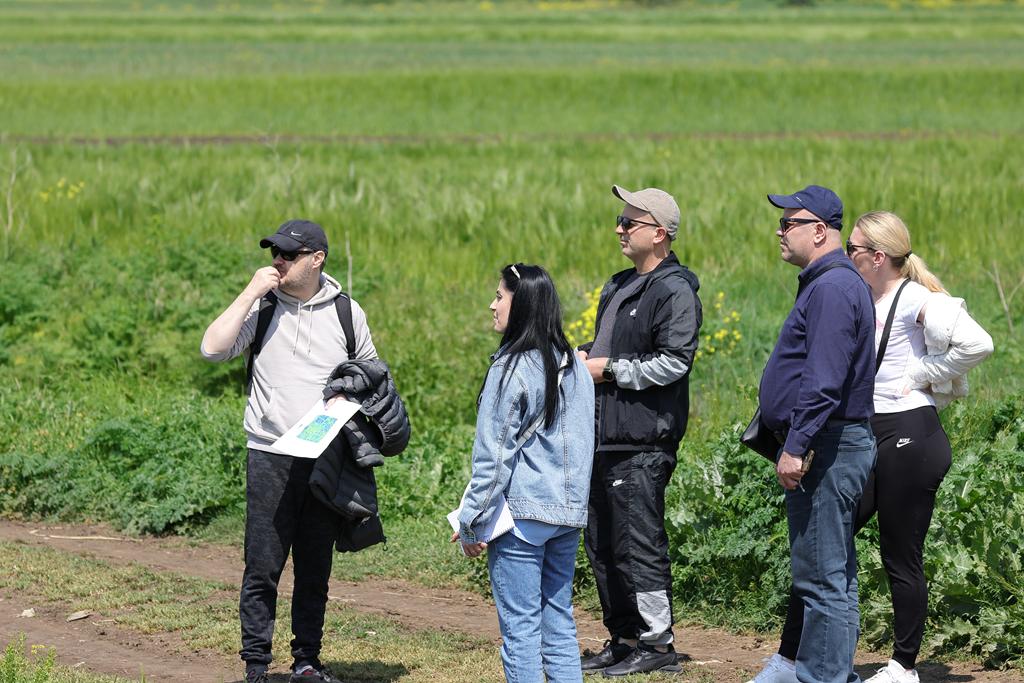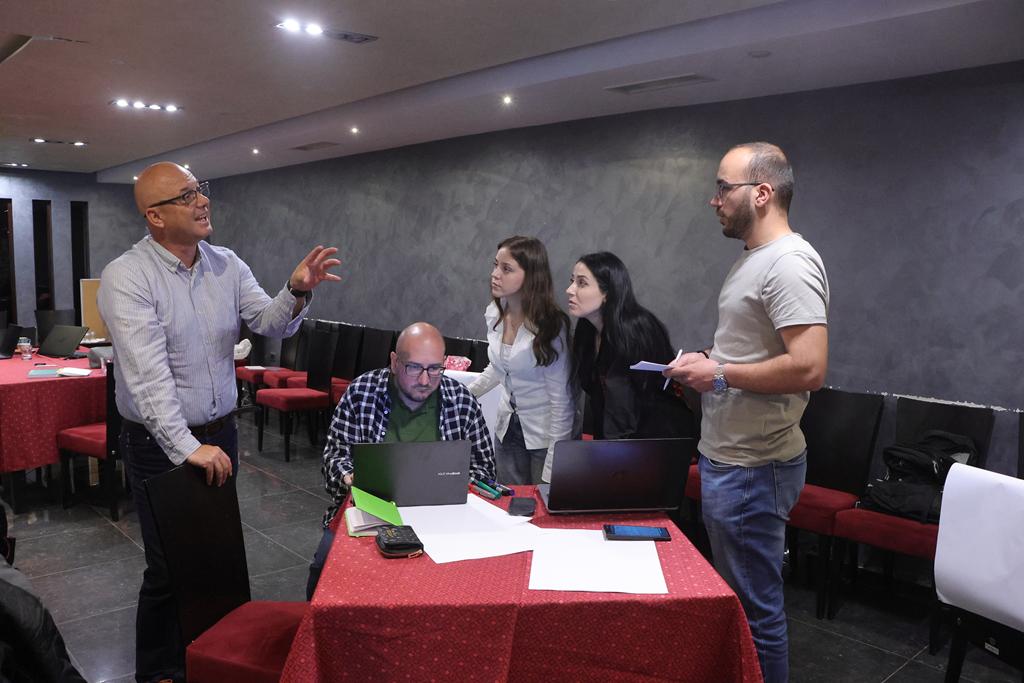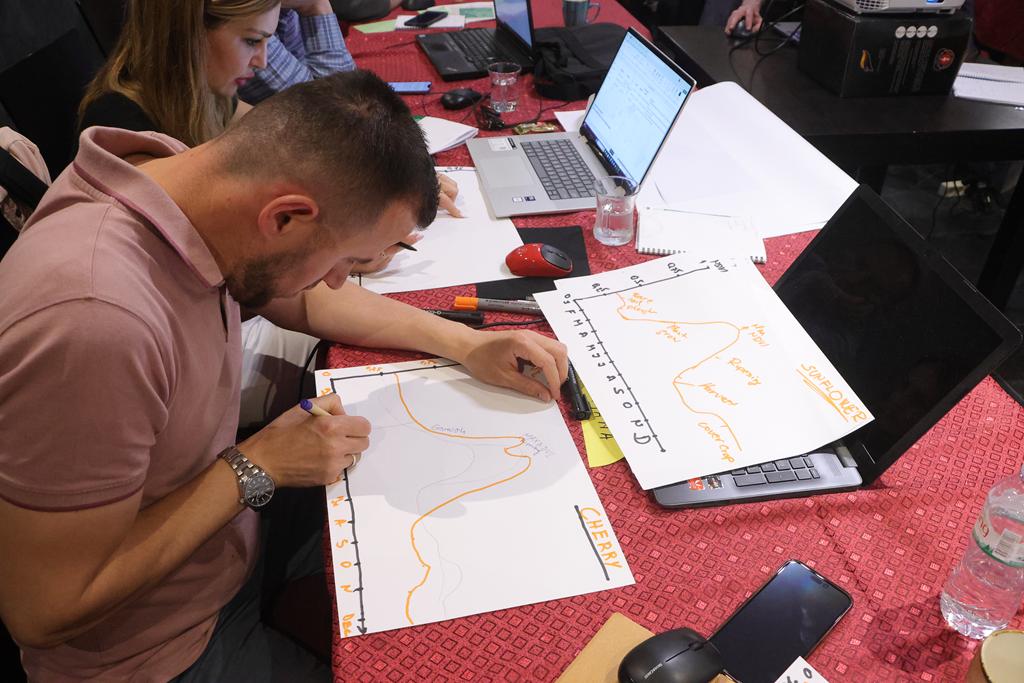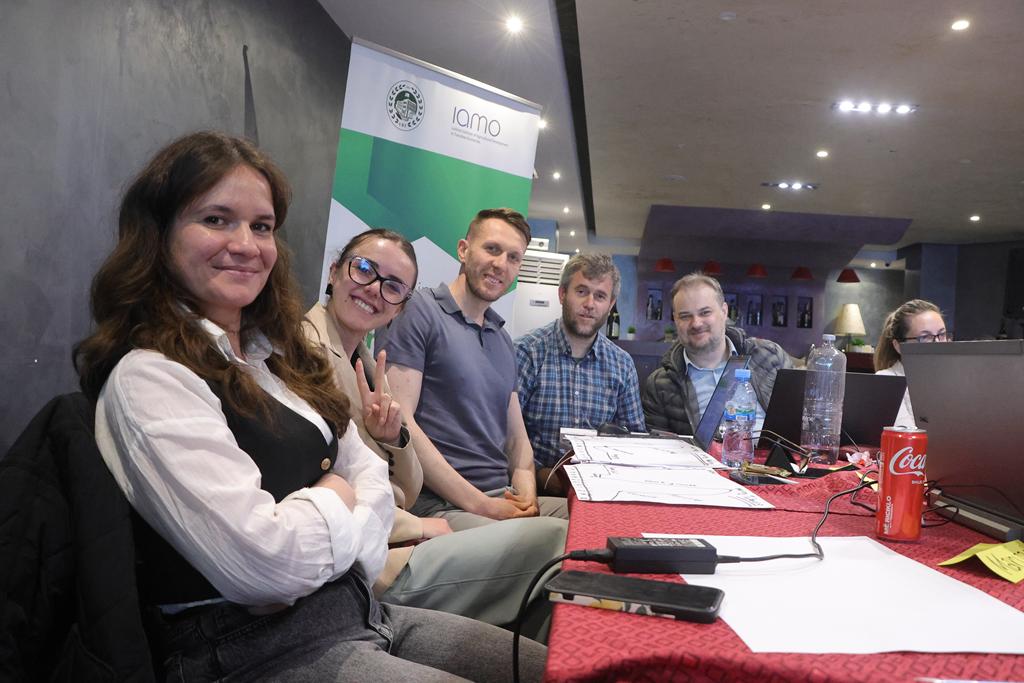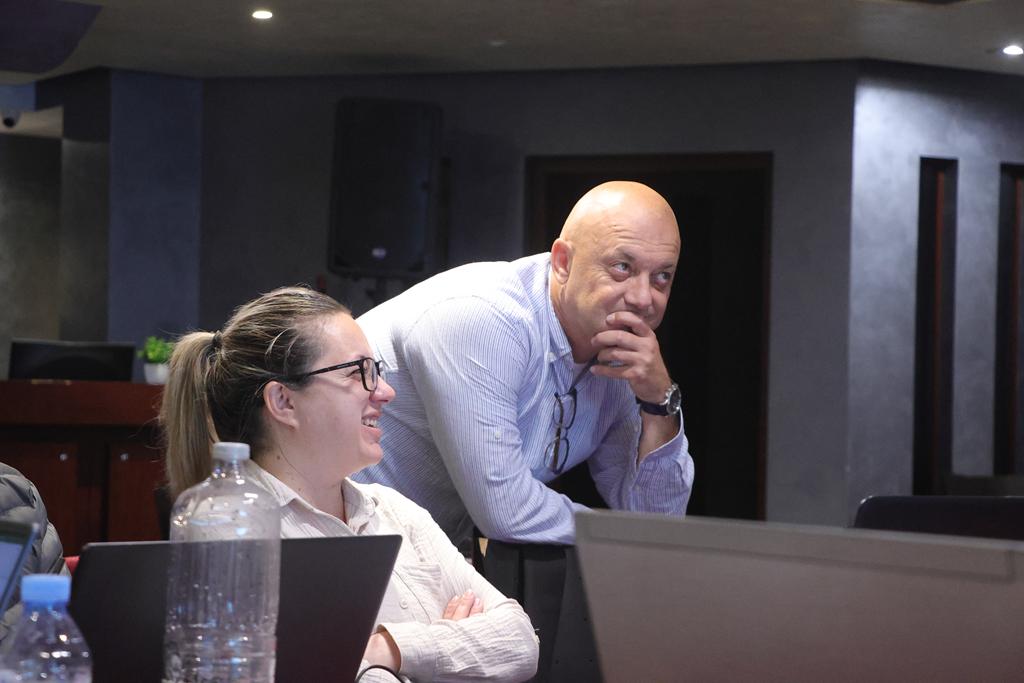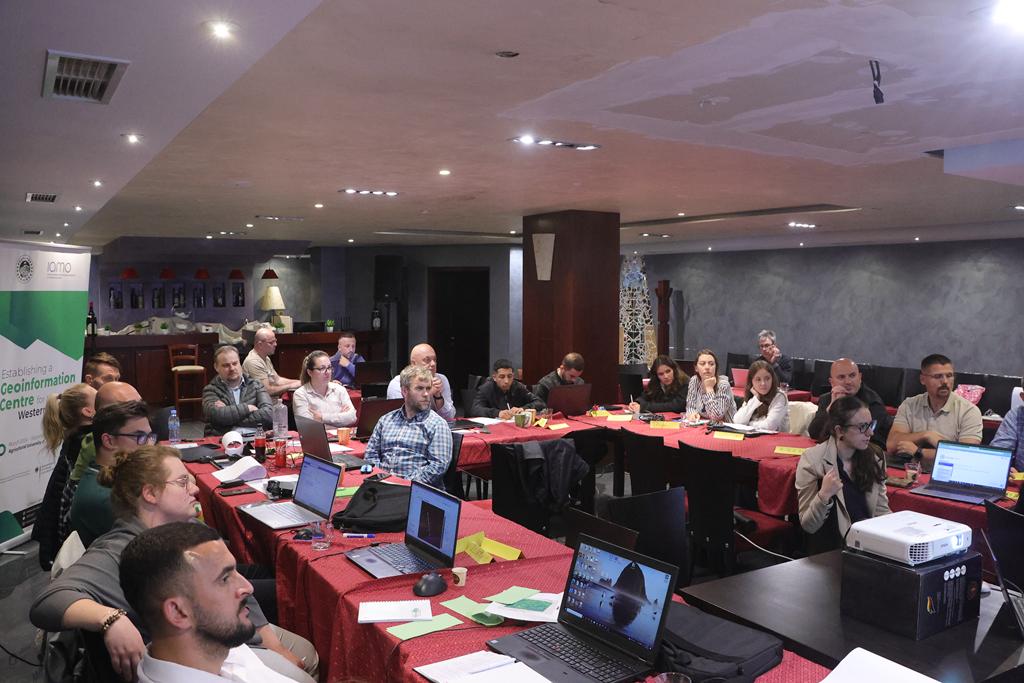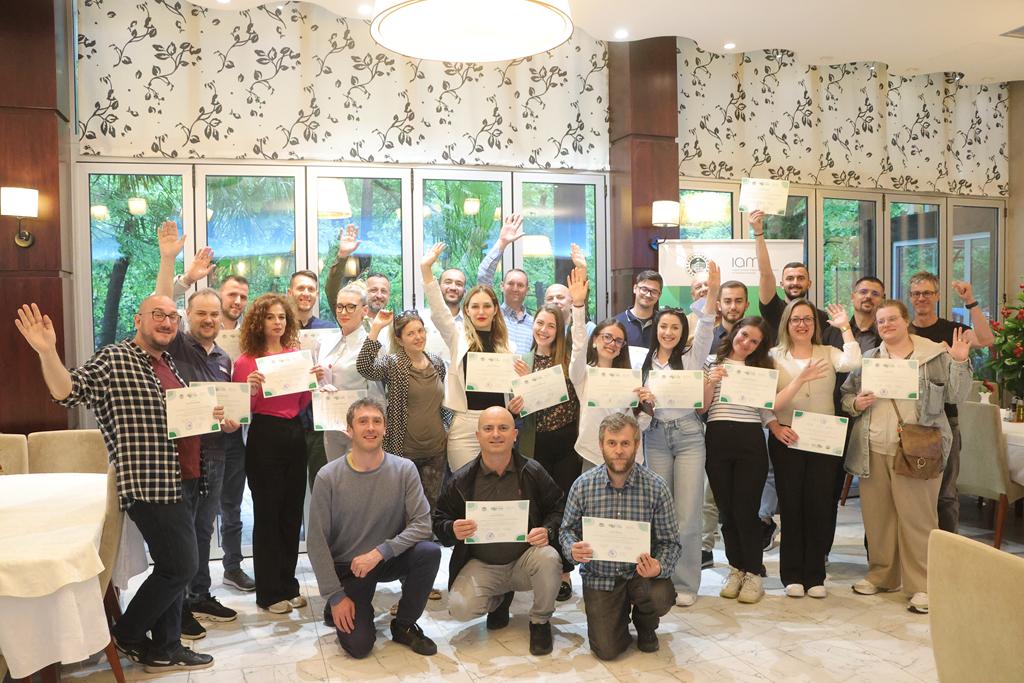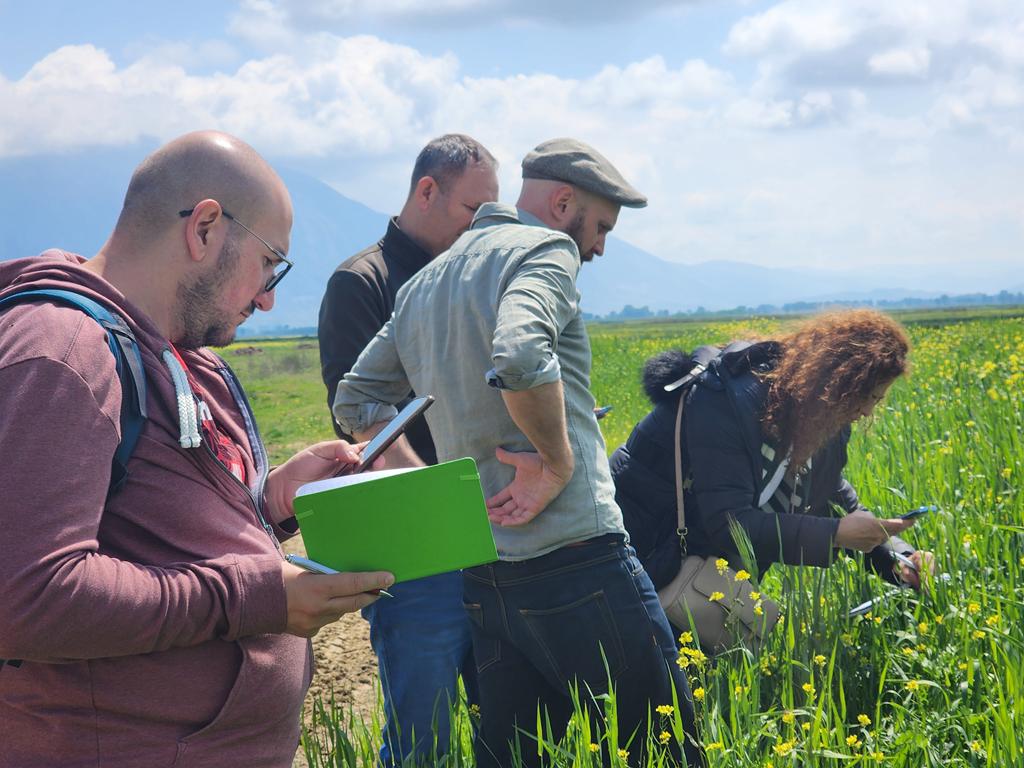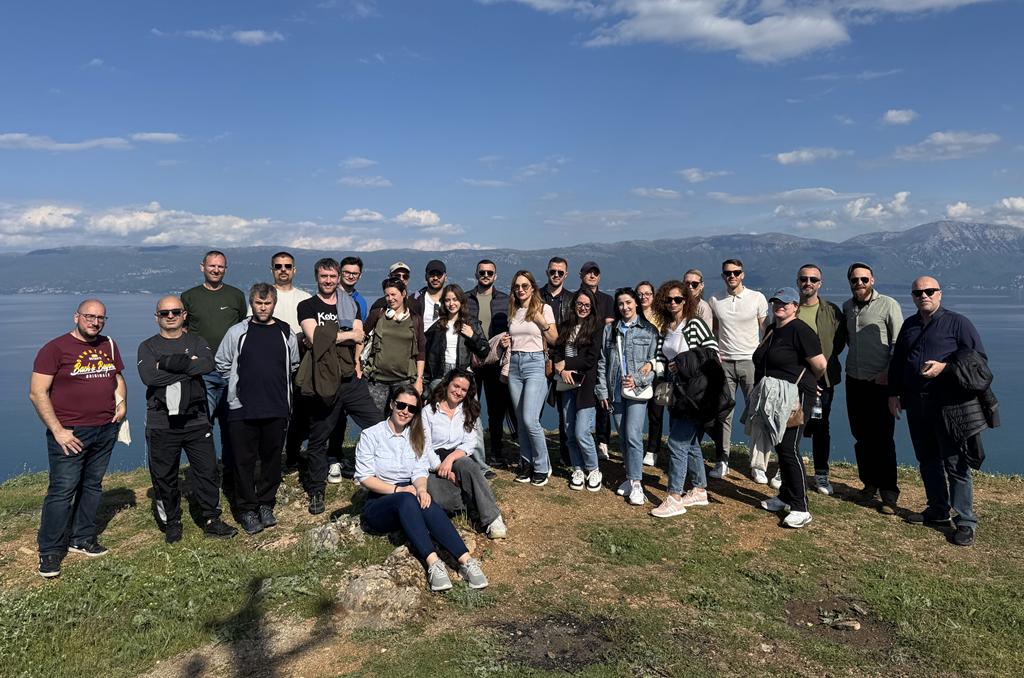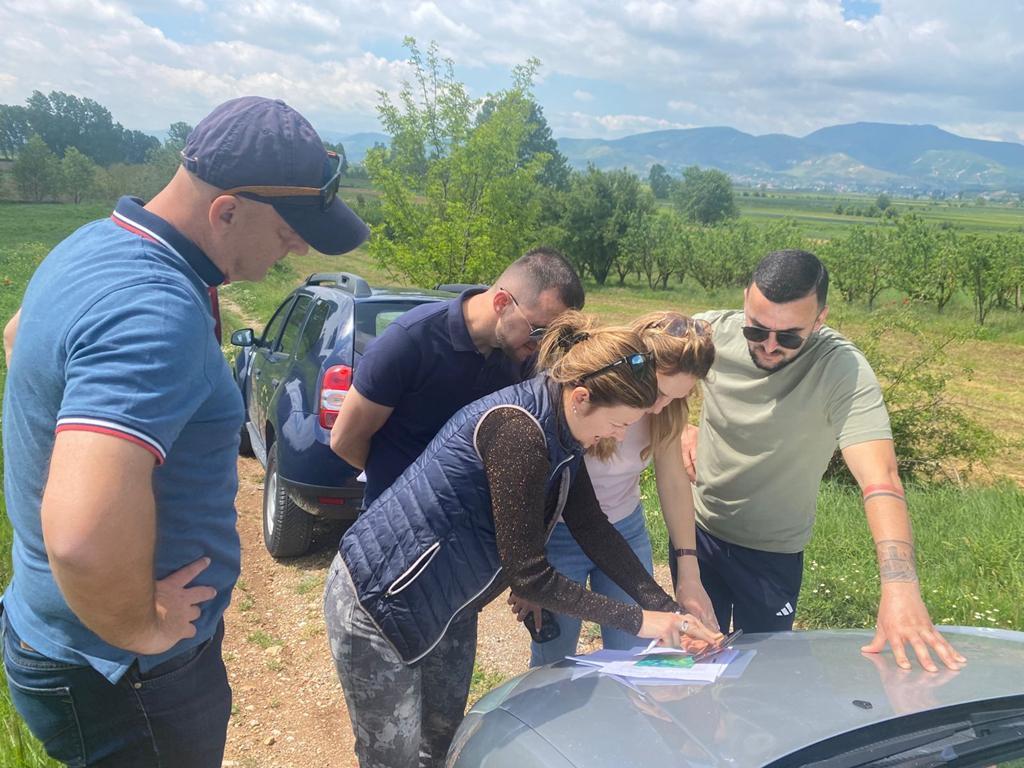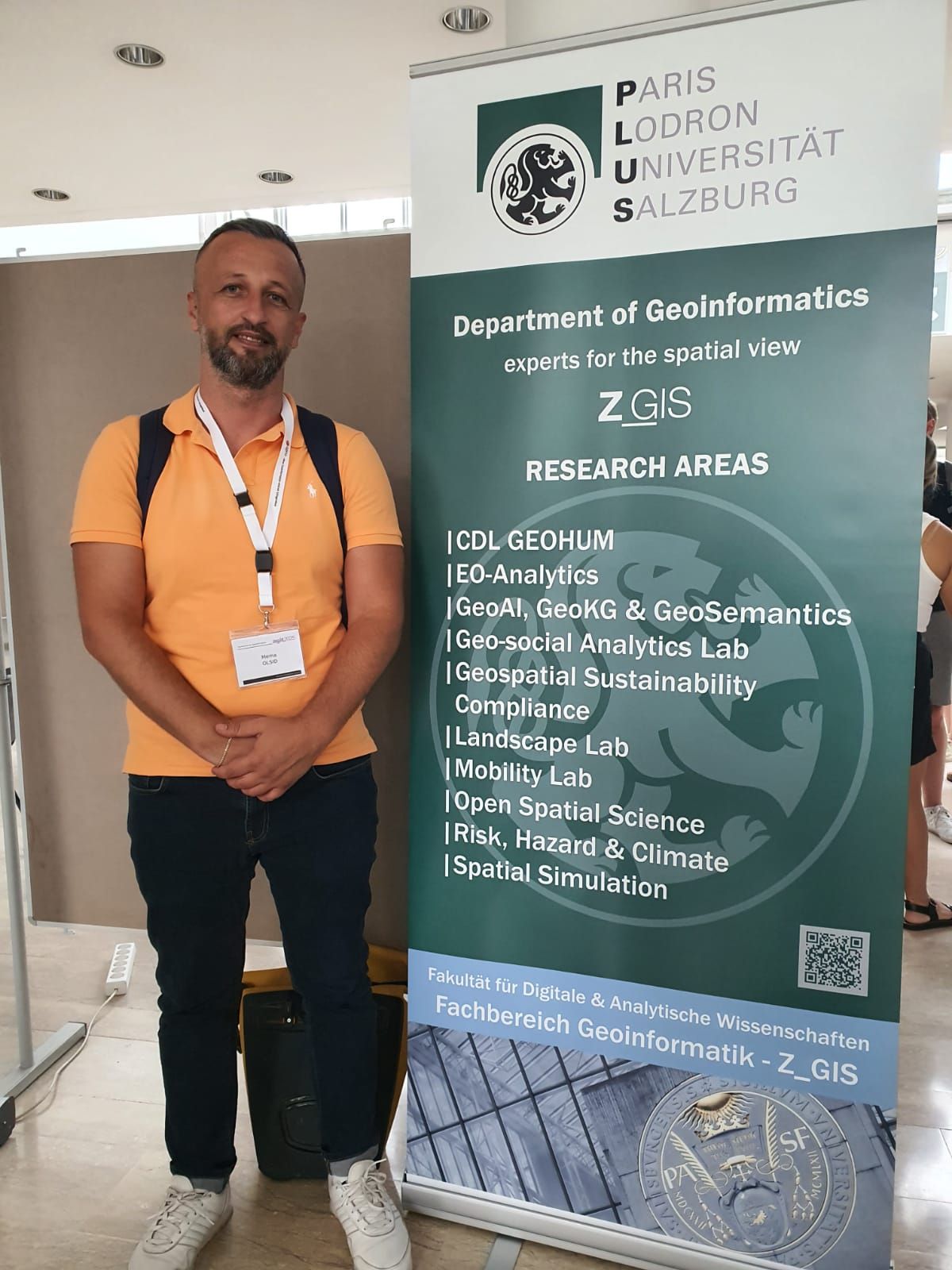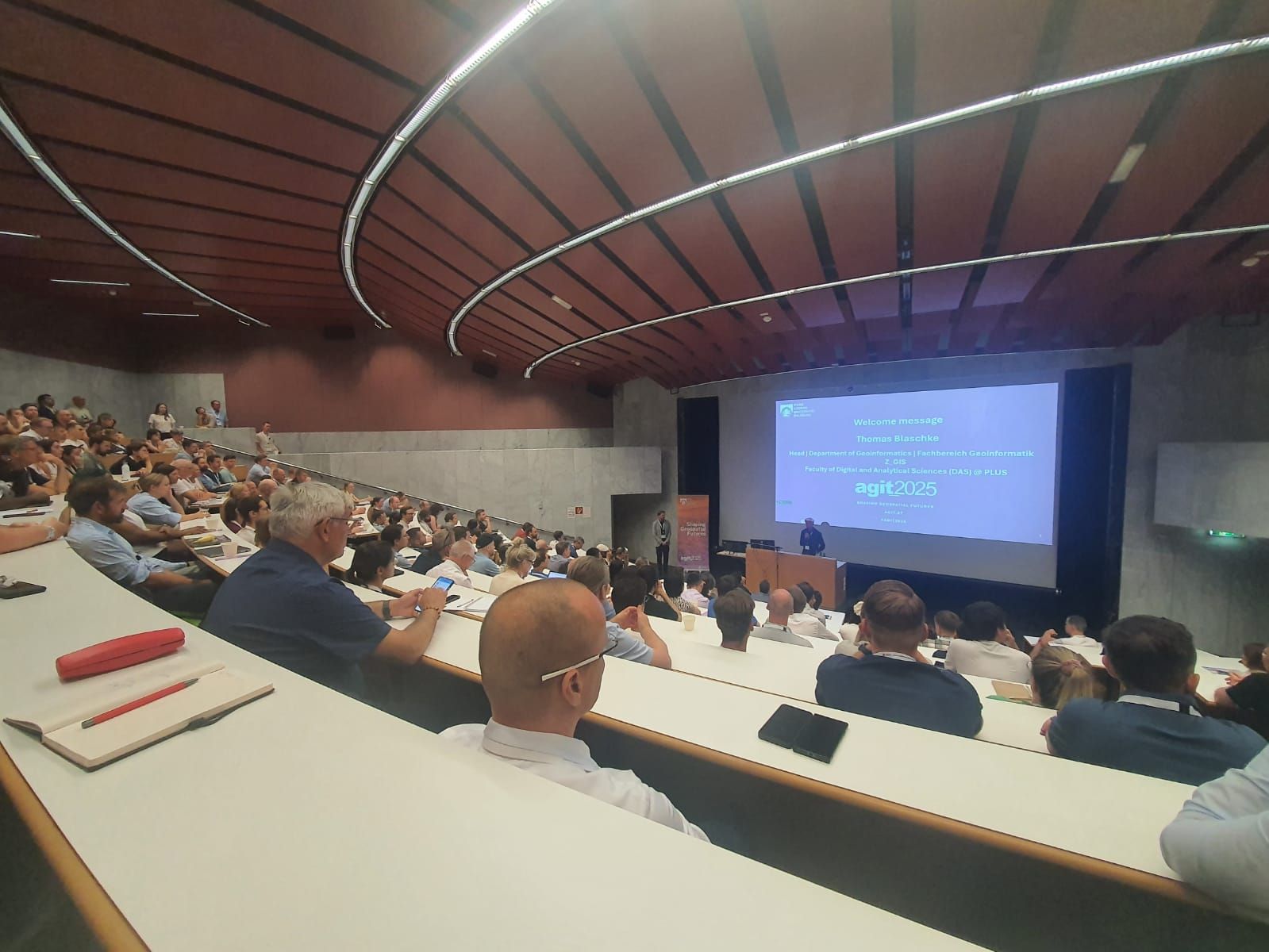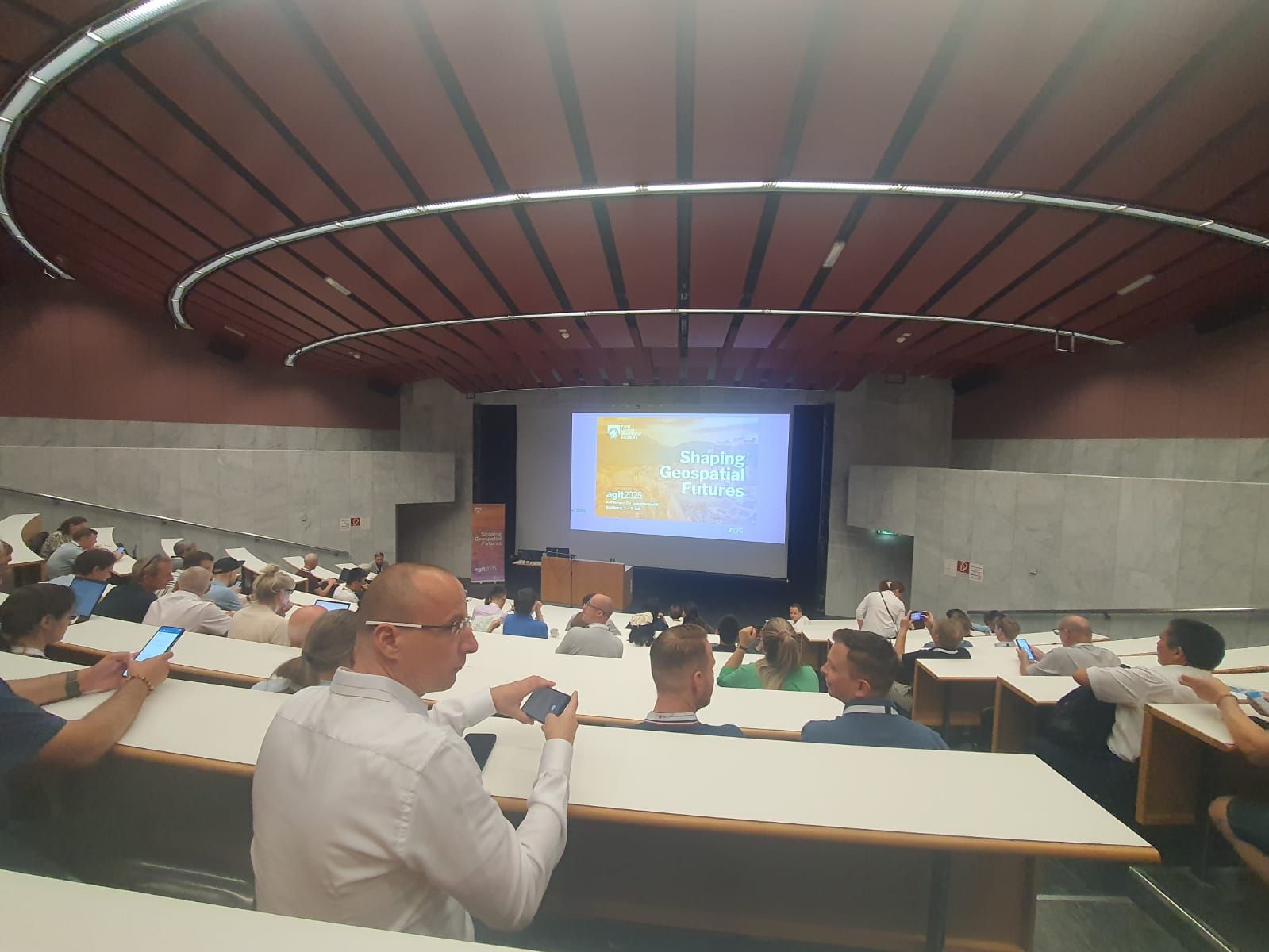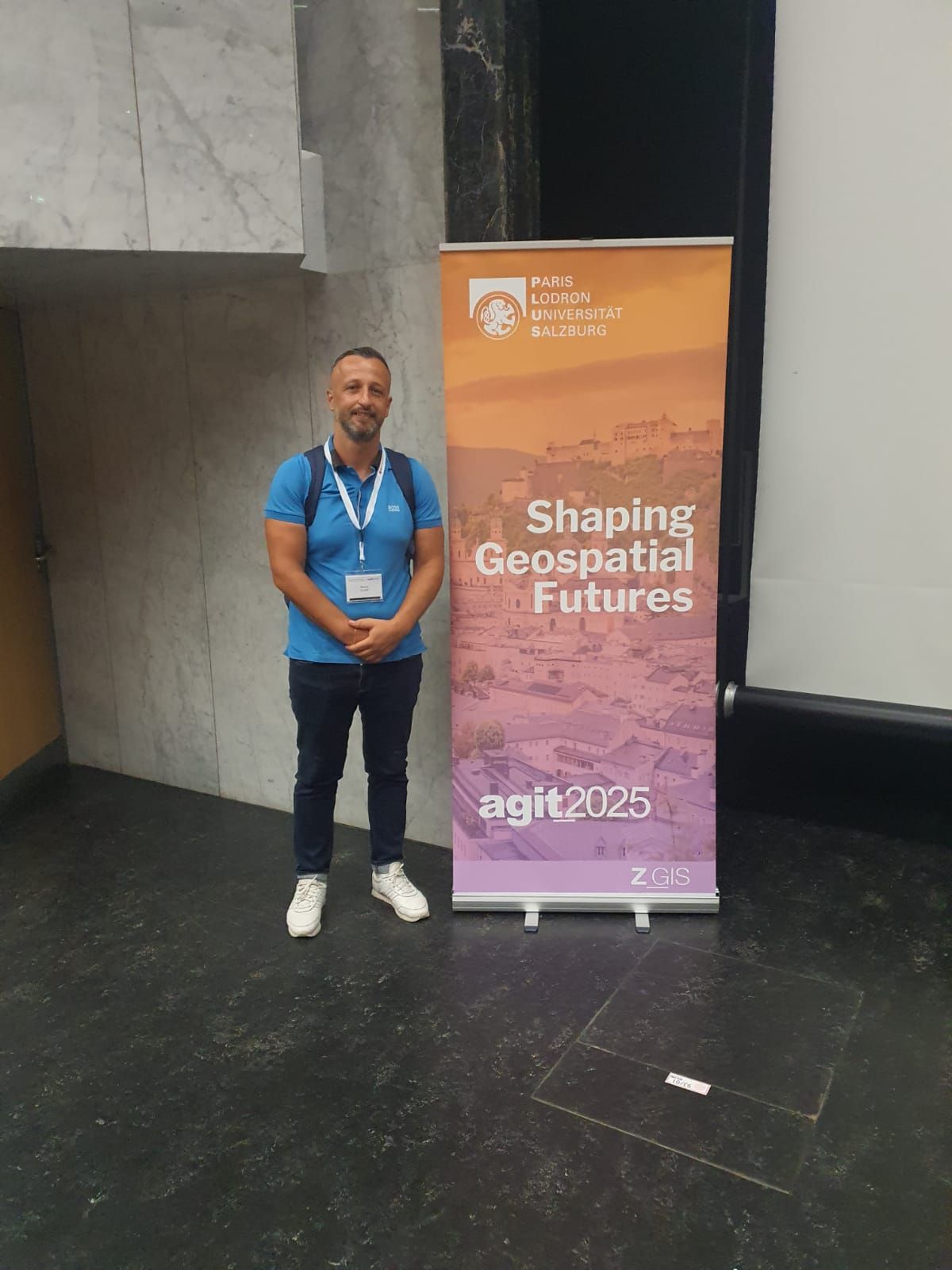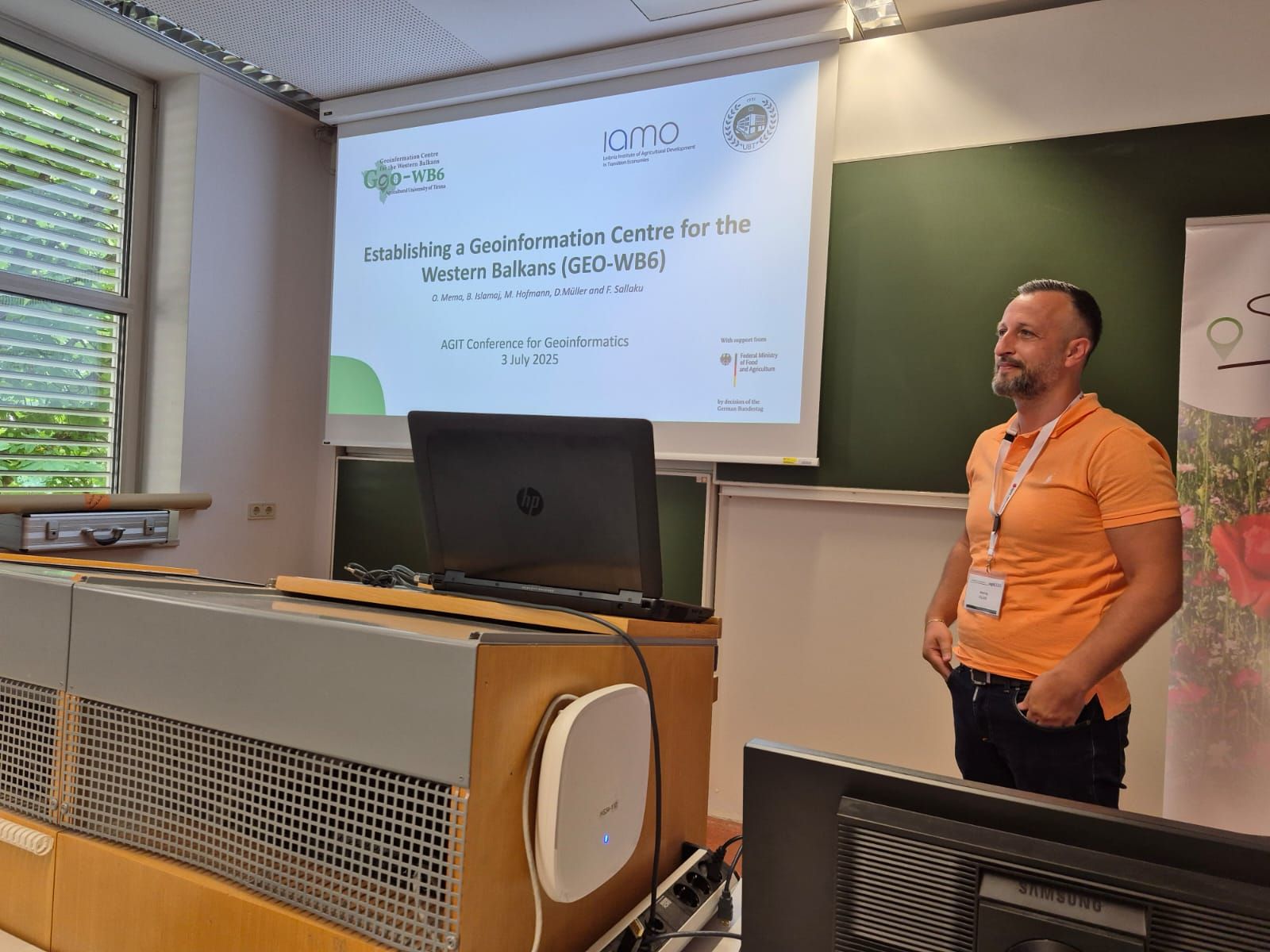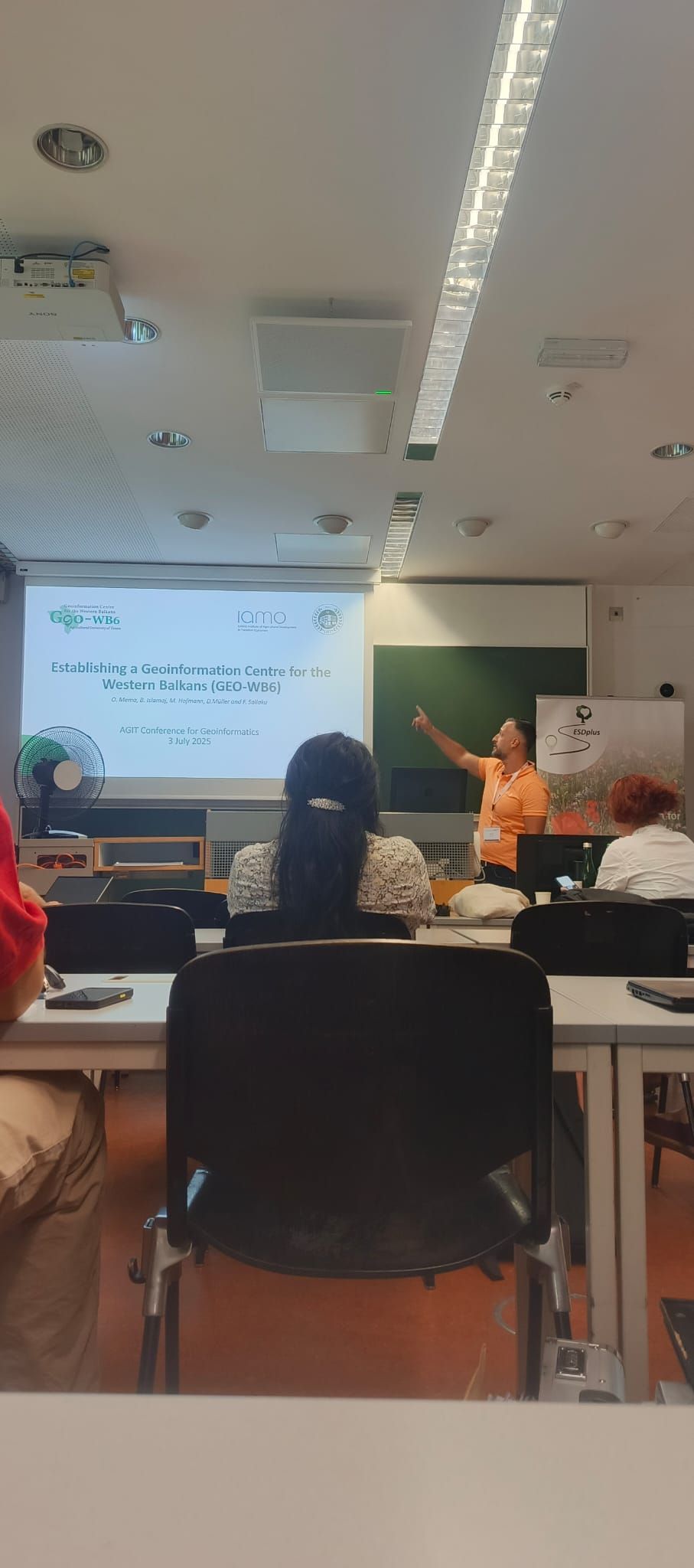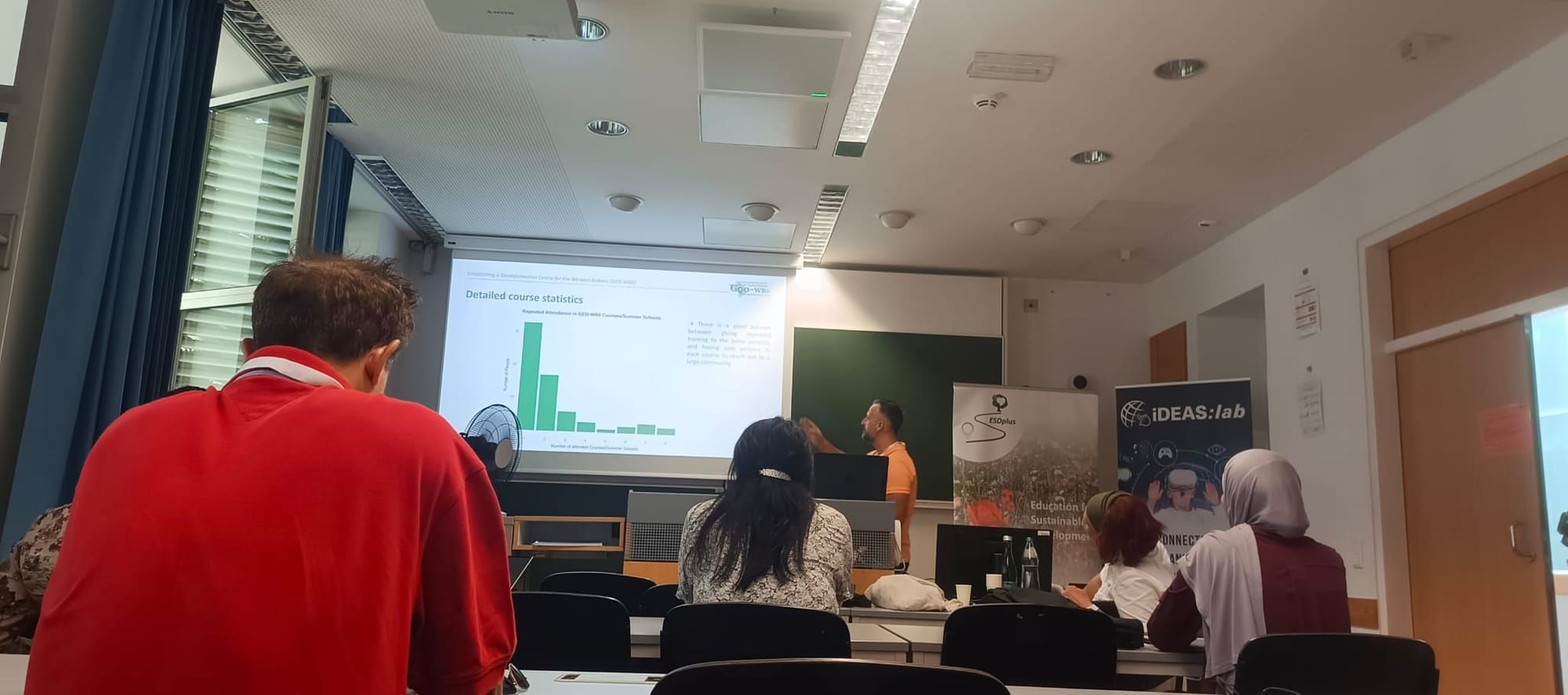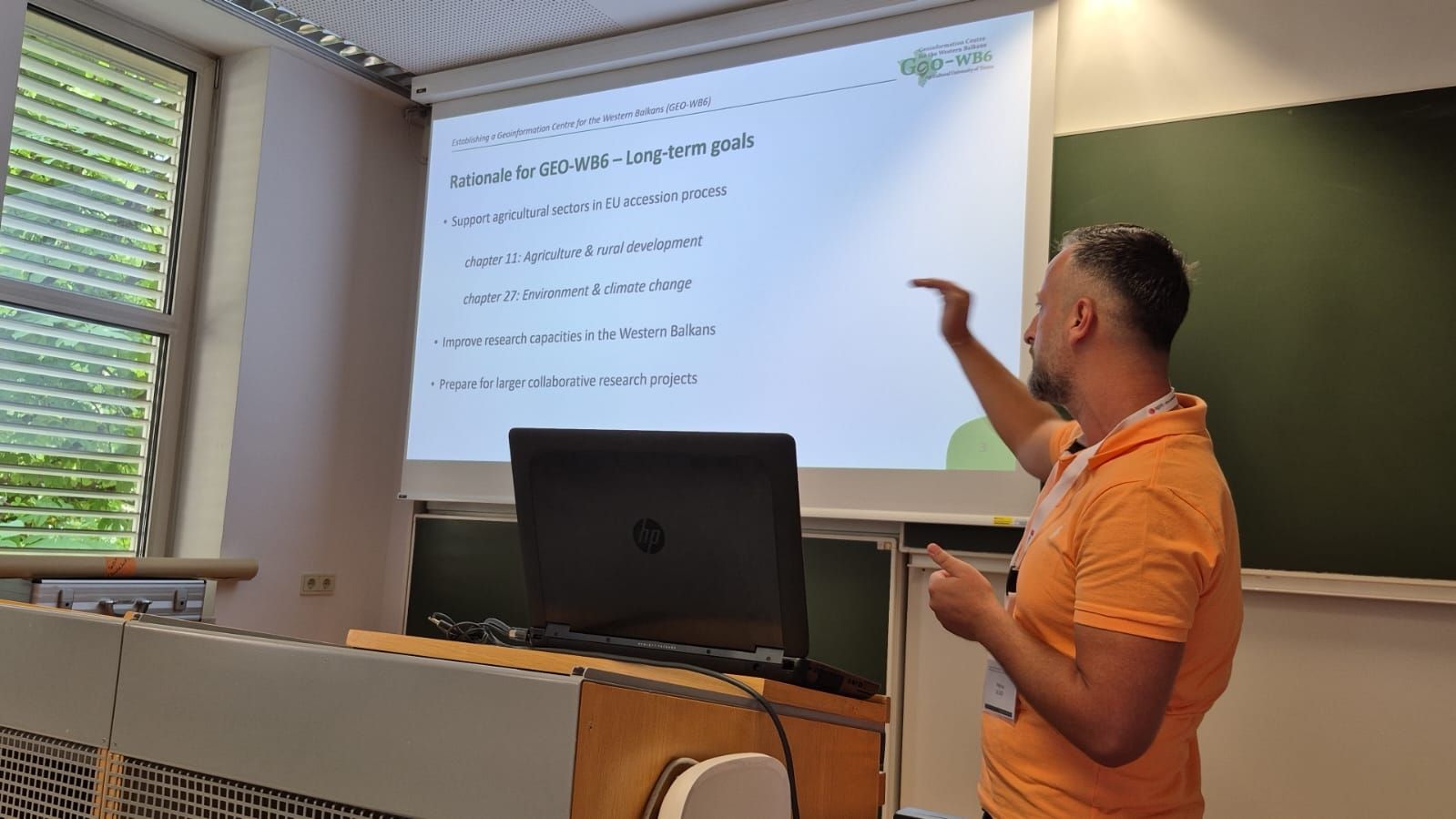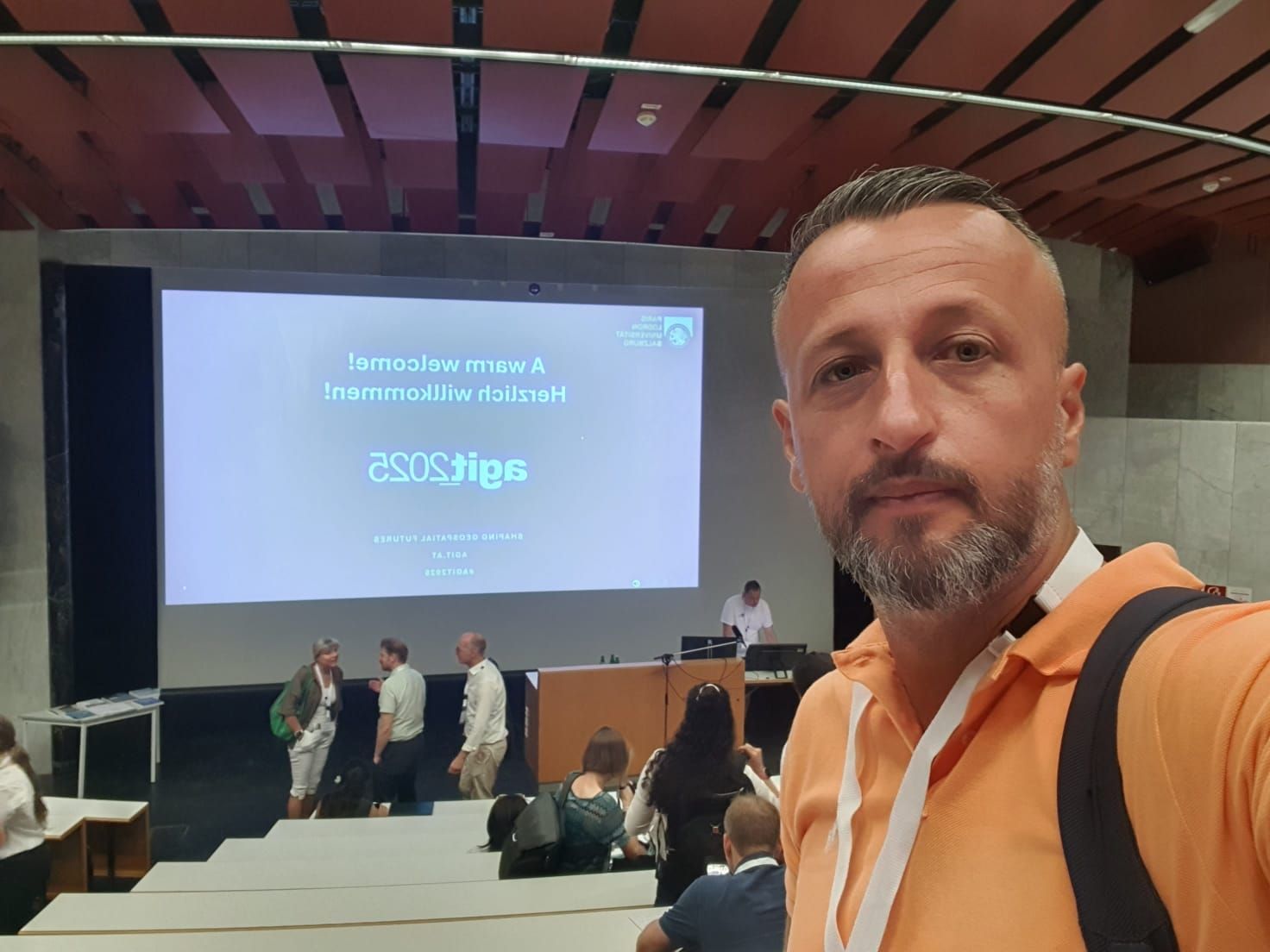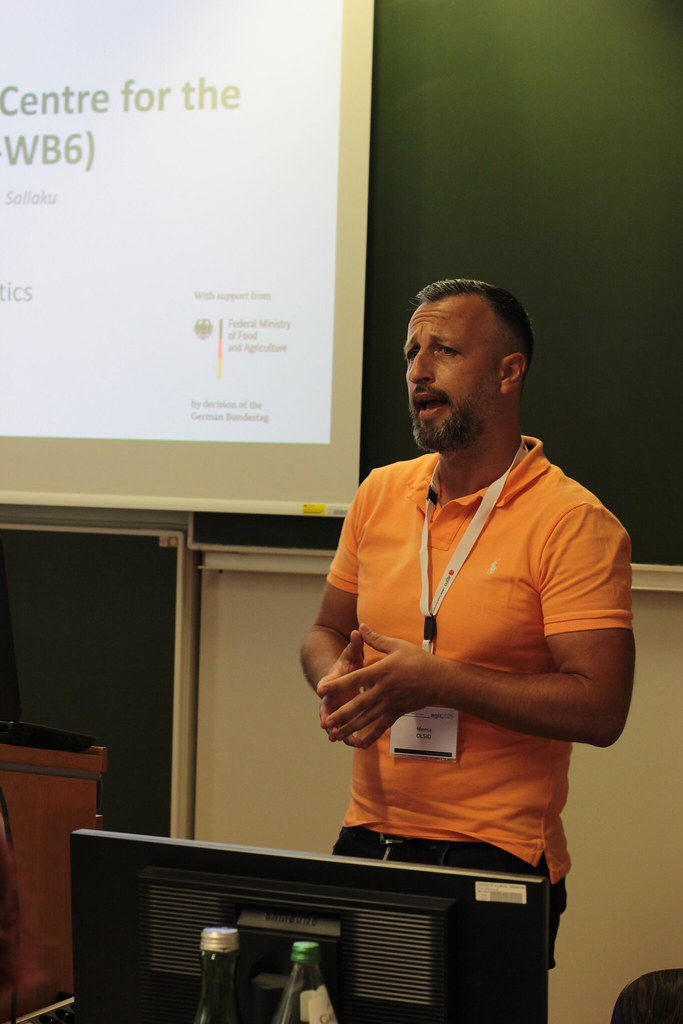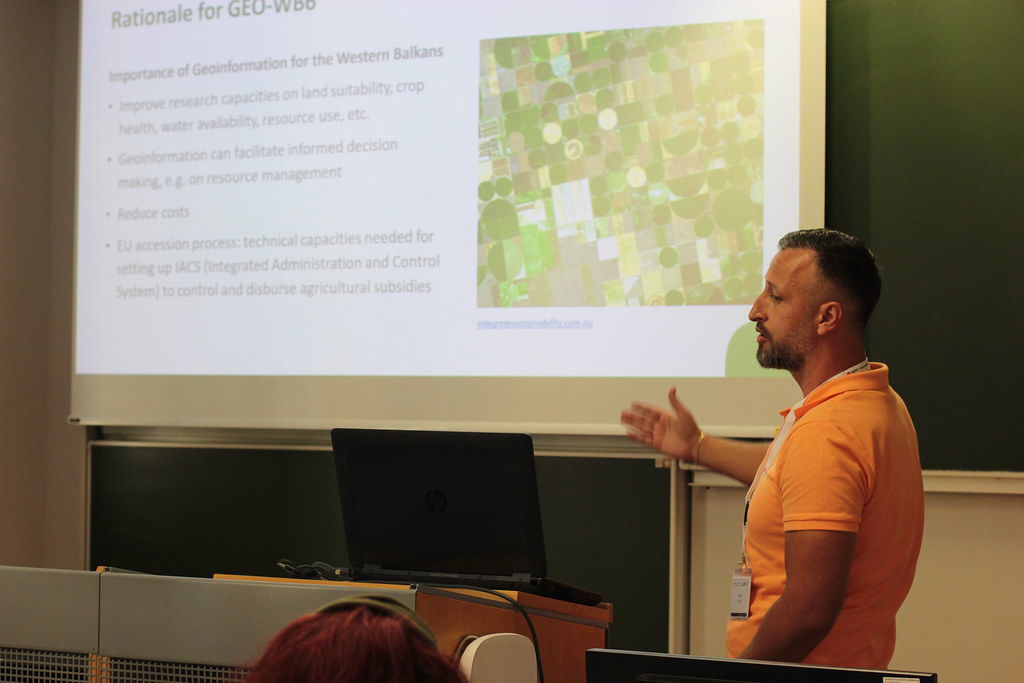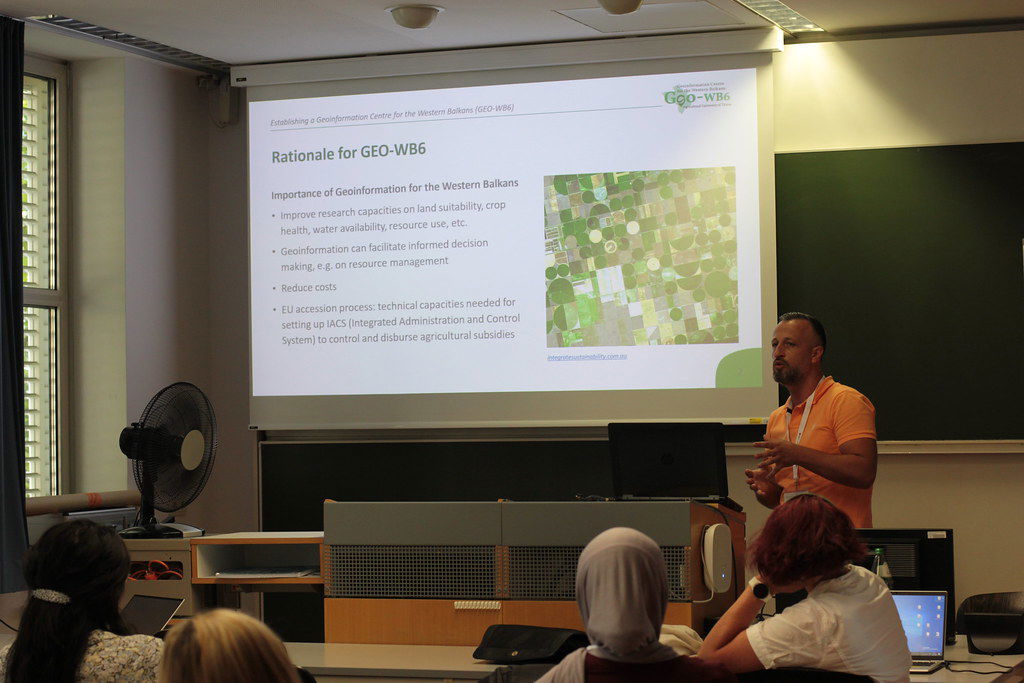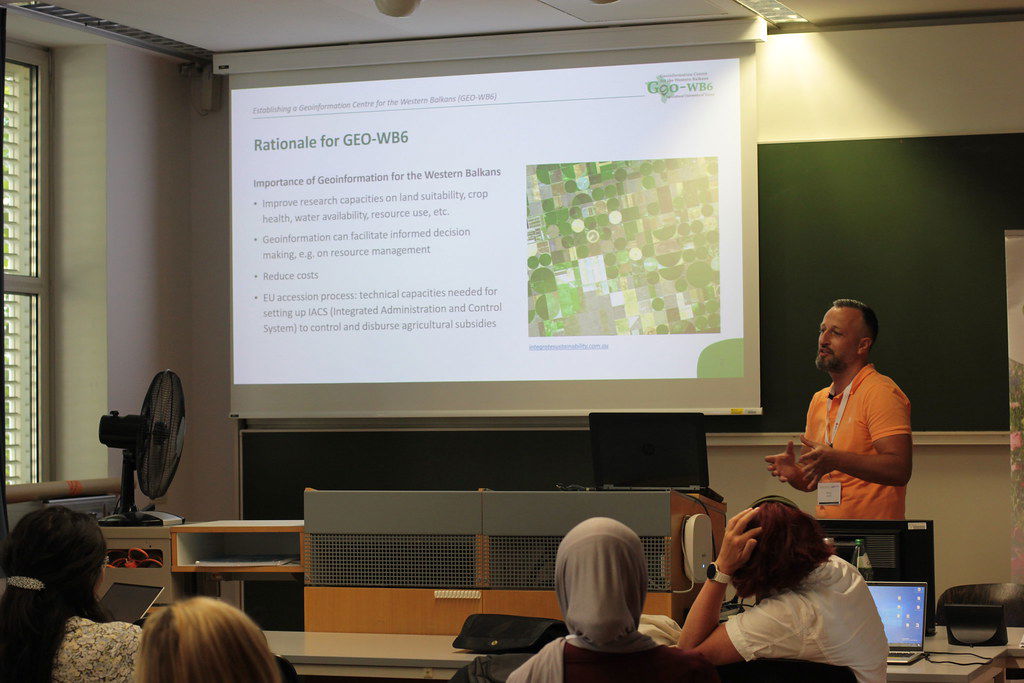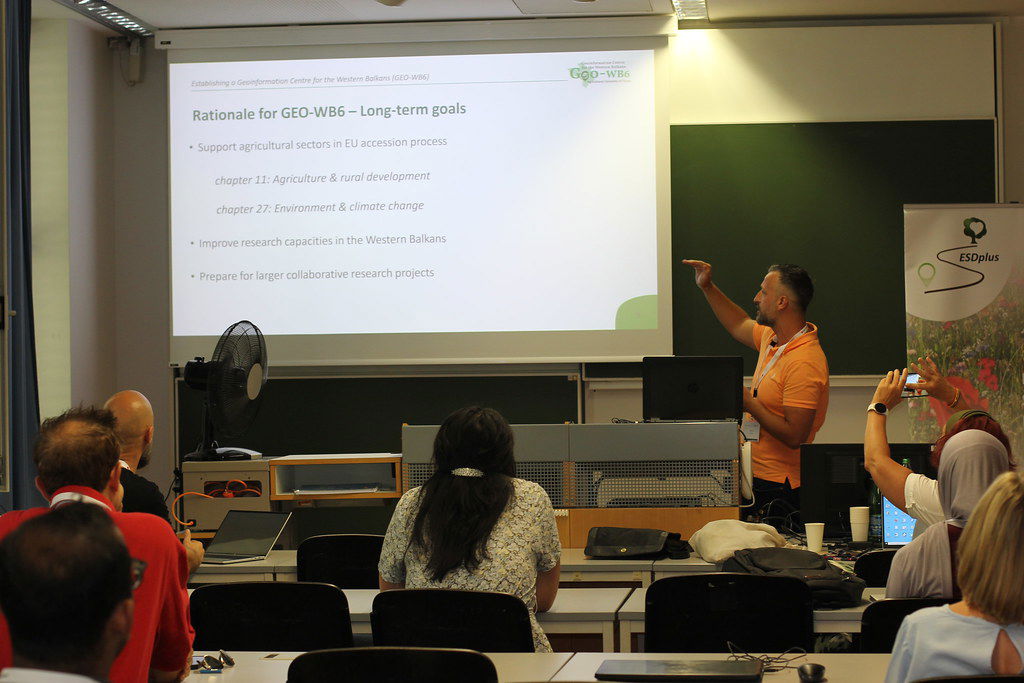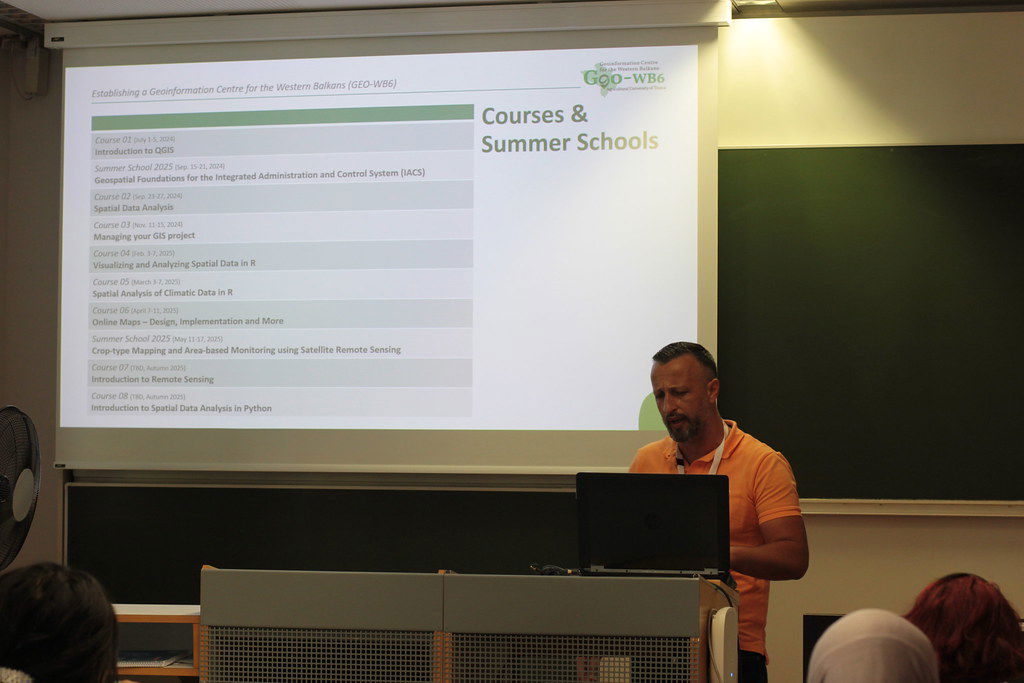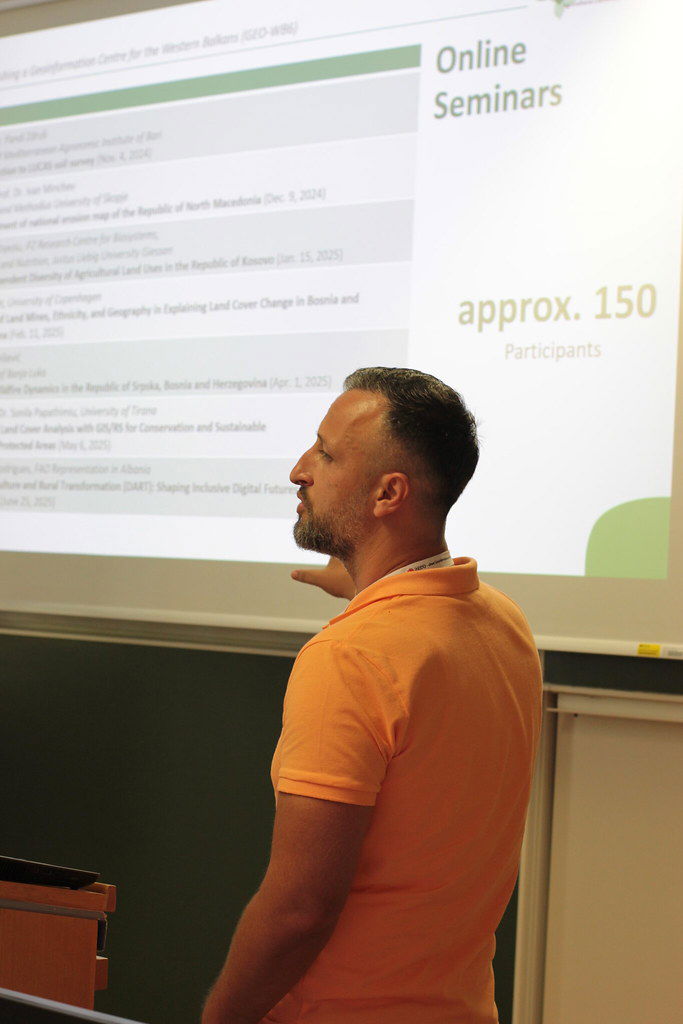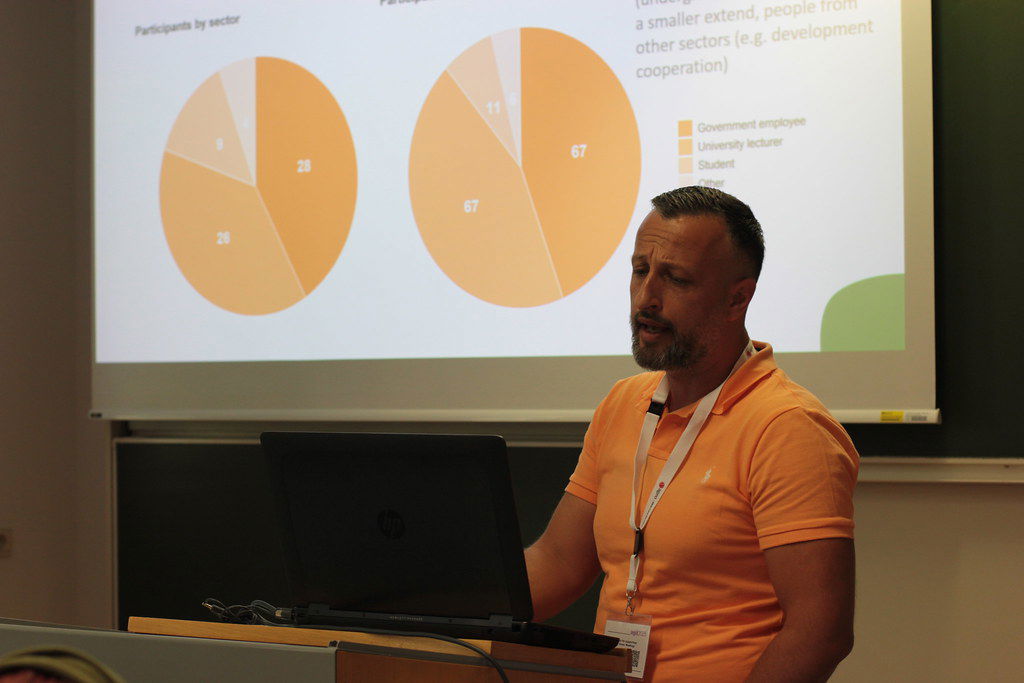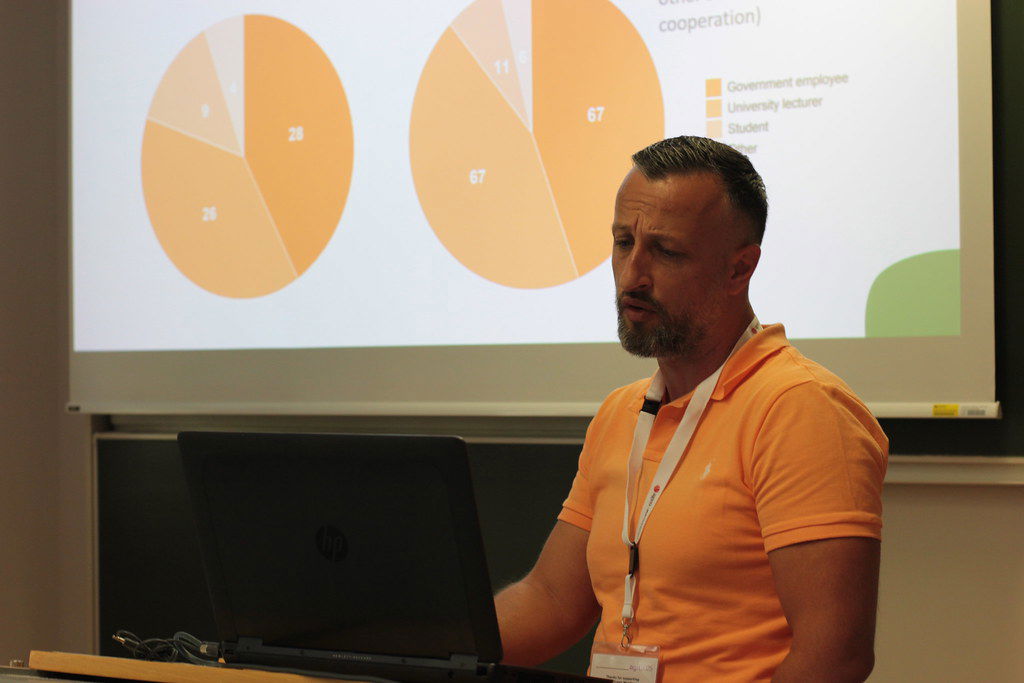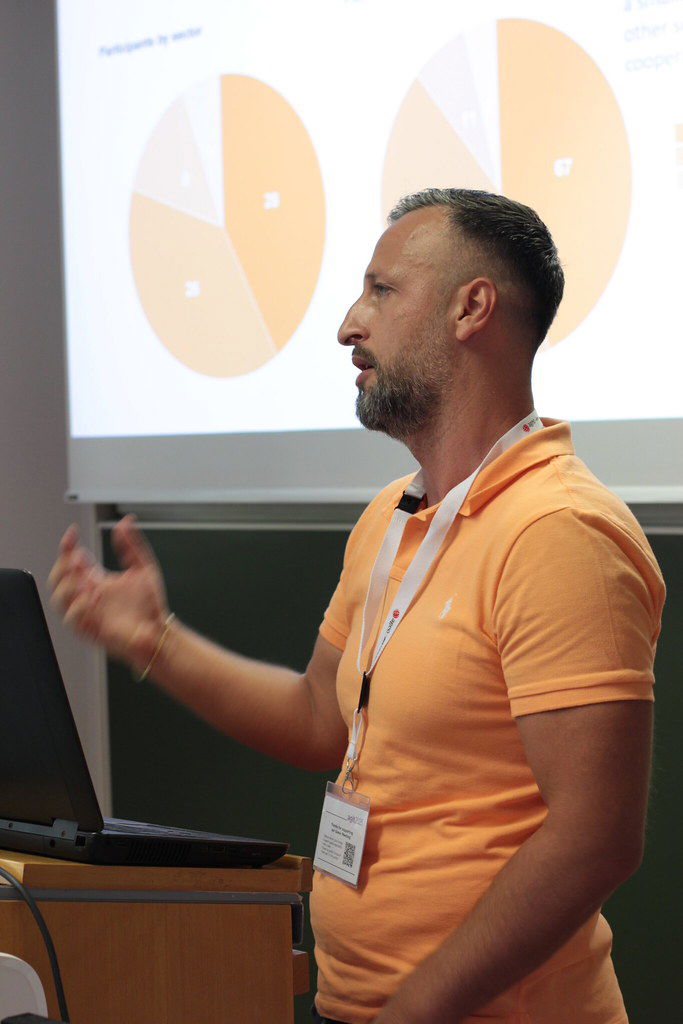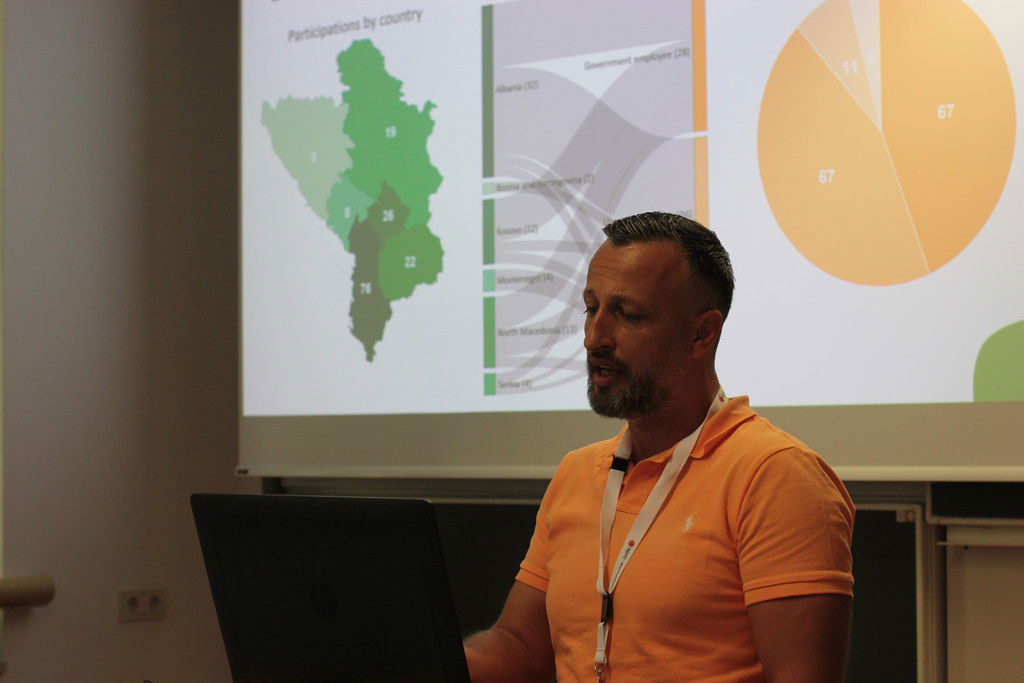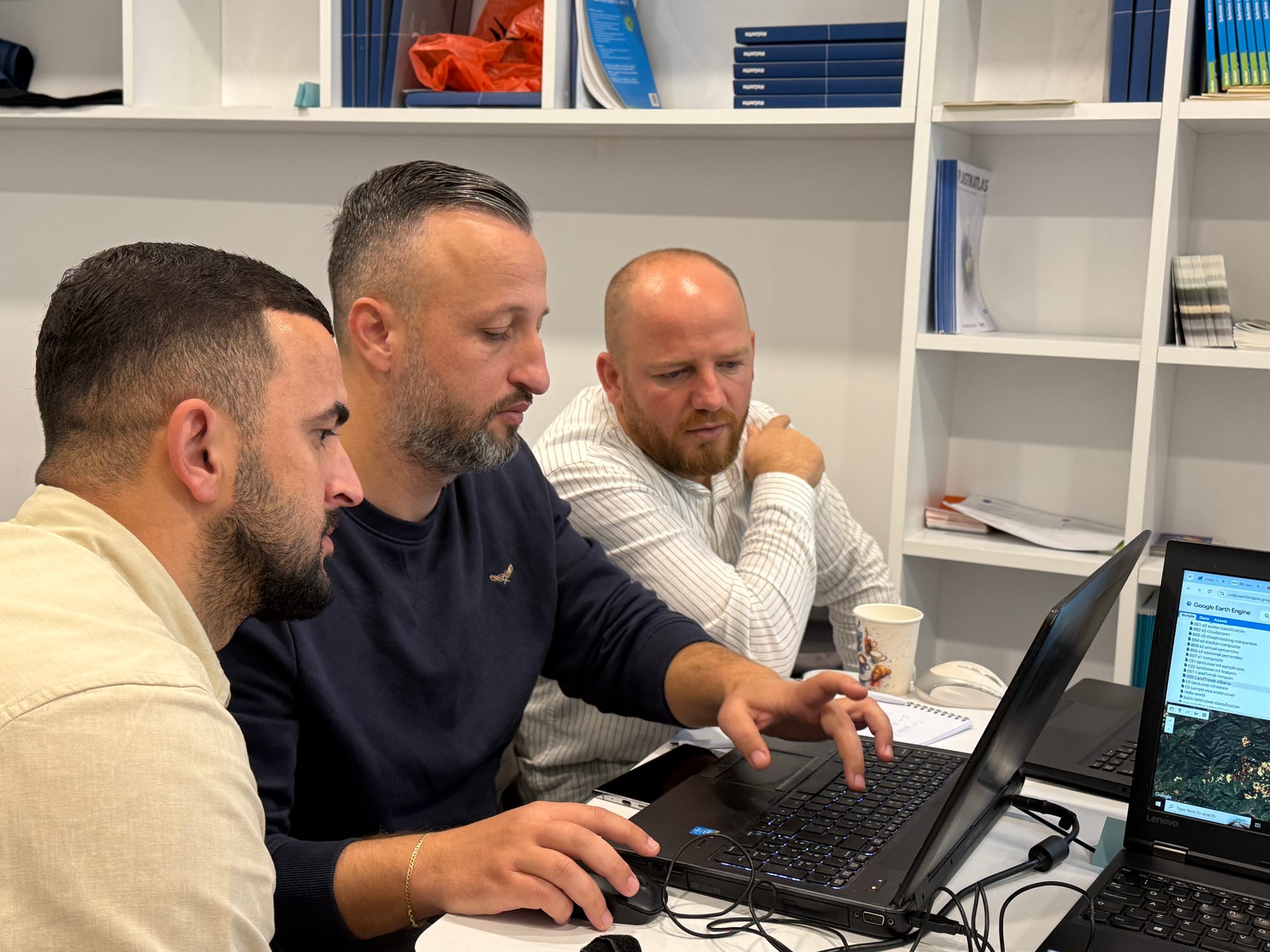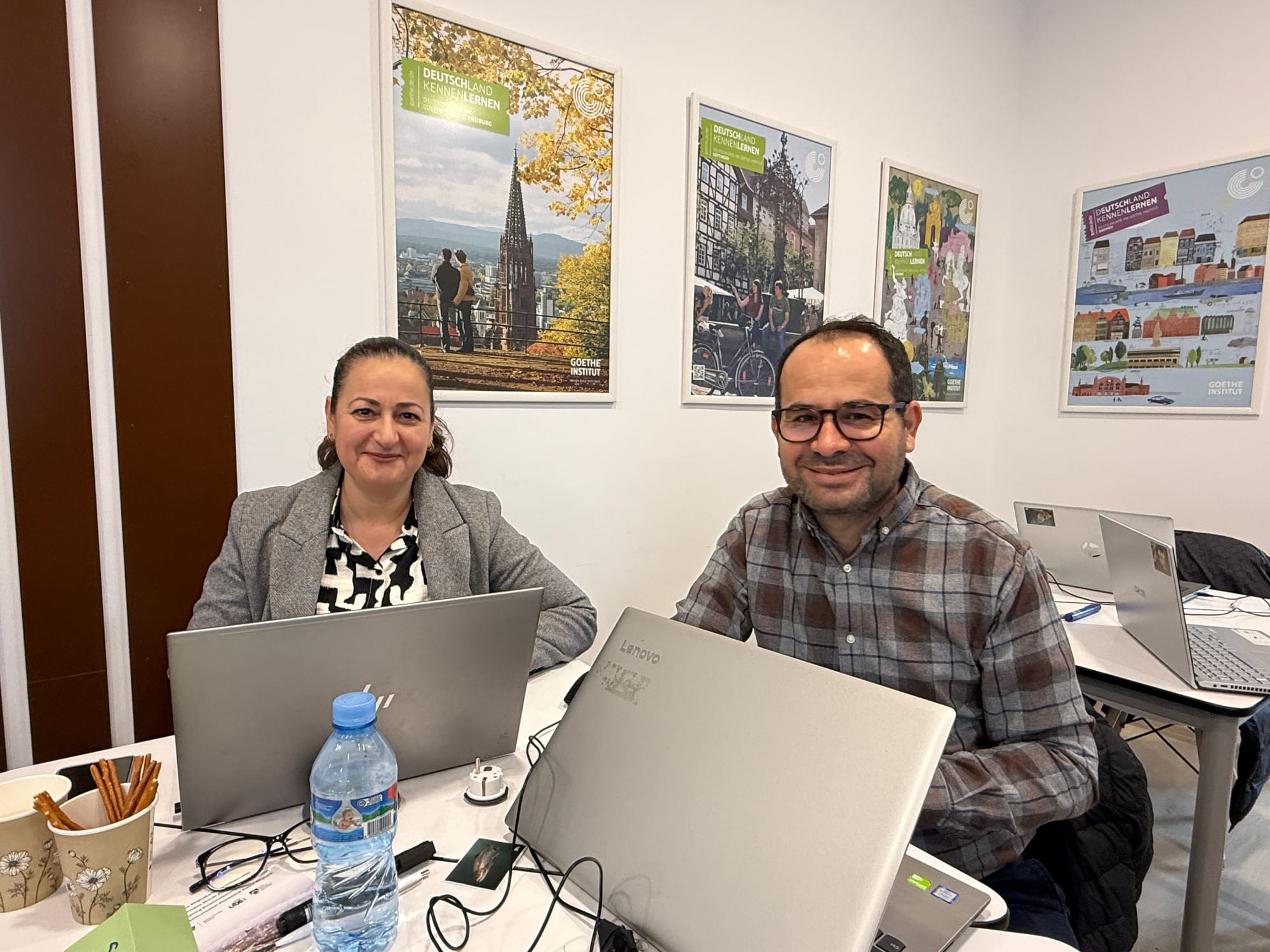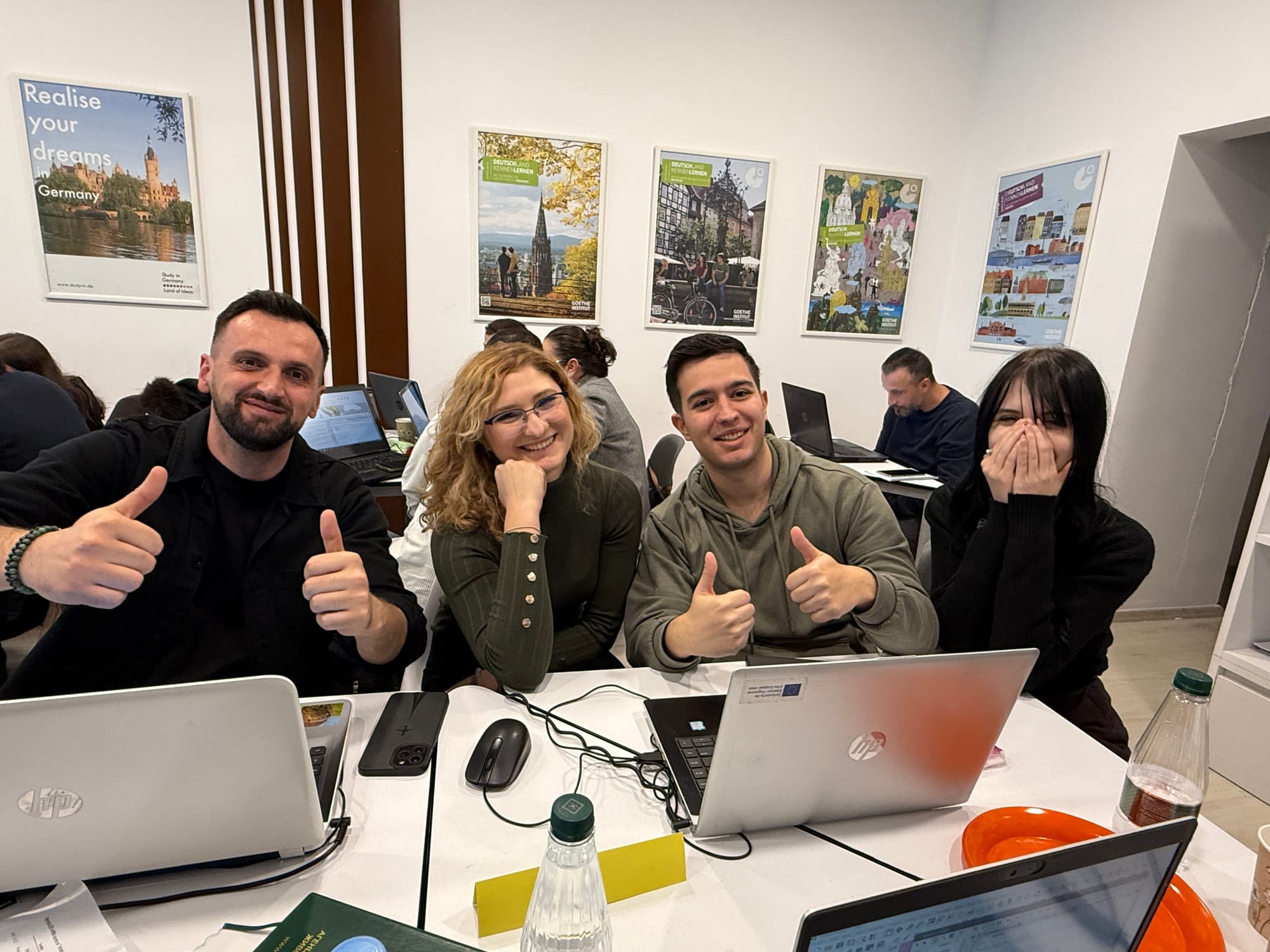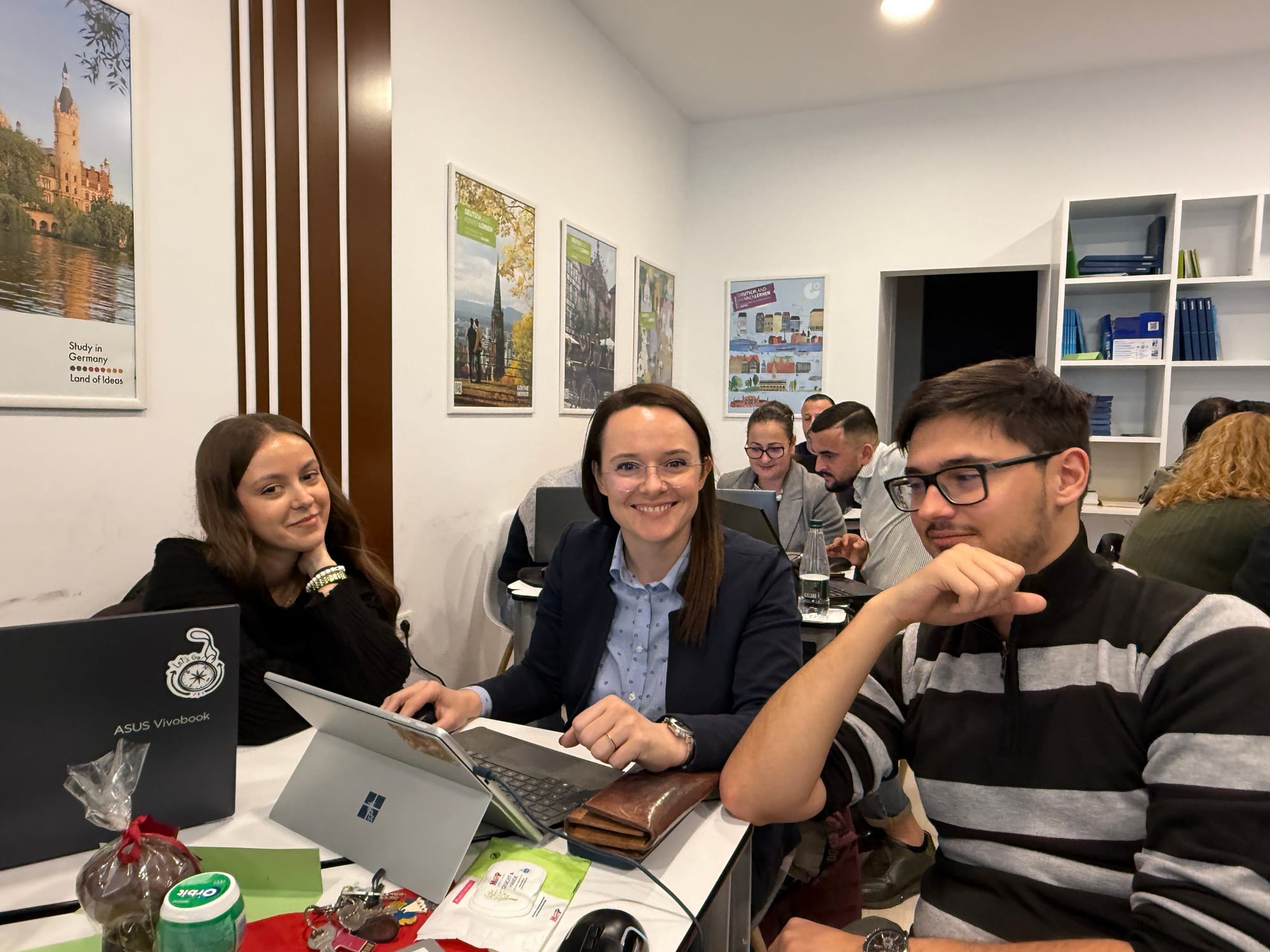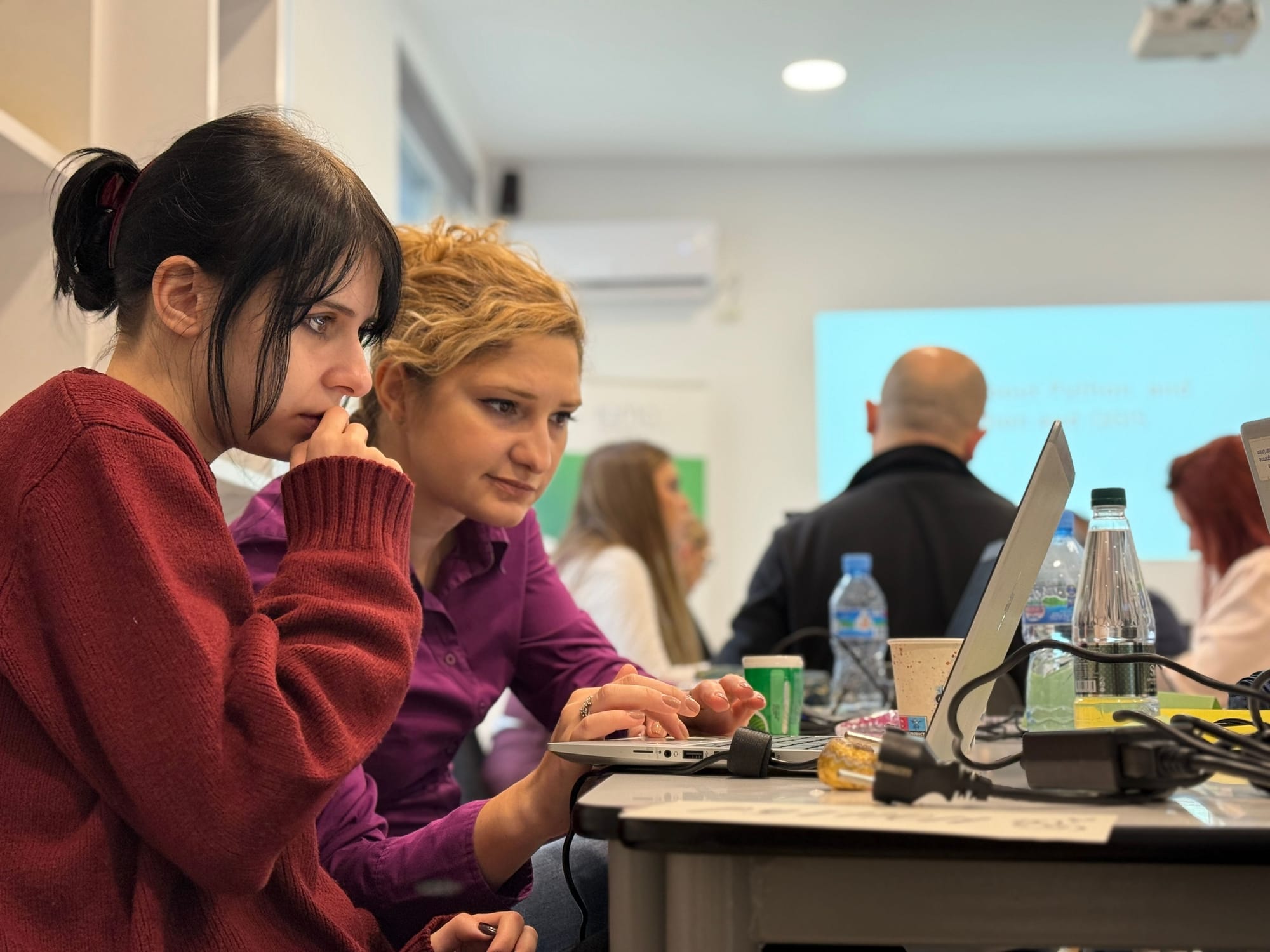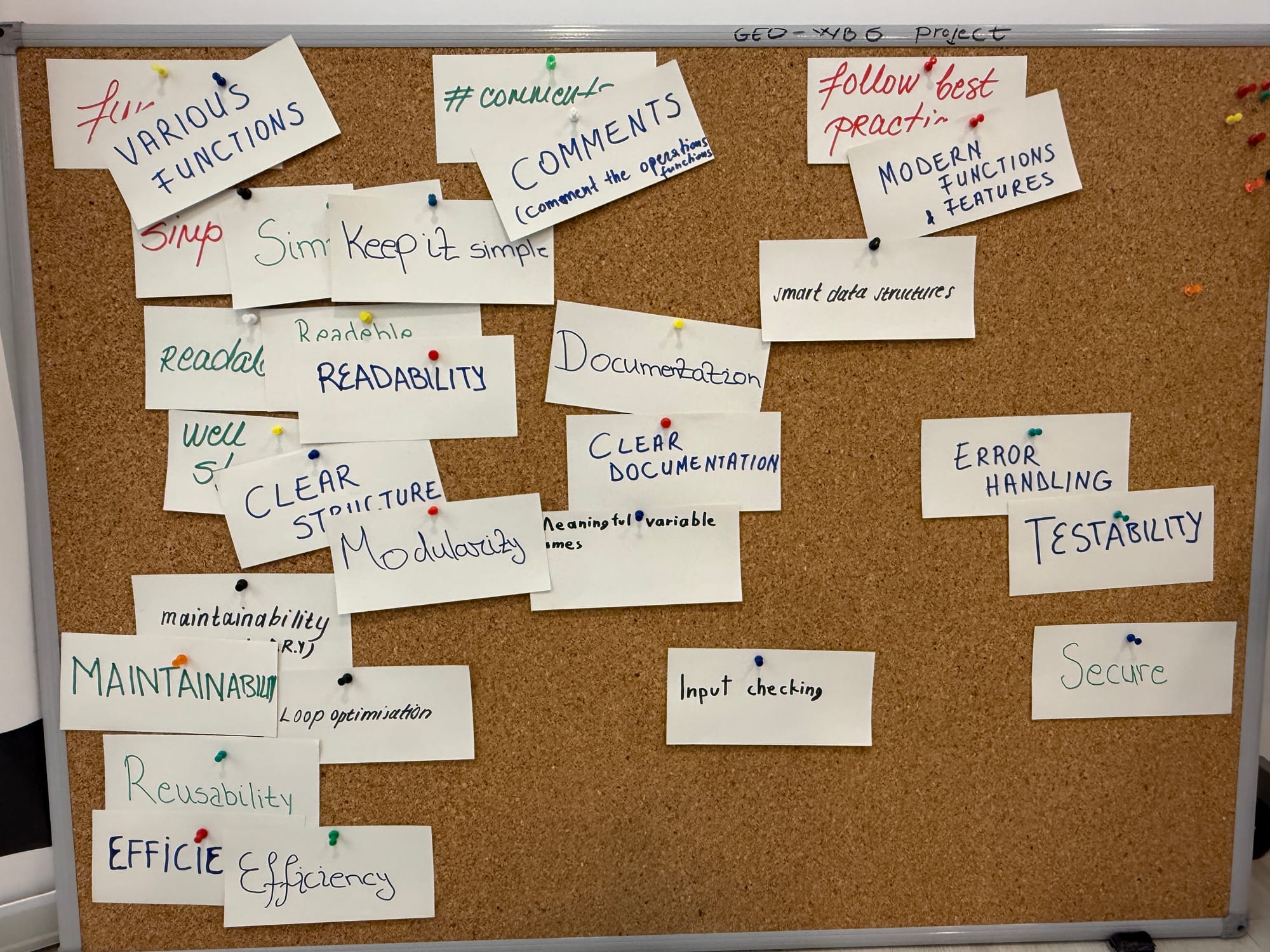The Land Parcel Identification System (LPIS) pilot project (Berat county) at the Agency for Agricultural and Rural Development (ARDA) was successfully concluded on December 10, 2025, in Tirana. The final meeting, attended by GEO-WB6, Joint Research Centre D.5 staff, EU Delegation and UNOPS representatives, reviewed the comprehensive results of the initiative, which captured approximately 35,000 hectares of agricultural land in a new LPIS dataset based on physical block reference parcel rules. Through continuous technical assistance and oversight from the GEO-WB6 team, which provided high-quality training in QGIS for parcel delineation, ARDA staff gained valuable operational experience in LPIS digitization methodology, team organization and quality control procedures. The team also examined cross-comparisons by quantifying differences, checking consistency with the digital cadastre and reviewing outputs from DigiFarm, DelAny, and Super Resolution. The meeting wrapped up with discussions on lessons learned and the path forward for LPIS implementation, representing an important step in enhancing Albania's agricultural land management capabilities essential for Chapter 11 (Agriculture and Rural Development) within the EU accession framework. The GEO-WB6 Centre was able to leverage its proven track record in regional capacity building throughout this successful initiative.
GEO-WB6
Establishing a Geoinformation Centre for the Western Balkans at the Agricultural University Tirana
Project duration:
01.03.2024 - 31.12.2025
Target countries:
Albania, Bosnia and Herzegovina, Montenegro, North Macedonia, Kosovo, Serbia
About GEO-WB6
Empowering the Western Balkans with Geoinformation Technology
Geoinformation is vital for assessing environmental conditions and enabling well-founded decisions on land use, sustainable resource management, and nature conservation. In the Western Balkans, however, the potential of geoinformation technology remains underutilized, mainly due to a shortage of qualified professionals and limited training opportunities. This is a major bottleneck fort the EU accession process regarding negotiating Chapter 11 (Agriculture and Rural Development) and Chapter 27 (Environment).
The GEO-WB6 project aims to close this gap by establishing a Geoinformation Centre. The Centre focuses on improving human resources for the management and analysis of geodata and fosters a regional network of geoinformation experts. We envision the Center becoming a regional hub for geoinformation science in the Western Balkans, advancing the region's research capacities and supporting public institutions, academia, and NGOs.
GEO-WB6 is funded by the German Federal Ministry of Food and Agriculture (BMEL) and jointly implemented by the Agricultural University of Tirana (AUT) and the Leibniz Institute of Agricultural Development in Transition Economies (IAMO).
The project consists of three components:
1. We provide ample training opportunities with a comprehensive program of courses, summer schools and seminars. Our program targets students, researchers, lecturers and representatives of governmental institutions from the region who have a professional interest in applying geoinformation approaches in agriculture, rural development and natural resource use.
During the project duration, we conduct:
- Eight methodological training courses in GIS, spatial data analysis, and remote sensing.
- Two thematic summer schools with a focus on the Integrated Administration and Control Systems (IACS).
- Monthly online seminars about research applications of geoinformatics in the region
2. We offer geoinformation services for regional stakeholders and are developing tools to improve geodata and management. This includes the development of a geoportal with metadata on agriculture and sustainable resource use, as well as a geodata management system at AUT to support research data collection.
3. We foster regional exchange by building a network of geoinformation experts in the Western Balkans. We support research projects at Western Balkan research institutions, facilitate scientific exchange with German institutions, and provide opportunities for short-term research stays at IAMO to early-career scientists from the region. In November 2025, we will organize a research session at the ICOALS conference and will organise a regional stakeholder workshop to advance geoinformation science in the Western Balkans.
News
On November 4, 2025, the GEO-WB6 project team organized a stakeholder workshop during the ICOALS V conference. Representatives of the German Federal Ministry of Agriculture, Food and Regional Identity (BMLEH), German Embassy in Skopje, Agricultural University of Tirana (AUT), Food and Agriculture Organization of the United Nations (FAO), and Leibniz Institute of Agricultural Development in Transition Economies (IAMO) met to review the accomplished achievements and pave the way for future project activities. During the workshop, Prof. Fatbardh Sallaku, rector of AUT, announced that GEO-WB6 has recently been officially registered as an independent institution of the university, which is a crucial step towards ensuring the long-term sustainability of the centre. Moreover, we received very positive feedback on our work in the frame of the external project evaluation, and are confident that we can continue our activities in 2026.
From October 6 th to 31 th , 2025, IAMO welcomed the second cohort of guest researchers in Halle(Saale). Mrs. Tatjana Nikolić (University of Montenegro) worked on the topic „Impact of water-related variables on wildfire danger indices in Montenegro“ by analyzing weather station data and wildfire records from satellite images to create maps of fire risk for the entire country. Mr. Zlatko Chanevski (Ss. Cyril and Methodius University in Skopje) analyzed a 20-year time series of municipality-level crop-statistics from North Macedonia in combination with the newly available high resolution crop type maps of Copernicus and published an interactive dashboard and story map in his project „Agriculture in Motion: Crop Statistics of North Macedonia“. Mr. Branislav Trudić (University of Belgrade) worked on the project „Mapping Genetic Landscape of Serbian Oaks“ to identify priority areas for future sampling of oak populations and improve the monitoring of forest genetic resources. We thank all researchers for their valuable contributions and look forward to a continued collaboration in the frame of GEO-WB6!
The GEO-WB6 Centre is serving as the primary technical training provider for the Albanian Land Parcel Identification System (LPIS) pilot project, focusing on building the capacity of Agency for Agricultural and Rural Development (ARDA) staff in using QGIS software for agricultural parcel delineation. The Centre is delivering comprehensive training on QGIS functionality, with particular emphasis on parcel digitization techniques essential for LPIS creation. Beyond initial training, the GEO-WB6 Centre will provide ongoing technical supervision during operational delineation activities, offering solutions to problems encountered, assisting with data compilation and analysis and ensuring quality control throughout the digitization process.
Starting in October 2025, IAMO, FAO Albania and the Agricultural University of Tirana will offer two e-learning courses on topics related to geodata visualization and analysis. Registration is open until 1 October 2025.
In cooperation with FAO Albania GEO-WB6 is organizing two eLearning courses from October to December 2025 on the topics of Geodata Visualization and Automation of Spatial Data Analysis. The courses will take place weekly in a combination of online and in-person sessions and are aimed at students of UBT as well as early-career professionals in Albania. Participants must have a good command of English (at least level B1) and access to a personal computer for completing the course assignments. Participation is free of charge. The courses will start on 6 and 7 October 2025, respectively. Course A: Geodata Visualization (for GIS beginners)
- For UBT students and early-career professionals without prior experience in GIS
- Mondays (online, 14:30–16:00) & Wednesdays (offline at UBT, 14:30–16:00)
- Contents: geodata applications, existing geodata portals for Albania, basic geodata types, attribute queries and spatial queries, digitization and georeferencing, map visualisations and cartographic theory, basics of spatial data analysis
Course B: Automation of Spatial Data Analysis (for advanced GIS users)
- For UBT students and early-career professionals with prior experience in GIS
- Tuesdays (online, 16:30–18:00) & Thursdays (offline at UBT, 16:30–18:00)
- Contents: Principles of data management and curation, QGIS model builder, Python console in QGIS, Big data processing in R, Processing remote sensing data in Google Earth Engine
Interested participants can register until 1 October 2025 via the following link: https://bit.ly/4nCWEkV
From September 1st to 26th, IAMO welcomed three Albanian guest researchers in Halle (Saale) who apply GIS in their work on agriculture, climate change and environmental resources in the Western Balkans. Asoc. Prof. Dr. Sonila Papathimiu (University of Tirana) worked on the topic „Analysis of Existing High-Resolution Land-Cover Maps for the Western Balkans“ and classified the change in crop and forest types in the region since 2017 analyzing newly published data from Copernicus with a resolution of 10 meters. Mrs. Rea Muka (GIZ Albania) analyzed previously unavailable meteorological station measurements from Albania and applied the CLINO tool to calulate climatologies for the country in her project „Strengthening Climate Resilience in Albania through Geospatial Analysis: Developing a Climate Reference“. Dr. Hysen Kokiçi (Agricultural University of Tirana) worked on his project „Citizen-Science Powered Biodiversity Monitoring in the Western Balkans: Bridging Ecological Data Gaps for Sustainable Agriculture“, for which he analyzed the spatial distribution of pest insect records from the citizen-science platform iNaturalist and the Global Biodiversity Information Facility (GBIF). We thank all researchers for their valuable contributions and look forward to a continued collaboration in the frame of GEO-WB6!
On 05 September 2025 in the frame of our project GEO-WB6 "Establishing a Geoinformation Centre for the Western Balkans", a workshop was held at IAMO in Halle, Germany, bringing together researchers from IAMO and the Agricultural University of Tirana to discuss the current state of research at both institutions and ongoing project work. Three Albanian guest researchers, currently hosted at IAMO, presented overviews of their research topics, including extreme weather events, land-cover mapping, and biodiversity monitoring through citizen science. The session provided an opportunity for collaborative brainstorming about common research interests and project proposals, focusing particularly on consolidating the GEO-WB6 Geoinformation Centre and identifying potential funding sources for follow-up activities. The workshop concluded with agreed-upon action points to guide the continued development of this regional geoinformation initiative.
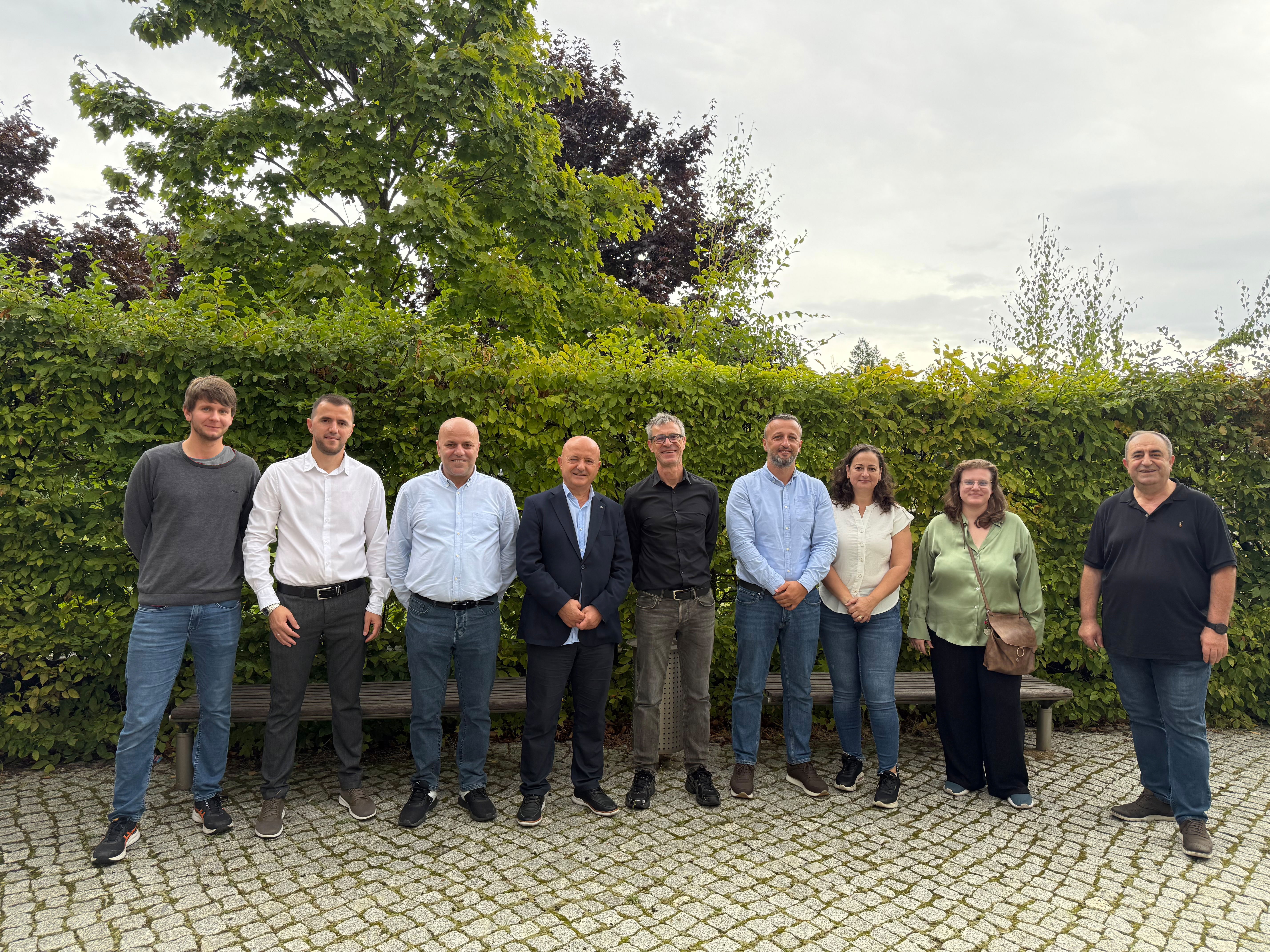
Presentation of the Geoinformation Center for the Western Balkans at the AGIT Conference in Salzburg
We are pleased to announce that we presented the Geoinformation Center for Western Balkan at the AGIT conference in Salzburg, held from July 2nd to 3rd, 2025, at the Faculty of Natural and Life Sciences. Our presentation took place during Session 9B: Education Geomedia in Post-Secondary and Higher Education and received positive feedback from attendees. We are progressing on our journey to become a key hub for teaching, research, networking, and data provision in geoinformation technology, with a focus on agriculture, natural resources and rural development in the Western Balkan region!
A Cooperation Agreement was signed between the Agricultural University of Tirana and Albania's State Authority for Geospatial Information (ASIG). The partnership focuses on joint projects, practical training, and capacity-building by leveraging shared expertise and geospatial data. The partnership aims to improve data exchange, research quality, and specialist training, while promoting geoinformation technologies—particularly through the Geoinformation Center for the Western Balkans.
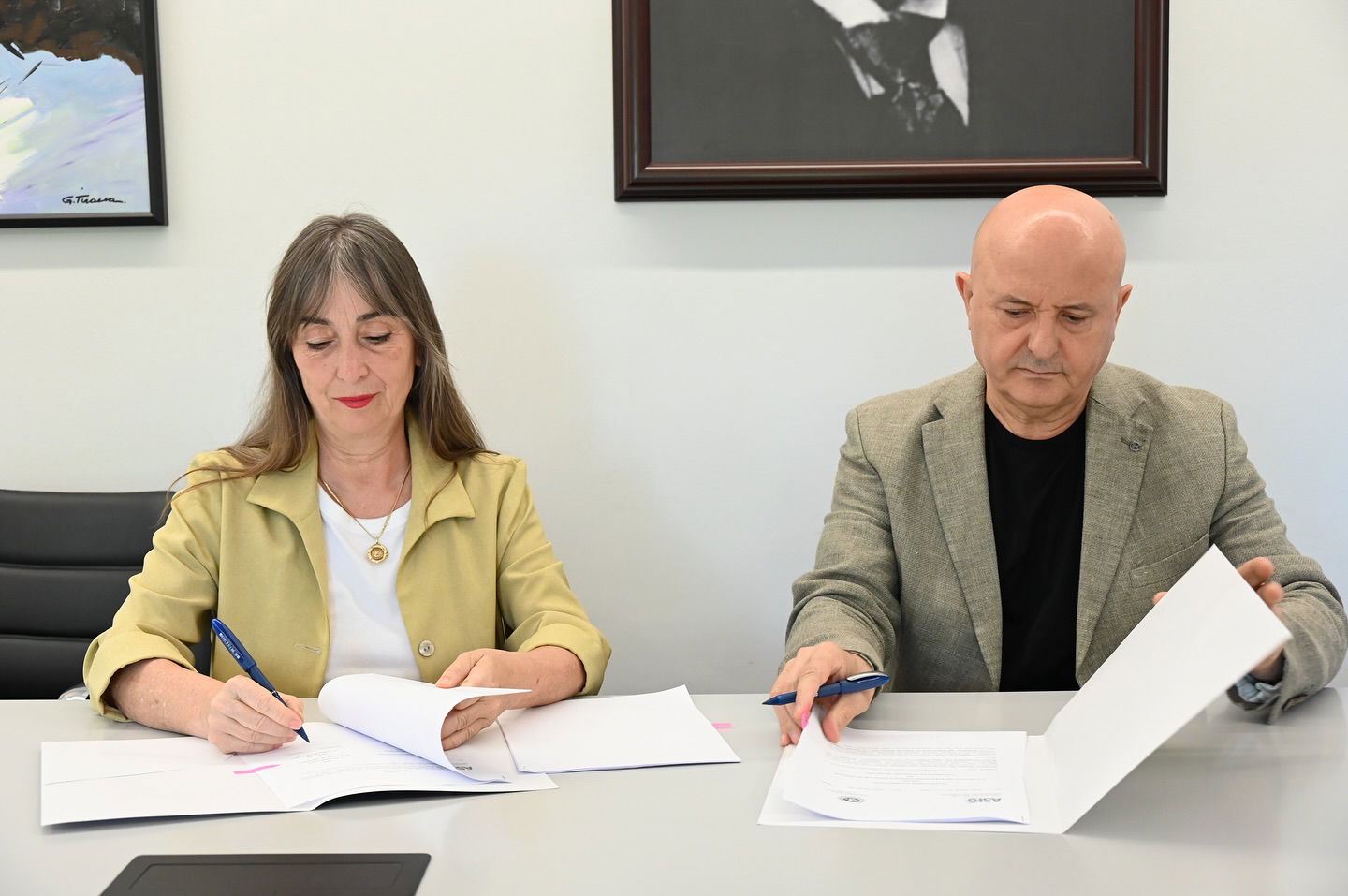
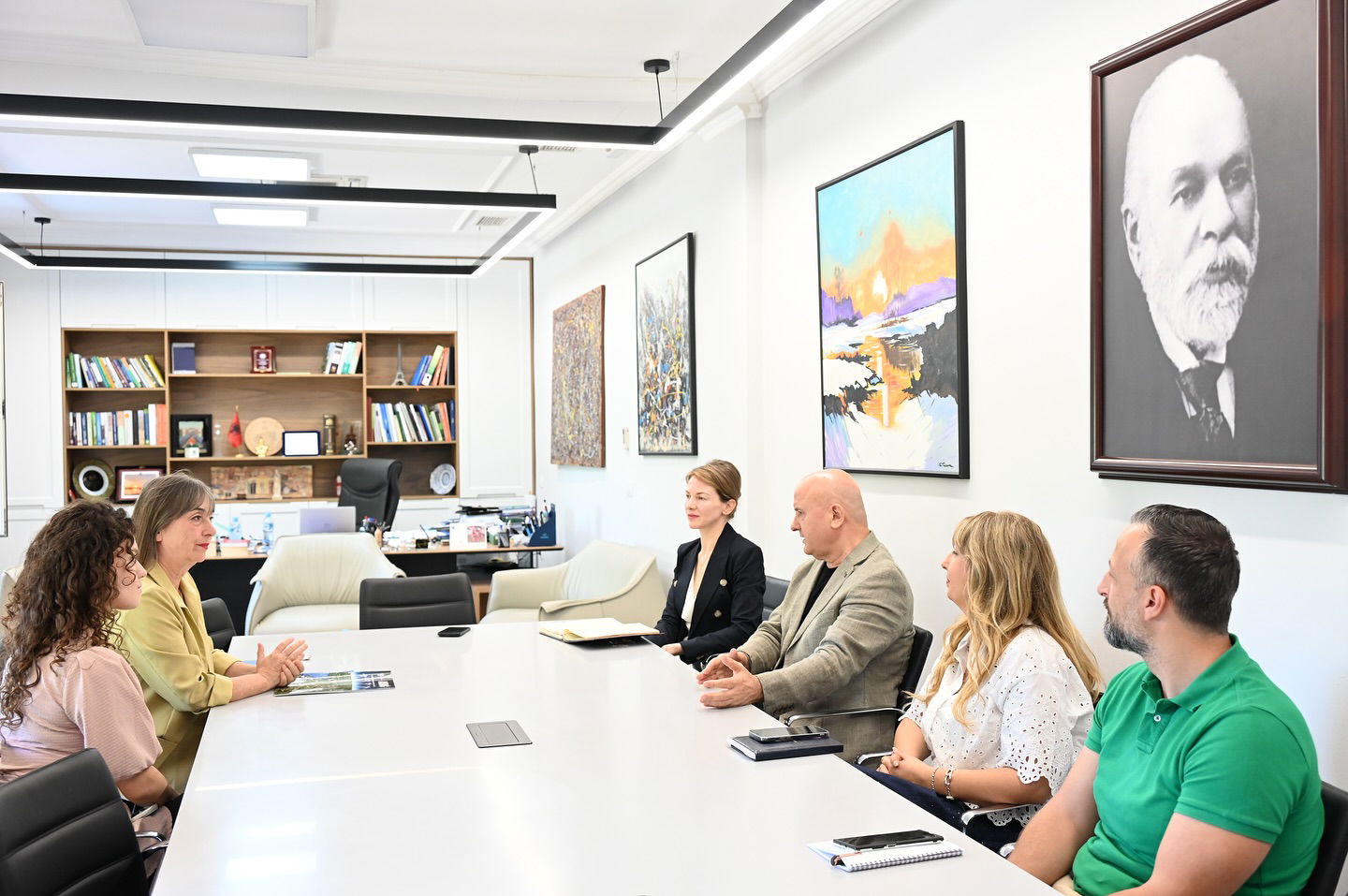
Team
Prof. Dr. Fatbardh Sallaku
Rector of AUTProf. Dr. Fatbardh Sallaku is a professor of natural resource management at the Agricultural University of Tirana (AUT), holding the title "Professor" since 2010. His research focuses on land and water protection, environmental degradation, rural development, and agro-environmental policies. After graduating in agronomy from AUT in 1990, he began his academic career at the same university. He earned his PhD in 1996 and has since held several leadership roles, including Head of the Department of Agriculture and Ecology (2008–2016) and Dean of the Faculty of Agriculture and Environment (2016–2020). Since 2020, he serves as Rector of AUT. Prof. Sallaku has completed post-graduate research at several European institutions, including Queen’s University Belfast (UK), the University of Padova (Italy), Giessen University, and Humboldt University (Germany). He has authored around 90 scientific publications, with over 30 indexed in international journals such as Geoderma, Environmental Modeling & Assessment, and the Journal of Ecological Engineering. He actively participates in international scientific events and leads or collaborates on numerous national and international projects (TEMPUS, Interreg, FAO, USAID, etc.). His expertise is sought by organizations in Albania, Kosovo, and North Macedonia, particularly in EU agricultural policy, rural development, and environmental protection. Since 2021, he is a member of the Albanian Academy of Sciences and a visiting professor at Michigan State University, contributing to the "International Development: Theory and Practice" program.
Olsid Mema
Geo-Information Centre DirectorOlsid Mema is an assistant lecturer in the Department of Agronomic Sciences at the Faculty of Agriculture and Environment, Agricultural University of Tirana, Albania. He holds a Master’s Degree in Geodesy from the Geodesy Department at the Faculty of Civil Engineering, Polytechnic University of Tirana. Currently, he is a PhD student at the Agricultural University of Tirana. Olsid serves as the Executive Director of the Centre, where he represents the Centre to project partners and stakeholders, coordinates project activities including the logistical preparation of training courses, summer schools, and research seminars and contributes as a GIS instructor. He is responsible for disseminating information about project activities and providing regular support to all involved partners. Additionally, he will oversee and coordinate the development of a consolidation strategy and guide efforts to secure future funding opportunities to ensure the long-term success of the Centre.
Bexhet Islamaj
Geo-Information scientistBexhet Islamaj is a GIS and IT professional with over 23 years of experience in GIS, software development, data analysis, and geospatial solutions. He holds a Master’s degree equivalent in Computer Science from the University of Tirana and has extensive experience working across the Western Balkan countries, including Albania, Kosovo, Montenegro, and Greece. He is programmer in programming languages such as VB.Net, C#, and Python, as well as in geodatabase management such PostgreSQL/PostGIS, MS SQL Server, and MS Access etc. He has over 20 years of experience with ArcGIS, QGIS, and other GIS solutions, particularly in the agriculture, environment, and infrastructure sectors. In the GEO-WB6 project, he is responsible for developing the GEOdata Portal of the Geoinformation Centre.
Prof. Dr. Daniel Müller
Daniel Müller is a senior scientist at the Leibniz Institute of Agricultural Development in Transition Economies (IAMO) and professor of geography at Humboldt-Universität zu Berlin. He has a master degree and doctorate in agricultural sciences and a habilitation in geography. The overarching goal of his research program is to advance the understanding of land-system change, including its multiple repercussions on human welfare, food production, carbon balance and biodiversity. His work is characterized by integrative approaches that combine his expertise in resource economics and natural sciences. He conducts empirical work at different spatial scales with a geographic focus on the Western Balkans, countries of the former Soviet Union, and China.
Max Hofmann
Research associate at IAMOMax Hofmann is a research associate at the Leibniz Institute of Agricultural Development in Transition Economies. He holds a Master’s Degree in Biology from the Martin Luther University Halle-Wittenberg. Max has over 10 years of experience in applying GIS in ecology, conservation, land-use and climatology. At IAMO, Max studies the effects of climate change on agriculture in Eastern Africa and countries of the former Soviet Union. He has been responsible for several GIS capacity building projects carried out by IAMO in past. In GEO-WB6, he coordinates the project activities and is the main responsible for the training courses and research seminars.
Activities
Network
Climate Viewer
The Western Balkans Climate Data Viewer is part of the report on „Impacts of climate change on agriculture and recommendations for adaptation measures in the Western Balkans“ published by SWG RRD, IAMO and GFA Consulting Group. It contains a collection of several hundreds of maps about climate change in the Western Balkans. The user can choose between historical and future trends of different climatic and extreme weather indicators such as temperature, precipitation, heat and frost. All data has been aggregated for two major crop growth periods: Maize (Apil – October) and Wheat (October – July). The historical trends summarize the municipality-level changes in climate and weather over the period from 1992 to 2020 and are based on precipitation data from CHIRPS and temperature data from ERA5-Land. The future trends are based on climate change projections provided by ISIMIP and are available at a 0.5 degree spatial resolution. For the future trends, the user can choose between two climate change scenarios (RCP 4.5 and RCP 8.5) and two future time periods (2040-2060, and 2080-2100). With this data viewer, we aim to improve the understanding of the spatial patterns of climate change in the Western Balkans, and inform about the severity of ongoing changes in temperature and precipitation patterns and their potential negative effects on agricultural production in the region.
Contact
- Universiteti bujqesor i Tiranes
- Agricultural University of Tirana, Albania
- geo-wb6@ubt.edu.al
- Mon-Fri - 08:00-17:00
